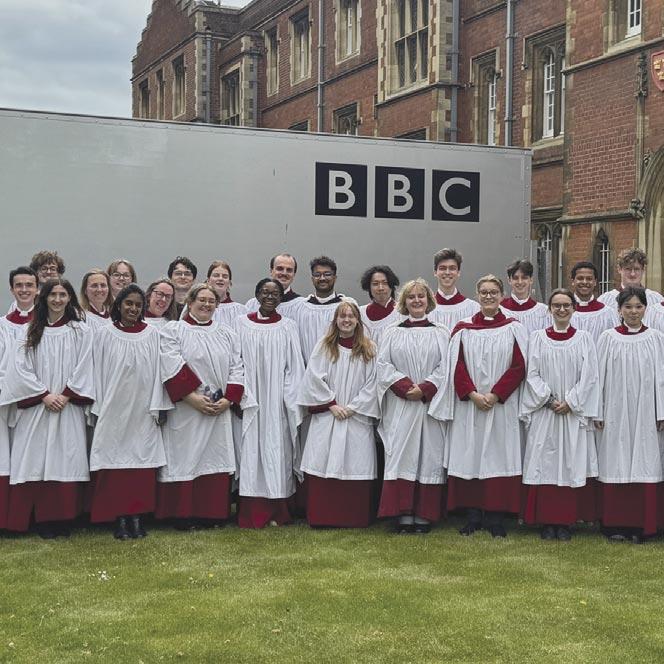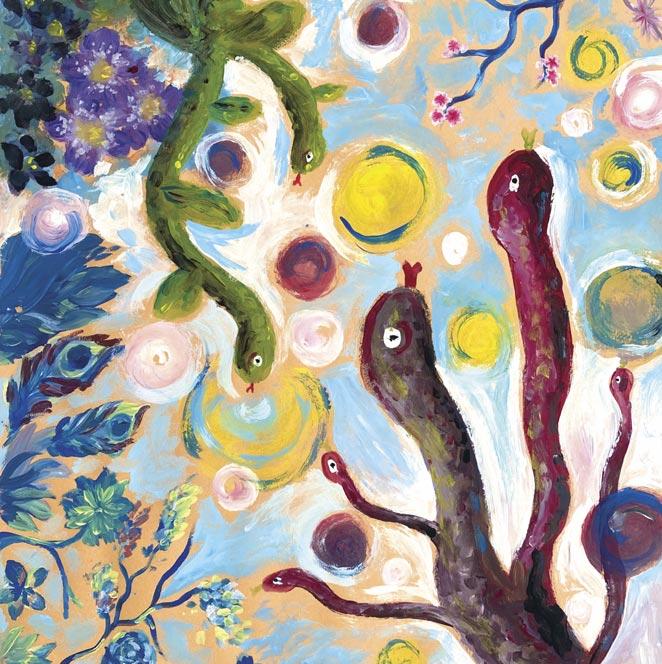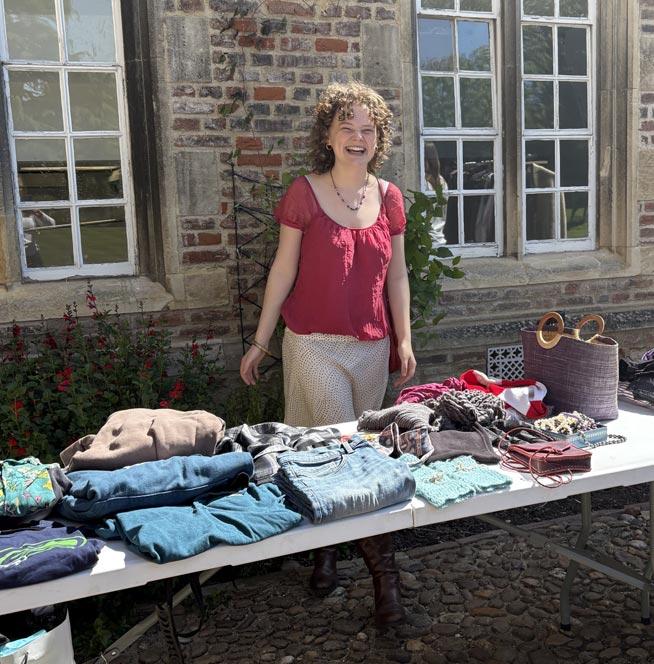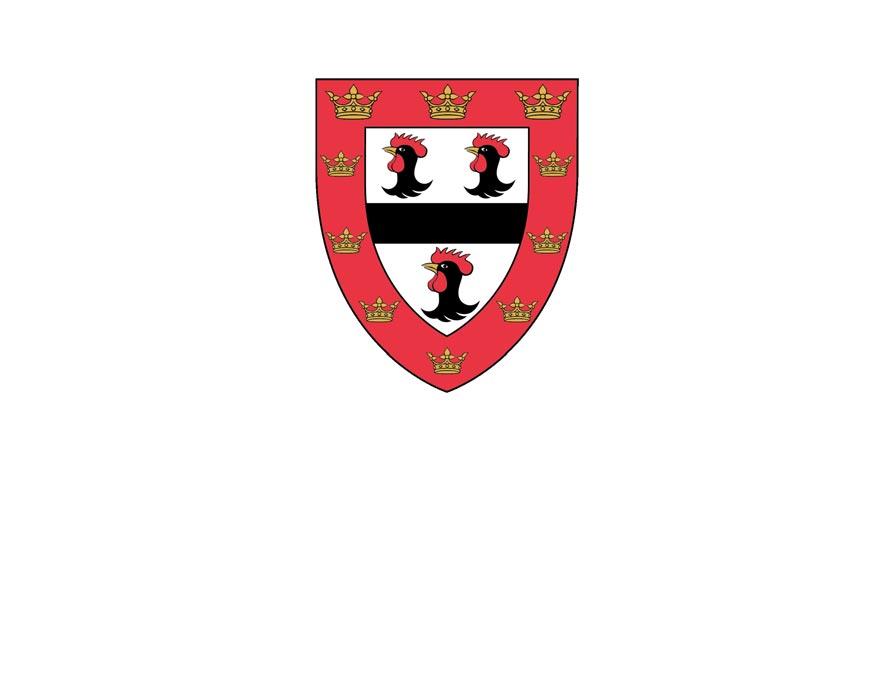

A NNUAL R EPORT 2025
O NE H UNDRED AND T WENTY -F IRST E DITION
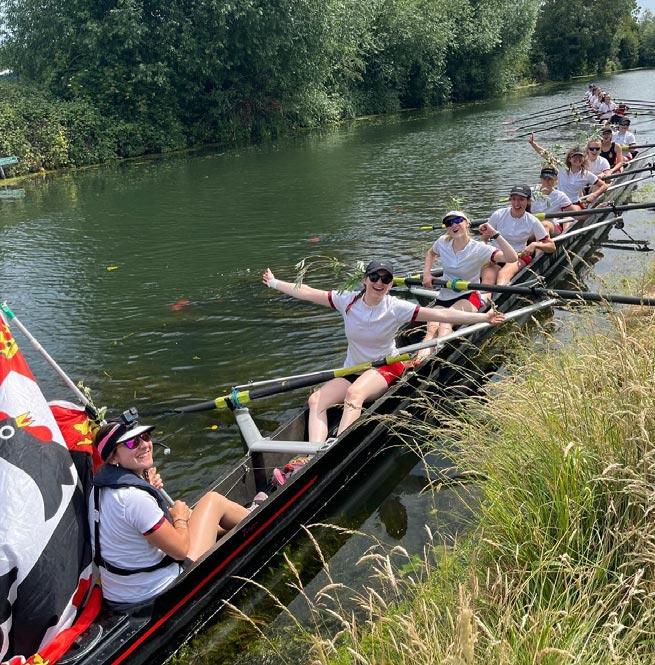
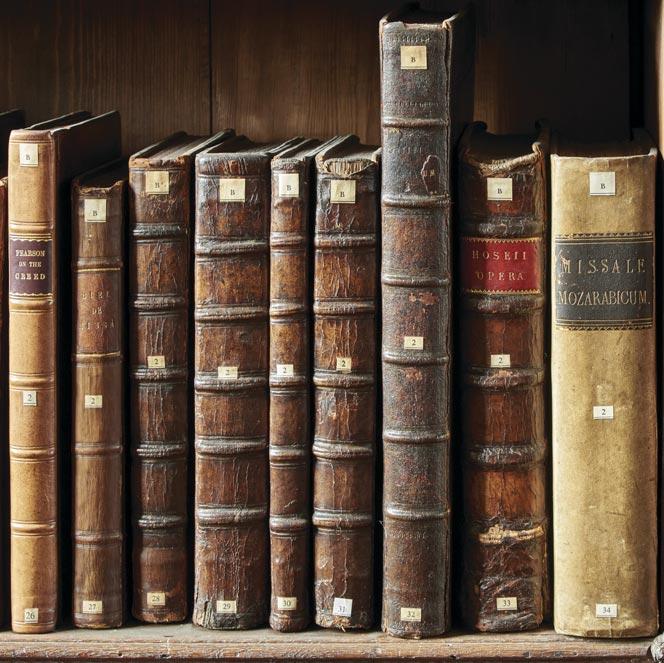
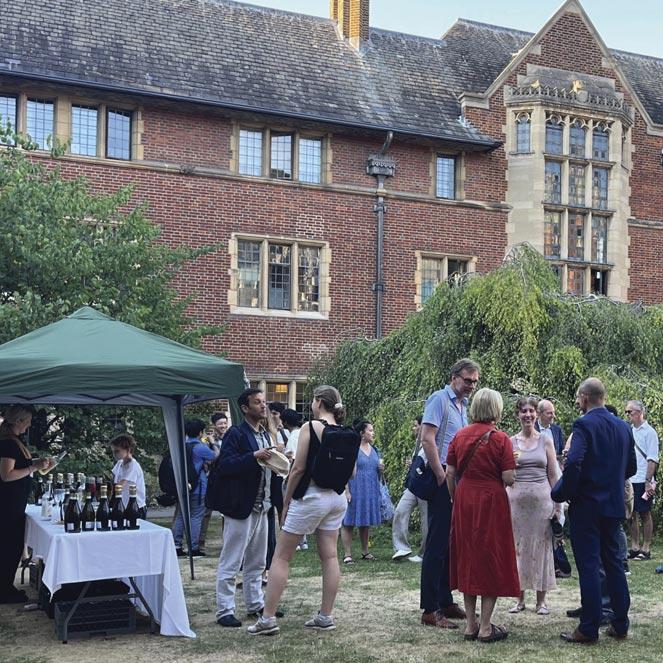
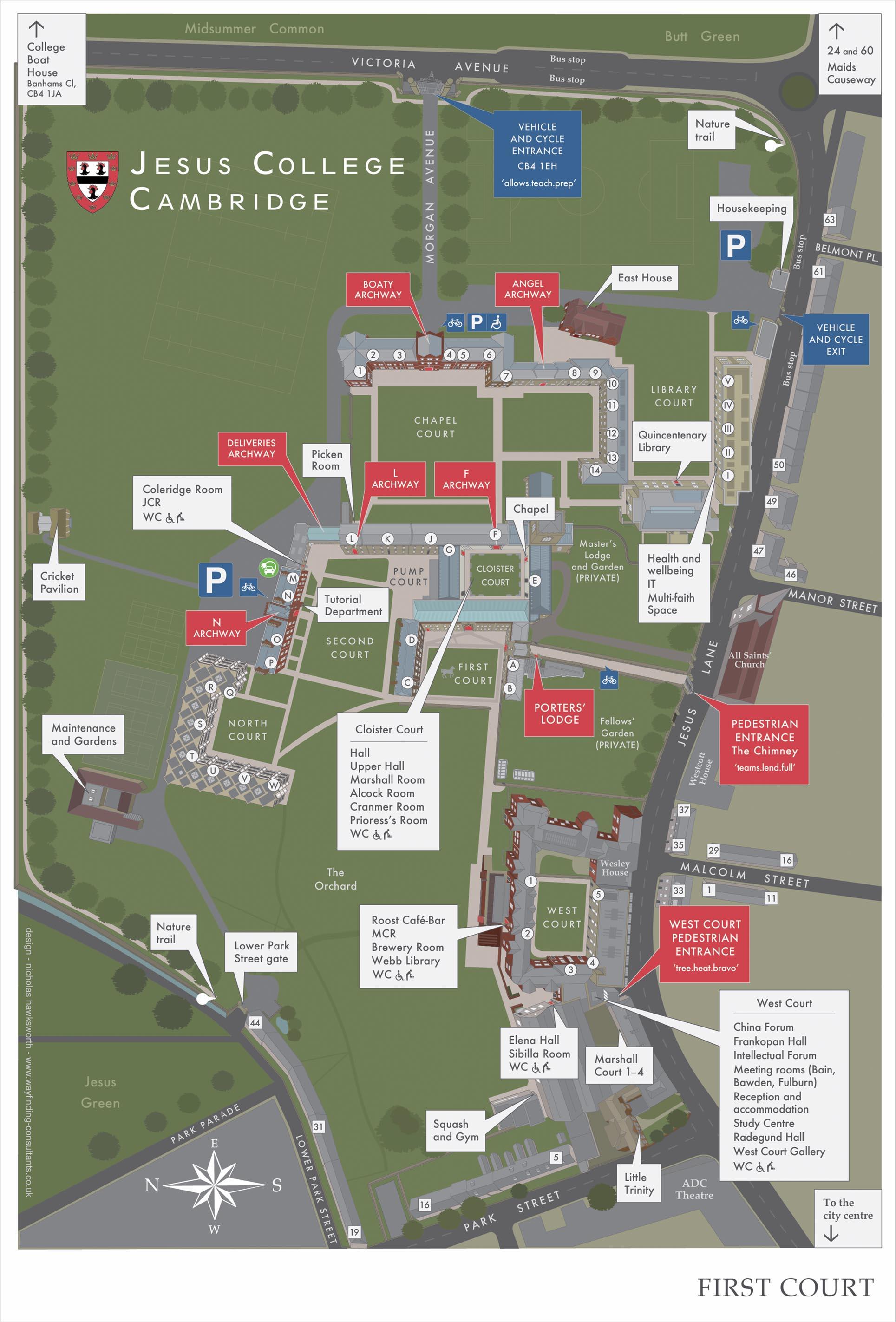
JESUS COLLEGE • CAMBRIDGE
ONE HUNDRED AND TWENTY-FIRST ANNUAL REPORT
Last year, as part of our ongoing commitment to sustainability and in response to rising postal costs, we made the decision to discontinue printing and posting our publications to addresses outside the UK. This year’s edition of the Report is printed on a lighter weight paper stock to further reduce our carbon footprint by cutting down on the volume of paper required.
We encourage our international readers to access the digital version of our publications which are available online and offer the same high-quality content in a more environmentally friendly format. You can find this edition of the Annual Report as well as the current Jesuan magazine here: https://www.jesus.cam.ac.uk/alumni/college-publications
To request a printed copy for a fee, please email: development@jesus.cam.ac.uk
Thank you for your understanding and continued support in our efforts to promote a greener future.
Editor: Kate Coghlan
Email: publications@jesus.cam.ac.uk
Designer: Nikki Williams
Alumni Relations Manager
Development and Alumni Relations Office
Publisher: Development and Alumni Relations Office
Jesus College
Cambridge CB5 8BL
COPYRIGHT
This publication is protected by international copyright law. All rights reserved. No part of this publication may be reproduced or used in any form or by any means – graphic, electronic or mechanical, including photocopying, recording, taping or information storage and retrieval systems – without the prior permission of the copyright holders, except in accordance with the provisions of the Copyright, Designs and Patents Act 1988.
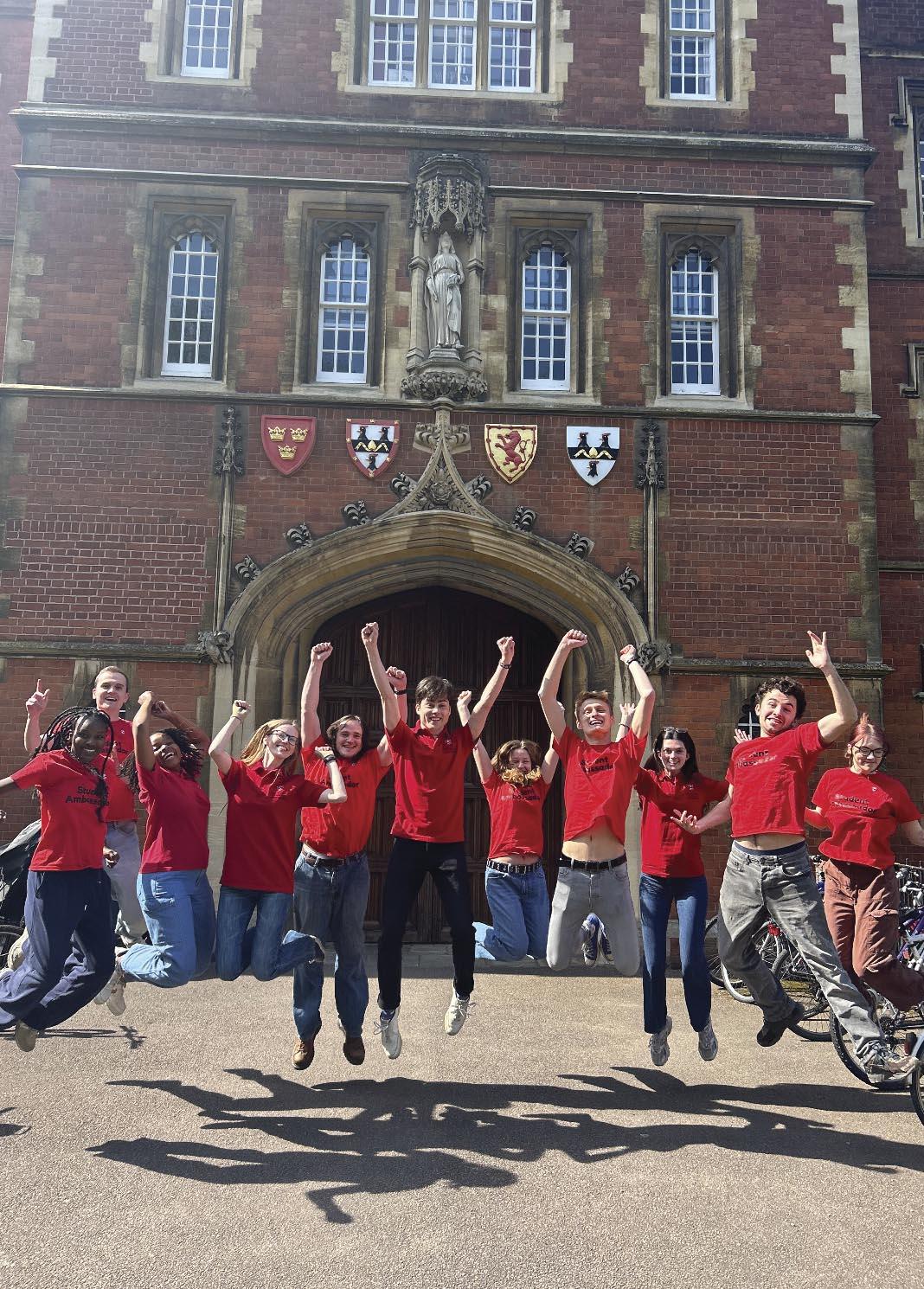
Message from the Master
Two words best capture the life of Jesus College over the past year: settled and belonging.
As I begin my seventh year as Master, I continue to be inspired by the Fellows, students and staff who make this College such an exceptional community. The energy and commitment that flow through Jesus are remarkable. Last year, the College worked with impressive purpose and calm assurance; there was a collective sense that we had found our rhythm. We were not static, but settled in our pace of progress – steady, confident and constructive.
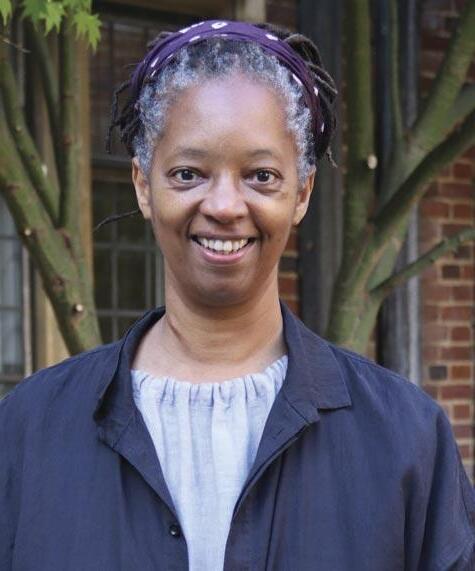
The second word, belonging, reflects something even more fundamental. Belonging is not simply a feeling of inclusion; it is the experience of being known and valued within a shared endeavour. Every Michaelmas and Lent Term, I meet individually with each third-year undergraduate – around 150 conversations in total. These meetings provide an invaluable opportunity to hear how our students are progressing, to offer guidance, if needed, on their future plans and to gauge an answer to a significant question: had they developed a sense of “belonging”.
This year, the responses were heartening. The vast majority spoke warmly of their experiences and of the sense of connection they felt to the College. Creating an environment in which all members can thrive, contribute and feel that Jesus is their home remains one of our central purposes. That sense of belonging, once formed, endures for a lifetime.
It is always a pleasure to witness that continuity of connection in our alumni community. I extend particular thanks to the record number of Jesuans in New York who reconnected with the College this year. Their enthusiasm and generosity of spirit demonstrate that distance does not diminish belonging; indeed, it often deepens it. As many of us reflect on what truly matters in life, it is clear that belonging to a community such as Jesus – and contributing to its ongoing vitality – remains a source of deep satisfaction and purpose.
That same spirit was evident at the reunions held for those who matriculated 50, 60 and 70 years ago. The Seventy Years On Lunch was especially memorable, attracting the largest attendance to date. Guests, many accompanied by partners and children, spoke movingly of their time at Jesus and of the friendships that had endured across the decades. The atmosphere was one of warmth and contentment. The collective effort that went into organising these occasions – from our alumni team and catering staff to archivists and volunteers – exemplified the College’s culture of care and connection.
This year also marked a significant moment in the College’s history. On 15 August 2025, Wesley House formally handed back its lease, bringing the entire College site under unified ownership for the first time in modern history. Jesus College now extends from Little Trinity Street to Victoria Avenue. The transition was managed with great professionalism, and the expanded site will provide valuable new facilities: additional meeting rooms, twenty guest bedrooms to complement West Court,
22 postgraduate rooms, and a new archive centre. The unification of the estate is a milestone that strengthens our capacity for collaboration, reflection and community. Our Fellowship continues to demonstrate the breadth of impact that defines Jesus College. Through their teaching and research, our Fellows contribute profoundly to intellectual life both within the University and beyond. One image this year particularly captured that spirit of leadership: four Jesuans serving together at the Engineering and Physical Sciences Research Council (EPSRC) – Professor Jeremy Baumberg, Chair of the EPSRC and Fellow of Jesus; Professor Charlotte Dean, Executive Chair and former MPhil student at Jesus; Professor Garth Wells, Deputy Executive Chair and Fellow; and Professor Ian White, Fellow, former Master and Council member. Their shared service at the highest level of national research leadership stands as a testament to the influence and reach of our community. The year also brought moments of sadness. We mourned the loss of Professor Lord Colin Renfrew, whose contribution to the College and to archaeology was immense. His memorial service in March brought together family, colleagues and friends from across his many spheres of life. I was honoured to speak in tribute to his time as Master, a period during which he championed art and scholarship. Much of our contemporary art collection has its origins in Colin’s initiatives. Our thoughts remain with his wife, Lady Renfrew, and his family.
We are all aware that the wider environment of higher education continues to evolve and that many within our community have faced personal and professional challenges. Belonging at Jesus College means knowing that one’s presence and contribution matter — that we are part of a community defined by respect, purpose and generosity of spirit. It is evident in the dedication of our staff, the vibrancy of our students, the leadership of our Fellows and the lifelong affection of our alumni. As we look to the future, our task is to preserve and deepen this ethos. The unification of our site and the continued energy of our people offer fresh opportunities to connect, collaborate and contribute. My hope is that, 70 years from now, future Jesuans will return to the College and recognise it still as a place that mattered — a place where they truly belonged. n
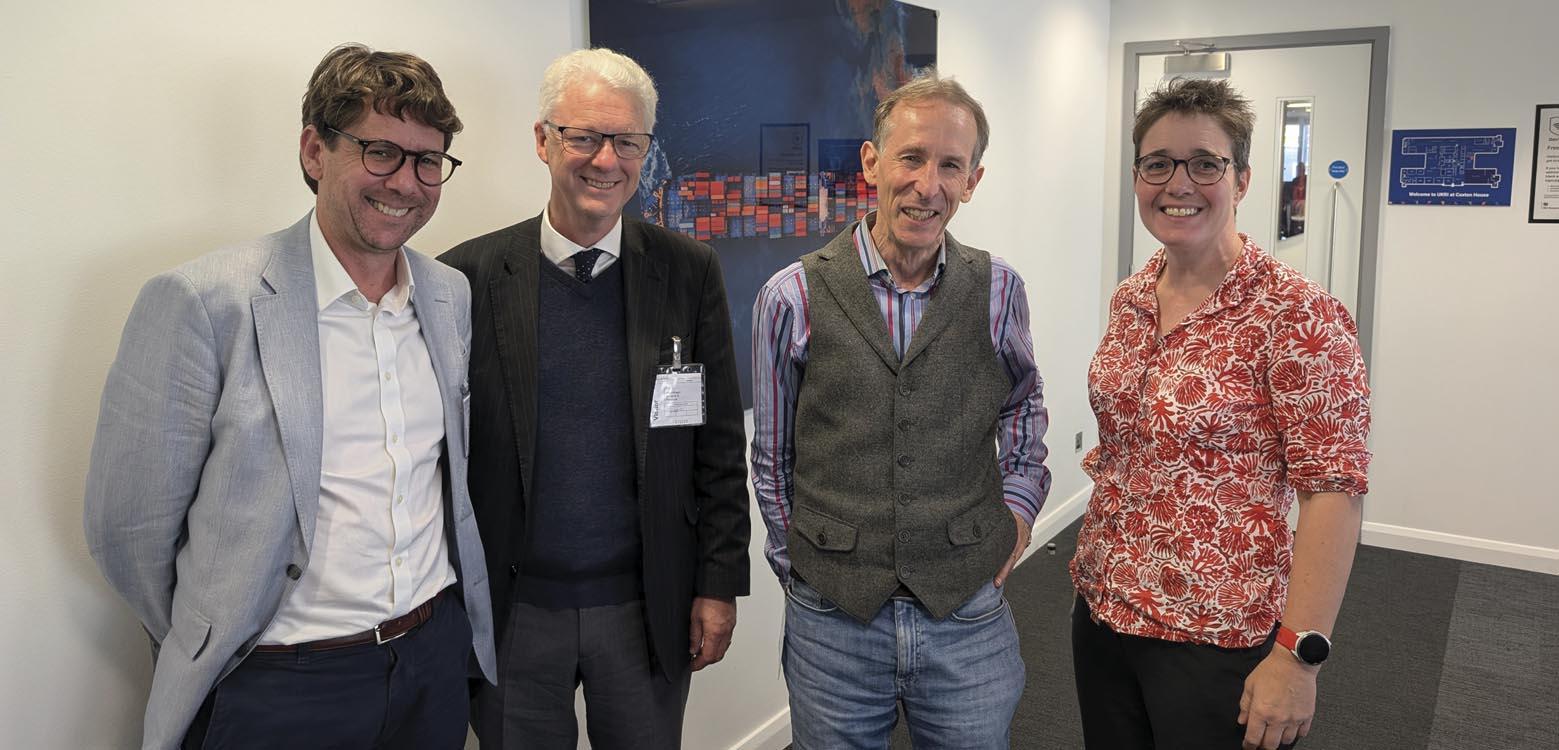
Left to right: Professor Garth Wells, Professor Ian White, Professor Jeremy Baumberg and Professor Charlotte Dean
Fellows and Senior Members
2025-2026
Master
Ms S Alleyne OBE
Fellows
Professor D I Wilson ScD CEng (President)
Chemical Engineering
Professor G T Parks (Admissions Tutor) Engineering
Professor R Cipolla FREng, FREng Engineering
Professor S Fennell Land Economy
Dr J W Ajioka Medicine
Professor J Clackson
(Brian Buckley Fellow in Classics)
Classics
Professor M R Laven History
Professor T S Aidt
Economics
Professor T D Wilkinson (Fellows’ Steward) Engineering
Dr V Mottier
Human, Social and Political Sciences
Dr F M Green English
Professor I H White CBE FREng
Professor N G Berloff
Professor S Clarke
(Ron Davies Fellow in Natural Sciences)
Professor W Federle
Professor B Walton
Professor O A Scherman
Engineering
Mathematics
Chemistry
Biology
Music
Chemistry
Professor C E Chambers (Dean of College) Philosophy
Professor J J Baumberg FRS
Professor G N Wells
Professor D J Kelly (Financial Tutor)
Dr C M Burlinson (Vivian Cox Fellow in English, Admissions Tutor)
Physics
Engineering
Human, Social and Political Sciences
English
Professor B M B Post Linguistics
Professor A H Brand FRS
Biology
Dr M J Edwards (Graduate Tutor, Keeper of the Old Library, Fellow Librarian, Gurnee F Hart Fellow in History) History
Professor K S Lilley
Professor C Mascolo
Professor C-B Schöenlieb
Professor R Reich
Chemistry
Computer Science
Mathematics
Modern and Medieval Studies (Russian)
Professor F G Stark Law
Professor S Schnall
Professor M T Conde (Tutor)
Psychology
Modern and Medieval Studies (Spanish/Portuguese)
Professor D A Cooper
Dr T Savin
Professor S J Colvin
History of Art
Engineering
Modern and Medieval Studies (German)
Dr S V Stinchcombe Medicine
Professor V M P M D Carvalho
Professor K A Steemers
Professor Y Peleg (Tutor)
Economics
Architecture
Asian and Middle Eastern Studies (Modern Hebrew Studies)
Professor M Harper (Admissions Tutor) Pharmacology
Professor U Schneider Physics
Professor D Nally
Geography
Dr S Stacpoole (Assistant Graduate Tutor) Neurology
Professor H Williams
Earth Sciences
Professor S Dutton Physics
Professor J Green
Human, Social and Political Sciences
Professor M Elliott Economics
Dr J Huppert
(Director of the Intellectual Forum)
Dr R F Anthony (Bursar)
Dr A J Grant Veterinary Sciences
Dr J Berenbeim
Ms E Williams (Director of Development and Alumni Relations, JCSU Senior Treasurer, MCR Senior Treasurer)
English
Dr J Bellingham Physics
Professor J Danesh
Professor R Evans
Mrs M de Vincent-Humphreys (Tutor)
The Rev’d Dr J Crockford (Dean of Chapel, Tutor, Praelector, JCBC Senior Treasurer)
Dr R Barr
Professor N Guyatt (Tutor)
Ms A Goymour
Dr M Wilkinson
Medicine
Natural Sciences
Modern and Medieval Studies
English
History
Law
Natural Sciences
Dr A R Bowden Medicine
Mr S Websdale (Domestic Bursar, May Ball Senior Treasurer)
Dr G Wilkes
(Accessibility and Disability Liaison Tutor) Mathematics
Dr D Moulin
(Senior Treasurer Jesus Africa Fund) Education
Dr N Buitron (Jessica Sainsbury University Assistant Professor in the Anthropology of Amazonia)
Dr J Tenney
Dr E Marek
Dr P Dominiak (Senior Tutor)
Human, Social and Political Sciences
Archaeology
Chemical Engineering and Biotechnology
Professor C Marquis
Professor M Brazelton
Professor S Zahl
Dr A Koronaki
Management and Human, Social and Political Sciences
History and Philosophy of Science
Theology, Religion and Philosophy of Religion
Architecture, Design and Engineering
Dr B Sheil Engineering
Mr B Sheen (Director of Music)
Dr T Dixit Natural Sciences, Biology and Ecology
Dr R Fasel Law
Professor S Gilmore (C C Ng Fellow in Law) Law
Professor J Arday Education
Dr N Kelly Inorganic Chemistry
Dr R Scott Literature and Philosophy
Mr L Temple Modern Languages
Dr S Eggleton (Yates Glazebrook Fellow in Law)
Dr N B Niati (Tutor)
Professor M Bay
Law
Education
American History
Dr O Petri Geography
Dr W Blythe Chinese Literature
Ms R Goldsmith Social and Political History
Mr Y Veenma Earth Sciences
Dr A Gibbons Medicine
Dr C Town Computer Science
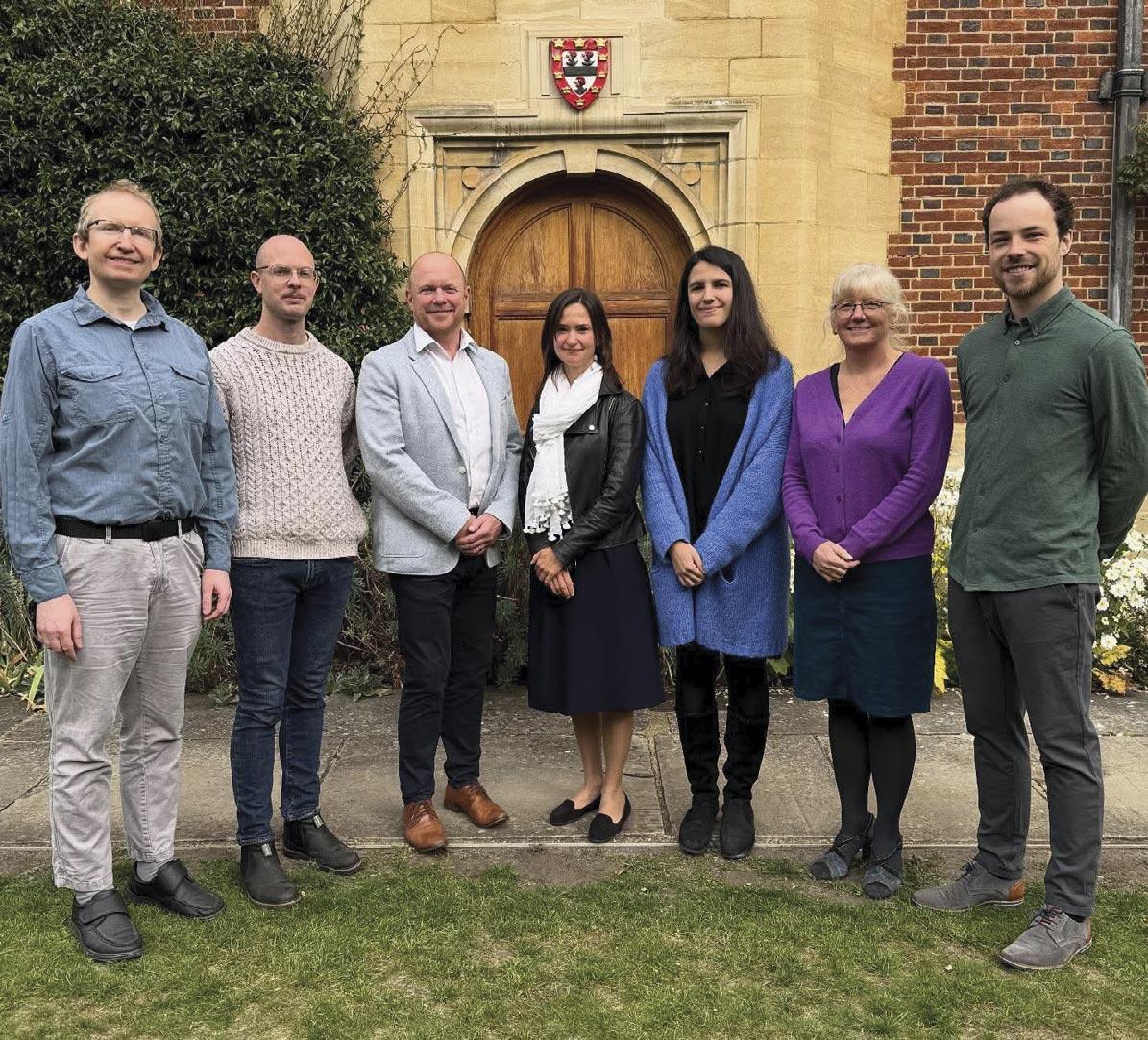
Left to right: Dr Chris Town, Dr William Blythe, Mr Mark Brian, Dr Olga Petri, Miss Charlotte Mion, Dr Anita Gibbons and Mr Yorick Veenma at this year’s President’s Welcome
Emeritus Fellows
Dr J A Hudson
Dr J E Roseblade
Dr W C Saslaw
Professor J T Killen PhD FBA
Professor S C Heath LittD (Honorary Keeper of the Old Library)
Professor P D A Garnsey PhD FBA
Dr S B Hladky
Dr D E Hanke
Dr M R Minden
Professor N J Ray MA ARIBA
Professor P H Nolan CBE
Professor J B Thompson
Dr J R Howlett
Professor W J Stronge
Professor I Paterson FRS
Dr R D Bowers
Professor M L S Sørensen FBA
Dr M P C Oldham
Professor J Soskice
Professor R Mengham
Professor D A S Compston CBE FRCP FMedSci FRS
Professor M M Arnot FAcSS
The Rev’d Dr T D Jenkins
Professor Sir Bruce Ponder FRCP FRS
Dr A J Bowen MA
Professor J C W Mitchell FBA
Professor S A T Redfern
Professor J M Bacon (Hon) DUniv
Mr S J Barton MA
Professor Lord Mair CBE FREng FRS (Hon Fellow)
Professor J A Dowdeswell ScD
Professor H le B Skaer
Mr R Dennis MA
Mrs A Künzl-Snodgrass
Professor P J Williamson (Keeper of the Plate)
Honorary Fellows
The Hon A R Gubbay MA LLM SC HonLLD
Professor Lord Rees of Ludlow Kt OM MA FRS HonFREng FMedSci
Professor R F Tuck MA FBA
Professor Dame Sandra Dawson DBE MA FIPH FCGI HonDSc CIM
Sir David Hare MA HonLittD FRSL
Sir Antony Gormley OBE MA HonLittD
Sir Bernard Silverman MA ScD FRS
Lord Watson of Richmond CBE MA FRTS
Mr M Perahia KBE FRCM
Professor K E Wrightson MA PhD FBA FRHistS
Professor E S Maskin FBAHon MAHon DHL
Professor T F Eagleton MA FBA HonDLitt
The Rt Hon Sir Rupert Jackson PC
Professor J A O’Donnell LVO MA KCSG FRCO FRSCM FGCM FRCM
Sir David H Wootton
The Rt Hon Sir Colman Treacy PC
Sir Richard Long RA CBE
Professor R Evans FLSW FBA
Sir Jonathan Ive KBE
Professor Lord Mair CBE FRS FREng (Emeritus Fellow)
Professor Sir Alan Fersht
The Rt Hon Sir Stephen Irwin PC
Professor R Gilchrist DPhil FSA FBA
Ms A Wilding RA
Professor B Wilkes
Professor A Bashford FBA FAHA
Professor M M “MM” McCabe FBA
Ms F Morris
Mr D Murray CMT
Professor S Rutherford
Professor V Shepherd CD FCCS
Ms V Ryan OBE
Professor R Howat
Mx H Macdonald
Ms A Thurnauer
Professor Y Lari RIBA
St Radegund Fellows
Mr J W Hudleston
Mr R P Kwok MA (1972)
Mr P J Yates MA (1978)
Mrs S J Yates MA (1980)
Mr B N Buckley MA (1962)
Ms J M Sainsbury MA (1989)
Professor P J A Frankopan MA (1990)
Dame Lisbet Rausing
Professor P Baldwin
Mr G F Hart (1994)
Mr R F Davies MA (1953)
Mr J L Marshall MA (1986)
Fellow Commoners Emeritus
Mr J Cornwell MA HonDLitt FRSL
Professor B A K Rider PhD Hon LLD
Visiting Fellows
Mr C Boardman CBE
The Baroness Hunt of Bethnal Green
Ms C Sciamma
Mr T Clissold
Mr O Robinson MBE
Mr T Harding
Professor K VijayRaghavan FRS
Lord Adebowale
Mr Colin Greenwood
Dr Eliane Glaser
Lord Alderdice
Visiting Professors
Professor T Saaby (Sir Arthur Marshall Visiting Professor in Sustainable Urban Design)
Professor B Bailey (Pitt Professor)
Visiting Scholars
Professor O Ryabchenko
Dr A Odynets
Dr M Amer
Assistant Chaplain
The Rev’d J Sanders
French Lectrice
Miss C Mion
Bye-Fellows
Dr G L Taylor
Dr C O’Brien
Dr S Saxena
Dr F Alford
Dr S Tobin
Dr E Collingham
Mr M Brian
Dr L Lannelongue
Academic Years 2023-2026
Academic Years 2023-2026
Academic Years 2023-2026
Academic Years 2024-2027
Academic Years 2024-2027
Academic Years 2024-2027
Academic Years 2024-2027
Academic Years 2025-2028
Academic Years 2025-2028
Academic Years 2025-2028
Academic Years 2025-2028
Academic Year 2025-2026
Academic Year 2025-2026
Academic Year 2022 – December 2025
Lent Term 2024 – Michaelmas Term 2025
Academic Year 2024-2026
Academic Year 2025-2026
College Postdoctoral Research Associates (CPDA)
Dr I Ampartzidis
Dr A Arruda
Mr C Anderson
Dr B Bowers
Dr E Bowman
Dr R Brown
Dr D Cakir
Dr N Chauhan
Dr M Ciliberto
Dr G Cooke
Dr T Cooper
Dr P Cosgrove
Dr J Cotton
Mr P Deshpande
Dr H Hadj-Moussa
Dr A Halder
Dr M Hen
Dr T Hollanek
Mr E Jarratt Barnham
Dr X Jiang
Dr Z Li
Dr N Makuyana
Ms F Nawaz
Dr J Perry
Professor E Quigley
Dr G Rizos
Dr M Robbins
Dr N Seega
Dr R Shojaei (Ethnic and Religious Minorities Welfare contact)
Dr A Sobey (Acting Curator of Works of Art)
Dr L Sundaram (Ethnic and Religious Minorities Welfare contact)
McDonald CPDA
Dr G Vazquez
Academic Year 2025-2026
Society of St Radegund
David Bennett
Firdaus Ruttonshaw (1968)
Andrew Sutton (1965)
Christopher Rodrigues (1968)
Alasdair Morrison (1968)
Tomás Carruthers (1986)
Richard Briance (1971)
David Wootton (1969)
Patrick Wilson (1974)
Peter Day (1968)
Charles Hoare Nairne (1989)
Martin Clarke (1975)
Adrian Frost (1976)
Tony Thorne (1958)
Michael Booth (1959)
Paul Burnham (1967)
Christopher Kirker (1969)
Albert Goh (1990)
D G Marshall of Cambridge Trust
David Hibbitt (1962)
Susan Hibbitt
Stephen Heath (1964)
Bob Rao (1972)
Kay Ian Ng (1986)
James de Uphaugh (1985)
Edward Ma (2000)
Kay Ashton (1982)
James Ashton (1982)
John Sheldrick (1967)
Sandy Rattray (1988)
Duncan Martin (1987)
Andrew Harbor (1975)
John Dugdale Bradley (1961)
John Driscoll III (1983)
James Rudolph (1965)
Wang Minming
Gavin Stark
Emily Winslow Stark
Jan Laubjerg (1992)
Max Hadfield (1961)
William Burnside (1970)
Leigh Collins (1967)
Ting Hway Wong (1992)
Amanda Chi (1992)
David Wang
Dominic Casserley (1976)
Eugene Fung (1991)
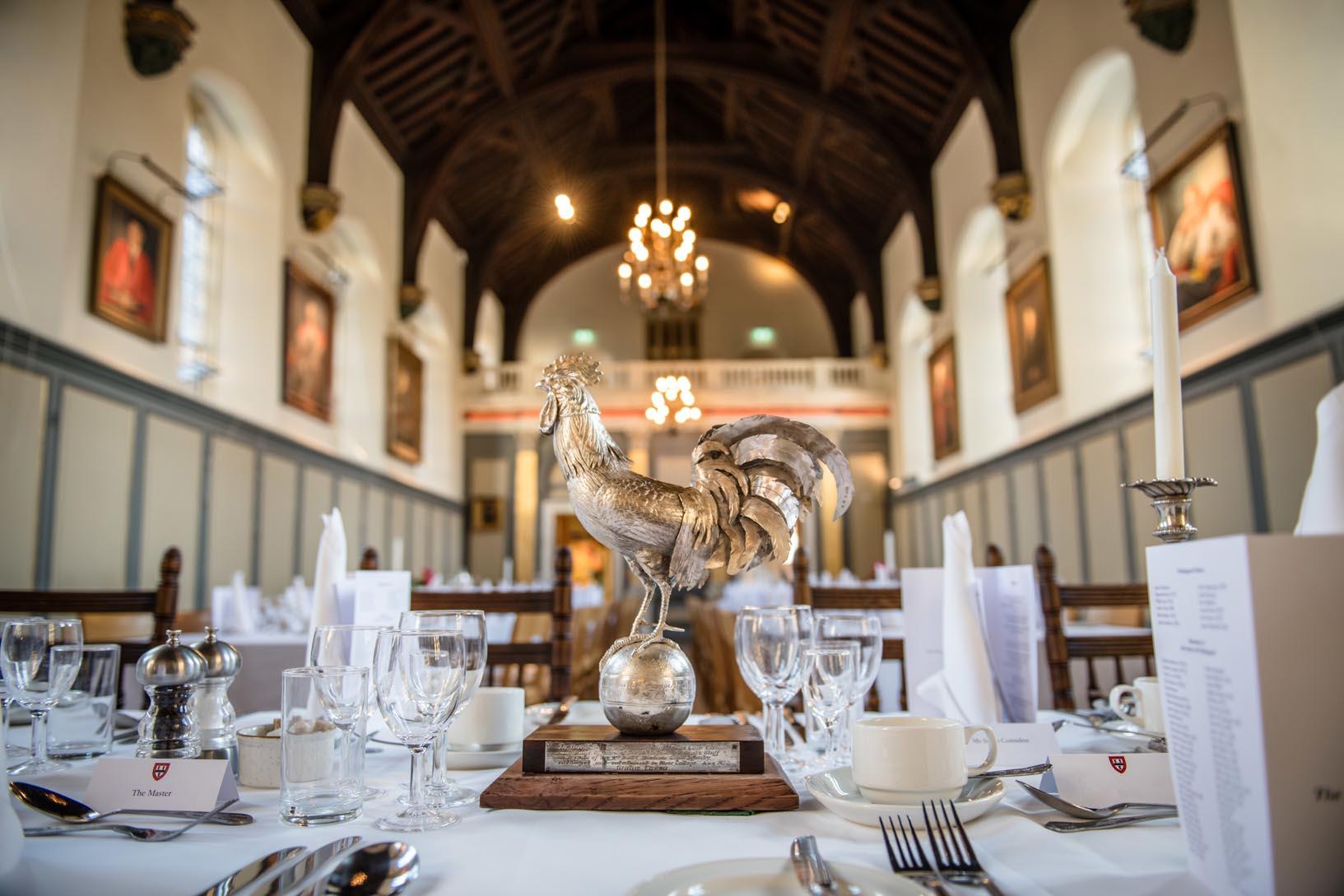
Articles
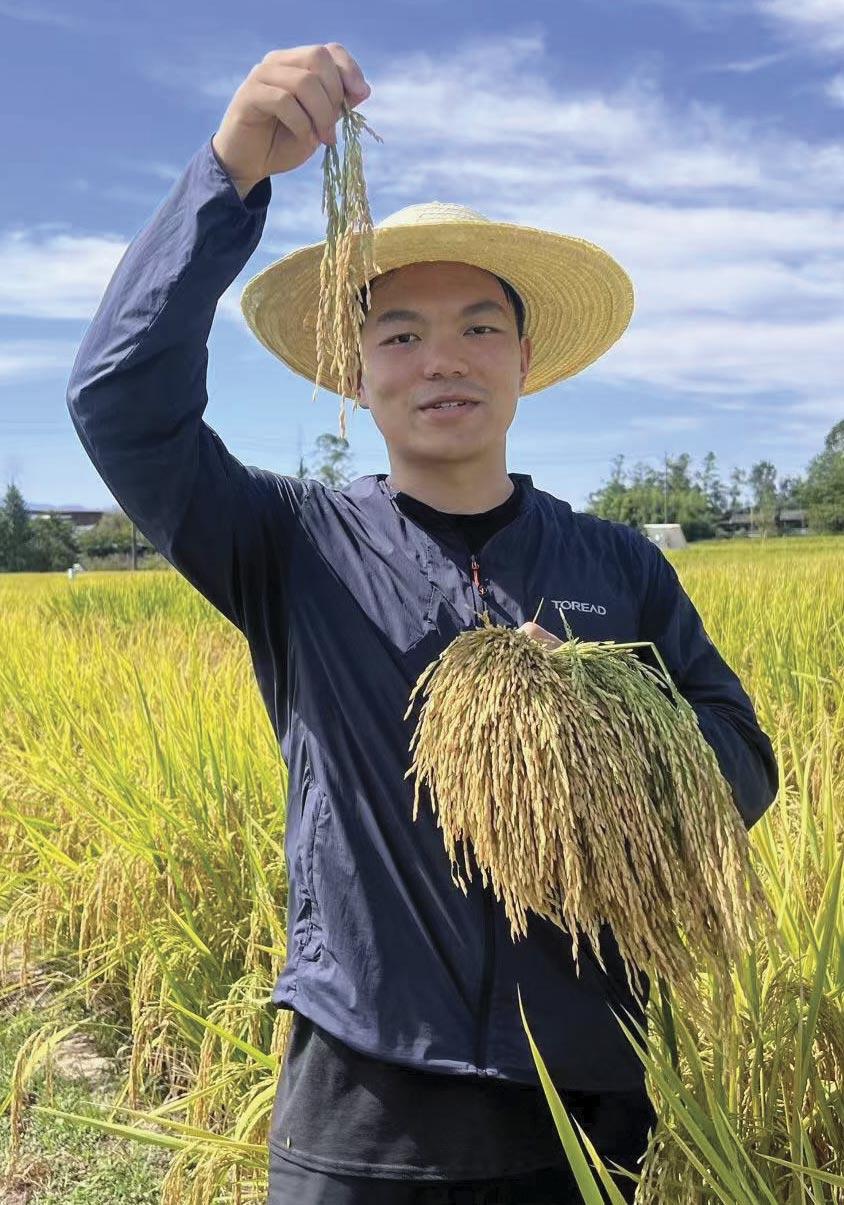
Team member holding a heavy sheaf on a clear day
Turning rocks into solutions
Professor Simon Redfern
Professor Redfern writes about tackling climate change through nature-based action and geoengineering, with fresh insights from Liangping’s rice fields in the innovative ‘carbonsynk’ project
On a damp morning in southwest China, the paddy fields of Liangping, Chongqing, looked dark under low cloud. The local ‘village boss’ watched as a team of his villager neighbours dusted a paddy with fine grey powder ground from volcanic rock. Questions were raised more than once, phrased with a practical curiosity scientists value: “Will this feed the soil, or just make it dusty?” The answer, as it often is in any study of our interaction with the environment, is “a bit of both — and the details matter”. This is part of a study we are doing as a partnership with NTU Singapore and Southwest University, Chongqing, alongside broader work under a project known as ‘carbonsynk’ (www.carbonsynk.solutions).
Later in the year we had our first view of our experiment in Liangping, Chongqing, China from above. The paddy landscape is laid out like a chessboard: narrow earthen bunds making rectangles of water and green, the plots labelled and numbered, a small road tracing the edge of the site. The geometry is deliberate. We are running a field-scale study of “enhanced rock weathering” in a real rice-growing landscape and the design needs to let us compare like with like over months and seasons, through heavy rain and still air, through planting, heading and harvest. The aim is practical rather than theatrical: to find out how far nature’s own chemistry can help with climate mitigation while supporting the productivity of a staple crop.
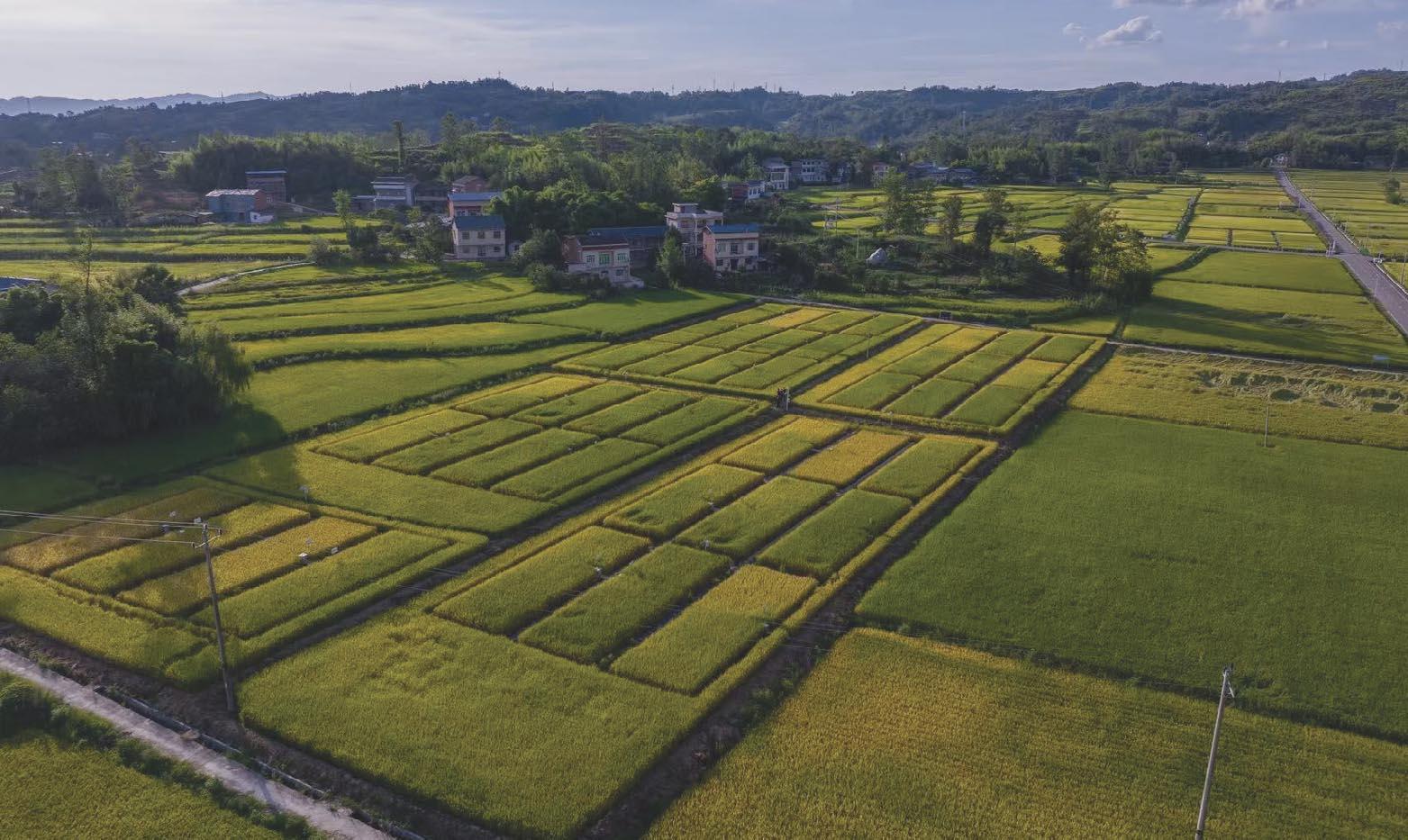
Aerial view of the Liangping experimental paddies. The plot layout allows side-by-side comparison of treated and control fields within a working rice landscape
The broad theme here is often called ‘nature-based solutions‘ alongside engineered approaches. Forests, soils and coastal ecosystems already remove carbon dioxide from the atmosphere; we can support and extend those processes by restoring, protecting and managing them better. There are also methods that use materials and chemistry to capture carbon with minimal biological assistance. Enhanced rock weathering (ERW) sits between the two. The reactions are natural – silicate minerals dissolve in slightly acidified (by dissolved CO2) rainwater and, in doing so, drive carbon into more stable forms. The geologic rock record indicates that this is the way that Earth has regulated atmospheric carbon dioxide levels in the deep and distant past, a process known as the slow carbon cycle — but it is very slow indeed. If the past is the key to the present, then we estimate that the current rise in atmospheric carbon dioxide driven by fossil fuel burning will eventually be reversed by the slow carbon cycle, by chemical weathering of silicate rocks, but on a time scale of one hundred thousand years or more. We aim to accelerate the process through enhanced rock weathering — by adding finely ground rock to soils where crops are already grown, and speed the slow natural reactions faster by ten thousand times or so.
Why bother with removals at all, some ask, when emissions are the central problem? Because even with rapid decarbonisation — and that remains the first priority — some emissions will persist in aviation, agriculture, cement and steel. To reach net zero and then net negative, we need to take carbon dioxide out of the air as well as prevent it getting there. The question is how to do that credibly, at reasonable cost, and without harming people or places.
What enhanced rock weathering actually does
Silicate rocks such as volcanic basalt dissolve slowly when exposed to water that contains carbon dioxide. The reactions raise alkalinity and convert carbon dioxide into dissolved bicarbonate, which is then carried in drainage and rivers to the ocean where it can persist for hundreds to thousands of years. If carbonate minerals form in soils or sediments, the storage can be even longer, although the overall efficiency of the process is reduced. The approach is attractive because it uses abundant natural materials, it can be integrated into existing farming, and it offers a plausible route to long-lived storage linked to measurable chemical signals.
Three practical considerations frame our work. First is surface area: finer particles react faster, but grinding rock consumes energy, so the life-cycle accounting must remain favourable. Second is climate: warm, wet environments favour weathering, which points to tropical and subtropical agriculture. Third is agronomy: many rice soils are acidic, and a slight reduction in soil acidity (driven by the liming action of silicate weathering) can reduce aluminium toxicity and improve nutrient availability; dissolved silica can strengthen rice stems and produce healthier crops. The topic is attracting a lot of attention, but these considerations still remain hypotheses to test in fields, not assumptions to market.
Liangping: an experiment designed for learning
Liangping is a working rice landscape rather than a demonstration garden. The plots are embedded in a real farming context: they flood, drain and grow like their neighbours. We apply selected rock powders and compare treated and untreated areas through the full crop cycle. The measurements are comprehensive because credibility hinges on measurement rather than assertion.
We track crop performance through plant growth and yield. We sample soils for total organic carbon and total inorganic carbon, and we monitor pH to see whether acidity is moderated in a way that makes sense for roots. We analyse trace elements in soils, pore waters and plant tissues because the rocks we use are natural materials with natural variability; safety demands that we characterise and then keep validating the chemistry. We set up weather stations on the site to continuously record precipitation, temperature, humidity and wind speed; they also log pore-water pH and conductivity so that we can follow the chemical response through the entire growing season, from planting to harvest. Gas flux equipment sits on the paddies to quantify greenhouse gases; methane (a strong greenhouse gas) matters because rice agriculture is a known source, and any climate benefit from carbon removal must be considered alongside any changes in methane emissions.
The photographs you see here capture more than a pleasant countryside scene. Overhead shots show the mosaic of plots that lets us run comparisons side by side. Close-ups of panicles and stems record the season’s stage and any obvious differences in lodging or robustness. A line of ducks patrolling a bund says reminds us of the realities of fieldwork and the ecology of these systems; agriculture is lived, not abstract. A tray of uprooted plants arranged against a dark background allows visual comparison of root systems and tillers across treatments. Ultimately, the village waits for harvest: combines move steadily through the crop while we enjoy the spectacle of a heavy sheaf recently cut under a bright sun. At the end of this season we brought in roughly a tonne of rice from our hectare experimental block – grain we fully intend to enjoy in due course, after the samples have been bagged and the data logged.
Citizen science sits quietly at the centre of the project. The older villagers – known affectionately in their own language as “aunties and uncles” – are co-researchers as much as neighbours, and the experiment would not run without them. Liangping, like many rural communities, is changing fast as younger people leave for the cities;
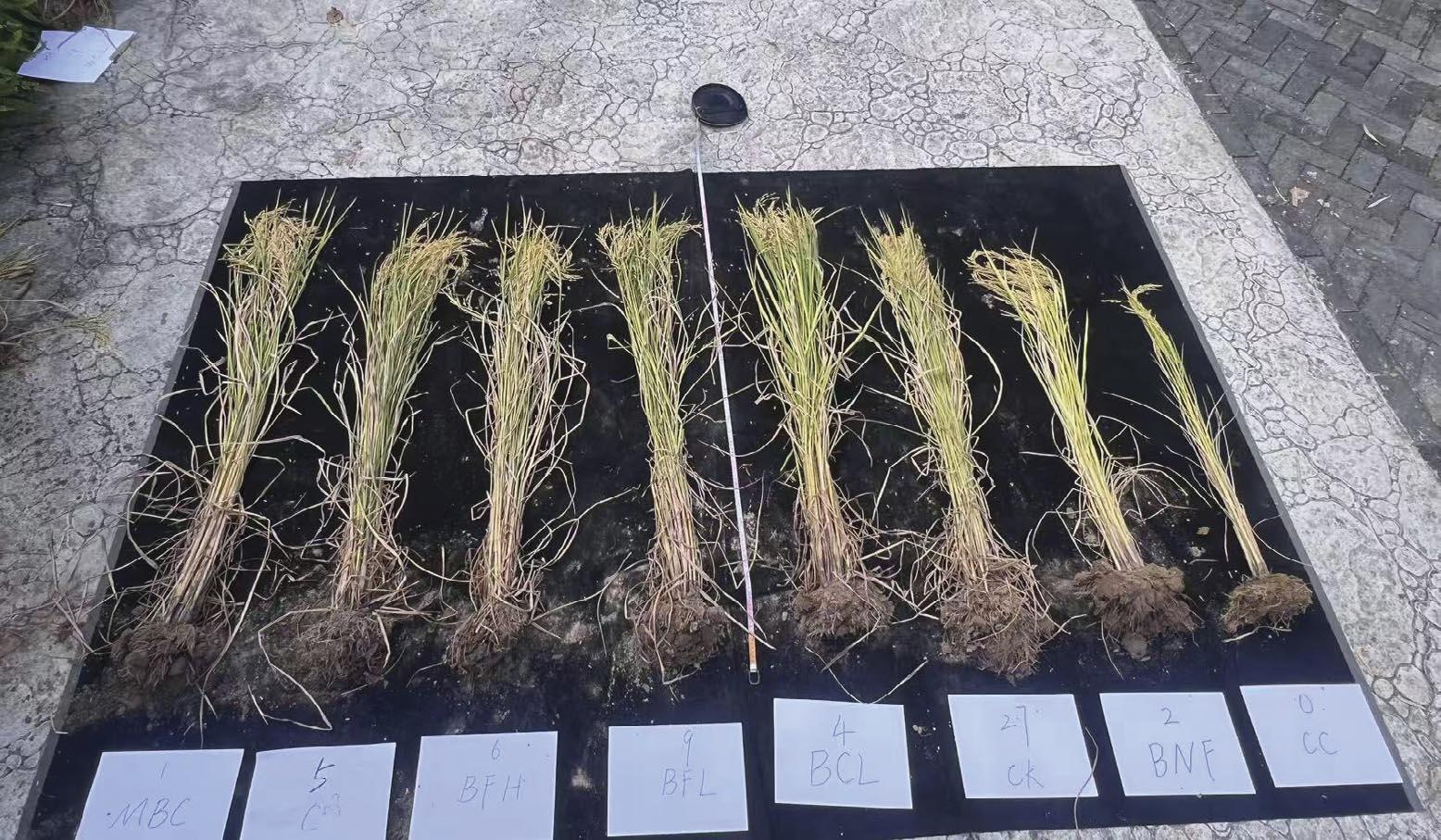
Uprooted plants set out for comparison. Roots and tillers displayed against a dark background to document differences across treatments
those who remain are mainly older villagers, and they have embraced the work needed for our project to succeed, taking evident satisfaction in being part of a serious scientific exercise. They plant and tend the paddies, apply the rock dust with the same care they give fertiliser or liming agents, and help collect and sort samples through the season. After brief training they operate the static gas chambers, noting times and conditions and drawing samples that we later analyse, and they grind the clay-rich soils to consistent grain sizes at the field station so that chemical measurements are comparable across plots and days. Their knowledge of irrigation rhythms and of how a field drains after it rains often gets us to the right place at the right time for pore-water sampling and for checks on pH and conductivity. In practice, this collaboration turns a climate experiment into a community enterprise, improves the continuity and quality of our measurements, and builds the local familiarity that any larger-scale deployment may soon require.
What have we learned so far? The most consistent early signals were unexpected –rather spectacular changes above ground rather than chemical signatures. Plots treated with silicate rocks showed obvious increases in rice seedlings in the first month of growth. So much so that a couple of bags of surplus basalt, leftover from the original application of rock powder and abandoned at the side of the road, quickly disappeared to be (presumably) adopted by a villager or two for their own experiments! After rainfall we see the expected shifts in pore-water pH and conductivity, and we can detect changes in alkalinity in soil pore water consistent with silicate dissolution. Soil pH shows gentle moderation where acidity is highest at baseline. As for yield and plant health, the sensible approach is to aggregate across seasons before drawing conclusions; farming is noisy, weather is variable, and novelty effects can mislead, but the signs are already encouraging. The discipline is to hold course, keep measuring and let the statistics tell us what is real.
An important operational result from Liangping this season is that ERW-treated plots, managed with only about half the usual NPK chemical fertiliser application, showed increased vegetative growth and higher grain yield relative to our untreated baselines, and stronger plants than the neighbouring paddies with typical fertiliser and liming approaches. The implication is twofold. First, partial substitution of chemical fertiliser by rock-derived alkalinity and silica delivers avoided emissions from fertiliser manufacture and transport and may also reduce nitrous-oxide formation in the field; our gas-flux measurements will test that. Second, lower fertiliser loadings, together with gentle pH moderation, offer a route to maintain production intensity while improving soil condition over time. We will repeat this regime across seasons to confirm the persistence and scale of the effect and to resolve its contribution to the full greenhouse-gas balance.
Urban farming units: control where the field is messy
At the other end of the spectrum we are also running urban farming unit experiments. These are controlled environments, plant growth chambers constructed from re-purposed 40’ shipping containers, in which rice grows under LEDs and automated irrigation, the substrate is defined, and the air and water are instrumented. We can even fertilise crops with increased atmospheric CO2. This approach allows clean comparisons of rock type and grain size and make it possible to follow the carbon balance closely as plants grow. Here we can isolate the effect of rock dust on water chemistry and on plant traits such as stem strength and silica content without the
confounding knock-on effects of weather or pests. It is not a replacement for fieldwork but a complement: field data anchor relevance, and controlled laboratory experiments reveal mechanisms.
Bringing the two together is valuable. If the urban unit shows a clear effect associated with silica supply and stem sturdiness, and the field shows reduced lodging under windy conditions, we can connect them. If pore-water alkalinity changes in the controlled system match the field response after storms, we can be more confident in the estimation of carbon removal per hectare.
Why measurement and verification dominate the conversation
Enhanced rock weathering can only contribute to climate mitigation if the accounting is honest and conservative. Measurement, reporting and verification (MRV) is therefore not an administrative add-on but the core of the programme. Field chemistry offers observable markers – pH, alkalinity and dissolved inorganic carbon – that track the direction and magnitude of change. Weathering proxies in pore waters and streams, combined with discharge measurements, allow flux estimates. Models provide the conversion from observed chemistry to tonnes of carbon dioxide removed, but the data drive the models rather than the other way around. The same discipline applies to greenhouse gases: methane flux must be measured before and after treatment to ensure no unintended increases offset the benefits.
The life-cycle assessment sits alongside MRV. It includes the energy (and hence, generally, carbon) costs of quarrying or sourcing rock, grinding it, transporting it and
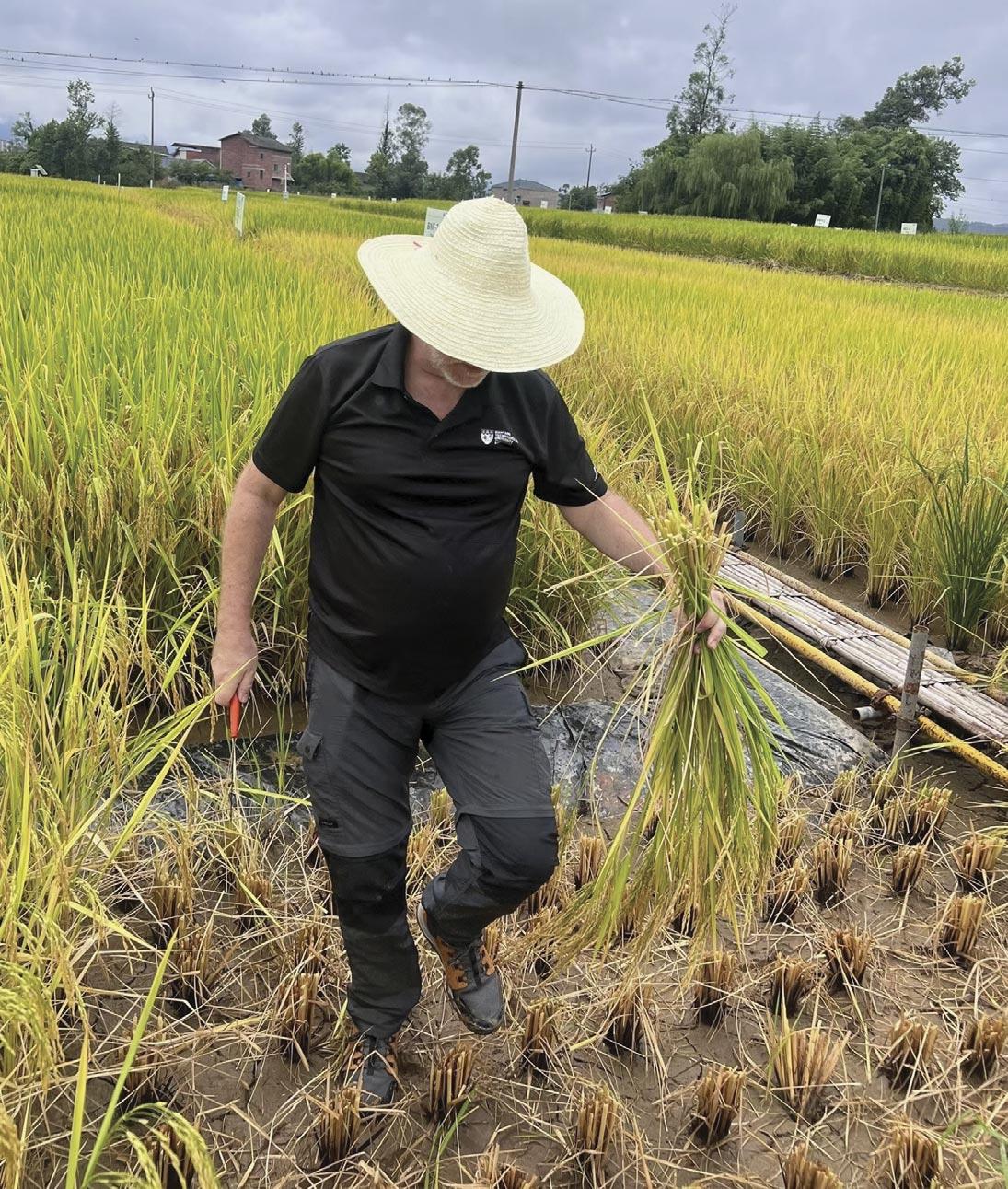
The author collecting sheaves after cutting. Field sampling following harvest at season’s end
spreading it, with the energy mix used at each stage. The goal is clear: the carbon removed must comfortably exceed the carbon emitted in doing the work. In regions such as Southeast Asia, where renewable electricity is expanding, the prospects for low-carbon grinding and logistics improve year by year. The point is not to assert certainty now, but to quantify costs and benefits as they are, and build pathways to improve them.
Why rice landscapes matter – and why Southeast Asia is central
Rice is the staple for billions and a major part of the cultural and economic life of Southeast Asia. The monsoon climate is warm and wet, which is favourable for silicate weathering. Many rice soils are acidic, especially after decades of chemical fertiliser use, which means there is agronomic value in gentle pH moderation. The logistics of deployment are helped by the scale and regularity of rice agriculture; there are established cycles of field preparation, planting and harvest, and there are existing practices such as liming in most districts. At the same time, social licence must be earned plot by plot, district by district, through transparency and co-design with farmers and local authorities.
Scaling ERW in rice systems will not be a single action but a sequence. It begins with well-characterised materials and robust field protocols. It develops through farmer partnerships in which the timing and method of application fit the calendar of work. It matures when MRV is standardised, data are shared openly and independent replication confirms results. At that point, carbon markets can credibly recognise and finance carbon removal that comes with clear co-benefits for soils and crops. None of this removes the primacy of emissions cuts. Rather, it provides a durable way to address stubborn residuals at the same time as strengthening food systems.
In the end, adoption may be driven less by carbon markets than by agronomy. If rock powders reliably moderate acidity, supply soluble silica and base cations, and let farmers cut synthetic NPK fertiliser use substantially – our Liangping regime used roughly half the usual rate – while maintaining or improving yield, the practice pays for itself through lower input costs, sturdier crops and gradual improvements in soil
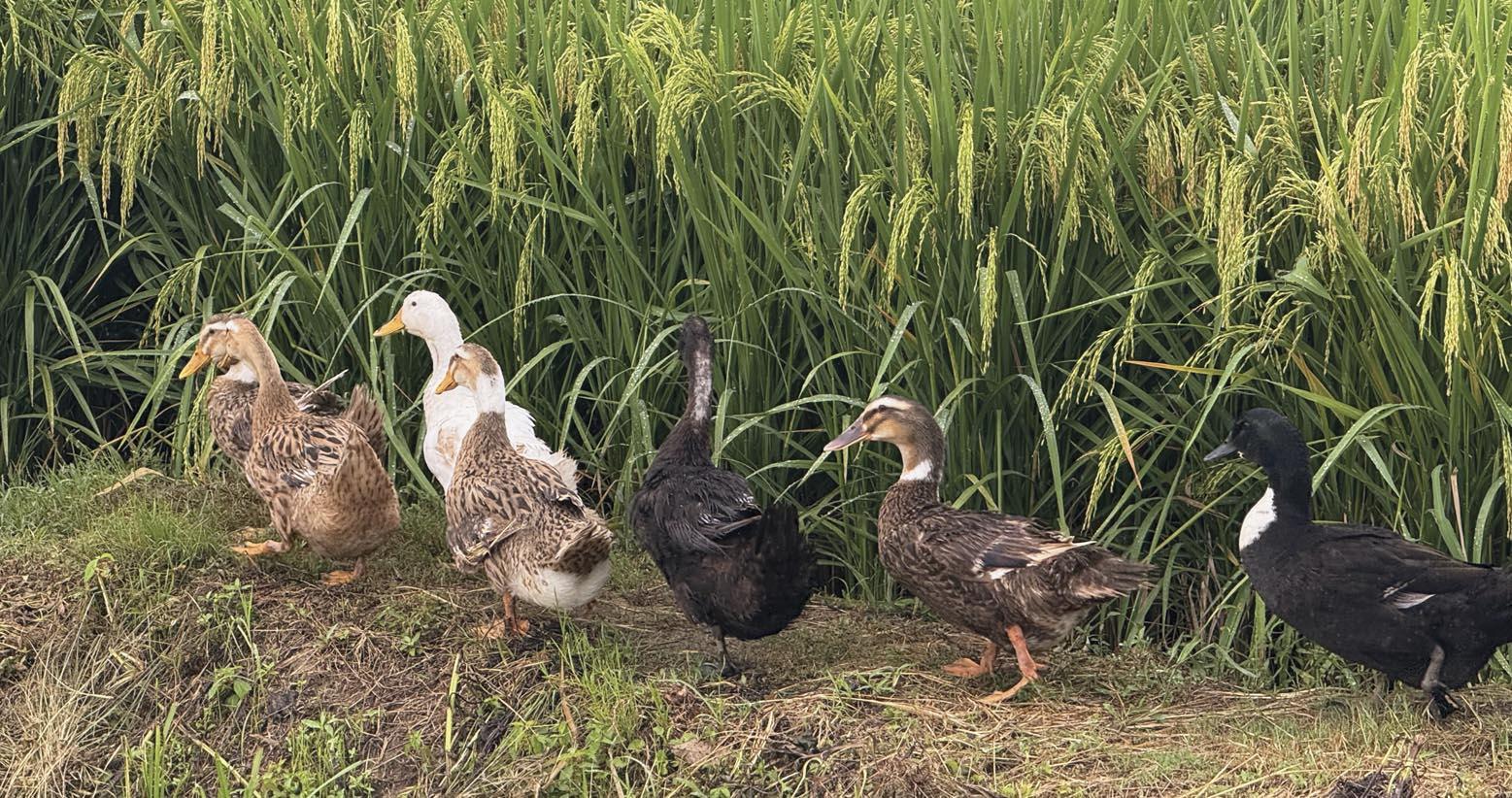
Ducks on a bund beside heading rice. Everyday ecology at the field edge during the trial
condition. Those gains are visible locally within a season, unlike credits that depend on distant verification and volatile prices. Co-operatives, mills and extension services will notice reduced lodging (crop collapse before harvest), cleaner run-off and potentially lower nitrous oxide emissions, and ERW may spread first as a soil-health practice, with carbon revenue treated as upside rather than the primary incentive.
What ERW will and will not do
It is important to say plainly what enhanced rock weathering cannot do. It will not offset the effects of continued fossil-fuel expansion; it is a complement to rapid decarbonisation, not a substitute. It may not produce dramatic yield increases everywhere; some soils will benefit more than others, and there will be years when weather overwhelms subtle chemical effects. It is not a way to ignore methane in rice systems; we must measure methane directly and treat the carbon balance as a whole. It is also not risk-free, which is why material selection and trace-element monitoring are built into the programme from start to finish.
What it can do — if done carefully, with evidence rather than rhetoric — is provide long-lived carbon storage linked to the natural geochemical cycle, and offer agronomic benefits where soils are acid and crops are silica-hungry. It is a way to enlist the rock cycle in service of climate stability while respecting the realities of farming.
The human texture of the work
Projects like Liangping live on routine and patience. Field teams install sensors, check loggers, rinse bottles, and sample season long. The site becomes familiar: the rhythm of irrigation, the sound of wind moving across panicles, the way cloud cover shifts temperature and humidity in the space of an hour. The neighbourhood farmers are curious; they watch, ask practical questions and importantly help in straightforward ways. Ducks wander through to hunt snails, the combine arrives with its clatter, and what looked like a careful grid at planting becomes a living, uneven surface at harvest. Science in such settings returns to the discipline of observation.
The season that has just closed was generous. The harvest produced around a tonne of rice from our one-hectare experimental block and a satisfying spread of samples for the laboratory. The data archive is now thick with continuous records from the weather stations and the gas flux system, and the vials and filters in our cold store bear the dates of storms and the gaps between them. The next season will repeat much of this, by design. Reliable answers in agriculture come from repetition and comparison, not from single-season anecdotes.
A practical path from experiment to deployment
If there is a case for enhanced rock weathering in rice systems across Southeast Asia, it will be made by the accumulation of evidence and by the steady reduction of uncertainty. The research arc is straightforward. Field experiments like Liangping produce empirical relationships between application rates, rock types, climate and measurable carbon removal, while watching carefully for effects on methane. Controlled urban farming unit studies reveal mechanisms and bounds. Life-cycle assessments track the emissions we incur in doing the work and show where improvements matter most. Farmer partnerships and extension translate results into practices that make sense on the ground. Carbon market standards adapt to
recognise long-lived removal with strong MRV and clear co-benefits. Policy frameworks (hopefully) then encourage best practice without crowding out caution.
The time-scale for this is not geological. It sits well within the next decade, provided we resist two equal and opposite errors: the first, to declare victory before the numbers are in; the second, to hold the bar so high that no emerging approach can clear it until after the climate has moved further from where we wish to keep it. Between those extremes lies serious work: open methods, shared data, independent replication and a healthy scepticism that makes a programme stronger rather than weaker.
From Liangping outward
Standing at the edge of the site after harvest, the neat rectangles now roughened by stubble, it is easy to see both modesty and possibility. ERW may not be a silver bullet; there are none. But it is a tangible way to work with Earth’s chemistry at human scale, using up-cycled rock powders and existing farm machinery, guided by measurement rather than hype. In Liangping it unfolds as routine agriculture with added instruments. In urban units it is a set of controlled comparisons. Together they form a bridge from hypothesis to practice.
The broader ambition extends across Southeast Asia. Rice landscapes there combine climatic suitability with cultural centrality. If the evidence continues to build, rock weathering could join the toolkit of farmer-led soil care, and carbon removal could become a co-product of resilient food systems. The first tonne from our hectare in Chongqing is not a milestone that proves a theory; it is the substance with which we will make a meal, in thanks to collaborators and friends, while the data that accompany it carry the weight of the argument. The feast will be welcome. The numbers that justify doing this at scale will be the real reward.
For more information on this project follow us at www.carbonsynk.solutions n

The field team and neighbours at the trial site at the end of a season of measurements
Using AI to improve fertility and IVF outcomes
Mo Vali
PhD Physics student, Mo Vali, is based at the Cavendish Laboratory where he co-leads an initiative at ai@cam, the University’s first flagship mission using AI to solve important societal problems.
Global fertility rates are declining rapidly, with the most pronounced impact in developed nations. In the UK, between 2022 to 2023, the birth rate decreased to 1.44 per woman, the lowest since records began. This poses an acute social problem; lower birth rates may increase fiscal pressures and lead to what economists call a ‘demographic crunch’, due to a smaller workforce supporting a larger, ageing population. Naturally, many couples who do want children face economic constraints; prohibitive costs of raising children, job insecurity, availability of housing. As childbearing age rises however, many couples who do want children often need to utilise assisted reproduction methods, such as in vitro fertilisation, or IVF.
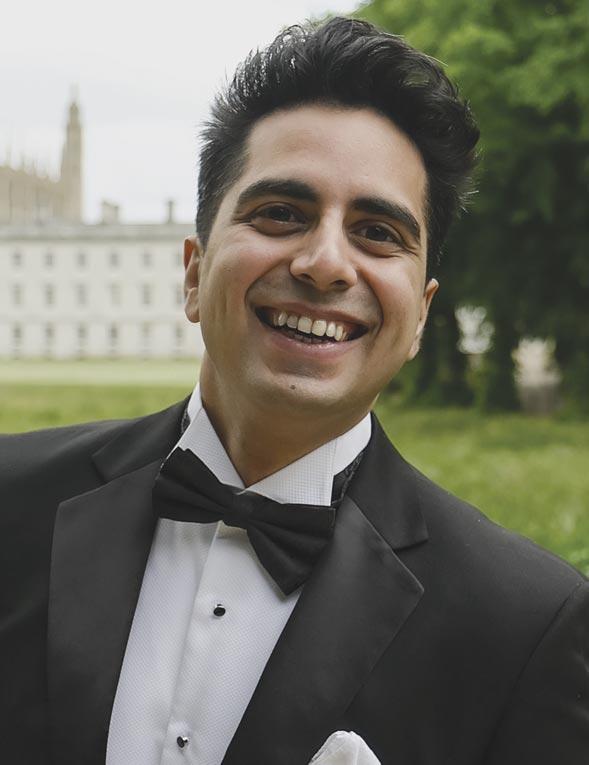
Since the first IVF baby in 1978, IVF is now the primary treatment for infertility globally. As The Economist puts it, the world contains ‘12 million people who started off in laboratory glassware’. Pioneered by Professor Robert (Bob) Edwards, a Cambridge professor and Fellow of Churchill College Cambridge, Patrick Steptoe, a practicing OBGYN in Oldham, and Jean Purdy, an embryologist, four IVF babies are now born every three minutes.
Despite these early successes, IVF remains highly invasive, expensive and ineffective. The process involves multiple hormonal injections taken periodically and can be physiologically bruising and intrusive. The cost of an IVF cycle in the US is c$20K, slightly cheaper at c£10K per cycle in the UK with additional tests. Importantly, there is no guarantee of success. IVF birth rates for 18-34 year-olds are 35%; 10% for 40-42 year-olds (HFEA).
Yet during IVF treatment, substantial data is collected – ultrasound scans, blood tests, various IVF tabular data. So how can we utilise all this data to improve diagnosis of fertility issues and IVF treatment? That is the core question at the heart of our ai@cam project.
There are many open scientific questions: which attributes are important in determining whether an IVF treatment will be successful? What factors affect ovarian reserve and reproductive lifespan? Ultimately, what are the cellular, molecular and genetic factors that shape life?
Data will be key in helping us navigate the multi-factorial and complex nature of fertility. As a Physics PhD candidate, I’m interested in understanding the fundamental drivers of fertility. Most of the innovation has been commercial-led, with IVF practitioners tinkering at the edges (using better embryo culture media, oocyte preservation protocols etc). Despite this, IVF success rates remain persistently low.
Our aim is to help with diagnosis, putting the science on a more rigorous footing, and reducing misinformation in this space. Ultimately, our goal is to work towards delivering a tangible solution for those who want to start a family but must undergo this physiologically, emotionally and financially taxing treatment.
On the computational side, our work involves developing platforms to process all data modalities collected in an IVF cycle to make predictions of the likelihood of a successful embryo transfer, as early as possible during IVF treatment. Crucially, we are trying to make these models more transparent to help clinicians explain the AI’s reasoning to patients. Our goal is to make models diagnostic only, with all decisions to be made by a clinician. Despite (somewhat rudimentary) AI computer vision models currently being deployed in clinics to assist with embryo selection, the full potential of AI is yet to be realised. On the wet lab side, one of the projects involves analysing follicular fluid, fluid collected during egg collection. Our hope is that there are compositions of follicular fluid that may influence the likelihood of a successful IVF cycle.
Fertility in numbers
1. Percentage of IVF treatments that resulted in a live birth in 2019, by age1
a. <35: 32%
b. 35-37: 25%
c. 38-39: 19%
d. 40-42: 11%
e. 43-44: 5%
f. >44: 4%.
2. Cost of one IVF treatment in USA: c.$20K.2
3. Average number of IVF treatments required to get pregnant: 2.5.3
4. Average age of a first-time mother in South Korea: 33.5.4
5. Number of whale species which experience menopause: 5 (only humans and whales).5
6. Number of eggs in utero: 7 million. Number of eggs at birth: 1 million.6
7. Size of global IVF market: $35 billion.7
8. 1 in 3 IVF cycles done through clinics owned by private equity funds.8
We have already established world-class collaborations, notably with The Lister Fertility Clinic in London, one of the most successful IVF centres in the UK. We hope to collect data, run pilot trials and ultimately look towards product commercialisation. We want to translate our research from lab to clinic and from womb to world by developing rigorous tests to improve clinical outcomes that will benefit the wider public – helping couples make informed decisions on the individual success rates of their IVF treatments and providing options for less invasive tests.
What does the future of AI in fertility look like? First, ethical issues abound. Fertility treatment involves the collection of highly sensitive and personal data, and the use of AI in fertility will necessitate stringent regulations for it to be safely deployed. Second, systems trained on datasets from one clinic may not be representative of a diverse population across race, ethnicity and socioeconomic status. Known as ‘algorithmic bias’, this is a key problem affecting AI models in healthcare. Care must be taken early on in the data collection phase to ensure model outputs are accurate and do not deliver unfair IVF outcomes. Finally, many advanced AI models operate as ‘black boxes’, meaning their decision-making processes can be opaque. We must ensure model predictions can be explained (i.e. why is the model making this prediction for this patient?), particularly in a sensitive clinical setting like IVF.
We are approaching these and other challenges in an innovative manner, harnessing the full capabilities of AI to answer some of the open scientific questions in fertility, and ultimately help people build families. We are actively seeking partnerships with consultancies, clinics and academic researchers to address foundational questions in reproductive health using state-of-the-art AI methods. Please get in touch at mv487@cam.ac.uk and we would be delighted to discuss collaboration opportunities. n
References
1 NHS data 2025.
2 & 3 Conrad, M. & Grifo, J. (2023) ‘How much does IVF cost?’, Forbes Health. [online] Available at: https://www.forbes.com/health/womens-health/howmuch-does-ivf-cost/
4 Yi, W.-W. (2023) ‘Korean women enter motherhood at more advanced age’. The Korea Times, 31 August. [online] Available at: https://www.koreatimes.co.kr/learningenglish/20230831/lifestyle-koreanwomen-enter-motherhood-at-more-advanced-age
5 Ellis, S., Franks, D. W., Nielsen, M. L. K., Weiss, M. N. and Croft, D. P. (2024) ‘The evolution of menopause in toothed whales’, Nature, 627, pp.579-585. doi:10.1038/s41586-024-07159-9.
6 Schuh, M. (2022) ‘What happened to my eggs?’, Bourn Hall Clinic Fertility Blog, 7 April. [online] Available at: https://www.bournhall.co.uk/fertilityblog/what-happened-eggs/
7 & 8 Stern, N. (2024) ‘The fertility industry: Profiting from vulnerability, The Lancet. [online] Available at: https://www.thelancet.com/action/showPdf?pii=S01406736%2824%2901484-3
Tracing the recitations of John Coltrane
The Rev’d Dr James Crockford, Dean of Chapel and Fellow
In this article, the Rev’d Dr James Crockford looks at the spiritual shift of jazz musician, John Coltrane, and how it shaped his later music. He explores Coltrane’s use of modal and Indian scales, and his move toward freer, more expressive playing as a form of spiritual practice.
John Coltrane (1926-67) enjoys a legacy within jazz history as much for his distinctive and intense saxophone playing style – memorably described as like ‘sheets of sound’ – as for his eclectic religious explorations and the sense of spiritual vocation that latterly framed his musical development. Pivotal to this later turn is his ‘awakening’ in 1957 – an experience of profound peace and grace, in which he felt God led him to ‘a richer, fuller, more productive life’ and gave him ‘the means and privilege to make others happy through music’. Later works – though decidedly less popular and more challenging to the listener – signal these sentiments in their titles, with albums such as Ascension, Meditations and A Love Supreme, and tracks such as ‘Serenity’, ‘Dear Lord’, ‘Offering’, ‘Compassion’ and ‘Amen’.

The spiritual concern of many of Coltrane’s last works runs deeper than titles, though. At the time, he was (in that very sixties way) embracing a breadth of religious and philosophical ideas – from Sufism, Buddhism, Hinduism and astrology, to clairvoyancy and theosophism, as well as re-engaging with his Southern Methodist roots. Similarly, he harnessed an interest in diverse musical approaches, drawing on Indian rāga and various folkloric melodic systems from around the world, often conflating distinct traditions in the process. Core to this religious and musical syncretism is a universalist conviction. He was searching for a universal spirituality and a universal music: for Coltrane, these are two sides of the same coin.
Such breadth of appropriations offered Coltrane ways to restructure his playing and inflect his music with a sense of rituality and otherness. Improvisations became longer and longer, with little thematic material and underlying harmonic progression.
Jazz journalist Tony Gieske noted Coltrane’s ‘endlessly circulating chords’, hinting at the mesmeric quality of Coltrane’s vamps, over which he would improvise freely, wildly, sometimes raucously. Coltrane hoped the experience for listeners was an ‘act of participation’ in which they too were ‘moved the same way…to such degree’, his music able to ‘produce effects’ and perhaps in time a ‘hypnotic mood’. Coltrane very much envisages this new work as a ritual occurrence in which one is arrested by the pursuit of musical and spiritual – and indeed political – freedom.
From 1963, there are signs that Coltrane began to employ texts in a variety of ways to frame the spiritual craft and statement of his music. I do not mean here the packaging of track title references or liner notes (Coltrane disliked the latter and
mostly left them to others to pen), nor the obvious inspiration Coltrane took from various authoritative religious texts. Rather, Coltrane variously exhibits performances that involve a recitation, in some way, of a text. In considering the ritual dynamics of his emerging approach, such incantations are significant – but what is bemusing and intriguing is how hidden he keeps the texts themselves.
A first key example occurs late in 1963. In October, a group of white supremacists bombed a Baptist Church in Birmingham, Alabama, killing four young girls.
Martin Luther King Jr gave a powerful eulogy at the funeral. The following month, Coltrane recorded a track entitled ‘Alabama’, released the next year, but which his quartet played live on television that December. The track opens with the rest of the quartet maintaining a rumbled tone on a chord pedal with rustling cymbals; over the top, Coltrane recites a speech-like, meandering lament on his soprano saxophone. There is a short, central in-time improvisatory section, before the recitation returns. Importantly, while the middle in-time section is freshly improvised, the opening and closing recitation are the same on both the recording and the television performance – that is, they are not improvised, but scripted.
Although his quartet didn’t know it at the time of recording, and Coltrane himself never clarified, it is generally thought that Coltrane was reciting material from King’s funeral speech. However, it doesn’t map straightforwardly onto the copies of the speech we have – including full text, published edits, and the audio broadcast –though enough points of comparison can be found for the theory to stick. It seems Coltrane is simultaneously grounding this piece in a particular performed speech, which he reperforms a rendition of – not a mere off-the-cuff improvisation on it –and yet he has reworked it so freely, and never encouraged the textual associations and references himself (besides calling it ‘Alabama’). As such then, the point in hearing it is not to be able to refer the recitation back to the content of King’s oration directly. Rather, it forms an exercise in inhabiting one orated text and liberally reformulating it into a musical gesture largely devoid of textual utility. Coltrane translates the tonal phrases and cadence into an instrumental recitation, an homage of his own to the victims.
Second, just months later, Coltrane records the manifesto to his spiritual charge, A Love Supreme (released in 1965). The suite articulates a spiritual journey, coming to rest in its fourth part, entitled ‘Psalm’. Unusually, Coltrane wrote the liner notes –a biographical comment on the spiritual intent of the work and a text entitled ‘A Love Supreme’. The text is a prayer-poem comprised of familiar phrases and ideas from various religious traditions, predominantly Christian and biblical here. Coltrane’s liner tells us that the concluding ‘Psalm’ is a ‘musical narration of the theme ‘A LOVE SUPREME’’. Analysis confirms this as a free-time syllabic recitation of the prayer-poem supplied in the liner. Coltrane is singing/speaking the poem through his saxophone (and Coltrane’s sketches, not long discovered, confirm this intent).
In one sense, as an instance of Coltrane’s employment of a clearly religious text in producing and presenting his music, A Love Supreme stands out. Coltrane himself told reporters that he preferred the music to ‘speak for itself’; in A Love Supreme, though, we have his own texts front and centre facilitating the reception of the album by listeners, and providing clear references to the meaning and intent of his music, especially the psalm he prays and plays.
In another sense, however, Coltrane hides and diminishes the text’s role, and reduces its relevance to his musical recitation. Drummer Elvin Jones was unaware during the recording that this was a recitation of the poem. Coltrane, when asked in 1965 whether the ‘poem that you wrote [helps] with understanding the music’, said ‘Not necessarily. I just wanted to express something that I felt.’ That comment came at a festival in France where the quartet had played A Love Supreme live, with a rendition of ‘Psalm’ that was completely different (unlike the identical recitations of ‘Alabama’). This and the other live recording recently discovered have no syllabic parallels to the liner text. The script of the prayer-poem, then, although unusual as a form of explicit textual mediation in Coltrane’s works, nonetheless does not serve as textually normative for all performances. Rather, even where he is consciously choosing to adopt an incantatory style, we see Coltrane’s emphasis away from performances scripted and determined by the text, toward freshly immediate and indeterminate improvisations.
A third set of examples is found around the same time, in recordings of late 1964 and early 1965, mostly found on the album Crescent. Here we find evidence of Coltrane developing his method of working from written text material, but fully transposing them into a musical narrative (as he called it) and deliberately shielding reference to the texts themselves. The recordings include three tracks which, when asked directly, Coltrane described as being based on ‘poems’. Two of them – ‘Lonnie’s Lament’ and ‘Wise One’ – have little to suggest Coltrane is playing a text like a poem on the track; the poems have inspired the music, without being spoken into it in the process. However, the track entitled ‘The Drum Thing’ has the unmetered articulation and regulation of chanted speech. Nevertheless, that is as much as you can tell as to there being a textual basis to what Coltrane is playing; what is being recited remains hidden from view. A couple of other examples of the time – ‘Attaining’ and ‘Song of Praise’ –exhibit a similar, speech-like style to Coltrane’s lines, but again, no suggestion as to what text lies behind his playing; whatever it was is fully translated from its linguistic form and referential meaning, and is subsumed in Coltrane’s musical articulation.
Finally, in 1965, a quite different example, in the recording of the one-track album Om, released only after Coltrane’s premature death in 1967. Here we have a more
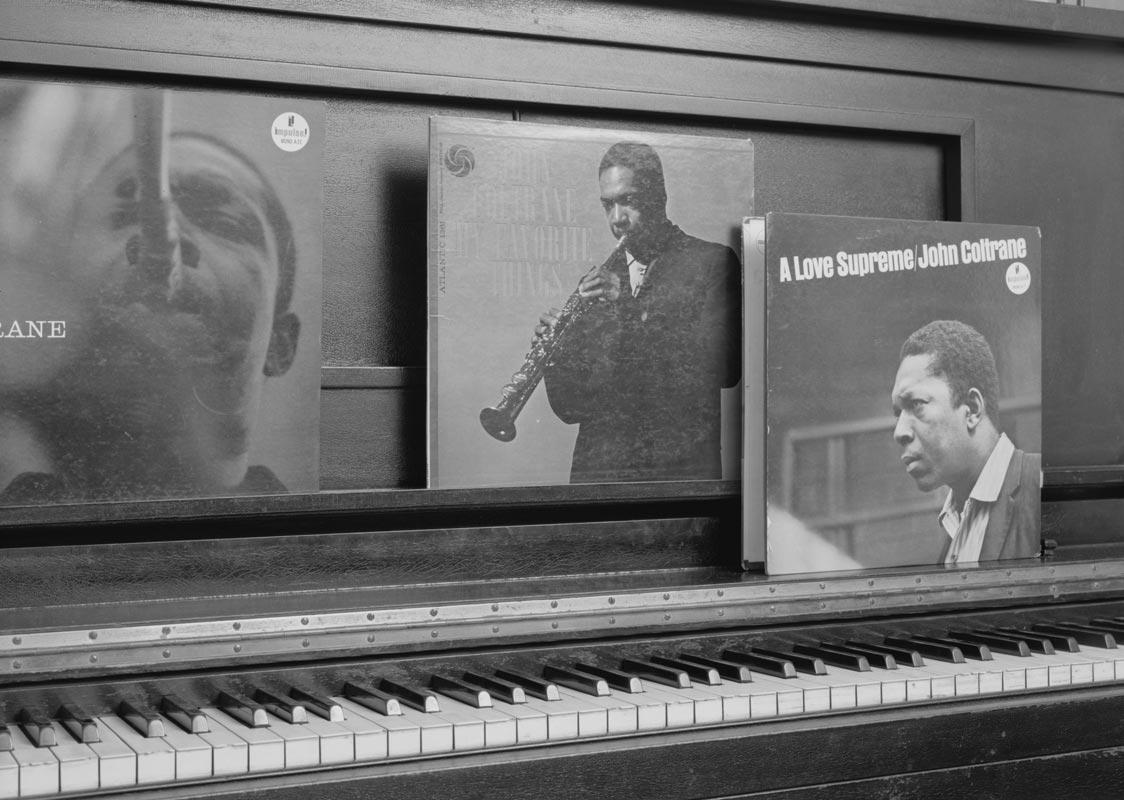
Photo taken at John Coltrane House, Philadelphia (Wikimedia Commons)
literal use of a traditional religious text. In this recording, Coltrane is drawing on the Hindu concept of ‘Om’ as, he said, ‘the first vibration – that sound, that spirit, which set everything else into being. It is The Word from which . . . everything else comes, including all possible sounds that man can make vocally.’ In this concept Coltrane found a compelling coincidence of the musical and religious claims he fostered.
At the opening of the recording, Coltrane and other performers can be heard speaking together a verse from the Hindu scriptures, the Bhagavad Gita:
Rites that the Vedas ordain, and the rituals taught by the scriptures, all these am I… I, the oblation and I, the flame into which it is offered. I am the sire of the world, and this world’s mother and grandsire... I make all things clean. I am Om… Om!
After this opening chant, the ‘omic’ sound is released in an array of atonal and unmetered instrumental playing, with what has been described as ‘non-lexical singing’ and ‘animal sounds’, for the remainder of the album’s one track. This instance of a clearly worded recitation of a religious text is unusual in Coltrane’s work. Yet even here an opening, very clear statement of the text gives way to an expansive, unscripted group improvisation where metre and tonality no longer shape the musical language. It is no surprise that comparisons were made about Coltrane’s works of the time that his emetic playing was like ‘speaking in tongues’ – a kind of spiritual nonsense that refuses the crispness of tune and the referential clarity of language, but is thought to express both (in St Paul’s terms) the deep sighs and groans of human longing for redemption and the ecstasy of divine communion for which all words fail.
To conclude, why is contesting the roles of texts in Coltrane’s ritual and recitative practice of interest to considering his musical and spiritual work? In religious traditions, the authoritative role of scriptures is often contested, particularly where related to music. For those anxious for the clarity and centrality of a holy text, the ‘word’ of the text must take the lead – audible and unembellished, not obfuscated, distorted or queried by the music. Conversely, a musical engagement with a religious text can provide a form of reinterpretation, questioning or reimagination of traditional readings, especially by marginalised or dissenting voices. The status of the text is a loaded one, especially in relation to the role that the music itself is allowed to play – subservient, or subversive, or somewhere in between.
As Coltrane charts a course for his music to provide a spiritual exploration, expression, and experience, it is in the immediate and indeterminate encounter with non-linguistic musical sound and ritualised improvisation that he aims to effect this, consciously refusing to use his musical craft as a vehicle for restating textualised beliefs, doctrines or assertions, or for establishing specific religious details and orthodoxies. Coltrane drew on a rich and eclectic range of textual material and influences in the process, but his search for a universal sound and universal religion necessitated an approach by which word gave way to sound, textual reference to sonic immediacy, script to spirit.
Read more in the full article: James Crockford, ‘A Love Supreme: Mediations of immediacy in jazz ritual and recitation’, Yale Journal of Music & Religion 9(2), 2024, pp 9-30. n
Between two tongues: studying Hinglish, bilingualism and code-switching
Nikita Jain
Nikita Jain is studying an MPhil in Linguistics. Her research has focused on phonetics in the English and Hindi languages.

I always loved languages at school; I would look forward to French lessons and relished the challenge of expressing myself authentically in another language. I soon realised that my main interests were more technical in nature, and I remember asking my teachers many, many questions about linguistic rules, conjugations, and just why grammatical gender is so arbitrary and complicated. When I started my undergraduate degree in French and Linguistics at the University of Oxford, I realised that linguistics encompasses so much more than grammar. The traditional definition of linguistics is “the scientific study of language”, but this belies how broad it is as a field, ranging from the historical aspect and the reconstruction of ancient languages, to studying how the brain processes language, to constructing Large Language Models. Over the course of my undergraduate and postgraduate degrees, I have chosen to specialise in phonetics, the study of speech sounds, as its technical nature appealed to me and I appreciated the chance to analyse empirical data.
My master’s research and the dissertation component gave me the perfect opportunity to conduct a phonetics study. I was inspired while watching a Bollywood film and seeing how often the characters switched between speaking English and Hindi. My experience around bilingual speakers of the two languages made me aware that this is also very common in the speech community, so much so that the blended term ‘Hinglish’ is now used to refer to the variety spoken by many speakers today which involves frequent code-switching between the two languages. Therefore, when I first came across the phrase “phonetic effects of code-switching”, I immediately knew it was the right niche for me and my interests. The phrase refers to changes in a speaker’s pronunciation or speech patterns when they switch between two language varieties while speaking. These shifts can be observed in vowel or consonant pronunciation, pitch, intonation, or broader accentual qualities.
I had never been able to study Hindi, my heritage language, in depth before, and I was really excited to be able to construct my own study where I could bring together my interest in phonetics and a key part of my linguistic identity. The British colonisation and subsequent rule of India led to English becoming an official language in the country, and its influence is widely felt in Indian society. This adds another layer of depth to the interactions between English and Hindi, and studying the phonetic effects of code-switching for this pair of languages can help us
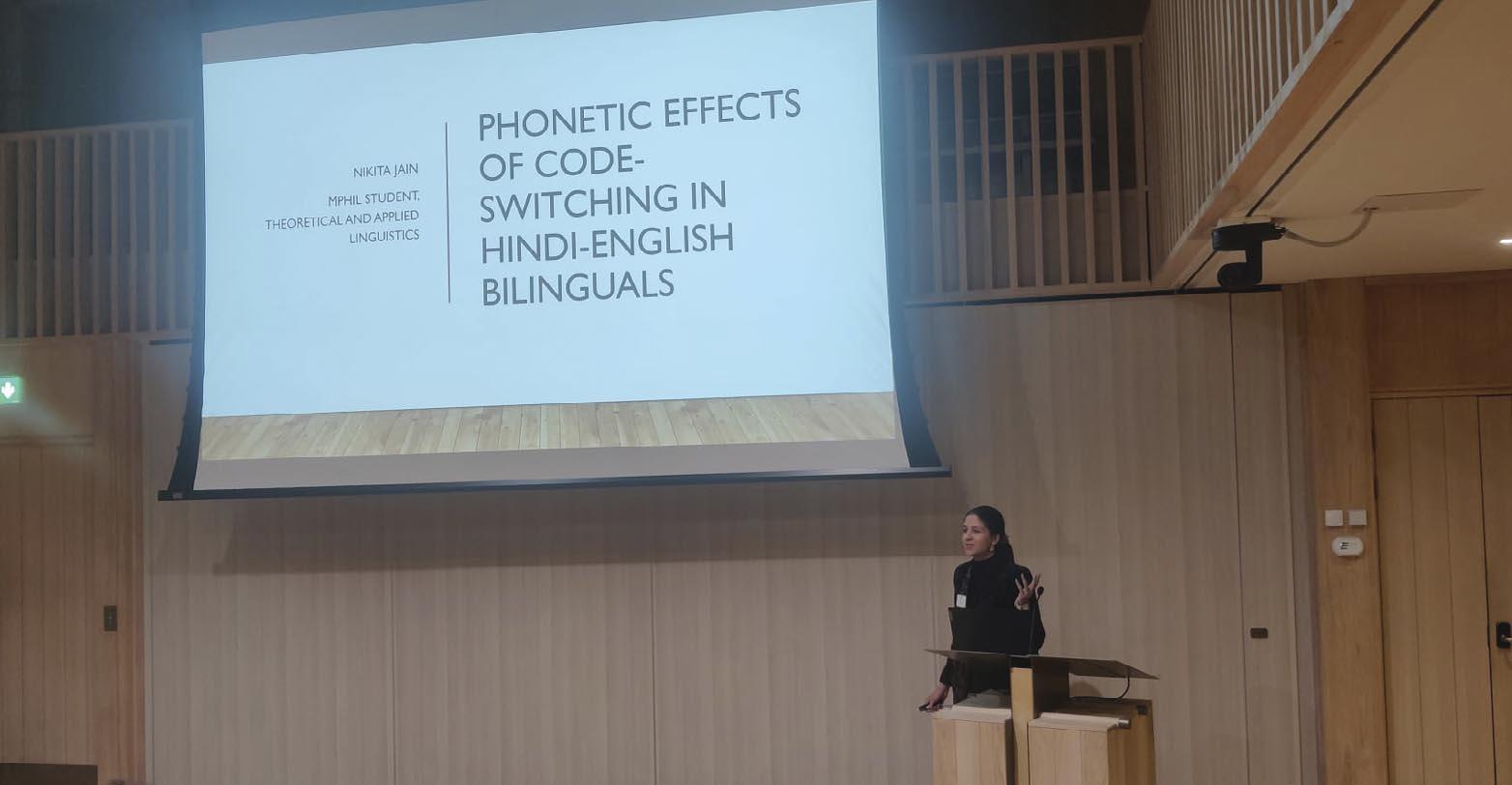
Presenting at the Graduate Conference
understand how speakers use language to navigate their identity and social dynamics, and express cultural belonging.
I conducted my research in two stages. As a preliminary project, I analysed interviews from two Bollywood actors where they either spoke only English (the monolingual context) or code-switched between Hindi and English (the bilingual context). My main finding concerned what linguists call the ‘ash’ vowel /æ/ (for example in ‘cat’ or ‘bat’). I found that when English words with this vowel were embedded in Hindi sentences in the bilingual interviews, the actors would shift the vowel further forward in the mouth to make it sound more like how it would be pronounced in Hindi. The vowel was also lengthened compared to a monolingual context. I really enjoyed presenting my initial results at the Postgraduate Conference in March, and I was very grateful to receive a prize for my presentation.
For my MPhil dissertation, I was keen to expand what I had done into a primary study, where I could recruit participants and design the speech materials myself. On the recommendation of my supervisor, I recorded bilingual speakers both in the Phonetics Laboratory at Sidgewick Site and in India over Easter. I devised sentences and passages for the participants to read aloud, as well as a language questionnaire to gain an overview of their language history, competencies, and attitudes. I had never conducted linguistic fieldwork before, let alone abroad, and I am incredibly grateful to everyone who gave up their time so willingly to take part in my study. As with any research, there is always the inevitable wish for more participants, and I did face some logistical challenges whilst recording in India, as a couple of recordings had to be discarded due to background noise. It was also sometimes slightly difficult to explain what I was doing to people who were not in the academic bubble of Cambridge, but I was very glad to have been able to compare speech trends across the two locations.
Afterwards, it was time for the data analysis. This involved pre-processing of the audio files to segment the vowels in the relevant target words. Then, I ran a computerised
script in Praat, an invaluable piece of speech software for phoneticians, to collect information about the vowels’ formant frequencies, fundamental frequency (the rate of vibration of the vocal folds) and duration. The formant frequencies of a vowel reflect the resonances in the vocal tract while the vowel is produced, and they show as dark bands on a vowel spectrogram. Virtually all vowels can be distinguished from each other using the first two formant frequencies, which correspond to the dimensions of height and backness in the mouth respectively. Small changes in formant frequencies can be detected and plotted to visualise how vowels shift depending on the linguistic context.
My overall hypothesis – that the pronunciation of code-switched vowels shifts towards the most recently spoken language in the sentence – was confirmed across the English and Hindi vowels I investigated. I found that this effect applied much more strongly to the English vowels; they were more likely to shift towards the Hindi phonological system than vice versa. I also observed some divergence effects, particularly amongst speakers located in Cambridge, who sometimes realised code-switched English vowels closer to how we would expect them to be pronounced in British English. This shows the influences of the ambient speech community.
One surprising pronunciation concerned the duration of the vowels in a monolingual versus code-switched context. I expected code-switched vowels to be longer than monolingual vowels in both languages. However, what I instead observed was akin to a convergence effect. This indicates that the phonetic effects of Hindi-English code-switching manifest differently to those in other language pairs which have been studied. Linguistic research is always aiming to determine whether trends or patterns occur cross-linguistically (applying to many different languages) or whether certain languages behave differently to others, and if so, whether this can be linked to features of those languages. I also had to determine possible reasons for the differing results between my preliminary study and my main primary study. I concluded that the type of data (spontaneous speech versus recorded read speech) played a role in the
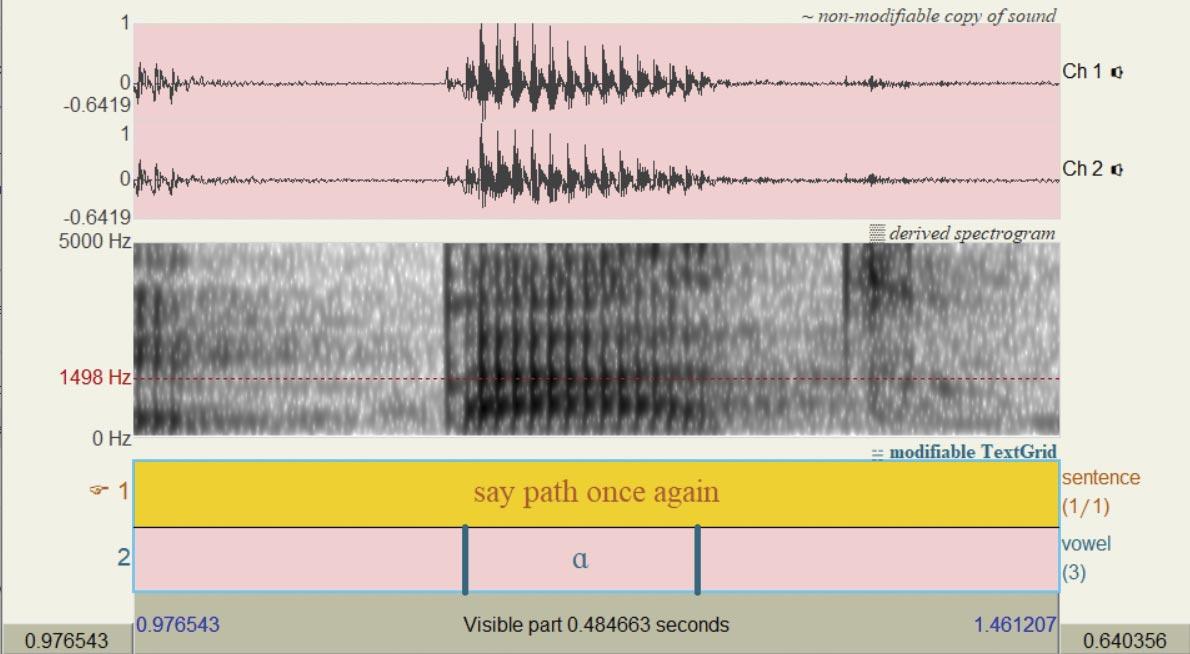

results I obtained, and that there was scope to repeat the study I had done on a broad range of vowels using spontaneous recorded speech.
My research made me realise that code-switching is a very individualistic phenomenon, influenced greatly by a speaker’s linguistic identity and how they view themselves in relation to the languages they speak, as well as how they want to convey themselves in wider society. I also learnt to adapt when things did not quite go to plan out in the field, and I acquired many new analytical and statistical skills which taught me to think logically, particularly when solving issues with troublesome code! Above all, I have cherished the opportunity to conduct linguistic research which can deepen our understanding of bilingual speech and code-switching, exploring how speakers navigate between their languages in relation to their linguistic, social and cultural identity.
I’ve decided to take a step back from academia for now, and I’m really looking forward to starting an Air Traffic Controller training course with NATS. The fast-paced nature of the role appeals to me, and I’m keen to use the communications skills I’ve acquired during my degree. I’m excited to see how research in the field continues to evolve – and who knows, maybe I’ll find myself contributing to it down the line. Never say never! n
Nikita in India
The History of the Coleridge Society
John Cornwell
Fellow Commoner Emeritus, John Cornwell, is a journalist, author and academic. His scholarly work includes a critical biography of Samuel Taylor Coleridge, Coleridge, Poet and Revolutionary, 1772-1804, and his involvement in the Coleridge Society dates from 1991.
It might seem odd to name a society after an undergraduate who went down without a degree, leaving a stack of unpaid bills. Yet Samuel Taylor Coleridge (alumnus 1791-1793) richly deserves memorialising as a great poet of the language, a brilliant prose writer, theoriser, and intellectual, who made extraordinary connections between disciplines. It all began on October 1888, when George Townsend Warner, classicist and Fellow of the College, chaired a meeting of 27 persons, dons and students, to hear a paper on ‘Myth and Legend’ by an undergraduate V. G. Lias. The gathering was dubbed the Literary and Philosophical Society. The minute writer judged the paper “very interesting but dishevelled in method”; that his delivery was “good but not brilliant”.
During Lent Term 1889, 10 February, the minutes recorded that “Mr Gray, Fellow and Classical Scholar” (later Master) announced that he had written to Lord Chief Justice Coleridge, a descendent of the poet, inviting him to attend a meeting. Lord Coleridge never made it to Jesus, but the Society was now in STC’s name. By Lent Term 1891, however, the Society appeared to be languishing: the minute writer complained “we were unable despite all our efforts to entice more than three readers into our net”. The lament preceded the sudden end of recorded minutes. The final entry for the society’s ledger notes that, on 3 March 1895, A. J. S. Downer read a paper on the newly discovered ‘Argon element’.
A brief recorded resurrection occurred on 23 February 1918 when a ‘Junior Coleridge Society’ meeting was held in the rooms of L. A. Pars. Alan Pars was an undergraduate aged 21 years, destined to serve as a Fellow of the College. Evidently Mr Pars believed that the Society should be run by students, and that it
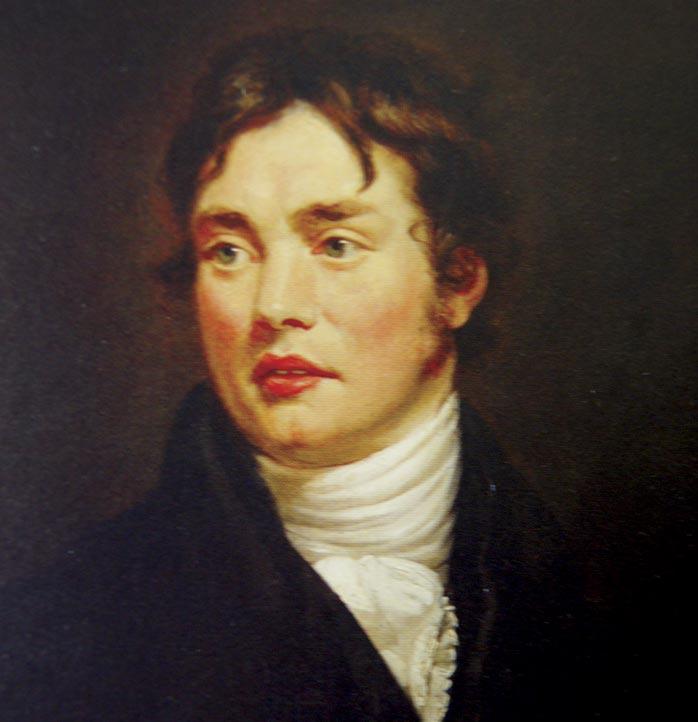
Samuel Taylor Coleridge
should expand its preoccupations from literature and philosophy to “debates, squashes and picnics”. A squash was evidently a word for a party. As the year progressed, the minutes were dominated by arguments over the society’s constitution, rules and regulations.
Through the interwar period there is scant written record of the Society, although absence of minutes is no indication of the society’s demise. The Annual Report for 1927-28 regrets the “lack of particulars” of societies. The writer also declares that the meetings of the rival Classical Society, which evidently subsumed the Coleridge from time to time, “have been numerous and well attended”. At the same time societies that offered jolly dinners, or, in the case of the Roosters, a “breakfast at lunchtime”, enjoyed greater attendance and mention than the more sober gatherings. In 1931 the Annual Report exclusively reported on the Roosters and the associated Red Herrings, noting that the latter was even drawing in eminent Fellows, including Sir Arthur Quiller-Couche who had been elevated to the Senior Perch (“or something of the kind”, commented the Report’s editor with evident disdain).
Meanwhile societies came and went: whatever happened to the Younger Brothers Society, the Clouds (which met once to discuss Bishop Berkeley’s idealism), the Cranmer Society (which came and went with rapidity down the years), the Alcock Society (which had a debate with Bedford College), the Jesuits, the Nameless Society, the Real Folklore Society, the George Corrie Society, the Black Widows?
It became clear by the 1940s that the Coleridge had become subsumed into the Literary Society, which had acquired a distinct panache despite, or possibly in consequence, of its wartime existence. In 1941, the speakers included Stephen Spender, Jacob Bronowski, Basil Willey, and French literature and language scholar F. C. Green. It did not last. By the 1960s the Literary Society was faltering along with the Coleridge. A clue to the abeyance of both societies occurred in 1969 when undergraduate Richard Tuck (destined to be a Fellow) announced in his minutes that the Literary Society had at last broken away from the Drama Society into which it had been subsumed. The inspiration and encouragement, they declared, was due to Dr Laurence Picken, Fellow of the College. They also announced that for the first time in its history the Society “had a written an almost incomprehensible constitution”. What need of a Coleridge Literary and Philosophical Society when the Literary Society had begun to surge once more? But by 1971 the Classical Society was back in favour, and the Literary was nowhere to be seen.
And so it continued until I was elected a Senior Research Fellow in 1990. Having spent a portion of my youth engaged in literary research on Coleridge, I was delighted to learn of the rumoured presence of a Coleridge Society. And yet, there were no records, and only vague recollections of meetings. The members, I was told, met from time to time in Coleridge’s rooms on the ground floor of staircase C overlooked by a bust of the poet’s tutor, William Frend. The living Fellow ensconced in that set was the mathematician, Dr Jim Roseblade. He could attest to the existence of meetings, since the members borrowed his room for them, but had never attended one. Nobody seemed responsible for the Society, and the junior officers had gone down.
I assumed the role of sponsor. It seemed to me that the meetings should be in the multidisciplinary spirit of Coleridge, and at the same time somewhat outside the box,
as was Coleridge. The first meeting took place in my rooms in Chapel Court in 1991, when Rupert Sheldrake came to defend his theory of “morphic resonance”. Other, more unconventional speakers followed: journalist Neal Ascherson spoke about the Soviet Spring, A. N. Wilson discussed his biography of Jesus and Rosemary Hill presented her biography of Pugin.
Then in 1994, I invited Francis Crick to talk about consciousness, which he believed was the result of neurons oscillating at 40 Hertz. We were scheduled to meet in Upper Hall but had to repair to the Chapel as there were some 300 gate crashers. It was the same in 1995 when Marina Warner attracted 350 attendees to hear her talk about fairy tales. Eminent, and not so eminent guest speakers kept the Society going until 2011 when the late Reverend John Hughes, Dean of Chapel, suggested a change in the spirit and substance. The society might become a much-needed forum for graduate students and post-docs to discuss their research. I readily agreed to hand the society over to John. It continued in this fashion until John’s tragic death in 2014, when Dr Christopher Burlinson, already leading the Q Society, assumed the mantle of guiding spirit. Then came Covid and the suspension of all societies and clubs. When we returned, I offered to guide the society once more. There seemed little appetite for exploiting the society as a forum for graduates, so I returned to the guest speaker model. In 2023, Ray Monk, biographer of Wittgenstein, spoke about Oppenheimer in the wake of the movie, and Peter Frankopan did a Q&A on his new book The Earth Transformed. In its second post-revival year I have attempted to vary the formula. We greeted a guest speaker, the Reverend Dr Tim Jenkins on the anthropology of Flying Saucers, held a colloquium for 30 senior academics across the University on Artificial Intelligence led by Dr Tom McClelland of HPS; and in July, drove out into the countryside to enjoy an old-fashioned reading party conducted by post-docs.
The Society is back and doing well, and I welcome suggestions for meetings, novel formats and even offers to assume the mantle of guiding spirit. n
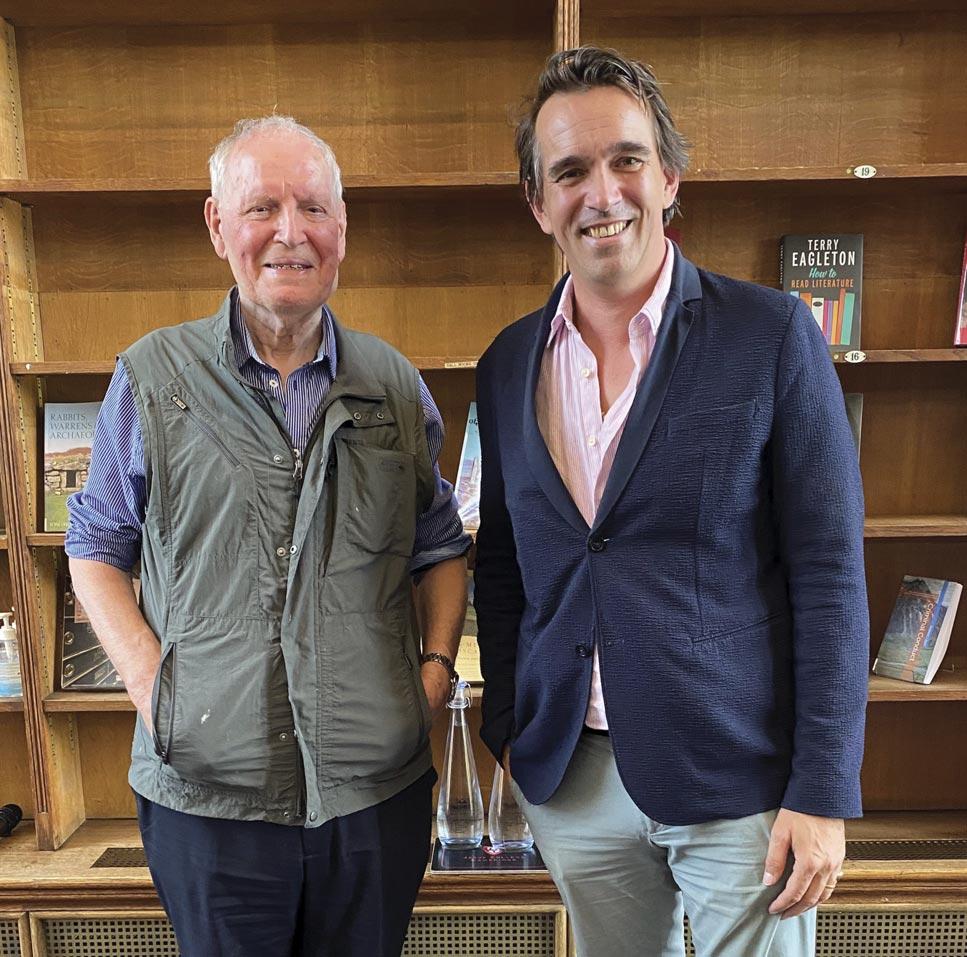
John Cornwell with Peter Frankopan in the Webb Library
Curiosity Incubator at the Intellectual Forum: an ‘Accelerator for Good’
Bridget Gildea
Intellectual Forum Senior Research Associate Bridget Gildea is the Founding Director of the Curiosity Incubator, an ‘Accelerator for Good’ programme incubated at the IF which draws on behavioural science and public innovation frameworks to develop a new way of finding and testing ideas for public good.
Cambridge is a globally-known centre of innovation, with pioneering companies such as Arm, CMR surgical, Raspberry Pi, and many others. It also benefits from an intensive ecosystem of innovation centres such as Start Codon and O2h. These centres help build a company – especially a high-growth company –from any relevant idea.
But what if your idea, or the problem you need to solve, isn’t addressed by creating a high-growth company? What if the answer is a new policy approach, or a new way of running your organisation, or making some ideas freely available so they can change the world?
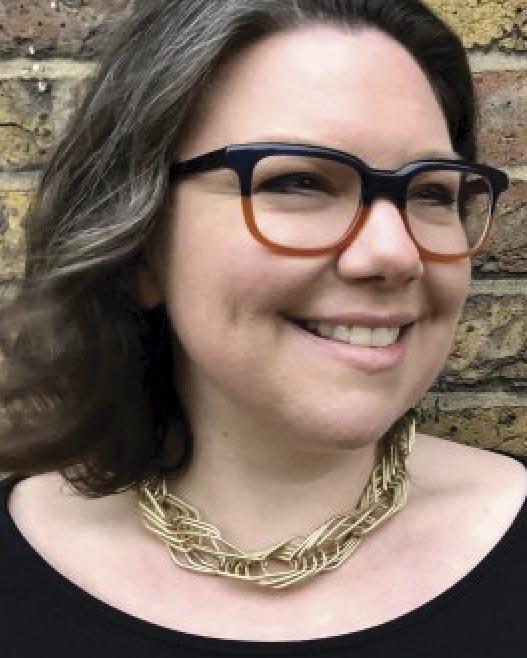
That’s where the Curiosity Incubator comes in. Our aim is to create an ‘Accelerator for Good’ that will help to develop transformational ideas, without needing to focus on whether they can result in a profit-making company.
The ideas and challenges might come from academics, public officials, NGOs, community organisations, social enterprises, or just about anyone who wants to make some part of our world better. Unlike many innovation programmes, our approach brings together many different sectors, areas of focus, and experiences, to co-create solutions across as wide a range of disciplines as possible.
The know-how of ‘how’
The Curiosity Incubator’s inception and design draws on some of our work on the Board of Advisors of the Cambridge University Behavioural Insights Team and in our earlier experimentation in the field of behavioural science. This brought to bear applied psychology principles and experimentation methodology on the design of government learning programmes and policy innovation at the Harvard Kennedy School of Government.
This work at Harvard took an action research approach to policy and learning programmes co-creation with governments around the world and looked at how to tackle both challenges in bureaucracy and in creating participatory methodologies that really work for social and civic cohesion. Key findings from it were instrumental in the early design of the Curiosity Incubator, and as the learning from its iterations went
on, we also found ourselves returning frequently to the question often posed to academia by policymakers when talking about relevant ideas: ‘Sounds great – how?’.
This focus on not just the ‘what’ but the ‘how’ of public policy work also drew on learning from our work with the UCL Institute of Innovation and Public Purpose. This involved co-designing applied learning frameworks and programmes with government partners in Brazil, Barbados, Peru and South Africa. Getting under the skin of the ‘how’, in moving from the vision of mission-oriented government approaches spearheaded by Professor Mariana Mazzucato and faculty colleagues, to grappling with the complexity of implementation, was pivotal. Together with outstanding public servants across the world, we co-created solutions in an applied learning framework, exploring how to do the work of making academic theory in these realms practicable. Then, in finding out what works and what doesn’t, and bringing that learning back into theory creation.
In the Curiosity Incubator, we do this by facilitating participatory and behaviourally-informed ideas creation processes to tackle complex social challenges. We focus on creating spaces for collective inquiry, experimentation and practical action, throughout our two-day workshop for a small group at Jesus College. We help policymakers, organisations and communities navigate uncertainty and co-create solutions, by moving from ideas inception through a rigorous process of sense checking and testing their ideas, ready for launch.
By building these solutions together, both from Place-based learning (‘bottom up’) and from international and national levels of policymaking (‘top down’), we put cross-sectoral collective intelligence and applied learning at the heart of the programme.
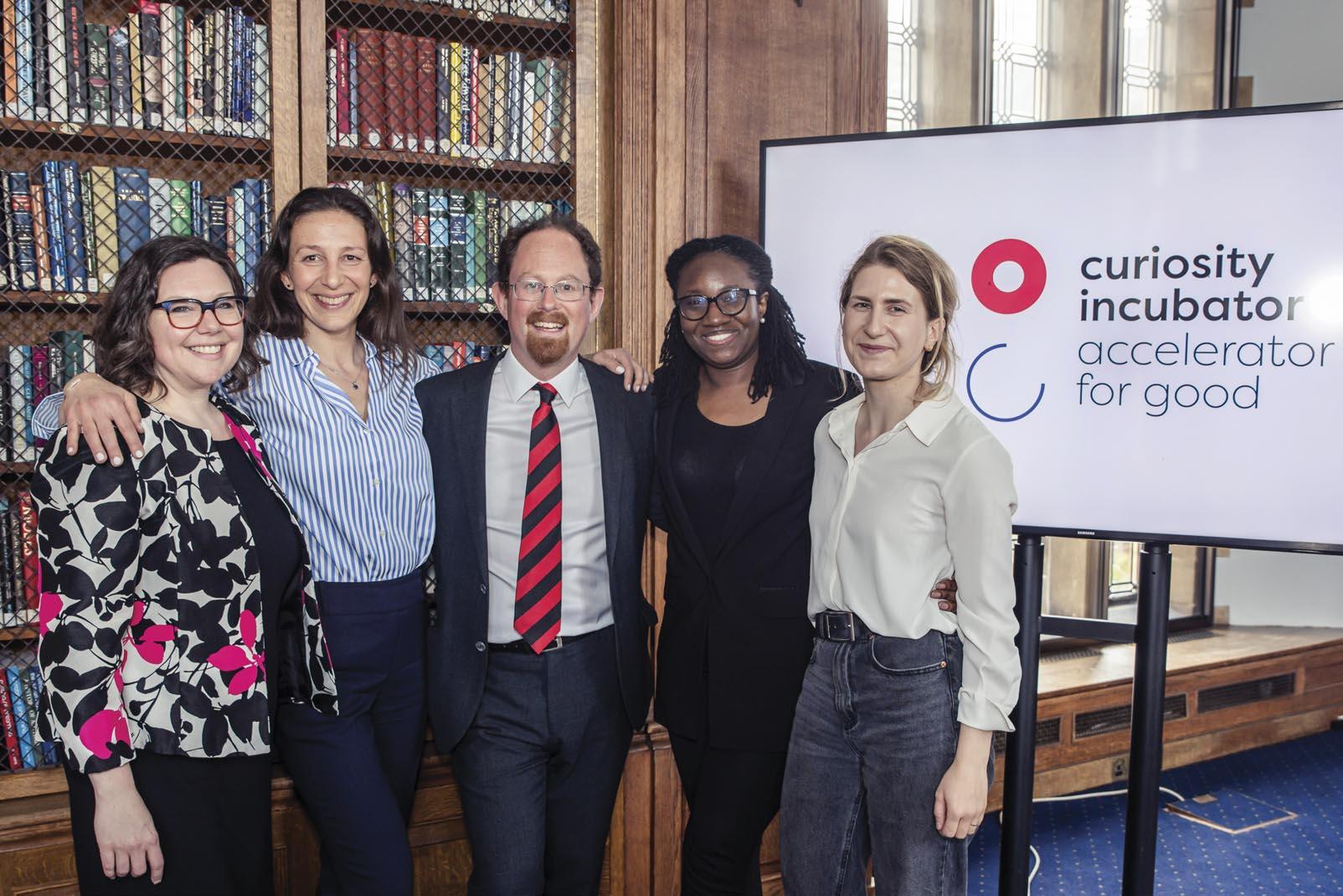
Workshop attendees with Bridget (left) and Dr Julian Huppert (centre)
We also have a long-running collaboration with partners across the city and University of Cambridge, making the innovation ecosystem of Cambridge into a ‘Cambridge-as-Incubator’.
‘Cambridge-as-Incubator’ draws on both the research strength and the built environment and policy infrastructure of Cambridge, to test out new ideas with immediacy and flexibility, as participants formulate solutions, in an approach purpose-built for experimentation and learning, in the city itself.
So far, we’ve partnered with organisations like the UK Cabinet Office, US Department of Energy, NHS England, Ofgem, Council of Europe, UN Economic Council for Europe, Open Society Foundations, European Climate Foundation, MacArthur Foundation and AstraZeneca’s sustainability team, as well as Cambridge City Council and Surrey County Council at the local government level, for joined up learning. We have also hosted participants in our programme from Canada, Germany, Ukraine, Nigeria, Spain, the US, Brazil and Mexico, blending the local, Place-based testing of our living learning lab with the cultural, contextual and policy specificity into which their solutions will be launched.
Then we channel all of this learning back into the continual development of the Curiosity Incubator’s programmatic design and approach, for partners and collaborators to benefit from in future iterations.
What’s next?
We’re building a more intensive version of the Curiosity Incubator programme, in a hybrid online into in-person workshop at Jesus format, for a small cohort of participants, Lent Term 2026 onwards. It will incorporate all the richness of our
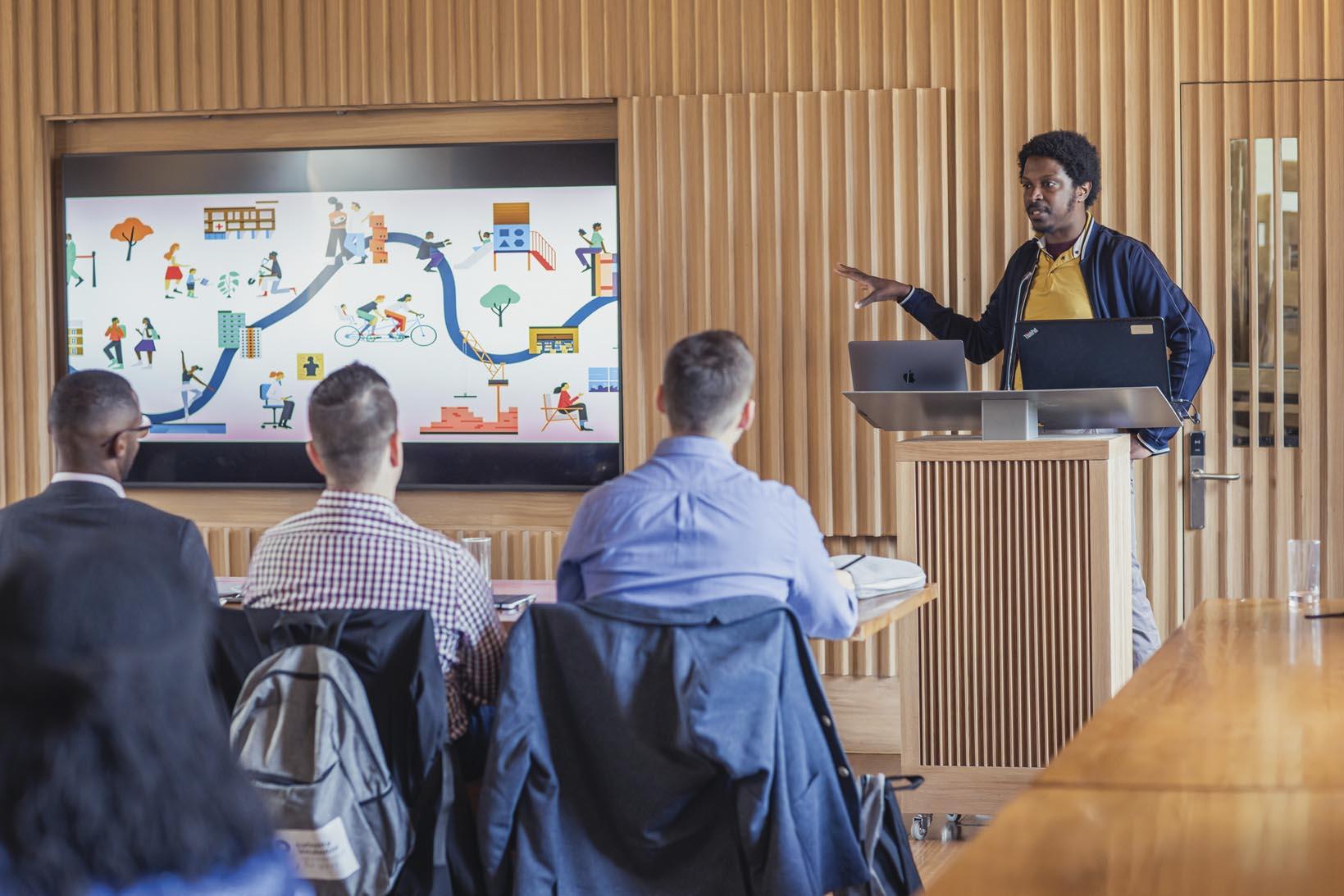
Dr Jason Mellad presenting a workshop

learning so far with additional ideas testing sessions and learning loops to test out and bring back what worked and what didn’t, in the weekly cadence of the online learning programme.
Curiosity Incubator is also going further out into the world, with sessions for cohorts in and from Eastern Europe, Africa, and the US on the horizon, looking thematically at areas of focus like the application of behavioural science to human rights frameworks for refugee populations, and to pandemic preparedness. We are also building new work looking at our perennial focus of how to build better learning programmes for innovative and impactful work in government, here in the UK. If you are interested to hear more, please get in touch via www.curiosityincubator.com n
A small group at the two-day workshop
In conversation with the Assistant Keeper of the Old Library
Chris Barker
I love all books, but the older ones take on a special meaning because each one has its own unique history. When I examine a book, I get an insight into its owners over the ages and a glimpse into their views from their inscriptions and annotations. Some of the titles can also be intriguing; in some eras people were quite outspoken about their feelings, and I’ve found some strongly worded titles where authors with competing views made that apparent!
I help researchers who come to look at books and manuscripts. I answer queries about the collection, give occasional tours, and spend a lot of time cataloguing our vast collection.
The Malthus Collection is completely catalogued, as is the majority of the Jesuan Collection, but a large percentage of the records of the main section of the Old Library is still only on card catalogue or on ESTC. I am now cataloguing the rest so that they are discoverable on iDiscover (the University’s online catalogue). Ensuring that the specific provenance details of each book are included, such as inscriptions by previous owners, personal bookplates bindings, important annotations and even doodles!

I love the thrill of the chase when I’m tracking down information — uncovering new details, whether it’s who owned the book in the past by identifying a coat of arms, or the way it was bound. It’s endlessly fascinating, and a real privilege to do this job. Most people I work with are genuinely appreciative, often grateful for the chance to engage with our historical collections.
What makes it especially rewarding is knowing that I’m making a tangible difference — helping others by providing useful insights and opening doors to discovery. That said, it can be frustrating too; there’s only so much time in the day, and always more to explore. I’ll be turning 66 later this year, so I know that at some point I’ll need to pass on the baton. But for now, I’m still enjoying every moment of it.
My first impressions of Jesus College were that the grounds were spacious and open, and the people were very welcoming. I got lost on my first visit – the Quincentenary Library was hard to find through the courtyard entrance, and I jumped when I noticed the Gormley statue which appeared to be watching me. I started as a Library Assistant in November 2000, before working my way up to Deputy Librarian. The College kindly sponsored my Masters in Library and Information Studies by distance learning at Aberystwyth University.
I have a particular interest in Special Collections and was fortunate to gain some experience and training as a volunteer in St Catherine’s College. This was a good grounding for a secondment role to the Old Library when Dr Frances Willmoth became unwell. I loved the Old Library from the start – its sense of history and the thought of generations of scholars there before me. Now I deal with most aspects of running it day to day, working alongside Dr Michael Edwards, who is a wonderful manager.
I’ve worked in libraries most of my working life, starting as a student helper in the 1980s while studying geography and politics at Keele University. Most of my career has been in Cambridge; I’ve worked at King’s College, Trinity College and the Institute of Astronomy, with a short period at the Theological Federation Libraries. Even during my career break as a new mother, I spent Saturdays working at the Galloway and Porter second-hand bookshop.
Outside work I enjoy being part of the Sing community choir, walking in nature and various crafts including spoon carving. My husband and I will celebrate our 40-year wedding anniversary this year, and our kids are now 38 and 36 years old. I’m sure I will continue to spend time with books after retirement; there are many mysteries still to be solved on these old shelves. n
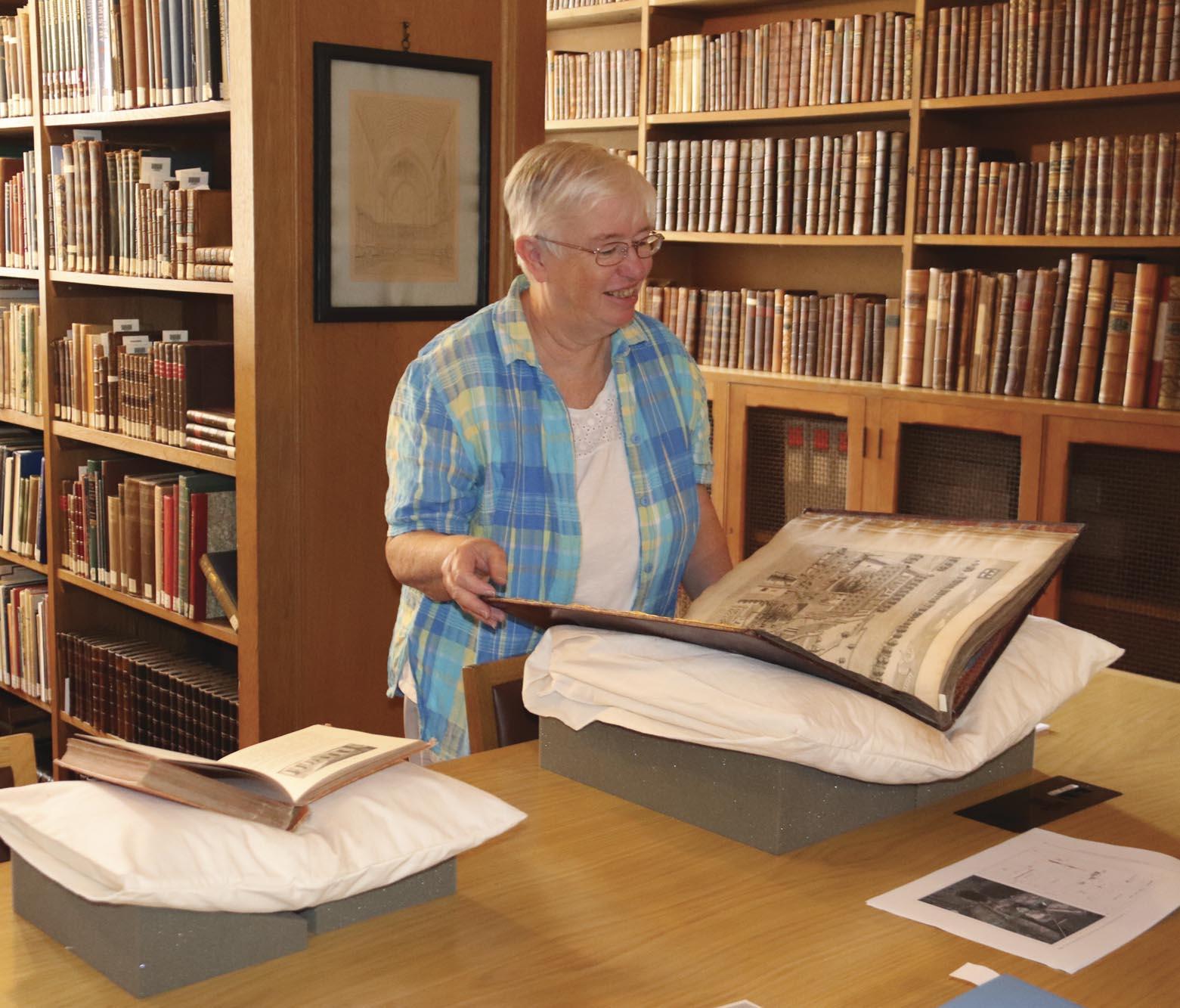
Chris at work in the Old Library
College News
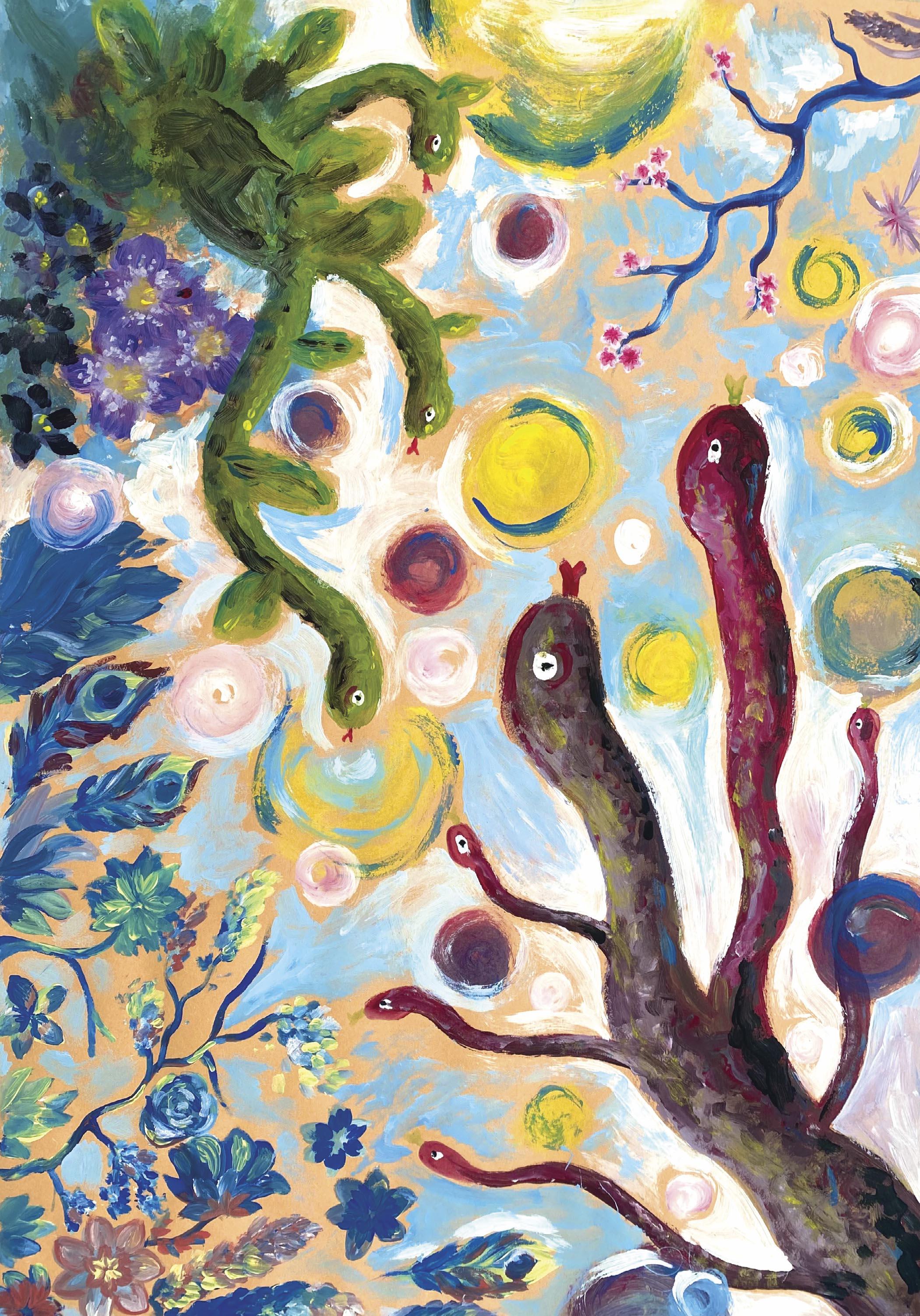
Tree Snakes, a collaborative piece by members of the Art Club
People
Awards and honours
Dr Toke Aidt, Dr Rebecca Barr, Professor Mary Brazelton and Professor Rachel Evans all received academic promotions in recognition of their contributions to research and teaching.
Professor Jeremy Baumberg was appointed Chair of UK Research and Innovation’s Engineering and Physical Sciences Research Council (EPSRC), a key leadership position in the UK’s research funding landscape.
Professor Mia Bay was elected President of the Collegium of African American Research, an international, interdisciplinary network of Black Diaspora scholars from over 25 countries. She started her term on 1 July 2025, leading preparations for the next conference.
Dr Ben Bowers was awarded a Fellowship of the Queen’s Institute of Community Nursing in recognition of his exceptional leadership and impact in advancing end-of-life care research and community nursing practice. He was recently appointed Assistant Professor of Primary Care within the Primary Care Unit at Cambridge.
Professor Rachel Evans co-chaired the 17th International Conference on Materials Chemistry organised by the Royal Society of Chemistry in Edinburgh in July 2025.
Postgraduate Ariel de Fauconberg received the Ivey/ARCS PhD Sustainability Academy ISC Impact Award and was selected as a Fellow for the 2024 Ivey/ARCS PhD Sustainability Academy.
Antony Gormley, Honorary Fellow, has been appointed Companion of Honour for services to art following his Knighthood in 2014 and his OBE in 1997. One of the UK’s most celebrated artists, his accolades include the Turner Prize, and his iconic works include Angel of the North and Another Place.
PhD candidate, Hanane Hadj-Moussa, was awarded the 2024 Korenchevsky Award from the British Society for Research in Ageing. The award recognises an early career researcher who has made an original contribution to ageing research.
Honorary Fellow, Professor Roy Howat, has been awarded the prestigious rank of Knight of the Order of Arts and Letters (Chevalier le l’Ordre des Arts et des Lettres), one of the highest cultural honours bestowed by the French Republic. The award recognises Professor Howat’s exceptional career and lifelong dedication to French music.
Professor Duncan Kelly was elected (from 1 July 2025) as Professor of Politics in the Department of Politics and International Studies at the University of Cambridge.
Dr Antiopi Koronaki presented her research The New Model School: Decarbonising design and making at the UN Climate Change Conference COP29, as part of the Global ABC’s ‘Bio and Earth-based materials Compendium’.
Dr Loic Lannelongue was awarded a £1.3 million grant from the Wellcome Trust for research on mitigating the environmental impacts of computing. He also led a report for the UK Department for Science, Innovation and Technology quantifying the environmental impacts of the UK Digital Sector (see article in Annual Report 2024).
Professor Lord Robert Mair has been appointed Chair of the House of Lords Select Committee on Science and Technology, reflecting his prominence in the field of engineering and infrastructure.
Professor Cecilia Mascolo was named a Fellow of the Royal Academy of Engineering in recognition of her exceptional contribution to her field. She was also made an Association for Computing Machinery Distinguished Member and she received an EPSRC Open Fellowship for her project HearFit: Hearable Sensing Systems and Machine Learning for Health and Fitness.
Dr Ewa Marek was recognised in this year’s Pilkington Prizes for excellence in teaching and also co-developed technology that won the Energy Category of the Royal Society of Chemistry’s 2024 Emerging Technologies Competition for work on H2Upgrade.
Bye-Fellow Dr Moritz Mihatsch published a book entitled Shifting Sovereignties which was launched during an event at the Intellectual Forum. He was elected as a Fellow of the Royal Historical Society.
Professor Peter Nolan CBE was awarded the China Friendship Award, which is the People’s Republic of China’s highest award for ‘foreign experts who have made outstanding contributions to China’s economic and social development’.
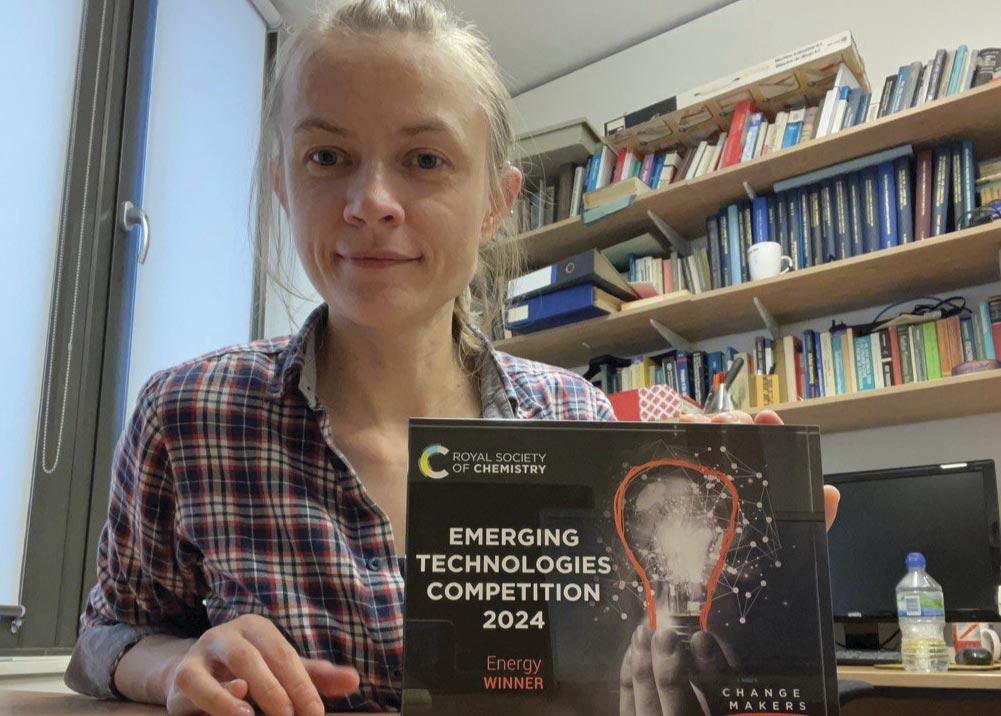
Dr Ewa Marek received an award from the Royal Society of Chemistry
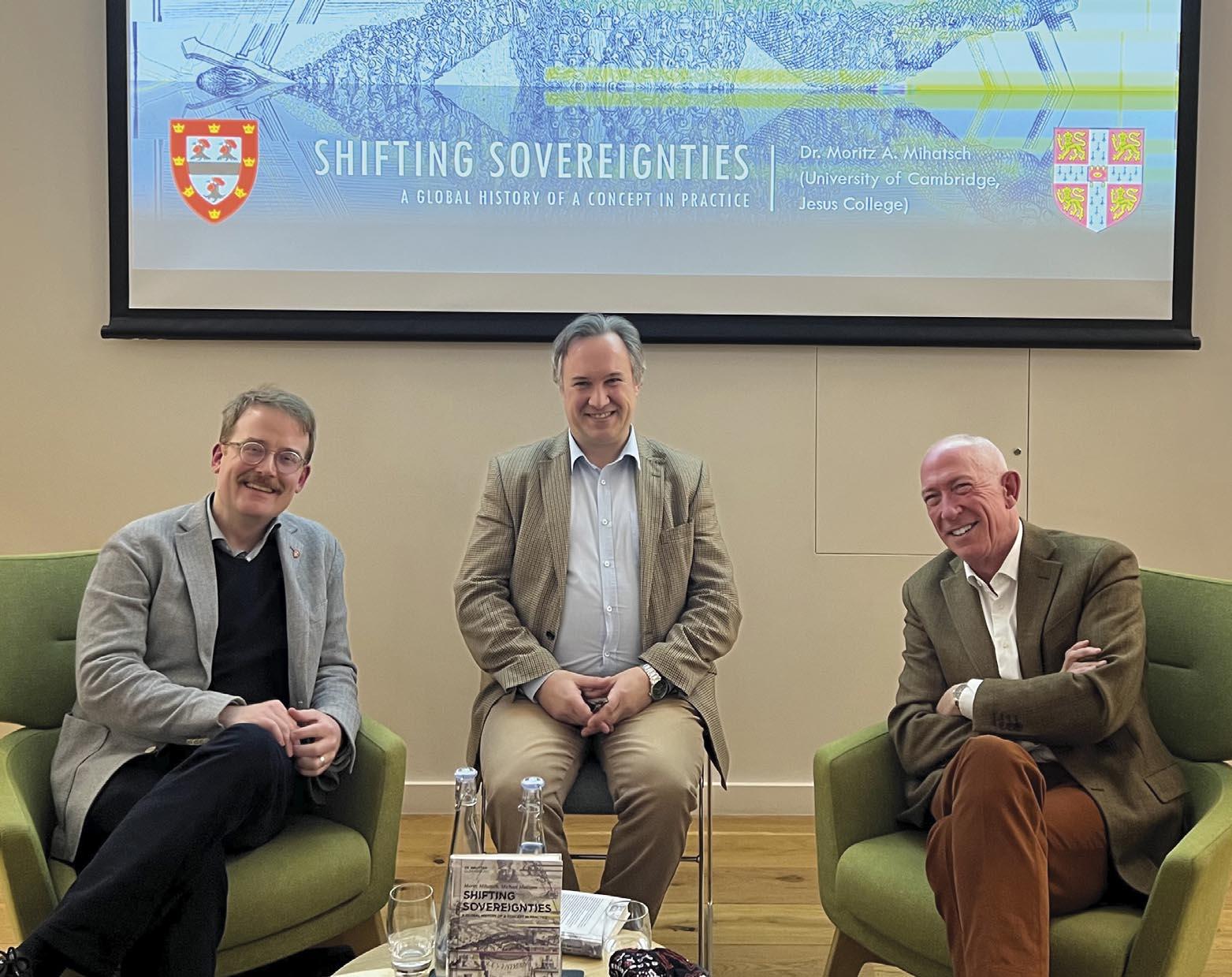
Dr Rob Payne, College Archivist, has been elected to the Board of the Archives and Records Association UK and Ireland, the professional body for archivists, records managers and conservators.
Postdoctoral Associate, Casey Platnich, was appointed to a new role as Assistant Professor in Physical Chemistry at Trinity College Dublin.
Professor Barry Rider OBE received the Foreign Minister’s Commendation from Japan for his contributions to international friendship and collaboration.
Professor Carola-Bibiane Schönlieb was elected Professor of Applied Mathematics from 1 March 2025, further recognising her contributions to the field.
Rob Lucas Scott published his book Reading Hegel: Irony, Recollection, Critique with University of Chicago Press.
Professor Helen Skaer received the prestigious British Society for Developmental Biology Waddington Medal for outstanding contributions to developmental biology.
Dr Sidhartha Saxena was appointed Board Member of the Scientific Council for the COP29 Presidency in Baku, playing a key role in shaping scientific input for the conference.
Dr Moritz Mihatsch, Michael Mulligan and Professor Jeremy Adelman
Professor Swami Swaminathan was named a Fellow of the Royal Academy of Engineering in recognition of his exceptional contribution to the field of mechanical engineering.
Professor Helen Williams was awarded the Gast Medal of the Geochemical Society and delivered the associated plenary lecture at the Goldschmidt International Conference. She was elected Fellow of both the European Association of Geochemistry and the Geochemical Society.
Professor Ellen Quigley received a Bellagio Fellowship from the Rockefeller Foundation, a prestigious organisation which uses science and technology to solve humanity’s toughest problems at their roots.
Other news
Dr Mohammedwesam Amer published an essay in the Journal of Palestine Studies.
PhD student Beatrice Boggio-Robutti’s research on lubricants for fuel economy was profiled by Maxon Motors UK and other commercial outlets; she participated in Maxon’s Young Engineers Program.
Dr Natalia Buitron co-organised a workshop on Amazonian ethnofuturities at CRASSH, the first meeting of an emerging research network focused on how indigenous peoples conceptualise the future.
Dr Albert Chen co-authored an article in the second edition of the Encyclopedia of Evolutionary Biology, and a paper on the jaw of Asteriornis, which was published in the journal Geobios.
A new edition of John Cornwell’s book Earth to Earth was published and was reviewed by Times Literary Supplement. The re-release revisits a 1980s true crime case in light of modern forensic evidence (see his article in the Annual Report 2024).
The Rev’d Dr James Crockford passed his PhD on St Augustine’s De Musica and published on jazz saxophonist John Coltrane in The Yale Journal of Music and Religion (read his article on pages 28-31).
Dr Samuel Diener’s article on first-person plural narration appeared in Publications of the Modern Language Association of America.
Dr Paul Dominiak’s new book The Love That Moves The Sun explores how Christian contemplation offers hope in tumultuous times.
Dr May Hen co-edited the academic reference book Tax, Public Finance and the Rule of Law.
Dr Tomasz Hollanek’s research on AI chatbots based on digital footprints of the deceased featured in The New York Times (see his article in the Annual Report 2024).
Dr Julian Huppert wrote in Prospect Magazine about his mother’s death and voluntary assisted dying.
Abigail Koh was selected for the Centre for Music Performance’s Advanced Popular Performance Scheme with her band, Lost Projects.
Danny Lawler completed a 12-month leadership course accredited by the Institute of Leadership.
Dr Max Long’s article on Shell Chemicals, media and pesticides was published in Media + Environment.
Professor Christopher Marquis’ research on employee loyalty was cited by Forbes and he authored a business school case study for the Financial Times on AI governance in benefit corporations.
PhD student Alice Paver’s research found that working-class accents are still associated with criminality; her work received widespread media coverage.
Professor Yaron Peleg gave the keynote speech at the opening of the summer school session of the University of International Business and Economics in Beijing in July 2025.
Dr Nina Seega spoke to Sky News, Times Radio and Financial Times on COP29 and the retreat from sustainable investing.
Professor Oren Shermann co-led research on stretchable 'jelly batteries' for use in medical and wearable technologies.
Dr Aisha Sobey published in Springer Nature on how AI image models perpetuate harmful body standards.
PhD student Simone Schneider discussed her research on infidelity on the ePODstemology podcast.
Amenie Groves’ play Penelope Quadrangle and the Meaning of Friendship, featuring Edith Stewart, was selected as Cambridge University ADC’s Edinburgh Fringe show for 2025.
The Global Issues Dialogue Centre was formally closed following the retirement of Professor Peter Williamson.
Dr Gareth Wilkes published a new textbook, Profinite Groups and Residual Finiteness.
Note
The digital version of this publication includes URL links for more information. You can view these pages online at: https://www.jesus.cam.ac.uk/alumni/college-publications
New Fellows
Fellows
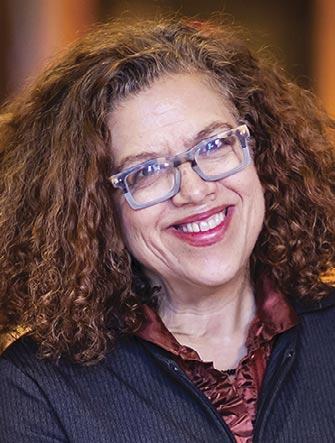
Professor Mia Bay earned her BA from the University of Toronto in 1985 and her PhD from Yale University in 1993. She was the Roy F. and Jeanette P. Nichols Professor of American History at the University of Pennsylvania before taking up the Paul Mellon Professorship of American History at Cambridge in January 2025. Her current projects include a book on African American ideas about Thomas Jefferson. Her broader interests span black women’s thought, African American citizenship, black social mobility and the impact of race and segregation on transportation history.
An esteemed and award-winning historian, Professor Bay’s most recent book is the Bancroft prize-winning Traveling Black: A Story of Race and Resistance, which also received a PROSE Award for Excellence in American History, the OAH’s Liberty Legacy Award, the Lillian Smith book Award, the Order of the Coif Book Award and the David J. Langum Prize in Legal History. Her other works include The White Image in the Black Mind: African-American Ideas about White People, 1830-1925; To Tell the Truth Freely: The Life of Ida B. Wells and the edited work Ida B Wells, The Light of Truth: The Writings of An Anti-Lynching Crusader (Penguin Books, 2014). She has also co-authored the textbook Freedom on My Mind: A History of African Americans with Documents and co-edited two collections of essays: Towards an Intellectual History of Black Women and Race and Retail: Consumption Across the Color Line
Professor Bay serves on the editorial boards of Reviews in American History, the Journal of African American History and the African American Intellectual History Society’s Black Perspectives Blog. She also frequently consults on museum and documentary film projects around race and history.
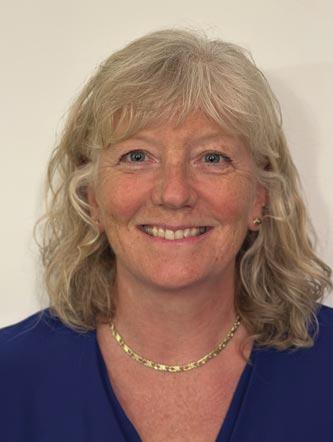
Dr Anita Gibbons holds an MD from the University of London, is a Fellow of the Royal College of Physicians, a Senior Fellow of the Higher Education Academy and has an MSt in Medical Education from the University of Cambridge. She brings an extensive expertise in medical education, combined with in-depth knowledge of how preclinical and clinical medicine are taught in Cambridge.
She is a Consultant Gastroenterologist at Hinchingbrooke Hospital and serves as Regional Sub-Dean for the Cambridge Clinical School. In this role, she oversees the educational experience of Cambridge medical students on placement, teaches in both clinical and classroom settings and contributes to course assessment and examination. Since August 2019, she has also coordinated Year 6 at the Clinical School.
Dr Gibbons has taught on the postgraduate certificate (PGCME) and diploma (PGDME) in medical education at the University of Cambridge’s Institute of
Continuing Education. In recognition of her outstanding teaching, she received the Pilkington Teaching Prize from the University of Cambridge in 2023.
Dr Olga Petri received her BA in Geography from Saint Petersburg State University in 2006, her MA from the same institution in 2013 and her PhD from the University of Cambridge in 2017. Dr Petri is an urban historical geographer concerned with understanding the relationship between the administrative state, social communities or milieus and the modernisation of urban space.
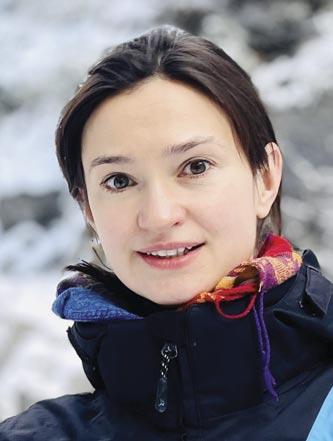
Her research examines late imperial Saint Petersburg, using untapped archival sources to reveal the street-level textures of a conflicted and overwritten urban modernity. Her work engages with historical and cultural urban geography, historical queer studies and late imperial Russian history. In 2022, she published a revised monograph, Places of Tenderness and Heat: The Queer Milieu of Fin-de-Siècle St Petersburg, shortlisted for the prestigious Pushkin Prize in 2023.
Since 2017, Dr Petri has undertaken postdoctoral research funded by the Leverhulme Trust and the Isaac Newton Trust under the title Beastly St Petersburg: humans and other animals in imperial Russia. Dr Petri’s research contributes to the rapidly expanding field of animal-human historical geographies, focusing on late imperial Saint Petersburg (1881-1914). She has published several journal articles, developing a good research portfolio.
Dr Chris Town has a longstanding history supporting teaching and directing studies in the College. He has been supervising for Jesus College since 2012 and has assisted with admissions interviewing in Computer Science in the last few years, helping manage an increase in application numbers. Since 2019 he has also directed studies for Jesus in Parts II and III of the Computer Science Tripos.
Dr Town is an Affiliated Lecturer and Research Fellow in the Department of Computer Science and Technology (Computer Laboratory), teaching Computer Vision and related courses to undergraduates and MPhil students. With 25 years’ teaching experience at the University of Cambridge, his research focuses on high-performance mobile computer vision and pattern recognition for biological and medical sciences, through interdisciplinary collaborations with biologists, ecologists and medical researchers.
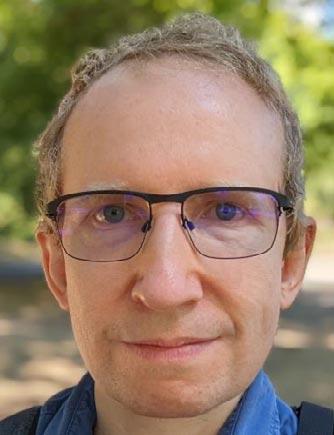
His PhD and postdoctoral work were recognised in the UK Distinguished Dissertation competition and earned him a Trinity College Rouse Ball Scholarship, an Industrial Fellowship from the Royal Commission for the Exhibition of 1851, and a Junior Research Fellowship at Wolfson College. He previously worked at AT&T Labs Research with Dr David Belanger and Dr Yann LeCun, and is Chief Technology Officer and co-founder of Imense Ltd, a high-tech company developing novel image technologies.
Research Fellows
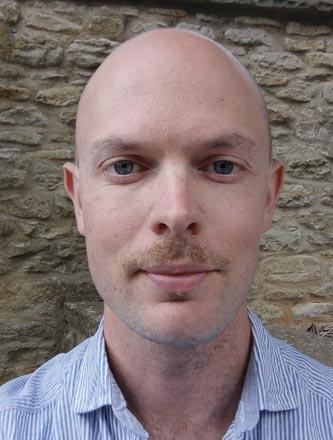
Dr William Blythe completed a DPhil in Chinese literature at Oxford in 2025. He has researched and written on a wide range of topics in the fields of both modern and premodern Chinese literature and history, including literary criticism and persecution during the Sino-Japanese war, censorship and manuscript culture in the PRC, Latin translations of the Chinese classics, Chinese opera in the context of early Anglo-Sino diplomacy and Russian language sinology. He previously completed a BA in Chinese Studies at Clare College, Cambridge and an MA in Sinology at SOAS. Dr Blythe has also studied for extended periods at National Taiwan Normal University, Peking University and National Taiwan University. In 2025 he was awarded the Davis Scholarship in Chinese Studies.
His current monograph, Speak Mnemosyne, examines the textual origins of Qian Zhongshu’s Guanzhui bian (Limited Views), an encyclopaedic masterpiece of literary criticism written in secret during the Cultural Revolution. Using ‘genetic criticism’ to analyse Qian’s multilingual notebooks, the study traces the composition of the last major work in the classical Chinese canon, revealing his literary and intellectual response to political persecution and cultural devastation.
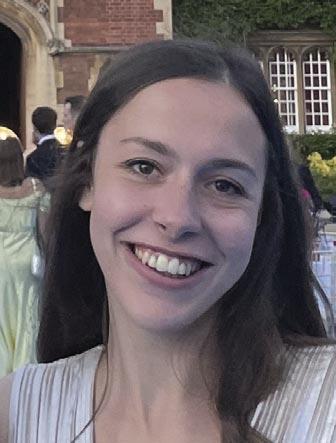
Ms Rebecca Goldsmith is a social and political historian of modern Britain. Her research is defined by an interest in recovering and analysing popular world views, or the ‘vernacular’. In her PhD dissertation, which she completed at Jesus College under the title The making of ‘Labour’s working class’, 1931-1951, she used archived field-notes from the experimental social science research organisation Mass-Observation to provide a new account of the Labour Party’s electoral breakthrough in Britain.
Goldsmith’s postdoctoral research project is titled ‘Authors of their own lives: autobiographical selfhood in Britain, c.1950-2008/9’. The project looks at how and why a new form of self-reflection emerged in Britain across the second half of the twentieth century, characterised by a tendency to integrate external events and life experiences into an ‘ongoing “story” about the self’ (Giddens, Modernity and Self-Identity, p54). It aims to trace the origins and scope of this reflective mode and offer the most diverse, comprehensive account yet of post-war selfhood.
Goldsmith has two peer-reviewed publications out, one in the highly esteemed OUP journal Modern British History (formerly Twentieth Century British History).
Mr Yorick Veenma started his PhD at the Department of Earth Sciences at the University of Cambridge after finishing his Master’s at Utrecht University in 2021. His research aims to reconstruct Earth’s past, but while natural history is often studied through fossils from within the rock record, his approach focuses on how the rock record itself was formed, which opens new ways to study ancient ecosystems.
His research has advanced how sedimentary geologists interpret the rock record, showing that while ancient, it often preserves the effects of short-lived processes.
Applying this insight in fieldwork, he has improved the resolution of ancient ecosystem reconstructions. His study of Ireland’s oldest fossil forest revealed its complex influence on the ancient landscape, demonstrating how Earth’s past can be explored in greater detail. He has also developed methods to detect biases in the fossil record, assessing how geological processes shape fossil preservation and reflect past biodiversity. His work has produced several successful field studies and first-authored publications, which he aims to expand at Jesus College.
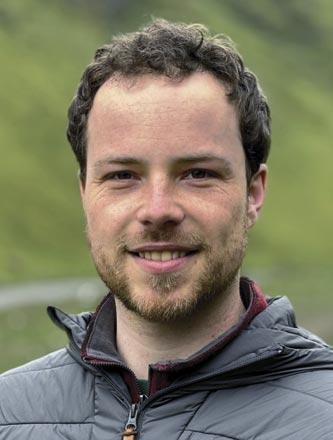
During his Research Fellowship, he will focus on the rapid rise of animal life during the Cambrian Explosion, an important event about which there are still many outstanding questions. The proposed project will use fieldwork to identify biases in the record of the Cambrian Explosion with the aim of uncovering evolutionary patterns that have so far remained hidden.
Outgoing Fellow
Dr Fermin Moscoso del Prado Martin
Outgoing Research Fellows
Dr Albert Chen
Dr Alexander Cowan
Dr Samuel Diener
Dr Paula Keller
Dr Max Long
Outgoing Bye-Fellows
Dr Jennifer Hirst
Dr Moritz Mihatsch
Outgoing College Post Doctoral Associates (CPDAs)
Dr Mathias Ciliberto
Dr Freya Jephcott
Dr Kim Liu
Dr Casey Platnich
Dr George Rizos
Dr Andrea Smith
Dr Anna Wenger
Outgoing McDonald CPDA
Dr Sahal Abdi
Development and Alumni Relations
Emily Williams, Director of Development and Alumni Relations
Each year brings new milestones, but 2025 has truly been exceptional for the Development and Alumni Relations Office. From record-breaking fundraising to vibrant alumni engagement across the globe, this has been our most impactful year yet. I am continually inspired by the generosity and enthusiasm of our alumni and supporters, and I am proud of the team whose dedication makes all of this possible.
This year, we celebrated our most successful fundraising year ever, the highlight being the landmark £10 million partnership between the College, our new corporate partner, Suzano, and the University. This transformational gift established the Suzano Scholars Programme at the College, which will bring Brazilian students to Jesus to study for their postgraduate degree in any discipline connected to the environment. The agreement also supports a research project headed by Emeritus Fellow, Professor Peter Williamson, who originally connected the College with Suzano, with other elements of the gift supporting research strands at the University’s Conservation Research Institute.
Other major gifts that contributed towards total funds raised this year include a number of our top donors increasing their support for undergraduate bursaries, which remains one of our foremost fundraising needs. In particular, two new endowments established in the last year make provision for Jesus College medical students throughout years 1-6, offering an enhanced bursary rate to cover the expensive clinical years.
Legacy giving remains a cornerstone of our fundraising strategy. We received several substantial legacy gifts during the last year, which – when directed to ‘general purposes’, as with the majority of legacies left to the College – are invested in the endowment to strengthen its financial position and maintain the legator’s connection with their College in perpetuity. We have welcomed 19 new members to the 1496 Society, giving us the chance to say “thank you” to those who will support the College with a future gift.
With thanks to outgoing Senior Development Officer, Ryan Cullum, for seven years of service, we weathered a handover of staffing in our regular giving programme, which continues to thrive. The main Telephone Campaign in September raised over £136,000 for our core fundraising priorities: student financial support, teaching, outreach and widening participation, buildings and facilities, and mental health and wellbeing. While donors can of course choose which area of College life they prefer to support, this year we placed emphasis on our mental health and wellbeing fund to reinforce the new staff position of Student Wellbeing Lead, which was established last year with the support of donations. A new December calling campaign was introduced, focused on engaging Jesus alumni in the USA. Implementing initiatives to harness the collective power of our alumni community is now in the safe hands of Noemi Carofano, who joined the team in June.
On the subject of staffing, I must also thank Yulia Shpak, who departed her database management role in December, as well as Danielle Sicotte (2023), who stepped up temporarily to cover vacant roles just months after finishing her MPhil in Archaeological Science at Jesus.
Our events calendar has been busier than ever, with alumni returning to College and connecting across continents. This year we hosted Reunion Dinners for matriculants from 2009, 2010 and 2011, and 1978, 1979, 1980 and 1981, as well as an Anniversary Dinner for those who matriculated in 1985, 1995, 2005 and 2015. For the first time we moved the 50, 60 and 70 Years On celebrations from November to May, in the hope of better weather for some of our most distinguished alumni. Clearly 1955 was an exceedingly healthy time to be a Jesus student, as the 70 Years On Lunch had its best ever attendance. In addition, we were delighted to respond to alumni feedback by moving the 50 Years On event from a lunch to a dinner. These gatherings are such a touching celebration of the enduring bonds that are forged between students at Jesus.
The Donors’ Garden Party has become a cherished annual day out and this year’s event was especially joyful, with families and children enjoying the sunshine, as well as a newly inaugurated College-wide treasure hunt to complement the talks from academic Fellows and students.
We also launched a new Finance and Investment industry networking event in London (pictured below), bringing together alumni working in finance for an evening of connection with each other and with current Jesus students. Hosted by our alumna Lingling Wu (2011, MBA) at Bullseye Financial, this inaugural event was a great success, with a date set for a wider event titled Financial Services City Reception in November 2025.
With support from enthusiastic alumni volunteers, we have been able to offer extra opportunities for Jesuans to gather outside of Cambridge and London, with a regional event in Oxford organised by Verity Armstrong (2002, Geography), and a reception drawing alumni from across the East Coast to the New York City home of Andrew Solomon (1985, English).
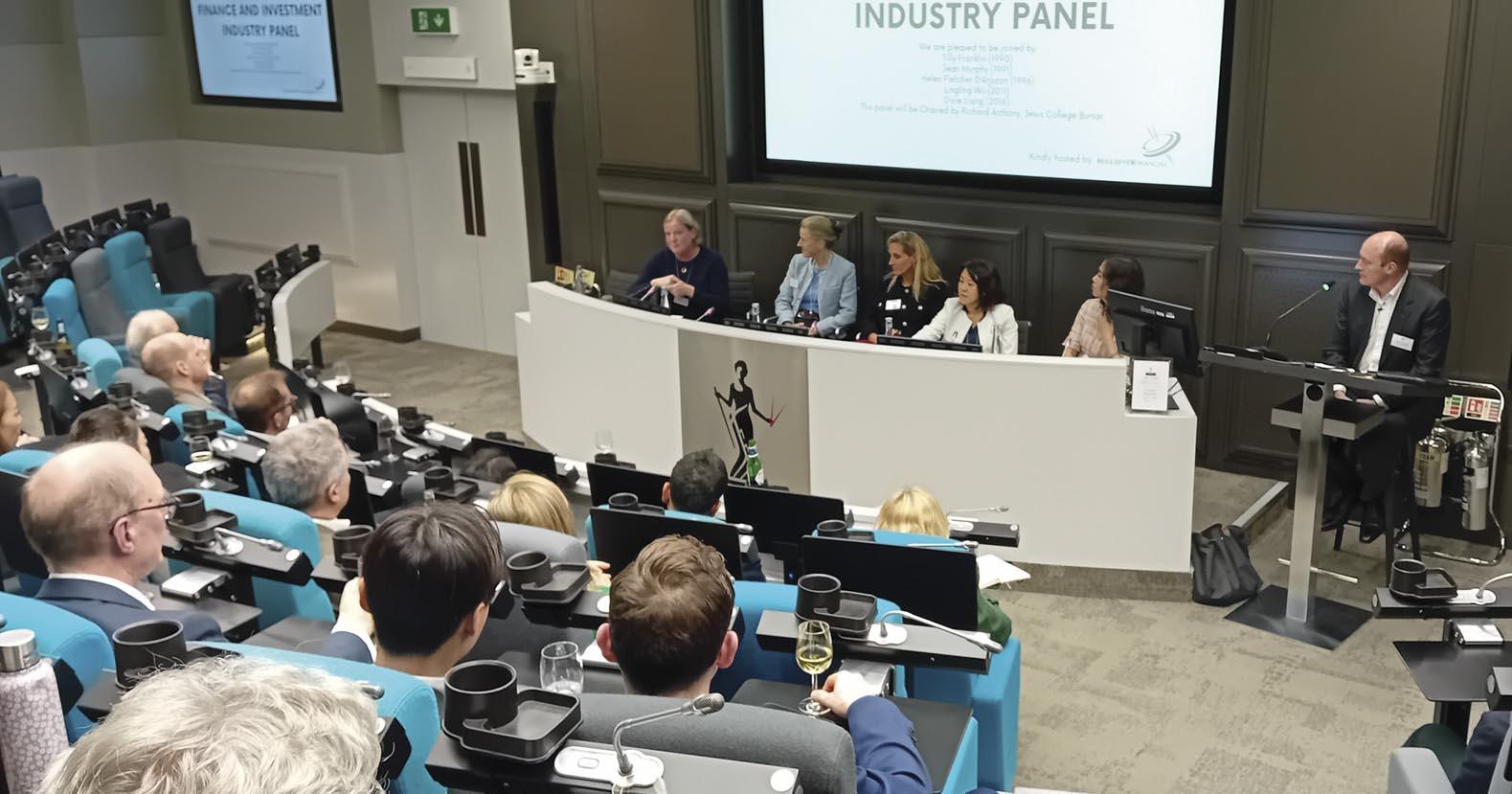
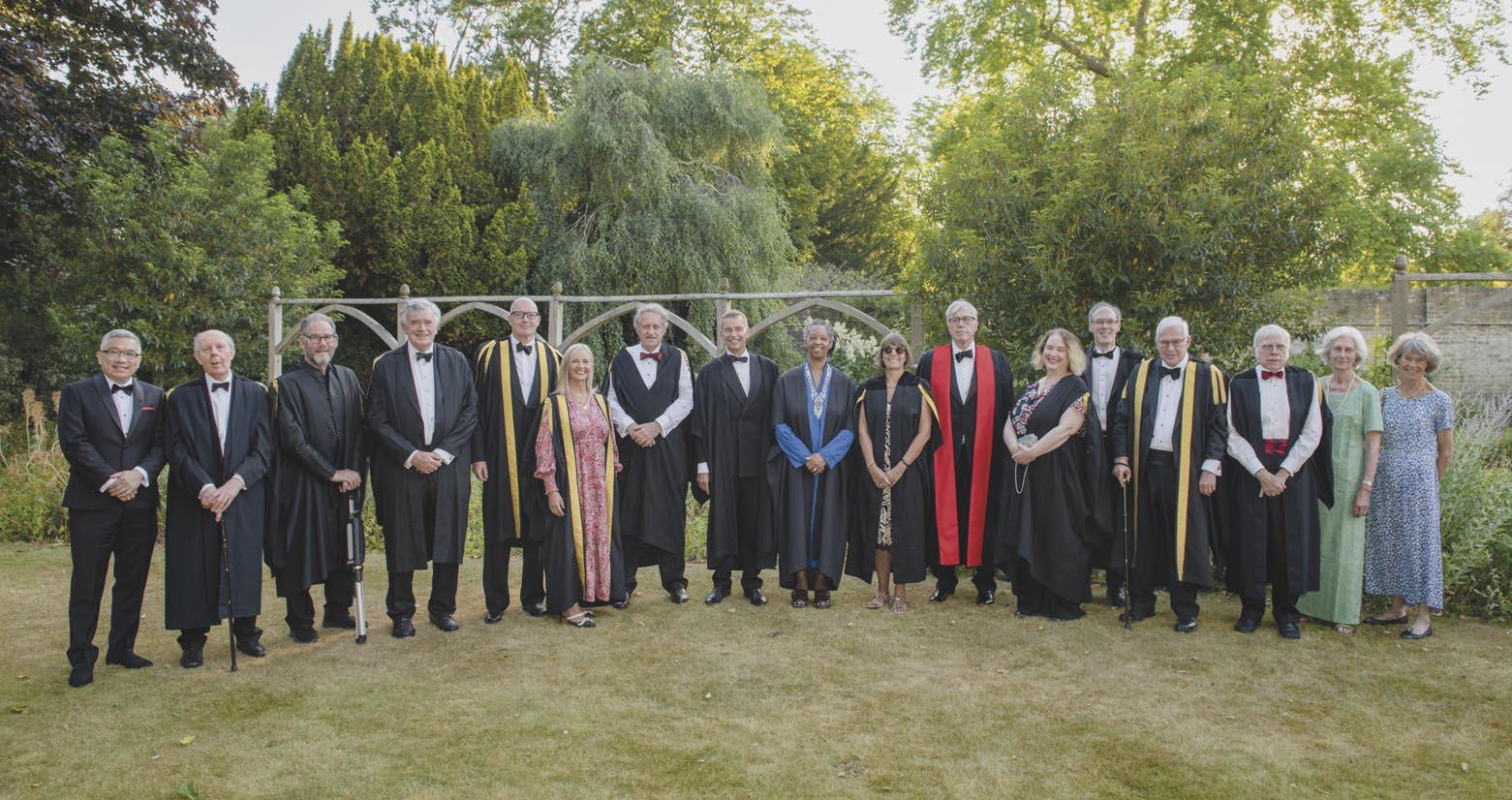
Looking to the coming year, we are excited to play our part in the reacquisition of Wesley House, with naming opportunities available for donors who want to contribute towards this landmark moment in the College’s history.
I am deeply grateful to the team for their tireless work and dedication to the alumni and donor experience: Nikki Williams (Alumni Relations Manager), Gracie Breen (Development Officer for Events), Maisy Smyth (2013) (Senior Development Officer for Legacies and Stewardship), Catherine Biggs (Major Gifts Officer), Jonny McAllister (2018) (Development and Research Coordinator), Josh Clayton (2019) (Development Assistant), and Noemi Carofano (Development Officer for Regular Giving). Together, we are looking forward to another year of connection and impact.
Recognition of Major Benefactors
The Society of St Radegund honours donors who have made the most significant philanthropic contributions to the College. Named after the sixth-century queen and patron saint of the original Benedictine nunnery on the College site, the Society inducts Members who have given £100,000 or more, and St Radegund Fellows for gifts of £1 million or more. The 2025 dinner, held on 30 June, included a recital in the Chapel and a reception in the Master’s Garden. Unusually, there was no induction ceremony as, unfortunately – although there are several new members awaiting their induction – none of them were able to join us at this year’s event. The 12 St Radegund Fellows and 47 Members of the Society have supported bursaries, endowed Fellowships, made major gifts to College capital projects and generally enhanced the quality of student life and the education we are able to deliver. Their generosity continues to shape the College’s future, with the Annual Dinner serving as a heartfelt celebration of their collective impact. n
Members and St Radegund Fellows at this year’s Society of St Radegund Dinner
Calendar of College Events 2025-2026
13 November 2025
25 November 2025
6 December 2025
31 January 2026
12 February 2026
22 February 2026
28 February 2026
14 March 2026
Financial Services City Reception (London)
JCCS London Drinks Reception (O&C Club)
Alumni Volunteer Thank You Day
Computer Science Dinner
Glanville Williams Society Reception (London)
Second Year Committee Lunch
Medical and Veterinary Sciences Dinner
Graduate Conference and Postgraduate Reunion
25 March 2026 Lisa Jardine Memorial Lecture and Reception
27 March 2026
Reunion Dinner (1990, 1991, 1992)
10 April 2026 MA Dinner (2019)
11 April 2026
17 April 2026
JCCS Spring Dinner (Cambridge)
Anniversary Dinner (1986, 1996, 2006, 2016)
6 May 2026 The 1496 Society Lunch
16 May 2026
20 May 2026
Engineering Dinner
60 Years On Lunch (1966)
22 May 2026 50 Years On Dinner (1976)
27 May 2026
20 June 2026
29 June 2026
4 July 2026
70 Years On Lunch (1956)
JCCS Buffet Lunch
Society of St Radegund Dinner
Donors’ Garden Party
18-20 September 2026 Cambridge University Alumni Festival
19 September 2026
Alumni Benefits
JCCS Annual Dinner
Once you have received your MA, or in the case of graduate students, once you have completed your course, you are welcome to dine at High Table free of charge, twice a year and to bring a guest for a charge. High Table is available Tuesday-Friday and Sundays during Term. For further details please contact the Manciple’s Office on manciple@jesus.cam.ac.uk or call +44 (0) 1223 339485.
The College is able to offer en suite rooms in West Court on a bed and breakfast basis. Please contact the West Court Reception team to check on availability by emailing reception@jesus.cam.ac.uk or phoning +44 (0)1223 760571.
Alumni are entitled to a 10% discount on private dinners and conferences. If you’re interested in holding a private function, please contact the Conference team by emailing conference@jesus.cam.ac.uk or phoning +44 (0)1223 760524. Those who study at Cambridge are issued with a CAMCard which entitles them to receive benefits at a number of retailers across the city. For full details on benefits available, please visit our college website: https://www.jesus.cam.ac.uk/alumni/alumni-community/alumni-benefits
Senior Tutor
Dr Paul Dominiak

Over the past few years I have reported on the development of welfare support in the College. I would like to focus on this again as we are continuing to look at how we might further improve student support. Our goal is to provide sustainable, targeted and excellent care for all students that anticipates and offers preventative support for the national and local trends we observe in UK higher education around student wellbeing.
The strategic review in 2023 of welfare, wellbeing and mental health support structures affirmed the current strength of provisions in the College. It nevertheless made 18 recommendations to refine and improve these provisions further. I am happy to report that these are now all completed. The capstone recommendation was to appoint a Student Wellbeing Lead who, working with me, would support students and the welfare team in complex cases and drive a strategic approach to the delivery of welfare provisions. Having secured stimulus funds from the University, matched by a generous legacy from a College alumnus, we successfully recruited Mary Simuyandi (pictured below) to the role. Having grown up in Cambridge, Mary came to us from being the Head of Wellbeing at St Catharine’s College. Before that, Mary was Mental Health Lead at a secondary school and sixth form college in London, where she coordinated mental health and counselling services and pastoral support for over 1,500 students. Mary started her Jesus College role in January and has proved a stellar addition to the welfare team. She brings into College significant experience along with insights from her wider University work. In particular, Mary brings wisdom from her work in the Black, Asian and Minoritised Ethnic Advisory Group that investigated what mental health support should look like within the collegiate University, as well as the Enhancing Collegiate Education Advisory Group which explored the University level awarding gaps linked to both ethnicity and mental health diagnosis.

The Student Wellbeing Lead and I are working on developing a strategic College vision for student wellbeing. To inform, shape and refine this strategy, we are currently conducting focus groups with students, Tutors, Directors of Studies, professional medical staff, welfare-facing staff and alumni. As it emerges in the coming academic year, this strategic vision will recognise the already strong provisions and practices within the College and draw these into a cohesive approach in which best practices are identified and embedded. It will also guide how we increase the accessibility of wellbeing support to all members of the student community and develop targeted and evidence-based interventions that address challenges and trends that have emerged, or are emerging, in the higher education landscape.
What are these trends? Across the board, universities in the UK are observing a steady increase over the past decade in students with mental health conditions and disabilities. While student support services have expanded, especially at Cambridge, a linear forecast suggests that within the next few years up to 40% of the student population will have a disclosed disability and around one third will have a pre-existing mental health condition. As the student population becomes more diverse in terms of ethnicity and socioeconomic background, universities also face challenges over what are known as ‘awarding gaps’. These awarding gaps affect the attainment and continuation rates of particular cohorts of undergraduate students; these are gaps which exist after controlling for a range of variables such as socioeconomic background, prior attainment and so on. The two groups with the most significant awarding gaps are Black British students and disabled students with declared mental health conditions.
As we experience and anticipate how these trends map onto the student realities in Jesus College, a strategic vision for wellbeing will act as a compass for a whole community approach. I am grateful for the expertise, energy and enthusiasm of the Student Wellbeing Lead in driving a strategic vision forward, as well as the insights and wisdom of all focus group participants.
Despite real pressures and challenges, the College student community continues to thrive. This past year we admitted 147 undergraduate and 155 postgraduate students across all disciplines. The profile of our undergraduate and postgraduate students continues to become increasingly diverse in terms of ethnic, religious and educational backgrounds. For example: approximately 1 in every 3 undergraduates admitted typically have a non-white or mixed/multiple ethnicity; 3 out of 4 UK students typically come from a maintained school background; and between 1 in 4 and 1 in 5 UK students are typically from quintiles 1 and 2 of the Index of Multiple Deprivation. Such widening participation work enriches the breadth of our student body. All those involved in admissions and outreach in the College deserve our gratitude and praise.

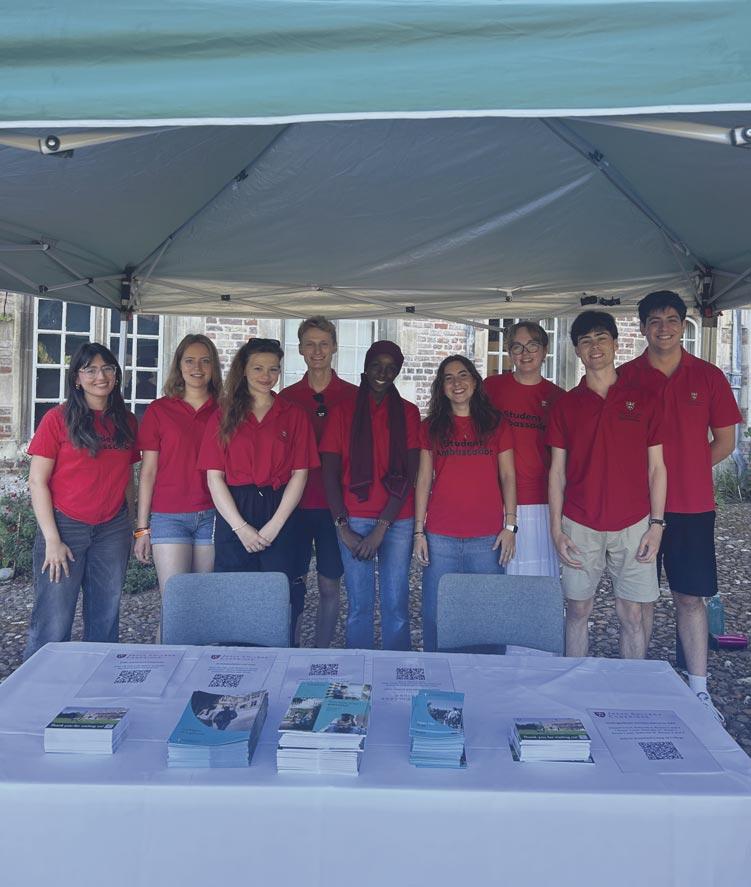
As diversity increases, academic results remain strong, notwithstanding the real awarding gaps already described. This year, for example, we saw an increased number of students achieving First Class results and an overall increase in the number of students achieving Good Honours. Some of our students produced astonishingly good examination performances, including those honoured by Benefactor’s (2004) Prizes and Keller Prizes. We should, of course, also recognise the less highly ranked performances of many individual undergraduate students, which are, in their own terms and in their particular circumstances, every bit as impressive. The research and results of our postgraduates likewise display a similar range of notable achievements.
Student support in the College remains highly effective. From the College Nurses through to Tutors, Directors of Studies and Tutorial Department staff, student wellbeing is seen and preserved as the bedrock both of academic success and broader human flourishing. Beyond pastoral care, students at Jesus College also receive significant financial support of different kinds from the College and University that enable them to study, research and pursue extracurricular opportunities of various kinds, such as travel, sports and the arts. This past year, 157 undergraduates were bursary holders, receiving around £500K in financial assistance. Jesus College students received over £58K of study and internship grants, as well as travel, creativity and sports awards. Around £35K in prizes were awarded for academic performance. £46K was distributed to support research opportunities for postgraduates, with a further £365K in scholarships. The College also supported students in accessing over £7K in specialist medical treatment or diagnostic assessment, as well as financial assistance of various kinds from the University. The College depends upon the generosity, care and goodwill of alumni and other significant donors to be able to provide the highest level of support to our students, whose lives are significantly enriched as a result.
Finally, I reported last year about work to address the recognition in the intercollegiate University that student and staff workloads are unsustainable. I worked with colleagues in the University as part of a Teaching Review Task and Finish Group to consider a framework for change across the University, focussed on undergraduate student workload and its perceived impacts on mental health and wellbeing. This past year, the Task and Finish Group published its recommendations, which are now approved through the governance structures of the University. Each recommendation falls under one of three groups: systemic, enabling change through infrastructure, culture and policy; enhancement, ensuring continued educational excellence; and communication, providing clear and coherent information for students and staff. While there is much work to do to implement these recommendations, they will enable sustainable and healthy patterns of life without compromising academic excellence. n
Bursary
Dr Richard Anthony, Bursar
In September 2024 the College received formal notification from Wesley House that they would be surrendering their lease for the section of West Court that they have continued to occupy since 2014 when they sold the freehold of the site to the College. When they leave in August 2025, it will mark a significant milestone in the history of the College, as we regain full control of the College’s main site. It represents an exciting opportunity for the College, and, as well as negotiating the lease surrender, I have been chairing a working party that has been planning for what the College will do with the buildings. They will be fully integrated into West Court, and we currently have plans for the following:
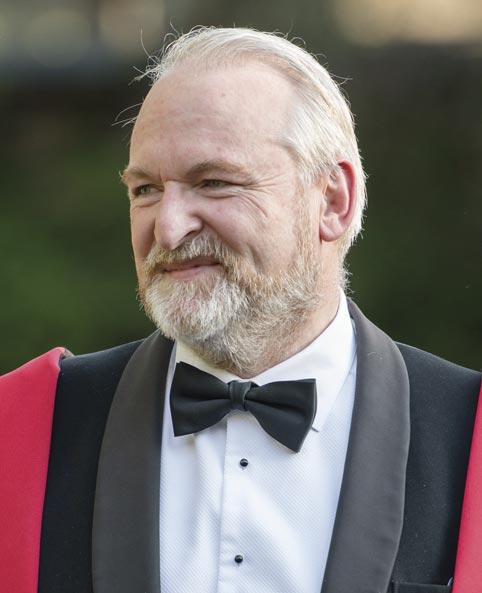
• Converting the Principal’s Lodge into a student house for postgraduates
• Taking over three residential flats for postgraduate housing
• Increasing the number of conference bedrooms
• Enhancing our conference offering through the addition of meetings rooms and other facilities
• Transforming the Wesley Chapel into a Jesus College Archives Centre, with associated offices and research facilities.
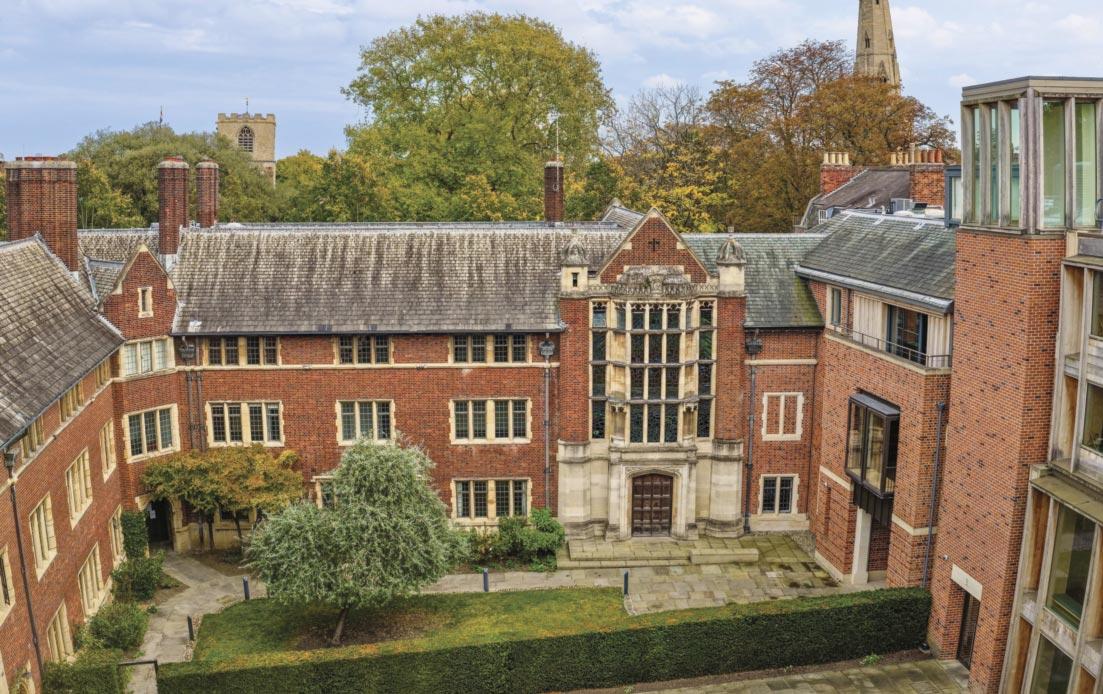
Wesley House. Photo by Jamie Andersen
Photo: Jamie Andersen Photography
This will also enable a wide reconfiguration of College operations, bringing departments and activities together in a more logical way, something we have been thinking about for a while. The lease surrender itself involved a complex series of negotiations as there were 110 years remaining on the Lease. It is not something we had planned for, but, as is the way with these things, you should always fully grasp the opportunities presented and make the most of them.
In the meantime, we are continuing to manage our way through what remains a challenging financial environment in higher education. Indicative of this was the increase in employers’ national insurance, which is several times greater than the small inflationary increase that we have been promised in 2025 for Home undergraduate fees. A longer-term solution to the issue of higher education funding must be found. As I noted last year, the College has moved into a deficit on its income and expenditure account, despite the large contribution from the endowment, which last year made up a third of our income. With the support of the College Council and my colleagues on the Bursarial Committee, we are taking action to reverse the situation and return the College to surplus over the next few years. I would like to thank all parts of the College community – students, staff and fellows for playing their part in what will be a multi-year plan.
A regular feature of my report is a graph of showing the College’s income and expenditure, which is presented below for the last set of published accounts for 2023-24.
This year I have excluded the impact of the Universities Superannuation Scheme (USS – the sector-wide pension scheme for academics), which has seen large swings in accounting provisions in the last few years. Those who work in finance will know that this can cause major distortions to financial reporting, which do not reflect underlying operational and financial performance.
This shows a very finely balanced situation in the College’s annual finances for unrestricted and restricted activities. The deficit on the educational account is particularly noticeable, and in 2022-23 this reached £5.8m. The last few years have seen increasing expenditure on bursaries and other financial support for students, as well as a growth in student welfare provision. Despite the growing conferencing
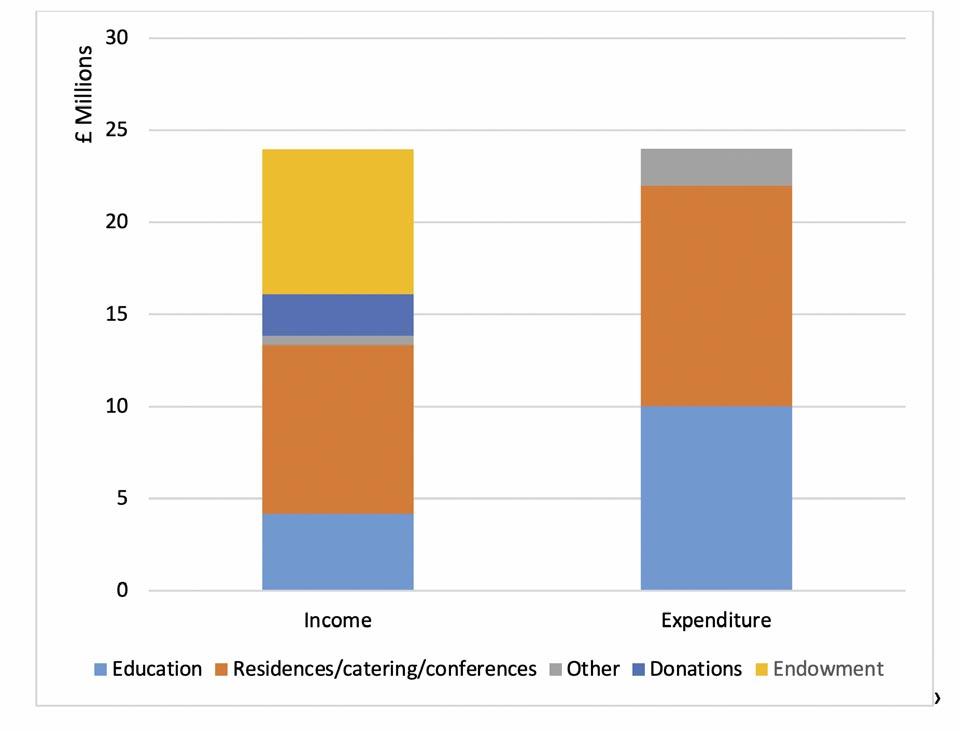
College Income and Expenditure
2023/2024
business, with West Court and its Forum extension doing well, the residences/ catering/conferences part of the operations also recorded a deficit, which continues to remain high due to the rising cost of providing catering and accommodation to the College’s students, Fellows and staff. Energy price inflation has been a particular issue, with the College’s energy bill increasing by £1m over the last few years.
These deficits are funded in part by donations, which remain an important source of income and endowment growth, totalling £4.1m in 2023-24. The endowment is the largest financial contributor to the College; half of which is invested in financial assets, and the remainder in directly-held property located in and around Cambridge. In 2022-23 total investment returns were 7.1%, the same as the College’s target of CPI +5%. These investments are overseen by the College’s Financial Investment Committee and Property Investment Committee, and I would like to take the opportunity to thank those who serve as external committee members (many of whom are alumni), who voluntarily offer their support and expertise to the College. The financial portfolio, which is primarily managed by Cazenove (part of Schroders) and the Cambridge University Endowment Fund, had a return 8.8%. This reflected movements within the global financial markets, with public markets performing ahead of private markets and alternatives.
In a subdued property market, the College’s property portfolio did well with a return of 5.5%. The College benefitted from increasing values for its commercial properties on Station Road, with rising rents and the completion of the redevelopment of 10 Station Road. This area of the town has become a central business district for technology and innovation, and it has seen major changes in the last decade. Residential values fell, while rural land prices increased. The College continues to benefit from a diversified portfolio in the Greater Cambridge area and is pursuing a number of development opportunities, including in the Station Road area and close to the Cambridge Biomedical Campus, both key areas for the development of technology and bio-sciences in which Cambridge is a global leader. The continuing focus of the Government on the role of Cambridge as an engine for growth, demonstrated with the formation of the Cambridge Growth Company, bodes well for the future.
We continue to make progress on a range of environmental initiatives and the College remains a leader in the collegiate University on sustainability across all its activities. We have an active Environmental Committee and a Decarbonisation Working Party (which I chair). The College is a supporter of the early-stage Cambridge City Heat Network, which aims to develop a city-wide district heating network fuelled by renewable energy sources. The College has been working with the University and the other Colleges and universities to encourage the banks to rethink their approach to the financing of new fossil-fuel infrastructure, resulting in the formal launch of a tender process for a sustainable cash deposit account and a money market fund. There was also the recent announcement about the creation of an investable corporate bond index, which enables investors to avoid financing fossil fuel expansion. This project was started by researchers based at the College, and has resulted in an agreement between the University and Bloomberg to formally launch the index
I will finish by saying a huge thanks to all our incredibly dedicated and hard-working members of staff who are absolutely essential to the success of the College.
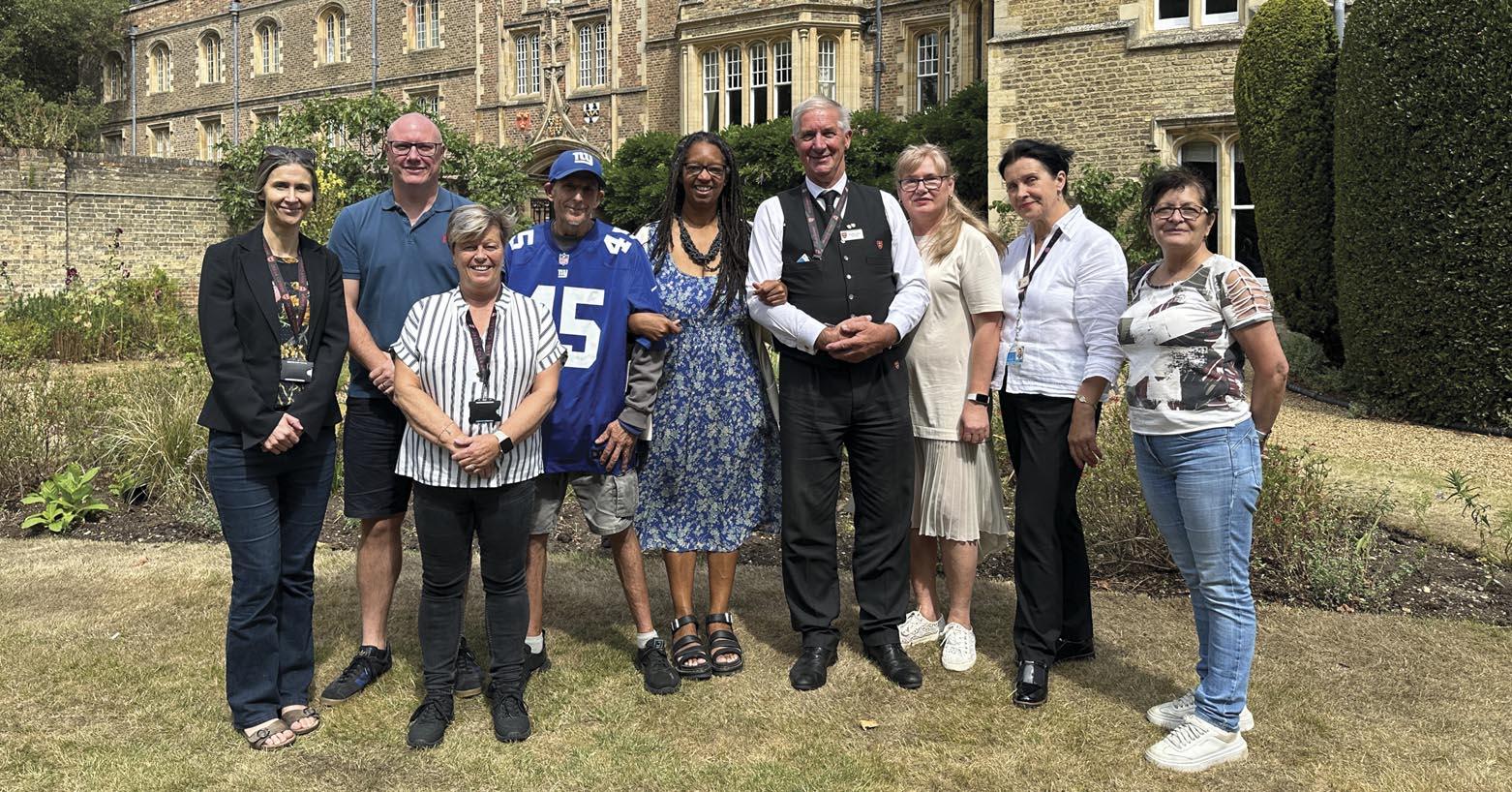
Some of the members of staff who received long-service awards this year
One of the more pleasurable duties of my position is to write to members of staff, who have been given long-service awards. I would particularly like to pay tribute to Mike Morris, who joined the College in 1980 and has reached the incredible milestone of 45 years’ service:
Ten years
Maria (Csabane) Bodis – Housekeeping
Marta Bujnowska – Housekeeping
Helen Harris – Communications
Richard Secker – Maintenance
Tatjana Tretjakova – Housekeeping
Fifteen years
Jenny Man – Housing
Stephen Sayers – Catering
Twenty years
Steve Smith – Porters
Twenty-five years
Geoffrey Howe – Porters
Patricia Donoghue – Housekeeping
Renata Szafranska – Catering
Thirty years
Maria Jacklin – Housekeeping
Jacqueline Poskitt – Tutorial
Thirty-five years
Susan Chapman – Housekeeping
Alison Spragg – IT
Forty-five years
Michael Morris – Gardens n
Domestic Bursar
Stuart Websdale, Domestic Bursar
This report summarises the work undertaken across College operations covering the areas of Housekeeping, Gardens, the Boathouse, Maintenance, Housing, the Porters, the Catering, Conference and Events departments and Health and Safety. Together, we’ve focused on delivering strategic priorities including sustainability, infrastructure improvement, student and staff wellbeing, and community engagement. Many of these achievements are thanks to the collaborative efforts of operational managers, Fellows, staff and students.
Building projects
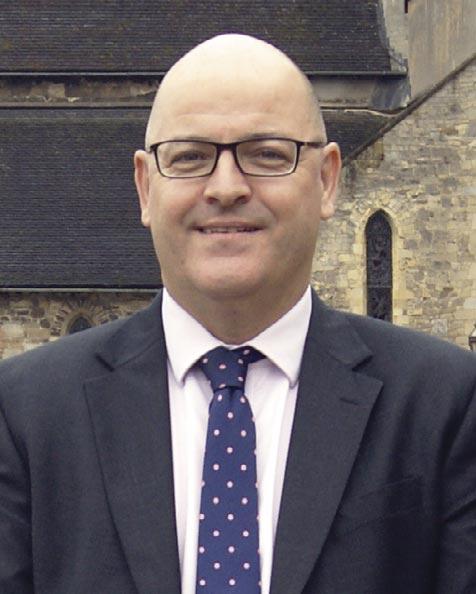
A major milestone this year has been the installation of photovoltaic panels on the roofs of the Forum and Gym (pictured below), completed during the summer. The Decarbonisation Working Party will continue to monitor performance. Further locations are under review to extend this initiative.
The Buildings Committee reviewed a wayfinding proposal from consultant Nick Hawksworth. The report included suggestions for sympathetic signage to improve navigation through the College. Fellows have contributed valuable feedback and further consultation is planned.
The stone fragments collection, formerly dispersed across multiple sites, has now been consolidated in the Forum. Dr Mark Samuel, recommended by the Cambridge Archaeological Unit, has assessed these historic materials. His work identified 13th century gravestones and CAD-based illustrations are in development to support future publication.
Work has also been progressing on the site-wide space optimisation plan. This aims to ensure rooms are being used effectively, minimising energy use and aligning with the College’s 2030 decarbonisation strategy. A trial is planned for room P1b, with window treatments and insulation to be tested.

Maintenance of heritage assets continues. Hirst Conservation undertook a non-invasive survey of deteriorating stonework in the Cloisters. Their report noted significant deterioration of clunch stone and proposed actions are under review.
Environmental matters and sustainability
Environmental sustainability remains a high priority. The Decarbonisation Working Party continues to meet regularly, working against a detailed action plan and targets. A procurement strategy and benefits realisation template have been developed to support investment decisions. The Sustainability Strategy Progress Report 2025 has been approved for publication.
Maintenance upgrades include the extension of utility meters across College buildings. Data now allows building-level energy analysis. Upgrades to the Building Management System (BMS) support both monitoring and fault diagnosis.
The College has completed LED lighting replacements in several areas, including the Prioress’s Room. The lighting scheme – developed with Erco – used a combination of spotlights and wall washers to preserve the aesthetic of the space and protect artworks.
The Head Housekeeper led a successful trial of eco-friendly Grace and Green cleaning products. These are now standard across the College and have been extended to student accommodation. It is hoped students will continue using these products to reduce chemical waste at term end.
Two new electric vehicle charging stations will soon be installed – each supporting two vehicles – in North Court and the Housekeeping car parks. Usage will be charged at University rates to offset installation and maintenance.
Gardens and College Grounds
The Head Gardener and team have continued to enhance biodiversity and usability of the grounds. A ‘tapestry lawn’ was trialled at Lower Park Street, and additional planting added to the nature trail and orchard. The gardens team also improved drainage on the sports fields and implemented a non-toxic weed management solution for paths.
An electric barbecue has been installed at the Cricket Pavilion and is now available to book for functions.
Designs have been completed, and the installation date is imminent, for solar-powered aerators in Jesus Ditch to discourage duckweed accumulation. A project to create a secure Grounds and Gardens Compound adjacent to the cricket nets has been recommended to Council.
Collaborations with the College Librarian have enhanced biodiversity awareness. Wildlife walks and flower arranging sessions have been offered, and a ‘dead hedge’, inspired by Beth Chatto’s Garden, has been installed to support wildlife in the woodland walk.
Catering and conferencing
Head Chef Sumit Chakrabarty, who joined in July 2024, has successfully introduced a new set of menus across College catering operations. Feedback has been positive and Sumit welcomes suggestions from College members.
The Manciple continues to work with the Master, IF Director and Director of Development and Alumni Relations to develop a strategy to increase year-round conferencing revenue. Plans are being developed to integrate Wesley House into the conferencing offer.
Health, safety and security
A refreshed Health and Safety Management Plan has been implemented under the leadership of the Health and Safety Adviser. Focus last winter was on reducing slips, trips and falls. Reports from the Health and Safety Committee indicate that timely responses continue to be made to any issues raised. The Maintenance Fault Reporting system has been updated to include indicators of health and safety risk, helping prioritise repair work.
Community Engagement
The College once again participated in the Cambridge Half Marathon, with six members of the Fellowship among the 100 College entrants. The Red Hen staff and the Cambridge Steel Pan Society were present again this year to cheer on runners and raise visibility for community partnerships.
Other matters
The College has taken possession of Wesley House, and work is underway to integrate its facilities into West Court. This marks an important moment in our history, returning the site to College use after more than a century. The expansion adds 22 postgraduate bedrooms, 20 conference bedrooms, five meeting rooms and space for a new archives centre with offices and research facilities. This long-held ambition will establish Jesus College Archives as one of the leading archives in the collegiate University. Our staff are working hard to bring these spaces into use quickly and in keeping with the style of West Court.
This year, we said farewell to Richard Secker, who retired after a decade as Maintenance Manager. We thank him for his dedicated service. We also welcomed Mr Lance Weinman as Head of Estates, Energy and Capital Projects. His appointment reflects the College’s ambition to strengthen its project delivery and sustainability focus. n
A view of Wesley House from West Court
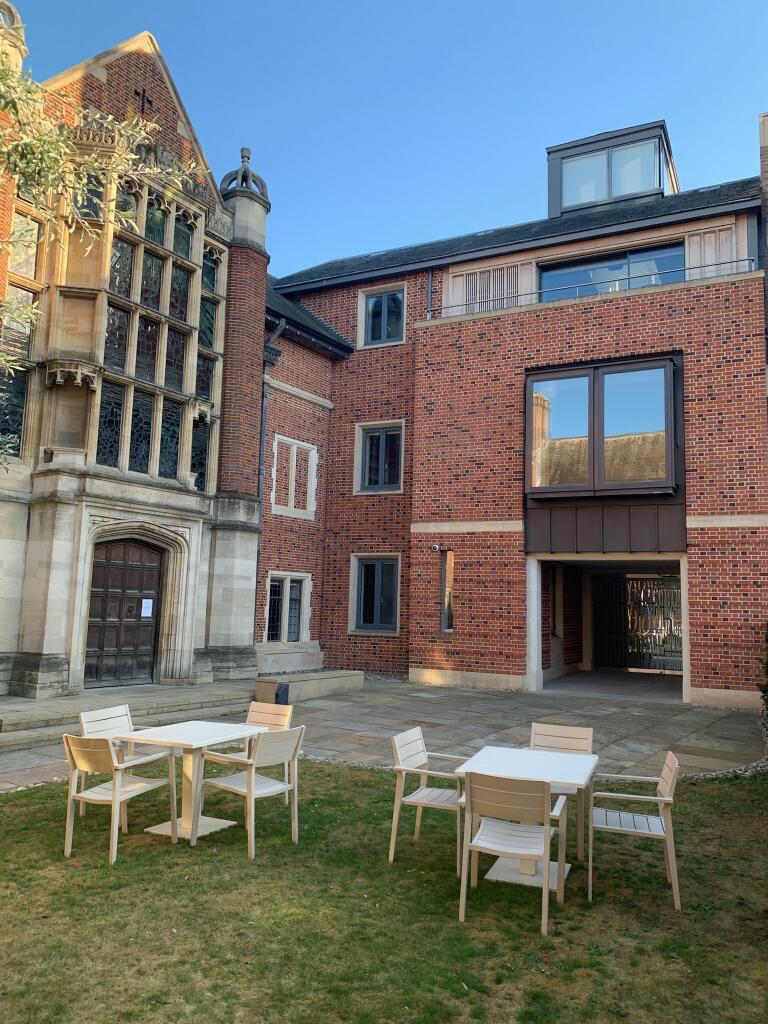
The Chapel
The Rev’d Jon Sanders, Assistant Chaplain
The Chapel offers a spiritual home to all students, Fellows, staff and visitors both as a house of Christian devotion and as a sanctuary of peace and beauty in the heart of the College. Through worship and intellectual enquiry, it aims to probe and extend our ideas about life and the world. Through culture and community, it fosters fellowship across differences of background and outlook. Through pastoral and spiritual care, it provides support and guidance for every member of the College in the various circumstances of their lives, study and work. A great number of people are touched by their involvement with this unique community.
The first duty of the Chapel is to provide for the worship of God through a rich variety of liturgy and worship. During term, the Eucharist is offered every Sunday and additionally for certain festivals (such as All Souls, Candlemas and Corpus Christi); the College and Chapel Choirs sing Evensong four times per week; Morning Prayer is said every weekday; and twice-termly choral Compline (followed by port and cocoa in the Dean’s rooms) remains a feature in the calendar. We were delighted to continue collaborations with visiting choirs and host representatives from a number of College livings.
Guest speakers at Evensong on Sundays tackled (in Michaelmas Term) the seven deadly sins, considered (in Lent Term) the ‘art of flourishing’ and finally (in Easter Term) explored the spiritual, social and psychological dimensions of music. Speakers included religious, cultural and scientific leaders from Cambridge and beyond. Those who attended Evensong on Tuesdays benefitted from hearing students deliver a ‘nanosermon’ on a matter of personal or academic interest. For the Feast of the Annunciation in March, the Senior Organ Scholar Michael D’Azanzo organised a full round of pre-Reformation ‘Sarum’ offices, beginning with Matins the night before and ending with Compline the next evening (including admirable attendance at the 6am service of Prime). In May, Choral Evensong was broadcast live from the Chapel on Radio 3. Collections were taken across the year for the charities Lyn’s House, Amnesty International, Safe Spaces, Winter Comfort, WaterAid and Nordoff and Robbins.
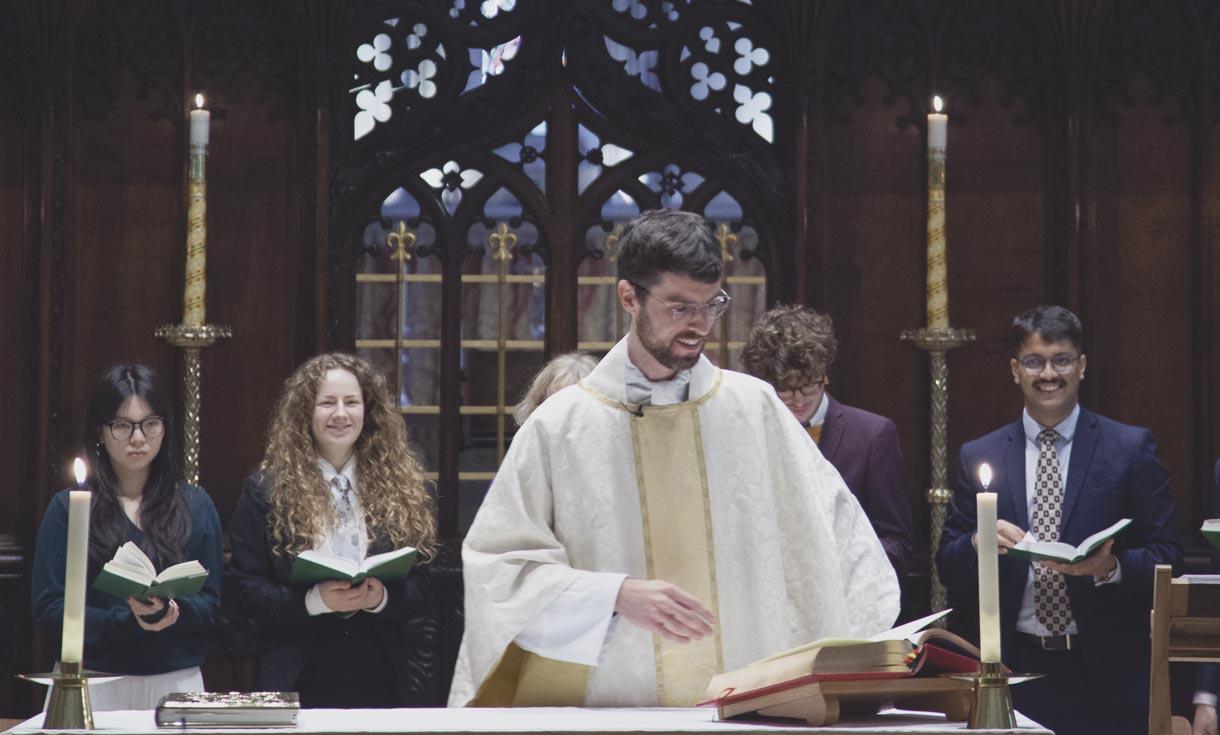
The Assistant Chaplain and singers at the Sunday Eucharist. Credit: Patricia Boulhosa
One of the ways the Chapel serves the College community is by marking important life events and commemorating former members. This year it hosted memorial services for Mr Peter Glazebrook (Fellow, erstwhile President and Vice Master) in November and Professor Lord Colin Renfrew (Master 1986-97) in March. There were eight weddings of alumni and staff and two baptisms.
Chapel outings afforded College members a tour of the architecturally celebrated Cambridge Central Mosque and a day in Norwich, which began with a visit to the Julian Shrine, the site of the cell of the eponymous medieval mystic. Groups on ‘the happy life’ and Jesus’ parables brought people together for discussion and fellowship. The annual interfaith dinner was extremely popular. A number of cultural events were hosted in the Chapel, including musical recitals, sketching sessions with the College Art Club and an interactive re-imagining of Dante’s Inferno.
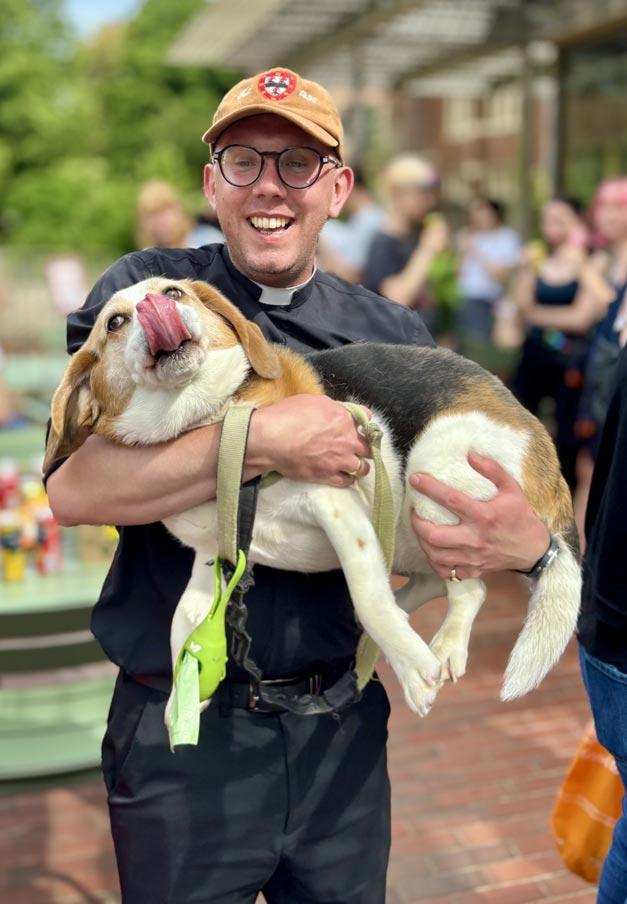
This year the Rev’d Jon Sanders joined the Chapel team as Assistant Chaplain and Max Mason as Secretary to the Dean of Chapel and Chapel Office. Practical and technical assistance was supplied for Chapel services through the dedicated efforts of our large team of Chapel Secretaries – Jonny Ball, Alice Bennett, Kian Cross, Elisabeth Jones, Caitlin Norman, Zain Robson, Elijah Sheldrake, Edith Steward, Barney Watts, Max Woodward and Martha Wright – overseen by the Chapel Clerks Mark Turner, Lucy Halfacre and Nathan Brooks. Last, but not least, we are grateful to the many who make music and support music-makers in the Chapel: the Director of Music, Ben Sheen; Organ Scholars Michael D’Avanzo and Miriam Reveley; the Chapel and Choir Office Coordinator Eleanor Lancelot; the choirs, choristers and all who support them. n

Pippy and Popsicles with the Dean
Members of the Art Club at a Chapel sketching visit
Chapel Music
Benjamin Sheen, Director of Music
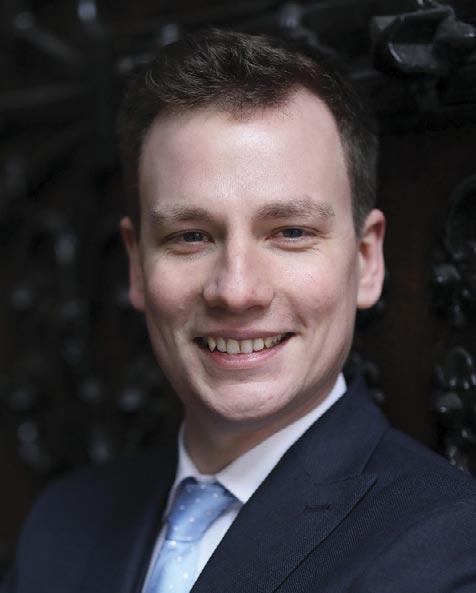
Jesus College continues to shine as a beacon of musical excellence within the University, encompassing a diverse programme of choral and instrumental opportunities that celebrate the wide-ranging creativity and talent of the student body within the College.
The academic year began with another exciting collaboration for the Jesus College choristers, joining St Catharine’s Girls’ Choir to celebrate the feast of Michaelmas at St Botolph’s Church. Highlights of the Michaelmas full term included the annual Fresher’s Concert in October, a repeat performance of Fauré’s Requiem for All Soul’s Day with the East Anglian Chamber Orchestra, and the solemn Remembrance Day service in the Chapel. The JCMS Orchestra performed to a packed Chapel in November in a programme of music by Verdi, MacCunn and Bizet. Also in November, the choir was honoured to sing for the memorial service of Peter Glazebrook, which was attended by a large congregation of Fellows, both present and former. One of the highlights of the year was the annual Advent Carol Service, which was soon followed by a busy schedule of Christmas carol services. After performing a programme of J. S. Bach’s Magnificat and Wachet auf with the OAE Experience Ensemble and members of the Cambridge Collegium Musicum, the College Choir embarked on a four-day tour to Denmark, performing in and around Copenhagen to large and enthusiastic audiences.
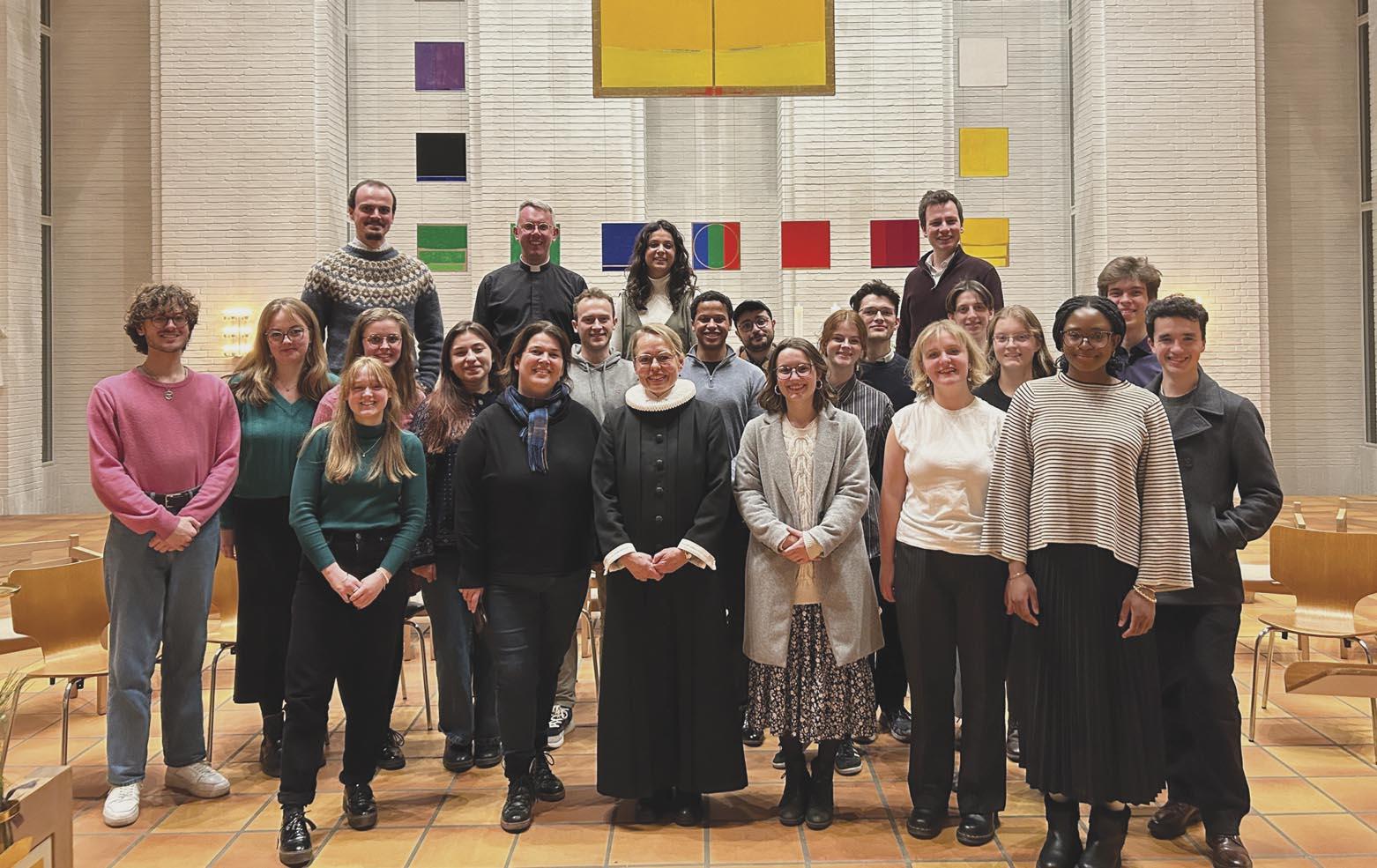
The College Choir with hosts in Copenhagen
Lent Term began with the College Choir performing at Saffron Hall as part of a massed choir performance of Beethoven’s Missa solemnis, under the baton of Edward Gardner (chief conductor of the London Philharmonic Orchestra). The choir also sang at the memorial of Colin Renfrew in March and gave a Lenten concert of music by Buxtehude and the contemporary American composer, Caroline Shaw, featuring numerous choir members as soloists. The annual Hadfield Composition Competition received a record number of entrants this year, and the Choir was pleased to premiere the winning anthem by Robert Hamilton (Eastman School of Music, New York), setting a prayer by the former Jesuan, Thomas Cranmer. The David Crighton Concert continues to be a musical high point of the year and showcased the talent of the College’s instrumentalists and conductors in a programme of music by Vaughan Williams, Haydn, Debussy and Finzi. Freddie Jemison (Crighton Concerto winner) gave a stellar performance of Haydn’s Trumpet Concerto.
The Choir began Easter Term with a joint service with Girton College, before performing Choral Evensong live on BBC Radio 3 for the first time since 2022.
The annual ‘Be a Chorister for a Day’ saw 12 prospective choristers join our current choristers for a singing workshop and Evensong in the Chapel. In June, we also hosted 13 Directors of Music from around the country to learn more about the musical opportunities within the College.
In early July, the choir released their latest album, The Living Fire, which has already received some favourable reviews and has been heard on BBC Radio and Classic FM. The term concluded with an eclectic series of May Week concerts in the Chapel (including orchestral performances of music from film and shows, alongside the talented saxophone and guitar ensembles), and a final concert by the choir which featured Leonard Bernstein’s beloved Chichester Psalms as the centrepiece.
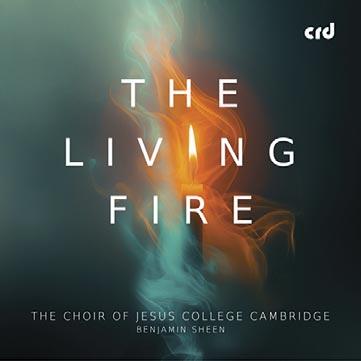
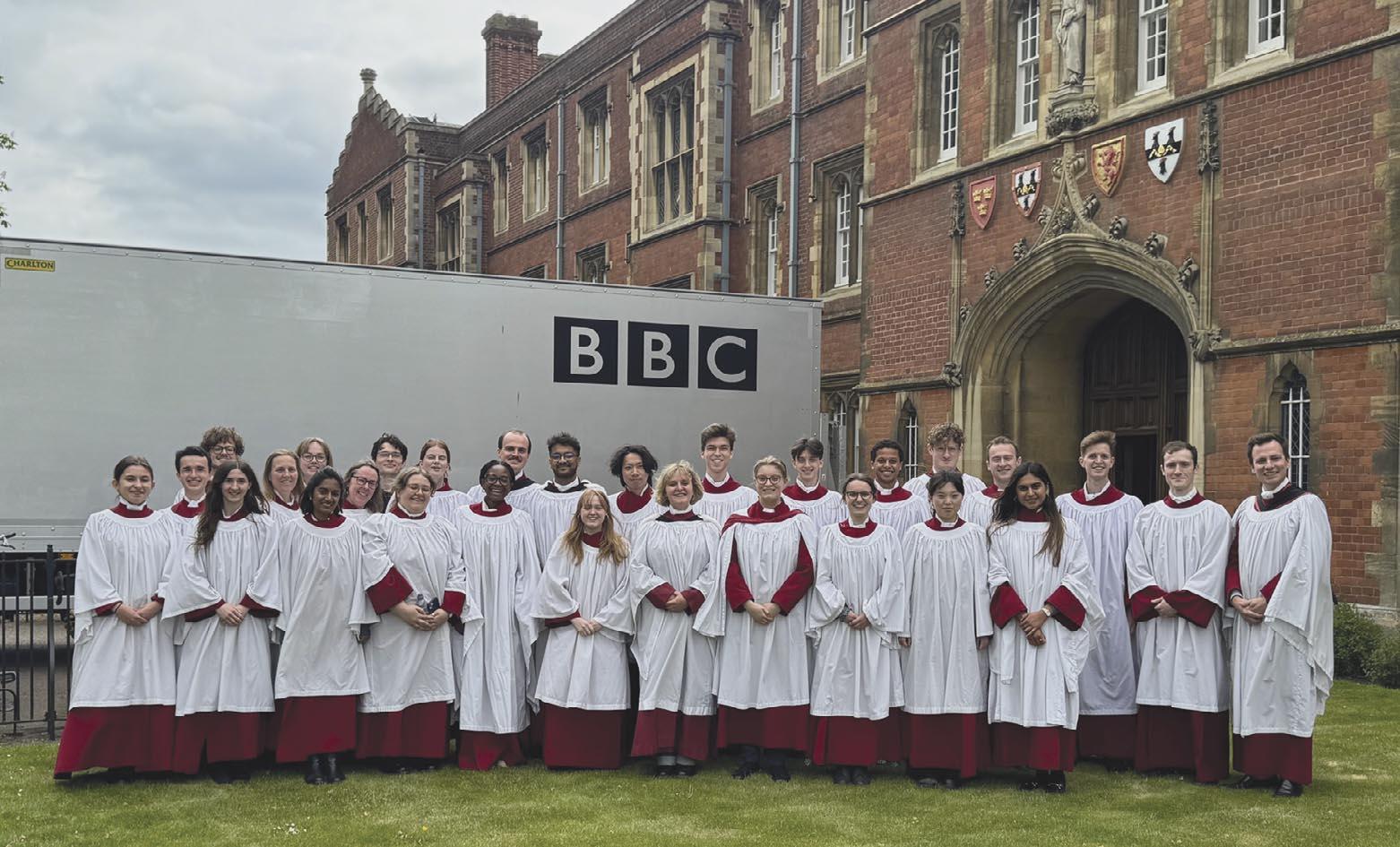
The College Choir broadcasted live on BBC Radio 3
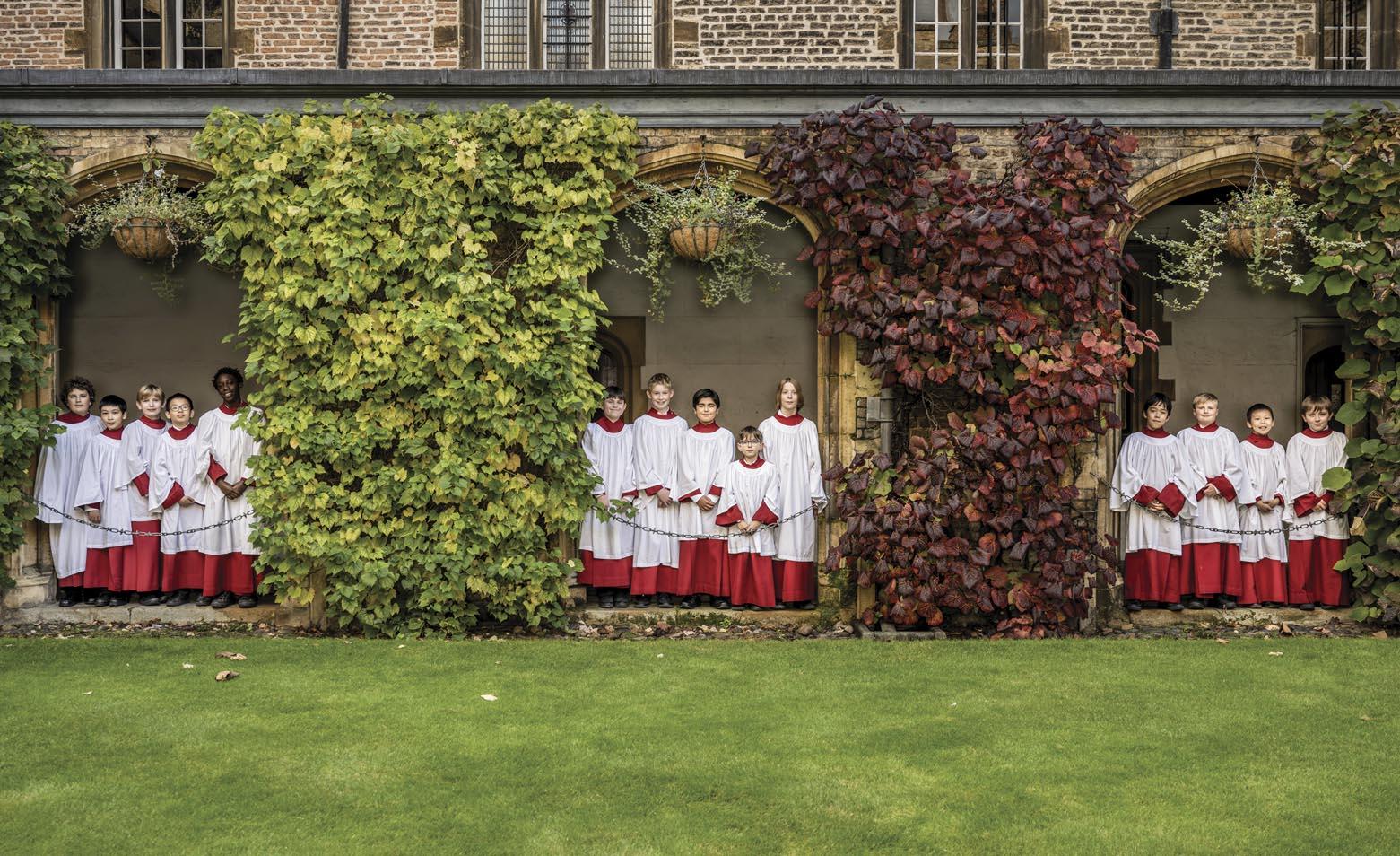
This year, we have been pleased to welcome several schools and international choirs to the Chapel to sing joint services with the choirs here. These have included Bruton Parish Church (Williamsburg, Virginia), Hereford Sixth Form College and the English Martyrs School (Leicester). Celebrated composer Cecilia McDowall also attended the Evensong with Bruton Parish Church, where the joint choirs and organ scholars performed several of her works.
The JCMS has continued to thrive and expand under the leadership of the current co-Presidents, Mika Curson and Lizzie Caird. A new Wednesday lunchtime recital series was introduced, and audience members at all JCMS events, particularly the orchestral concerts, have continued to increase. I am grateful to the entire JCMS committee and excited to see the programme of concerts and performances continue to grow.
As ever, I am indebted to the support I receive from my colleagues in the Chapel and Music department. I would like to recognise our two organ scholars, Michael D’Avanzo and Miriam Reveley, our wonderful choir librarians, Caitlin Cutts and Jeremy Stafford, the chorister chaperone, Miranda Wright, Max Mason (Secretary to the Dean), James Crockford (Dean of Chapel), Jon Sanders (Assistant Chaplain) and of course Eleanor Lancelot (Choir and Chapel Office Coordinator), all of whom are so integral to the smooth running of the department and are a pleasure to work with. n
The Choristers. Photo by Andrew Wilkinson
The Library and Archives
Dr Michael Edwards, Keeper of the Old Library and Fellow Librarian; Rhona Watson, Quincentenary Librarian; Dr Robin Payne, College Archivist
The Old Library
The Old Library has had another busy year, hosting many academic visitors and researchers from Cambridge and further afield, and introducing many College members to our collections for the first time. As always, we have run tours for visiting alumni and participated in the popular Annual Donors’ Garden Party in July: it is always a pleasure to host returning Jesuans and show them aspects of the collection they may not have seen before. A work experience student from a local school also spent two days in the Old Library in Lent Term, working on cataloguing some of the printed book collection and other projects.
Researchers working on a wide range of topics have used the Old Library this academic year, with projects ranging from the life of Francis Sterling (1652-1692), Fellow and book donor, to the history of the Library’s stained-glass windows. The collection of medieval manuscripts continues to attract the attention of significant numbers of researchers. Although we also answer queries by email, a steady stream of researchers have come to the Library to consult the collections over the year: for most scholars, interacting with and handling the items they need to see in person
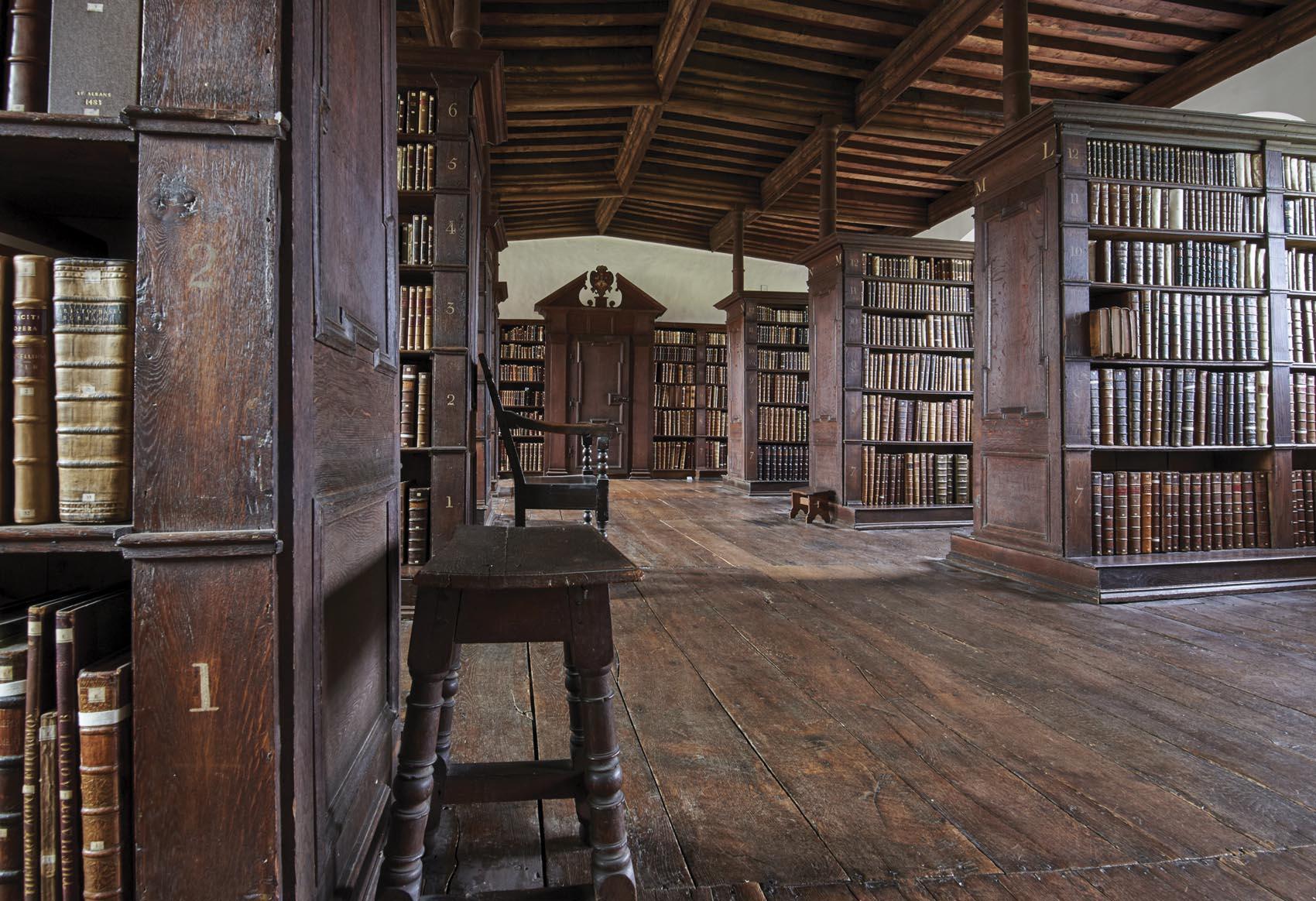
is vitally important. The Old Library benefits as much from the expertise of visiting researchers and readers as they do from using our collections: as a result, our knowledge of the history and fabric of the Library is always expanding.
In previous years, the Old Library took part in Cambridge University Library’s Curious Cures research project, funded by the Wellcome Trust, conserved and digitised more than 180 medieval manuscripts containing medical recipes from College libraries across Cambridge and made them available online in the Cambridge Digital Library. We hope to partner with other libraries and institutions in the future to digitise more of the manuscript collection. The Curious Cures project culminated in a exhibition at the University Library, which features several of the Jesus manuscripts that the project digitised. The exhibition is running until December 2025, is free to visit, and is highly recommended for those interested to see a range of the medieval treasures held in Cambridge libraries.
The important cataloguing project run by Assistant Keeper Chris Barker, which will make the entire printed book collection available through the University’s online catalogue, continues. This year Chris’s work is feeding into the Old Library exhibition planned for Michaelmas Term, which will showcase items from the collection and the library’s history. The information cataloguing reveals about the provenance and history of the collection is vital for all the research and teaching activities that take place in the Old Library. The Old Library is a constantly evolving resource for research and scholarship in the College. n
The Quincentenary Library
It has been another successful year for the Quincentenary Library. Academic skills support is developing with an increase in student drop-in sessions and 1-to-1s with Fellows, new elements are being added to the LibGuide for asynchronous learning, and after posting regularly from the College Instagram account, the Quincentenary
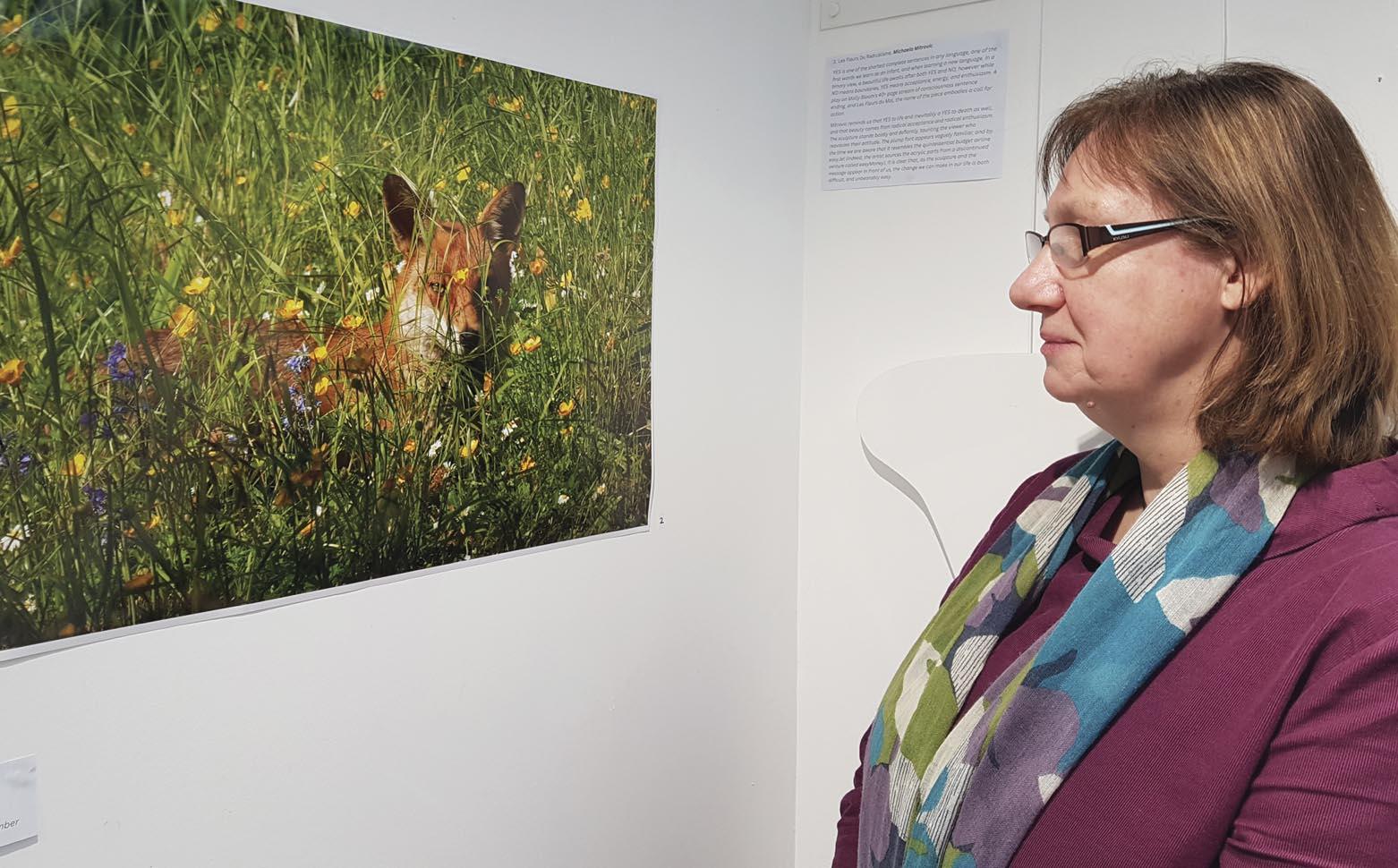
Quincentenary Librarian, Rhona Watson and the ‘College fox’. Photo by Jean Bacon
Library launched its own account in February: @jesuscollegeqlib. The new Library mascots have brightened up some of our posts and served as an eye-catching way to disseminate information.
We are broadening and deepening engagement with people, both within College and externally. We have collaborated with departments including the Gardening Team (via biodiversity for College, flower arranging sessions and our Seed Library) and the Old Library and Archives (to run a popular tour of the Paolozzi exhibition), while externally we worked with Jesuan Justine Provino (2019) from the University Libraries Conservation Department to run a bookbinding workshop in College. Meanwhile, staff members have individually participated in the Jesus College Art Club shows, the John Hughes Festival and the short story competition (where Sarah Burton was a prizewinner). Staff also enjoyed visiting Oxford for the biennial OxCam College Librarians Conference, at which the Quincentenary Librarian delivered a talk on Academic Libraries of the Future.
The Library received a large bequest of 25 boxes of books from Robert (Bob) Woodings, (1960, English). We kept some of the books for the library, donated some to the Old Library and Archives, and one was donated to the University Library.
The family were happy for the majority of the bequest to go into our annual book sale where many found good homes amongst the Jesuan community.
We have collated many of our children’s books and created a small collection in two parts (0-5 years and 5-9 years). The Library has many books originally bought for our trainee teachers, but the collection (launched June 2025 – just in time for summer!) has also proved useful for Jesuans with children.
With borrowing and visiting figures up, the Quincentenary Library is just as busy as ever and will no doubt continue to go from strength to strength. n
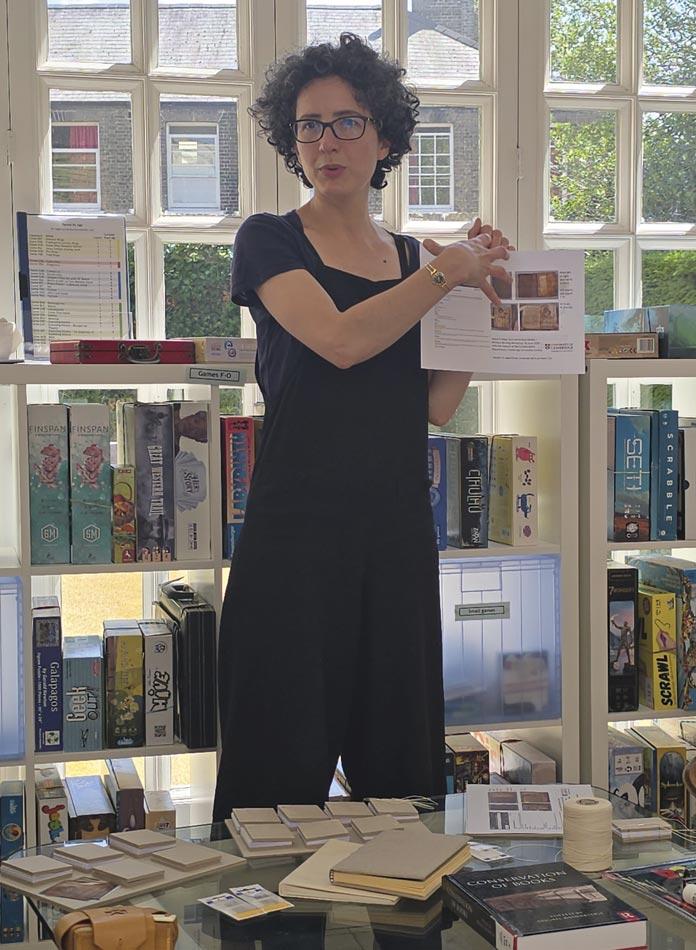

Justine Provino from the UL Conservation Department delivered the bookbinding workshop.
Photo by Diana Caulfield
College Archives
It has been a year of change and productivity in the Archives at Jesus College. Katy Green, the Assistant Archivist for five years, left us in December to become the College Archivist at Clare College. Katy was a valuable member of the team, with great expertise and knowledge, who we knew it would be very hard to replace. We wish her every success in her new job. In February we recruited Duncan Rule as the new Assistant Archivist. Duncan recently graduated as an Archivist and comes to us with a strong recommendation from Pembroke College, where he had been volunteering. In addition to being the new Assistant Archivist at Jesus College, Duncan will continue in his role as a Digital Asset Manager at Cambridge University Press. He brings to the College Archive an enthusiasm for historical research and a background in Information Technology that will become ever more important as the College Archives seeks to create a more comprehensive digital strategy.
Much of the Archivist’s time over the past twelve months has been spent planning the whole archive move to a new state-of-the-art Archive Centre within Wesley House Chapel. In Michaelmas 2024, with help from staff and volunteers, the Archivist began a process of space realisation and optimisation to better understand the extent of the College Collections and what the demands would be on the Archive’s space for the next fifty years. Since the conclusion of this special analysis, we have been working with storage specialists and architects, who are experienced in bringing ecclesiastical spaces into sympathetic alternative use, in order that we might maximise the potential of the exciting spaces available.
The new Archive Centre will bring together existing archive materials into a central space, supported by adjacent research and reading rooms, a digitisation suite and a secure ‘treasures room’ with fire suppression to protect the College’s most significant historic records. This exciting development will improve access for staff and researchers and ensure long-term protection of the College’s historic memory.
Alongside preparations for the move, our volunteers have continued their vital work cataloguing important College records. Michael Johnston, Jade Browett, Alice Whitehead, and Kate Stockwell have been cataloguing 18th-20th century receipts for goods and services provided to the College. This longstanding project not only uncovers valuable historical insight but also develops advanced palaeography and archival description skills. A special thanks goes to Alice Whitehead, who has volunteered in the Archives for four years while completing a History PhD, and has recently begun work as an Archives Assistant at the Ely branch of Cambridgeshire Archives.
Our main exhibition this year, Jesus College: Student Life, was installed in the Marshall Room in Michaelmas 2024 to welcome students and their families. It traced the College’s history from its foundation, through the growth of its grounds and buildings, to the lives of community members including Bishop John Alcock, Fellows, students, alumni and the current Master, Sonita Alleyne. The exhibition was so well received that it will now return each Michaelmas to welcome new students and introduce them to the College’s 500-year story. Donations to support the Archives and future exhibitions can be made through the Development and Alumni Relations Office.
Work is also underway with the Trustees of Jesus College Boat Club on their bicentenary plans for 2027. These include an exhibition in the Marshall Room and two
publications: an update to the Red Book, listing crews and results, and a richly illustrated presentation book on the Boat Club’s history. To support this, the Trustees have funded a Project Archivist post to catalogue the personal papers of Percy Bullock, College Boatman from 1924-1971. In May, Kate Stockwell –an experienced project archivist with strong links to the College – began a five-month role to catalogue and digitise these records. Her work is already shaping the 2027 celebrations and will provide valuable insights into a golden era for JCBC.
We continue to receive donations, for which we are very grateful. This year, with a focus on the Boat Club, we have received items including: a trophy prow for a Rugby boat from May 1981; signed May Races menu from 1981; items related to Mark W Dodd (Jesus College Alumni and Rowing Coach 1989-1991); a photograph of Jesus IV rowing as ‘Cambridge’ at Henley, 1971; an audio cassette of Percy Bullock speaking; an ice bucket trophy from 1885; and the rowing collection of John Morrison (1957) which includes photographs, menus, cox’s rudder and cox’s cap. Finally, outside of rowing, we have also received the wonderful records related to former Fellow, Freddy Brittain’s time in his home town of South Mimms, Hertfordshire; and the historically important personal papers and memoirs of the former civil servant John Rimmington (1956).
Gifts to the Archive are always hugely appreciated and any further donations of college related items from alumni are always greatly received. The catalogue descriptions for the collections and documents above mentioned can be viewed on the online archives catalogue n

Percy Bullock
Books and articles by Members and Old Members of the College donated to the Libraries
The donations acknowledged here are those received before the end of June 2025. Any items received after that date will be listed in next year’s Report.
ANGUS-COLE, K.L. (2009) From Wellbeing to Welldoing: How to Think, Learn and Be Well [Editor-in-chief: L.H. Ofosu-Appiah] (London, Sage, 2024)
BARR, R.A. (1996, Fw 2019-) Revisiting Richardson (Lewisburg, Pennsylvania, Bucknell University Press, 2025)
BLAKE, R.J. (1967) i) Original Sins (Magoo Editions, 2024); ii) War Time: Six Old-Fashioned Stories (Magoo Editions, 2024); iii) Cecco and Becchina: a Sequence after Cecco Angiolieri’s Sonnets (Magoo Editions, 2023)
COX, A.M. (née Feuchtwanger, 1982) Kinderbriefe aus dem Exil: Edgar Feuchtwanger in England 1939/von Edgar Feuchtwanger und Antonia Cox (Berlin, Duncker and Humblot, 2024)
DATE, C.J. (1959) i) Database Technology: Nulls Considered Harmful: the Problem of Missing Information (Sedona, AZ, Technics Publications, 2024); ii) Domains and Types in Relational Theory and SQL: Shedding Some light on a Widely Misunderstood Concept (Sedona, AZ, Technics Publications, 2024)
EVANS, J.L. (1974) Undefeatable: Odesa in Love and War (Edinburgh, Scotland Street Press, 2024)
FRIEL, S.J. (1996) The Law and Business of Litigation Finance (London, Bloomsbury Professional, 2024)
GELLING, P. (1966) Liverpool by Urban Sketchers (Liverpool, Liverpool Urban Sketchers Limited, 2024)
GILLIS, R.J. (1976) Protection, Preservation and Conservation of our Oceans: an Ocean Public Trust (Newcastle upon Tyne, Cambridge Scholars Publishing, 2024)
HANSEN, L.M. (1996) Where’s the Harm?: an Alternative Introduction to Criminology (Bradford, Ethics International Press Ltd, 2024)
HARTSTON, W.R. (1965) i) Knock, Knock: In Pursuit of a Grand Unified Theory of Humour (London, Watkins, 2023); ii) The Things that Nobody Knows: 501 Mysteries of Life, the Universe and Everything (London, Atlantic. 2012); iii) The Encyclopaedia of Everything Else (London, Atlantic Books, 2022); iv) Even More Things that Nobody Knows: 501 Further Mysteries of Life, the Universe and Everything (London, Atlantic Books, 2015); v) Numb and Number: How to Avoid Being Mystified by the Mathematics of Modern Life (London, Atlantic Books, 2020); vi) Sloths: A Celebration of the World’s Most Maligned Mammal (London, Atlantic Books, 2018)
HENKES, R. (2018) Contested Memories: the Role of Victim Rivalry in Shaping Heritage and Memory at the Concentration Camps of Dachau and Ulm –Oberer Kuhberg (Cambridge, Cambridge University, 2024)
JENKINS, T.D. (Fw 1992-) i) Flying Saucers: an Introduction (Oxford, Peter Lang, 2025); ii) Religion and Science Fiction (Oxford, Peter Lang, 2025); iii) Martian Linguistics (Oxford, Peter Lang, 2025); iv) UFO Reports (Oxford, Peter Lang, 2025); v) Alien Sightings (Oxford, Peter Lang, 2025); vi) Images of Elsewhere (Oxford, Peter Lang, 2025)
JOHNSON, H.G. (1945) i) The Current Inflation: Proceedings of a Conference held at the London School of Economics on 22 February, 1971 (London, Macmillan, 1971); ii) Selected Essays in Monetary Economics (London, Allen and Unwin, 1978); iii) Readings in British Monetary Economics (Oxford, Clarendon Press, 1972); iv) Further Essays in Monetary Economies (London, Allen and Unwin, 1972); v) Inflation and the Monetarist Controversy (Amsterdam, North-Holland Publishing Company, 1972) [Donated by Trinity College Library]
KAUDERS, D.J. (1964) Reinventing Democracy: Improving British Political Governance (Great Britain, Sparkling Books Ltd, 2024)
KEMP, I.C. (1978) Pinch Analysis for Energy and Carbon Footprint Reduction: User Guide to Process Integration for the Efficient Use of Energy (Kidlington, Oxford, Butterworth-Heinemann, 2020)
LEECH, R.H. (1963) The Early Medieval Monastic Site at Dacre, Cumbria (Lancaster, Oxford Archaeology North, 2022)
MITCHELL, P.D. (1939) [Several boxes of publications from 1945-1992 – as yet uncatalogued – gifted by Peter Rich]

MITCHELL, J.C.W. (Fw 1996-) i) Fratriarcato: il Trauma della Fratria e la Legge Della Madre (Rome, Astrolabio, 2024); ii) Fratelli e Sorelle: Psicoanalisi delle Relazioni Laterali (Rome, Astrolabio, 2024); iii) Kardesler: Cinsellik ve Siddet (Istanbul, Istanbul Bilgi Üniversitesi, 2012); Frauen – die längste Revolution: Feminismus, Literatur, Psychoanalyse (Frankfurt am Main, Fischer, 2018); v) Скрытая жизнь братьев
, 2020)
PRATT, S.C. (1989) i) The Science of Liberation (London, Simon Pratt, 2025); ii) Life and Consequences (London, Simon Pratt, 2024); iii) The Bohemians (London, Simon Pratt, 2022); iv) The First Blonde and Other Tall Tales (London, Simon Pratt, 2022)
PRYNNE, J.H. (1957) i) Memory Working: Impromptus. XI-XVII (Cambridge, Face Press, 2020); ii) Dune Quail Eggs (Cambridge, Face Press, 2021); iii) See By So (Cambridge, Face Press, 2020); iv) Efflux Reference (Cambridge, Face Press, 2021); v) Memory Working: Impromptus (Cambridge, Face Press, 2020); vi) Memory Working: Impromptus XI-XVII (Cambridge, Face Press, 2020) [large format]; vii) Memory Working: Impromptus (Cambridge, Face Press, 2020) [large format]; viii) Duets Infer Duty (Cambridge, Face Press, 2020); ix; Timepiece in Total (Cambridge, Face Press, 2024); x) Alembic Forest (Cambridge, Face Press, 2024); xi) Aquatic Hocquets (Cambridge, Face Press, 2020); xii) Squeezed White Noise (Cambridge, Face Press, 2020); xiii) Kernels in Vernal Silence (Cambridge, Face Press, 2020); xiv) Passing Grass Parnassus (Cambridge, Face Press, 2020); xv) Hadn’t Yet Bitten (Cambridge, Face Press, 2023) [Donated by Gonville and Caius College Library]
ROLLS, E.T. (1964) Brain Computations and Connectivity (Oxford, Oxford University Press, 2023)
SHERIDAN, M.R. (1977) The Red Emperor: Xi Jinping and his New China (London, Headline Press, 2024)
TWISS. P.J. (2001) Joseph, Judah, and Plot: an Exploration of Narrative Continuity in Genesis 37-50 (New York, Peter Lang Publishing Inc, 2025)
WADE, G.K. (1959) Sixteen Songs from Themes, Dreams and Seasons: For Baritone and Piano/Written by Graham Wade, composed by Robin Highcock (Leeds, GRM Publications, 2024)
WHYTE, I.B. (1971) i) Beyond the Finite: the Sublime in Art and Science (New York; Oxford, Oxford University Press, 2011); ii) Modernism and the Spirit of the City (London, Routledge, 2003); iii) Beyond the Finite: the Sublime in Art and Science (New York; Oxford, Oxford University Press, 2011); iv) Metropolis Berlin,1880-1940 (Berkeley; London, University of California Press, 2012); v) Die Briefe der Glasernen Kette (Berlin, Ernst, 1986); vi) Hendrik Petrus Berlage: Thoughts on Style,1886-1909/ introduction by Iain Boyd Whyte; translation by Iain Boyd Whyte and Wim de Wit (Santa Monica, Getty Center for the History of Art and the Humanities, 1996); vii) “Modern Dioscuri: Otto Wagner and Hendrik Petrus Berlage” in Otto Wagner: Reflections on the Raiment of Modernity (Santa Monica, Getty Center for the History of Art and the Humanities, 1993); viii) Hot Art, Cold War: Southern and Eastern European Writing on American Art 1945-1990 (London, Routledge, 2021);
ix) John Fowler, Benjamin Baker: Forth Bridge texts Iain Boyd Whyte, Angus J. Macdonald; photographs Colin Baxter (Stuttgart/London, Axel Menges, 1997); x) Three Architects From the Master Class of Otto Wagner: Emil Hoppe, Marcel Kammerer, Otto Schonthal (Cambridge, Mass., MIT Press, 1989);
xi) Das Erhabene in Wissenschaft und Kunst: uber Vernunft und Einbildungskraft/ herausgegeben von Roald Hoffmann und Iain Boyd Whyte; aus dem Englischen von Friedrich Griese; unter Mitarbeit von Trixi Bucker (Berlin, Suhrkamp, 2010);
xii) “Vienna Between Memory and Modernity” in Shaping the Great City: Modern Architecture in Central Europe, 1890-1937 (Munich; London, Prestel, 1999);
xiii) “The expressionist sublime” in Expressionist Utopias: Paradise, Metropolis, Architectural Fantasy (Berkeley, University of California Press, 2001);
xiv) “Dix’s Germany: From Wilhelmine Reich to East/West Divide” in Otto Dix, 1891-1969 (London, Tate Gallery, 1992)
WILDING, A. (Hon Fw 2018-) On Paper (London, Ridinghouse, 2024)
WILKES, B.J. (née Garcia, 1978, Hon Fw 2018-) The Chandra X-ray Observatory: Exploring the High Energy Universe (Bristol, IOP Publishing, 2020)
WILKES, G. (Fw 2021) Profinite Groups and Residual Finiteness (Berlin, EMS Press, 2024)
WILLMOTH, F. (Fw Commoner 2009-2011; Fw 2011-2016) i) The Whipple Museum of the History of Science: Objects and Investigations, to Celebrate the 75th Anniversary of R.S. Whipple’s Gift to the University of Cambridge (Cambridge, Cambridge University Press, 2019); ii) ‘Mathematical Sciences and Military Technology: the Ordnance Office in the Reign of Charles II’ in Renaissance and Revolution: Humanists, Scholars, Craftsmen and Natural Philosophers in Early Modern Europe (Cambridge, Cambridge University Press, 1993); iii) The History of Celestial Navigation: Rise of the Royal Observatory and Nautical Almanacks (Cham, Springer, 2020) [many references to Frances’ works] [Gift of the family]
WOODINGS, R. (1960) Bequest of 25 boxes of books – see article on page 77.
Other donations, given by the following:
PAOLOZZI, E. Eduardo Paolozzi/by Judith Collins (Farnham, Lund Humphries, 2014) n
Art at Jesus
Dr Jonathan Tenney, Curator, Works of Art
As Curator, I thank Assistant Curator Laura Dennis for her efforts and advice this year. This was the most productive year since being made Curator, and none of the work would have been done without Laura. Both of us curators thank Maintenance, the Porters, West Court Reception, Professor Jean Bacon, Professor Roberto Cipolla, the Rev’d Dr James Crockford, Professor Rod Mengham, Paul McKenna, Lisa Rowe and Stuart Websdale for their assistance.
Exhibitions
We organised two exhibitions in the West Court Gallery. ‘Eduardo Paolozzi at Jesus College: Celebrating the Pioneer of Pop Art’ was curated by Laura Dennis. It featured several prints from the College collection, archival materials attesting to the artist’s connection to the College, and a self-portrait bust, kindly loaned by Professor Roberto Cipolla. It ran from12 October to 23 March.
‘Lightness‘ by Fiona Curran began on 22 May and runs until 26 October. It is a collection of paintings, drawings and sculpture. Some of the work is exhibition specific – in particular the wall mural – and will be destroyed when the exhibition closes. Professor Rod Mengham provided beautiful prose for the exhibition booklet. Regarding the role of the show in the historical fabric of the college grounds (Roman farmstead, nunnery, etc) he wrote the following:
“Fiona Curran’s intervention in this palimpsest of forms and practices has involved the experimental development of palimpsestic artworks, with their geometries echoing one another, while also capturing stages of development from one set of
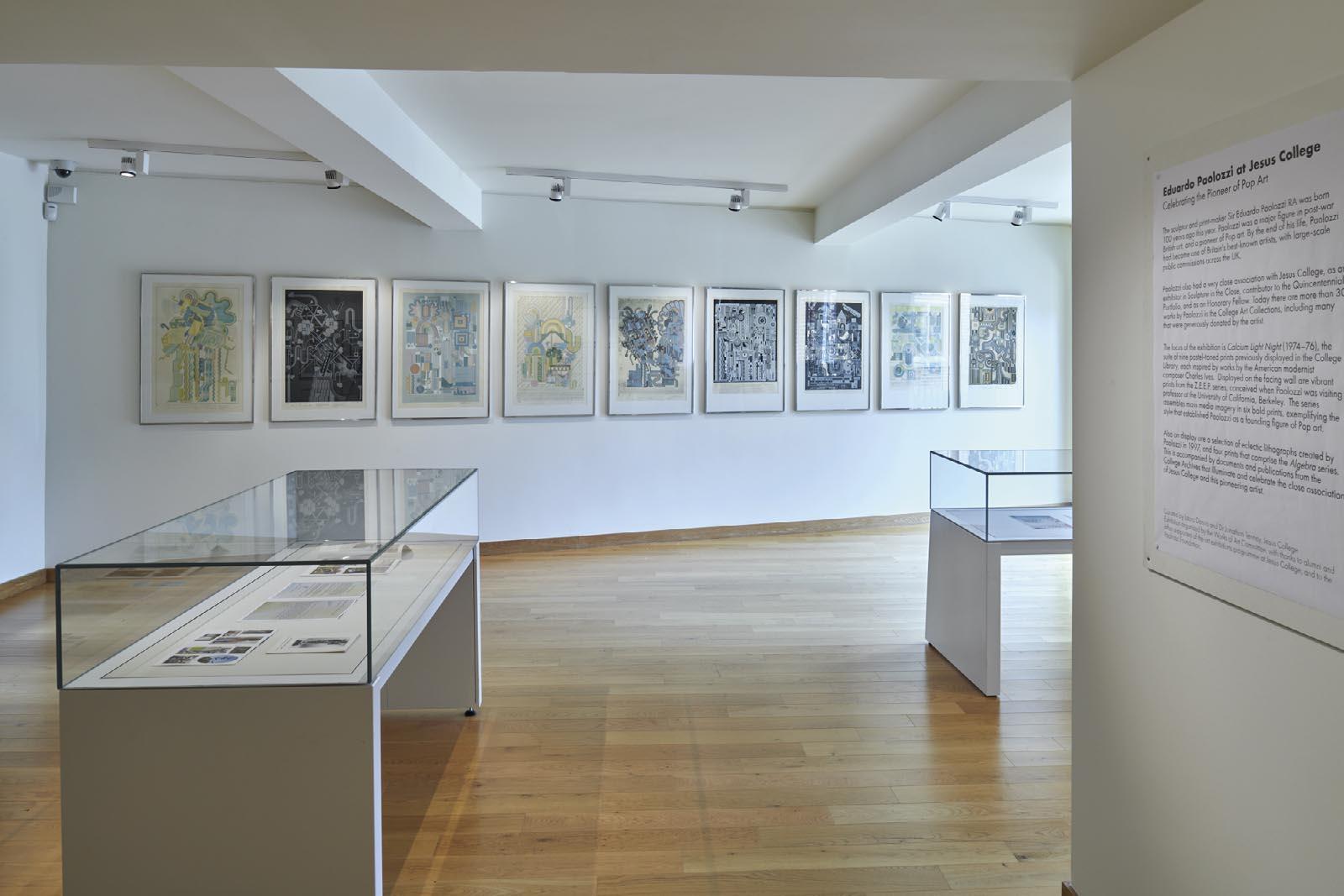
Celebrating the Pioneer of Pop Art, Eduardo Paolozzi. Photo by Jo Underhill
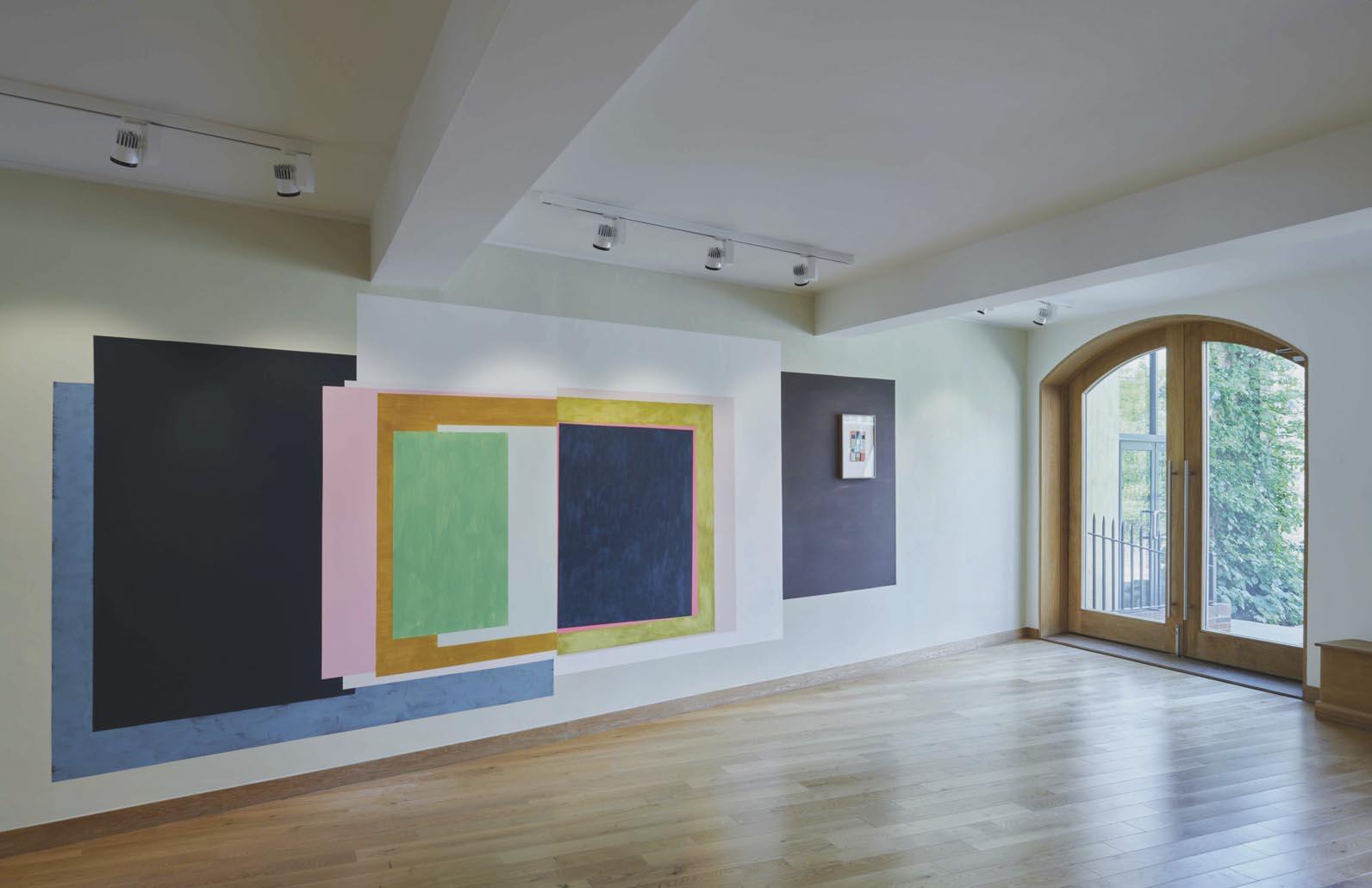
relations to another. We seem to be keeping company with a process that has involved a constant unsettling and resettling of relations and trajectories, both in our occupation and use of the space where this exhibition is taking place, and in our engagement with Curran’s practice, with its formal subtleties and decisive selection of core elements. At first glance, Curran’s work seems dedicated to pure abstraction, but its formal relations, that seem to reflect a ceaseless uncoupling and reordering of elements, time and again offer a precise reflection of the customs, practices and innovations that have defined the history of the location. There is popularly supposed to be a time and a place for everything. Curran’s subtly responsive practice as an artist is focused on the art of fashioning a very precisely calibrated call and response to the time and place of its showing. As such, this is a signature event in the history of art at Jesus.”
Other positive news includes the imminent return of Brake, donated last year. The conservation work has been completed, a new site has been chosen, and we are developing plans to construct a base to prevent the same sort of weathering that affected it in the past. n
A view of the eight metre wall painting created for the Fiona Curran exhibition. Photo by Jo Underhill
Careers Programme
Sarah Richey, Careers Mentor
We were delighted to offer a diverse and engaging programme this year, designed to support students' professional development across a wide range of sectors. From panel discussions with alumni and industry experts in our popular In the Business of... series to roundtable breakfasts and skills workshops, our events provided valuable insights and networking opportunities for students.
Michaelmas Term highlights
The term began with In the Business of Conservation, featuring alumnus Jon Hutton (1975), Executive Director at WWF Landscapes, alongside experts Marion Osieyo and Edward Pollard, pictured below. This session gave students a unique perspective into careers at the intersection of science, policy and environmental sustainability.
We were thrilled to welcome alumnus and AI Risk Advisor Theo Bearman (2017) for In the Business of Data, AI and Ethics. Theo was joined by Richard Milne from the Kavli Centre for Ethics, Science and the Public, sparking a lively discussion on the ethical dimensions of technology and its governance.
Our roundtable breakfast on the creative industries provided students with honest, firsthand accounts of breaking into this competitive sector. Our students enjoyed chatting to Angus Harron (2019), BBC Question Time Researcher, Matt Griffiths (2019), ITZA Learning Producer, and Miriam Agiru (2019) British Film Industry DIT Trainee.
Public speaking was another key focus this term. We welcomed Sean Moore, Licentiate of RADA, for an interactive confidence-building workshop. In addition, Tazeen Dhunna (1994) delivered a session aimed at postgraduates and finalists,
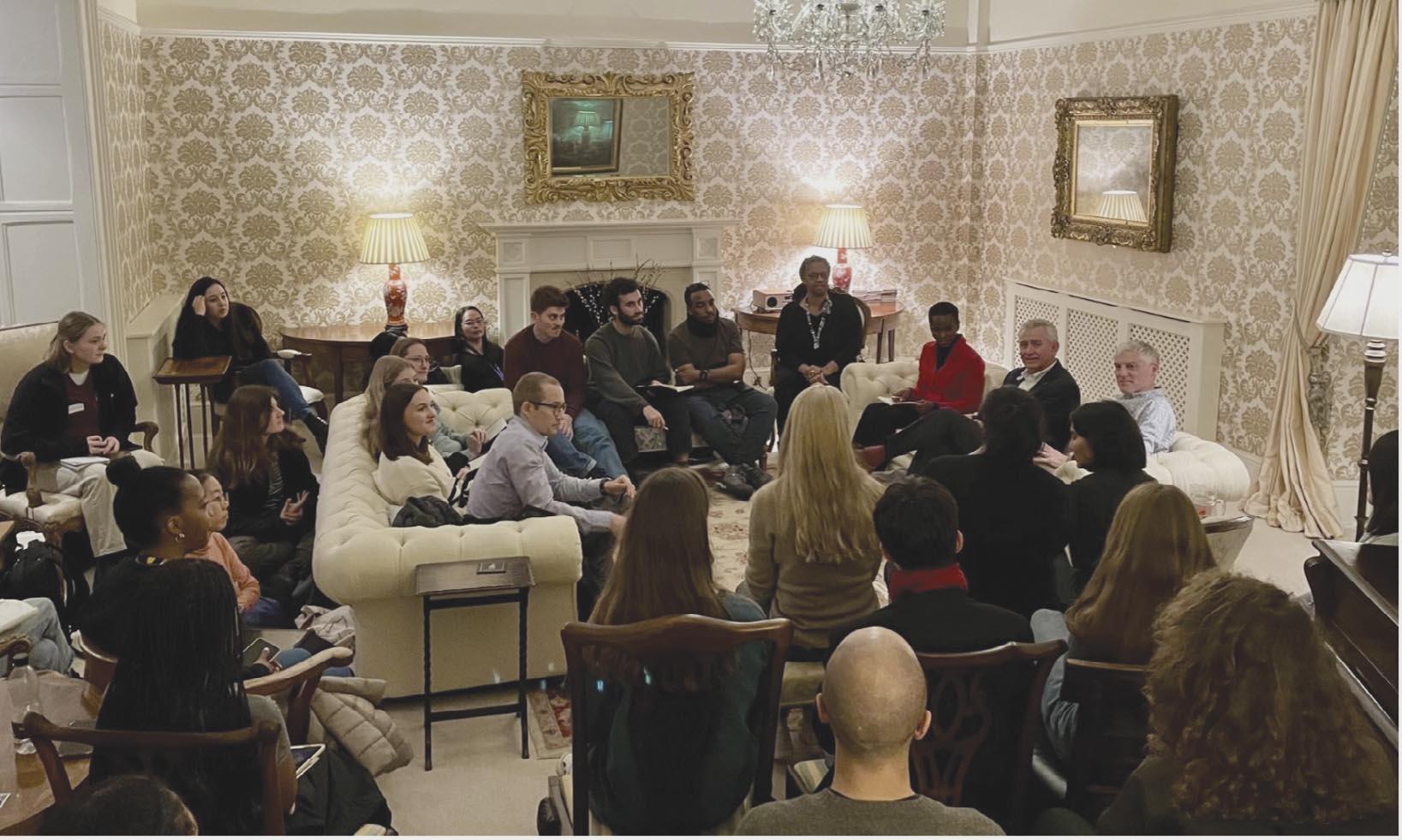
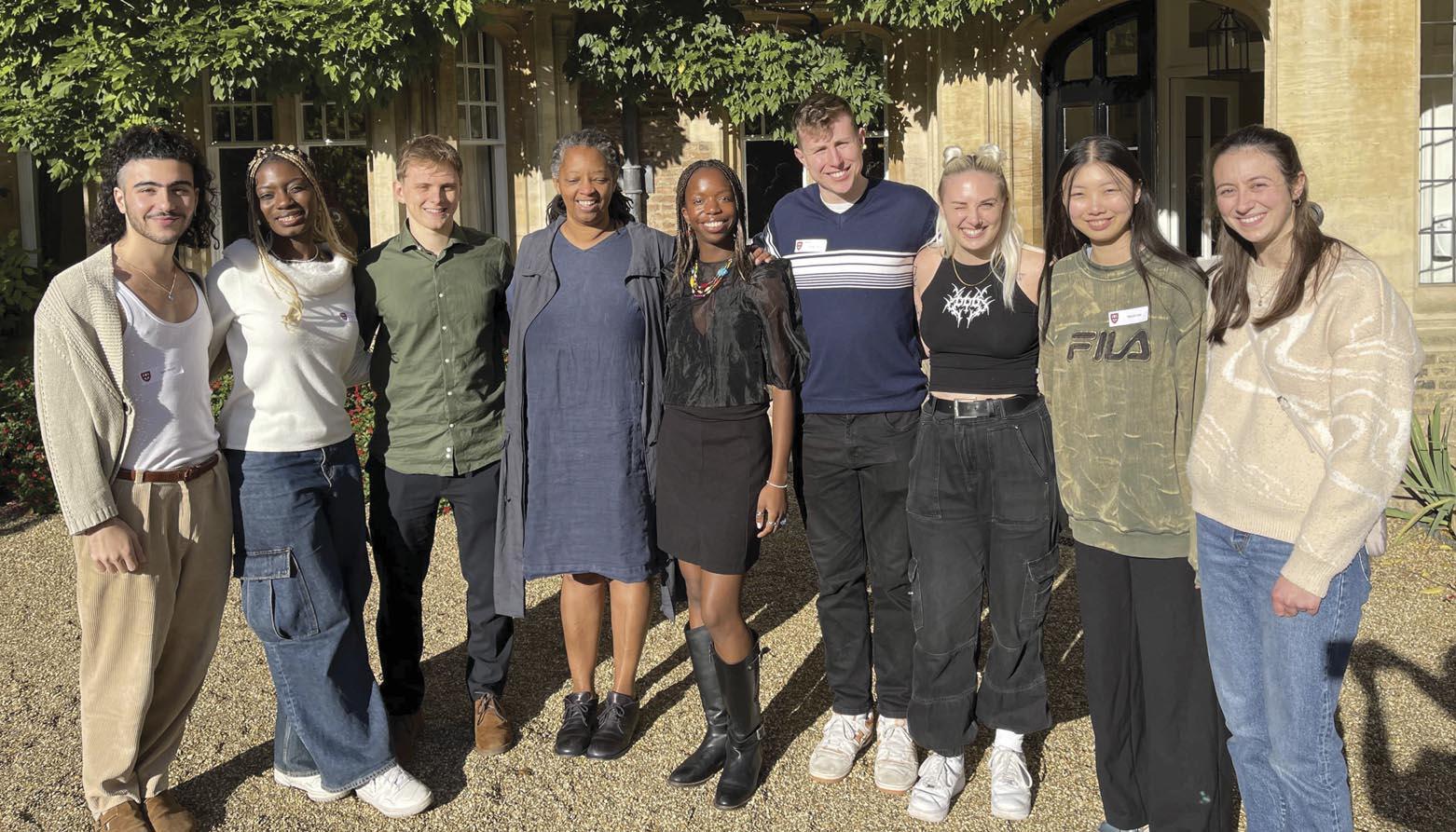
equipping them with practical techniques for effective communication in interviews and presentations.
In October, we hosted a lively entrepreneurship Q&A with Dr Ashwin Soni, founder of the Soni Clinic. Dr Soni offered valuable insights on career transitions, business start-up strategies, and personal growth. We extend our thanks to the Development and Alumni Relations Office CUDAR summer intern, Violetta Vedeneeva, for organising the session.
We also collaborated with the University Careers Service Employer Engagement team to host two on-site employer events. Boutique consultancy firm Q5 offered a dynamic, case-study-based introduction to consulting, while Deloitte Cambridge gave students a clear overview of graduate opportunities, application processes and day-to-day life at the firm.
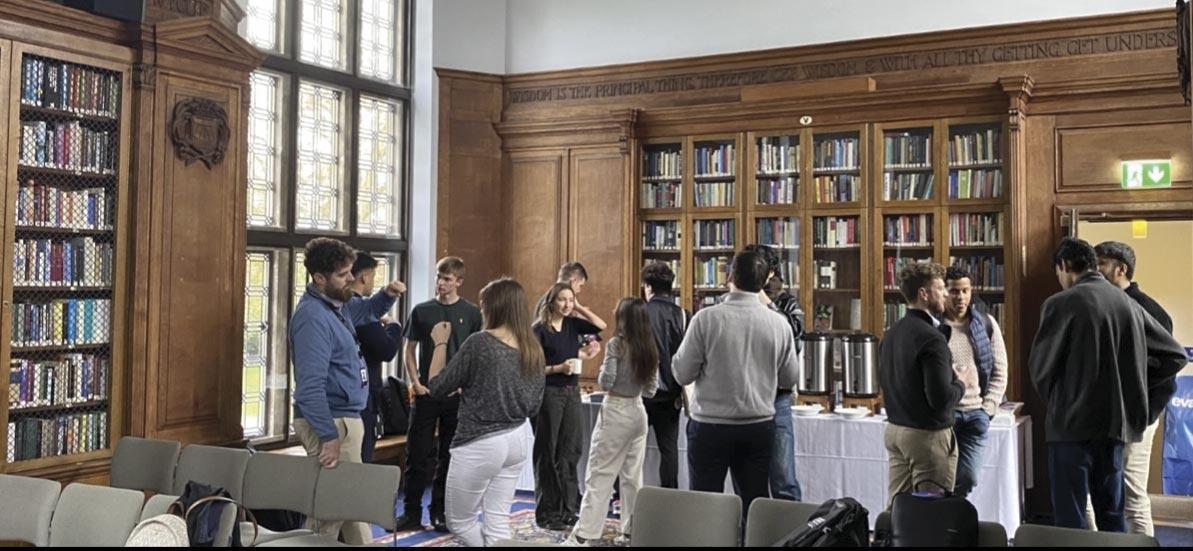
The Master pictured with Matt, Angus and Miriam and some of the participating students
An event with guests from Deloitte
In November, in collaboration with the Development and Alumni Relations Office, we hosted our first alumni finance networking event in London. Kindly hosted by Lingling Wu (2011), the evening featured a panel of alumni including Tilly Franklin (1990), Helen Fletcher D’Arjuzon (1996), Dixie Liang (2016), Jean Murphy (1991). Richard Anthony, Jesus College Bursar, and Aaron Stocks (1993) expertly co-chaired the event. The panel addressed key topics including market trends, leadership and career development in financial services.
At the end of November, we had the pleasure of working alongside the student Engineering Society to help them organise a networking event with local alumni. The alumni guest speakers Ian Walters (1979) Christopher de Saxe (2013) and Charlie Constable (2019) gathered with the students in the Webb Library to discuss their careers journey, as well as challenges and advice on the diverse career paths open to Engineering graduates.
Lent Term highlights
We opened the Lent Term with In the Business of Financial Services, a panel discussion covering investment banking, fintech and advisory careers. Speakers included Daisy Sclater (2019, Rothschild & Co), Richard Wyatt (Rothschild & Co, Temple Bar Investment Trust), and Jimmy Anderson (PwC, now Bursar at Girton College). The panel provided practical advice and career reflections for students interested in finance.
We followed with a sold-out In the Business of Museums, Art and Heritage event. Our panel featured Susie Biller (Assistant Director, Kettle’s Yard), Jody Joy (Senior Curator, Museum of Archaeology and Anthropology), and Luke Syson (Director, Fitzwilliam Museum). Attendees explored topics that included curation, ethics and leadership in the arts sector.
This term also saw the introduction of a new event focused on careers in Local Government. The panel included Mike Davey, Leader of Cambridge City Council; Sarah Dougan (1997), Consultant in Public Health; and Rhona Brown (2004), Head of Private Sector Housing at Lewisham Council. The discussion highlighted the broad impact of public service roles and inspired students to consider careers in government and policy.
Easter Term highlights
In May, bestselling author Thomas Harding led our In the Business of Writing and Publishing event. Thomas offered a comprehensive overview of the publishing process, including how to secure an agent, pitch a manuscript and navigate publicity. His practical insights were particularly appreciated by aspiring writers and researchers.
We were also pleased to host our first Lean Start-Up workshop, facilitated by current PhD student, Thomas Garnier. This two-day session introduced students to core principles of the Lean Start-Up methodology, including rapid testing, business model validation and iterative development.
With support from IE Cambridge: Innovation and Entrepreneurship we also successfully ran our first Introduction to Entrepreneurship Workshop, where students engaged in dynamic discussions on how entrepreneurial thinking can benefit both start-ups and academic research. n
The Intellectual Forum
Dr Julian Huppert, Director
The Intellectual Forum (IF) continued to grow this year as a hub for bold ideas and public impact. From a speculative research project that became the world’s first sustainable corporate bond index to public conversations about AI, climate, death, and cricket, we brought together scholars, policymakers, practitioners and the public to explore some of the most pressing issues of our time.
The world’s first sustainable bond index
In April we were excited to announce a groundbreaking new corporate bond index – the first of its kind to target fossil fuel expansion. Beginning as a feasibility study hosted by the IF, it will now be offered by the Bloomberg Index Services Ltd in partnership with the University of Cambridge. Over four years, the bond index has grown from a highly speculative research project into a largescale, real-world intervention aiming to change the way the financial markets operate. Already, $750 million has been publicly committed to it.
When the IF began this project, we had no idea if it would be possible to create this type of tool. But thanks to the brilliant work of IF Senior Research Associate Lily Tomson and Jesus College Postdoctoral Associate Professor Ellen Quigley, who led the project, we have found that not only is this bond index feasible and investible, but it is now a real financial product with the prospect of making a significant difference in the world. We’re looking forward to seeing how it continues to grow.
“It comes to us all”: Death and Dying
In 2021, the IF ran a series of events on sleep – something that is part of every person’s life, no matter their background or circumstances. This year, we tackled another universal human experience: death and dying. Co-organised with Jesus College Postdoctoral Associate Dr Ben Bowers, the series of six panels and lectures brought together researchers, clinicians and over 1600 members of the public from all walks of life to discuss a topic that concerns us all, yet often remains taboo.
The ‘good death’ was Dr Bowers’s subject in the third panel event. He said:
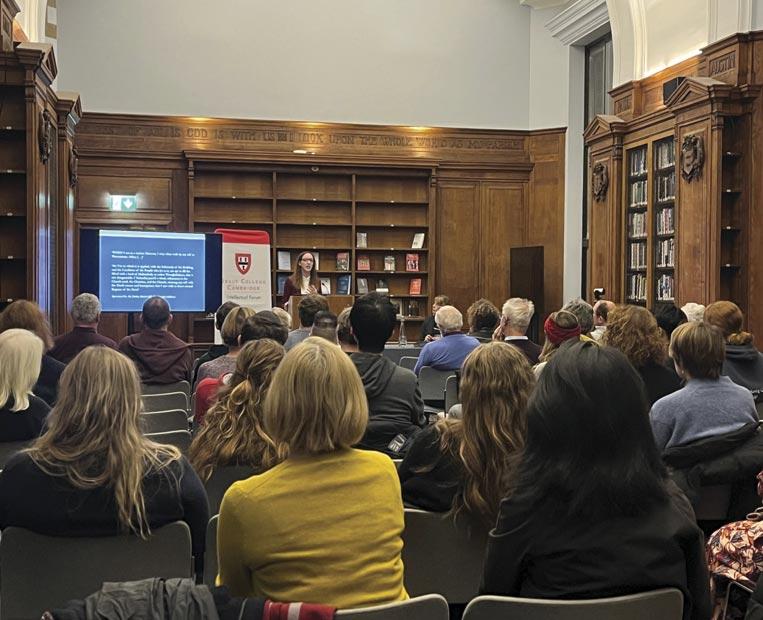
“While many of us hope for a comfortable death surrounded by loved ones at home, people are often unprepared for the realities of death, which can be quite different. We hope by bringing people together to have these important discussions we can encourage people to break down this last taboo to talk about death frankly and practically.”
We are in the process of planning another series on a different universal human experience for next year –stay tuned for details!
Dr Laura Davies presenting as part of the ‘Death and Dying’ series
‘Leaders in Responsible AI’ series
This year also marked the launch of our Leaders in Responsible AI series, which brings together leaders in AI to explore the emerging opportunities and risks associated with it, and to offer practical insights and recommendations for those working in the field.
The inaugural panel, which considered what effective AI regulation and government oversight might look like, was chaired by IF Senior Research Associate Ray Eitel-Porter and brought together policy experts including Jesus alumna Dr Laura Gilbert CBE, Director of Data Science at 10 Downing Street and Director of the Incubator for Artificial Intelligence (i.AI).
A second event, featuring IF Senior Research Associates Dr Jon Fistein and Professor Catherine Régis, considered the impact of AI on healthcare and what changes there might be to the role of doctors as technology becomes a more powerful diagnostic tool.
As AI continues to develop there will be much more to say on this topic, and we look forward to continuing to explore how to use this new technology responsibly and effectively in future conversations.
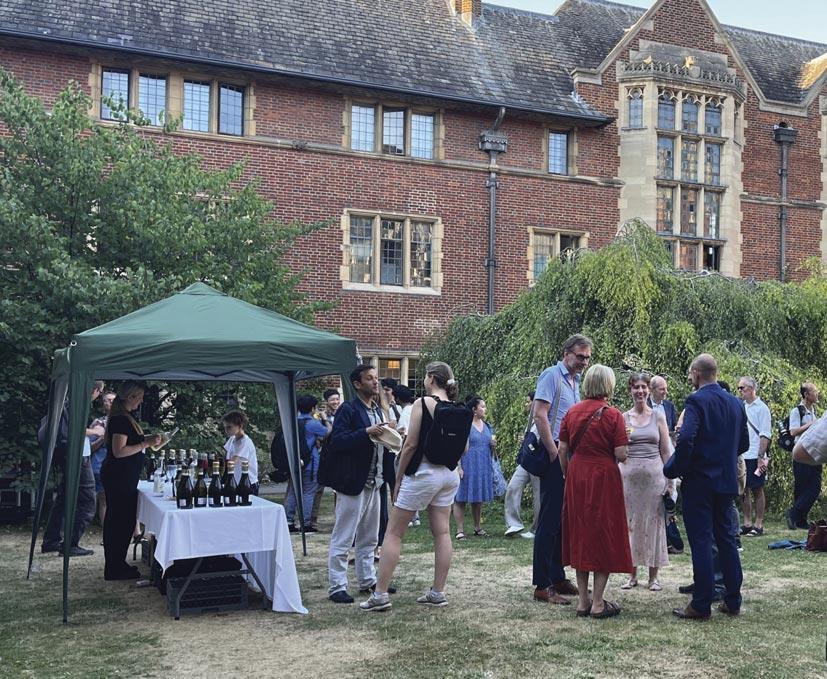

Speakers at ‘What does effective AI regulation look like under a new Labour Government?’, the launch event for the ‘Leaders in Responsible AI’ series. From left to right: Lord Holmes of Richmond, Emily Campbell-Ratcliffe, Dr Laura Gilbert CBE and Ray Eitel-Porter
Healthcare and AI drinks reception
Interdisciplinary conversation at Jesus College
Beyond these two series, we hosted over twenty events in the past year across five broad clusters: ‘AI and digital transformation’, ‘Arts and culture’, ‘Education and innovation’, ‘Environment and sustainability’, and ‘Future health and care’.
Our first cohort of Student Ambassadors, College undergraduates Clare Aspray, Alexis Fradley and Rowan Lightfoot, chaired and hosted an evening in conversation with Jesus College Visiting Fellow, Baroness Ruth Hunt.
Students interested in pursuing journalism as a career spoke with former Guardian editor Alan Rusbridger at an informal session chaired by CamFM Station Manager Daisy Cox. This session preceded a public lecture on the state of modern journalism, which was this year’s Lisa Jardine Memorial Lecture.
Beer lovers gathered in Frankopan Hall for a screening of the short film Drunk?
Adventures in Sixteenth-Century Brewing, which followed a team of historians, scientists and craftspeople as they tried to recreate a sixteenth century beer.
And few events caused as much excitement as our evening with Indian cricket legend Sourav Ganguly, who spoke to a packed hall about his illustrious career – an event recording that has reached over 40,000 views on YouTube.
Join our mailing list to stay up to date on IF news and to hear about everything we have planned for the upcoming year. We hope to see you at the IF soon! n
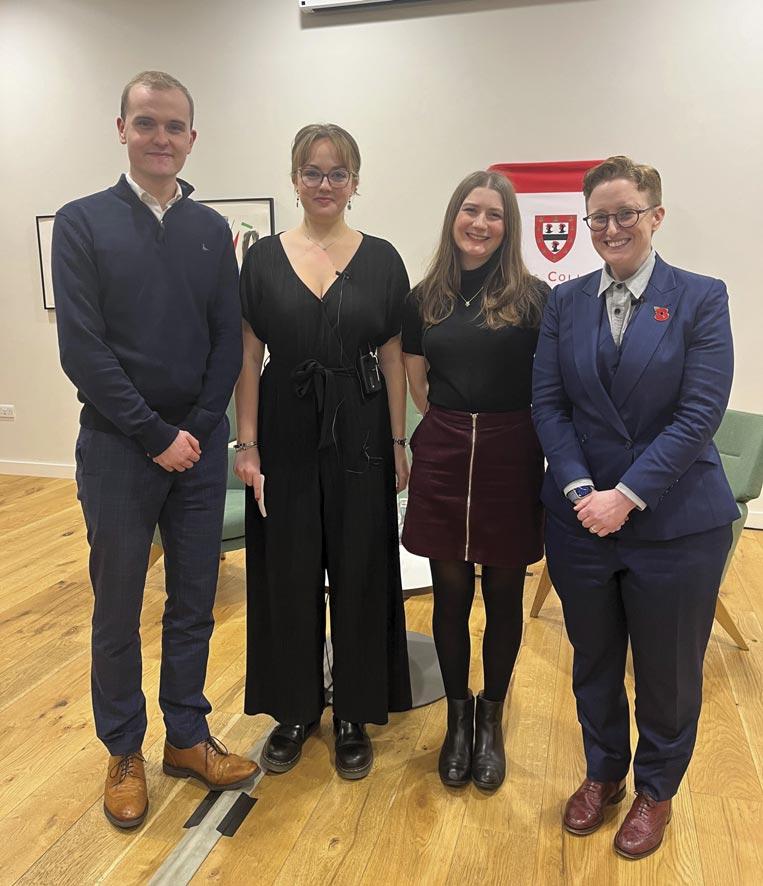
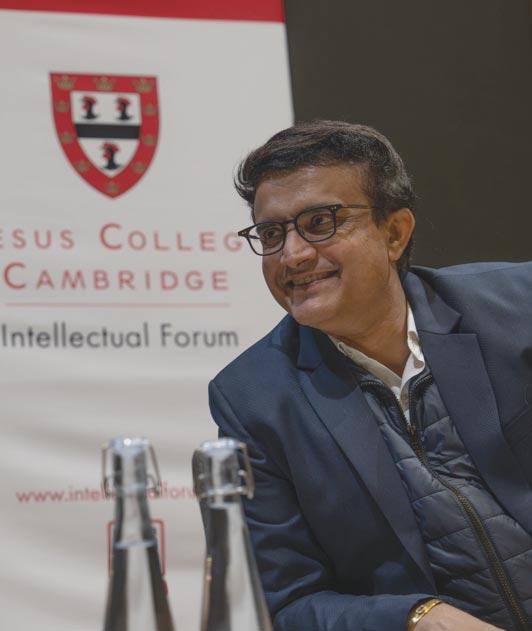
Indian cricket legend Sourav Ganguly. Photo credit: Tom Holland
Jesus College students Rowan Lightfoot, Clare Aspray and Alexis Fradley with Visiting Fellow, Baroness Ruth Hunt
The China Forum
Professor Peter Nolan CBE, Director of
the China Forum
The China Forum has provided a valuable platform for deepening mutual understanding between China and the West through thoughtful, interdisciplinary discussions. Guided by the principle of jian gu zhi jin, meaning ‘studying the past to understand the present’, the Forum convened scholars, policymakers and business leaders to explore China’s history, politics, philosophy and global role.
As the Forum prepares to conclude in September 2025, this final year’s programme reflected the breadth and depth of its ambitions. Through a rich and varied series of seminars, it continued to shed light on the enduring relevance of China’s past to its present and future.
30 October 2024 – Professor Kent Deng, ‘Ups and Downs with Deng Xiaoping’s Reforms in China’
In this lecture, Professor Kent Deng explored the complex and often contradictory legacy of Deng Xiaoping’s economic reforms. He traced the trajectory of China’s shift from Maoist orthodoxy to the ‘socialism with Chinese characteristics’ that underpinned the country’s dramatic growth from the late 20th century onwards. Professor Deng highlighted not only the remarkable achievements of the reform period — such as rapid industrialisation and poverty reduction — but also the persistent social and political tensions it generated. His talk offered a nuanced perspective on why Deng’s reforms remain a subject of lively debate in China today.
5 November 2024 – Professor Eric L. Hutton, ‘Xunzi and the Highways and Byways of Confucianism’
Professor Eric L. Hutton examined the thought of Xunzi, one of the most influential yet often overlooked figures in the Confucian tradition. His lecture delved into Xunzi’s views on human nature, education and the role of ritual, contrasting them with those of Mencius to highlight the diversity within Confucian philosophy. Professor Hutton argued that Xunzi’s pragmatic and systematised approach to governance offers enduring insights into Chinese political culture. The talk illuminated how ancient philosophical debates continue to inform contemporary Chinese attitudes toward statecraft and morality.
14 November 2024 – Dr Sally K. Church, ‘What We Know and What We Don’t Know About Zheng He’s Voyages’
In this thought-provoking presentation, Dr Sally Church revisited the famous maritime expeditions of Zheng He during the Ming dynasty. She unpacked both the historical records and the myths that have grown around these voyages, questioning how much we can reliably know about their scope and purpose. Dr Church highlighted how Zheng He’s voyages have been reinterpreted over time to serve different political narratives, particularly in modern China’s efforts to project a history of peaceful engagement with the wider world. Her lecture underscored the complexities of using the past to shape present identities.
20 November 2024 – Professor Sucheta Mazumdar, ‘From the Slave Trade to the Opium Rush: China-America Trade in the Making of the Global World’
Professor Sucheta Mazumdar delivered a compelling account of how trade between China and the United States during the 18th and 19th centuries intersected with exploitative economies, including the slave trade and the opium trade. She argued that these interactions played a critical role in shaping the foundations of today’s globalised economy, highlighting aspects of early global trade networks. Professor Mazumdar’s lecture demonstrated how China’s economic history cannot be viewed in isolation but must be understood within the broader context of global capitalism’s development and its human costs.
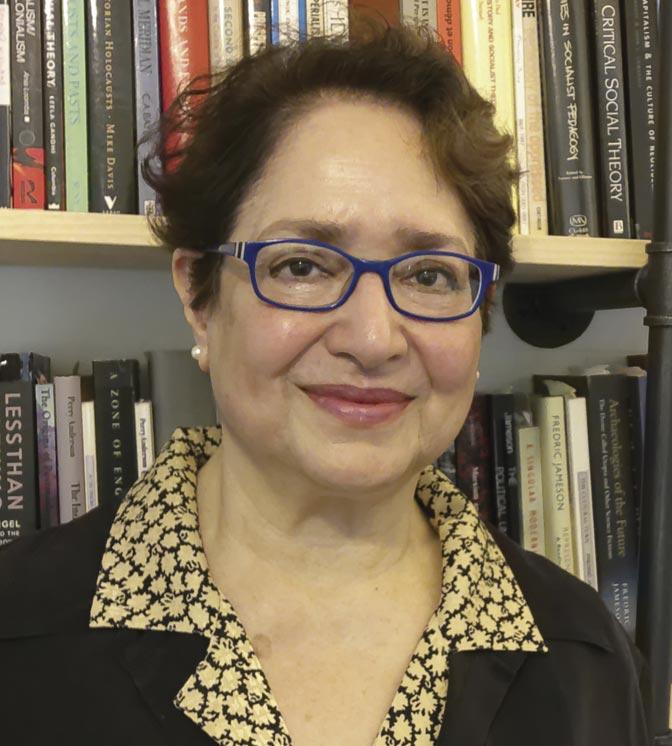
5 December 2024 – Professor Santosh Mehrotra, ‘India and China: What Explains the Divergence in Economic Growth and Human Development?’
Professor Santosh Mehrotra offered a comparative analysis of India and China’s contrasting development trajectories since the late 20th century. His lecture examined how differing approaches to globalisation, institutional reforms and governance have shaped outcomes in both economic growth and human development. Professor Mehrotra highlighted how China’s state-led model has prioritised infrastructure and manufacturing, while India’s democratic, service-led approach has produced different strengths and vulnerabilities. The talk provided valuable insights into the broader implications of these divergences for international relations and global economic policy.
29 January 2025 – Dr Victor Zatsepine, ‘The Amur River and the Sino-Russian Historical Borderlands’
In this lecture, Dr Victor Zatsepine explored the historical and cultural significance of the Amur River region, a contested borderland between China and Russia. He traced the shifting boundaries, migrations, and encounters that have shaped the region’s identity over centuries. Dr Zatsepine highlighted how the Amur River has served both as a dividing line and as a site of exchange, shaping perceptions of sovereignty, ethnicity, and diplomacy. His talk provided valuable historical context for understanding present-day relations between China and Russia, particularly in light of geopolitical tensions.
4 February 2025 – Professor Richard Thompson, ‘Plastic Pollution: Are There Solutions to this Global Environmental Challenge?’
Professor Richard Thompson addressed the urgent global issue of plastic pollution, examining its environmental impacts and the complexities of crafting effective solutions. His talk highlighted the scale of the problem, the challenges posed by waste management systems, and the limitations of recycling technologies.
He discussed emerging innovations and policy responses, including the role of China as both a major producer and consumer of plastics. Professor Thompson emphasised the need for international cooperation and systemic change to tackle this pervasive environmental threat.
13 February 2025 – Lord Adair Turner, ‘Avoiding Catastrophic Climate Change: Technological Possibilities, Political Challenges and International Cooperation’
Lord Adair Turner delivered a wide-ranging analysis of the global climate crisis, focusing on the intersection of technology, politics and economics. He highlighted the opportunities presented by clean energy technologies but underscored the political will and international collaboration required to realise their potential. Lord Turner emphasised China’s pivotal role in the global transition to net zero, given its size, emissions, and investment in green technology. His lecture stressed the urgency of action and the importance of aligning climate goals with sustainable economic growth.
20 February 2025 – Professor Anne Gerritsen, ‘Can We Globalise China’s Local History?’
Professor Anne Gerritsen examined how local histories within China intersect with global narratives. Using case studies from rural communities, she demonstrated how seemingly marginal places and stories can illuminate broader patterns of global history, trade, and cultural exchange. Professor Gerritsen challenged conventional approaches to historical research, arguing for greater attention to the local as a lens through which to understand global processes. Her talk contributed to wider debates on historiography, knowledge production and the relevance of microhistory in a globalised world.
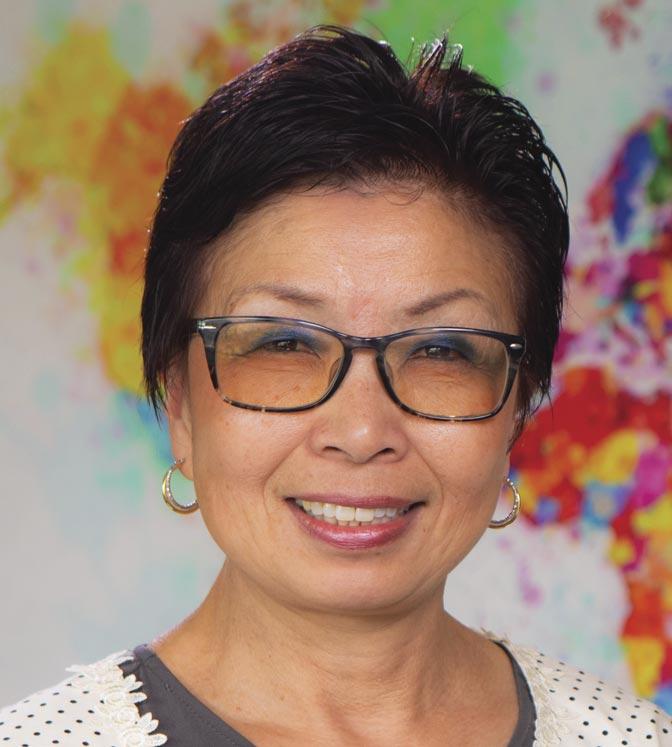
25 February 2025 – Professor Cindy Fan, ‘Why do rural Chinese continue to do migrant work?’
The China Forum seminar on Tuesday 25 February 2025 was delivered by Professor Cindy Fan (Vice-Provost for International Studies and Global Engagement and Professor of Geography, University of California, Los Angeles [UCLA]). Her talk explored the strategies used by migrant workers to improve their livelihoods by working away from their rural place of origin.
6 March 2025 – Professor Li Chen, ‘Hong Kong and the Greater Bay Area: China’s Regionalised Statecraft in the Era of Geo-Economic Fragmentation’
Professor Li Chen explored the evolving role of Hong Kong within the broader context of China’s Greater Bay Area (GBA) strategy. His lecture analysed how China’s approach to regional integration reflects a shift towards geo-economic statecraft,
leveraging city clusters to drive technological innovation, finance and trade. Li Chen highlighted the political tensions inherent in this strategy, particularly in light of Hong Kong’s changing autonomy and its role within global capital markets. The talk offered a critical perspective on how regional policies intersect with China’s broader international ambitions.
13 March 2025 – Professor Arkebe Oqubay, ‘China-Africa Cooperation and African Transformation’
Professor Arkebe Oqubay provided an indepth examination of China’s engagement with African nations, focusing on the impact of infrastructure investment, industrial development and trade. He challenged simplistic narratives of ‘neo-colonialism,’ instead presenting a more nuanced view of how African countries are actively shaping their relationships with China to support their own development goals. Professor Oqubay’s analysis considered both the opportunities and the challenges inherent in these partnerships, offering insights into the evolving dynamics of South-South cooperation and the shifting landscape of global development.
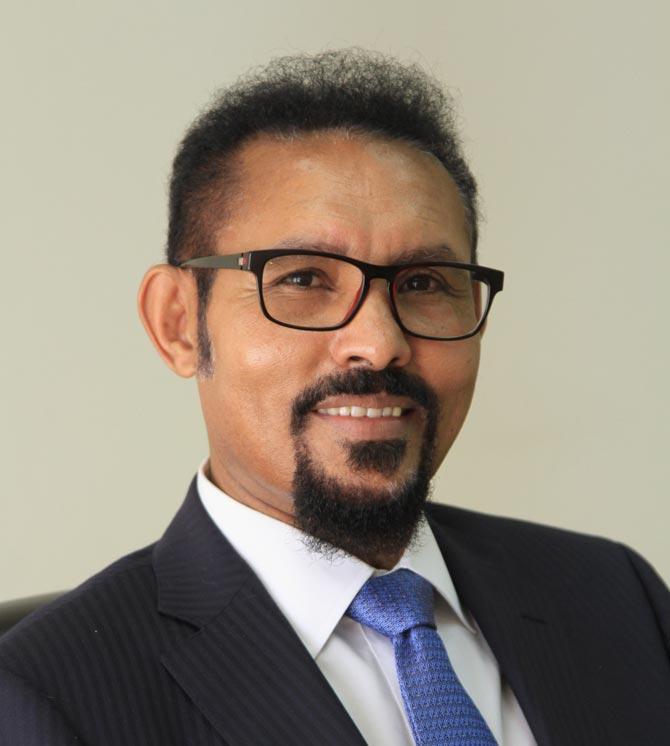
1 May 2025 – Professor Kerry Brown, Lord Stephen Green, Professor Jessica Rawson DBE and Dr Zhang Jin, ‘China and the World: A Long-Term View’
In this round table event, Professor Rawson, Lord Green, Professor Brown and Dr Zhang Jin discussed the current state of the relationship between China and the rest of the world, taking a long-term perspective. The event took place in the context of a complicated situation in China’s relationship with the world, shortly after President Trump announced America’s ‘tariff war’.
Professor Rawson highlighted limited western understanding of China’s societal structure and long civilisational continuity, maintaining a stable language, culture and productive capacity as a nation with a large population and strong work ethic. She discussed China’s focus on control of strategic resources in its tradition of thinking a long way ahead. She encouraged the West to engage with China and to deepen its understanding of the characteristics of Chinese civilisation. Lord Green argued that China’s identity stems from the foundation of the bureaucratic system of governance dating back to the Qin dynasty (221BC), emphasising order and duty over rights. In Lord Green’s view China seeking to reshape the global order based on the principle of a ‘community of common destiny for all humanity’ is not inimical to America’s own interests. Professor Brown reflected on China’s technological progress with breakthroughs in AI and considerable investment in R&D marking its emergence as a global leader in technology, research and innovation. He stressed the importance of technological openness and collaboration as a shared human endeavour in pursuing technological progress for the well-being of society. Dr Zhang Jin discussed her experience across vast developing regions of Southeast Asia, Africa,
Latin America, the Middle East and Central Asia which share aspirations with China for connectivity, poverty reduction and sustainable development. She referred to China’s fast-growing interaction with these regions through trade, technology and development partnerships including investment in infrastructure, renewable energy and industrial zones.
19 May 2025 – Dominic Barton in Conversation with Professor Peter Nolan
In the final China Forum seminar Dominic Barton, Chair of Rio Tinto and of LeapFrog Investments, former Canadian Ambassador to China and former Global Managing Partner of McKinsey & Company, engaged in conversation with Professor Peter Nolan. The seminar was based on a series of questions posed to Dominic Barton, firstly on issues relating to his personal experience living and working in China, and secondly on issues relating to China’s move to the forefront of global electrification as the world’s first ‘electro-state’. Other issues discussed included the governance of global firms by regulatory bodies, the implications for climate change of China’s progress in green technologies and China’s changing role within global value chains.
The seminar took place at a complicated, uncertain and dangerous time for the whole global community. In January 2025 the Bulletin of Atomic Scientists re-set the Doomsday Clock at ‘89 seconds to midnight’, the closest to ‘midnight’ it has ever been. The relationship between China and the USA sits at the centre of this era. The way in which this relationship develops will have profound implications for the rest of the world. n
Community and Charity Engagement at Jesus College
Jesus College is committed to building positive connections with the wider Cambridge community, alongside its support for local educational, cultural, and charitable projects. The Community Engagement Committee, set up in 2023, helps to steer this work. Its aim is to offer practical support to local organisations while creating meaningful ways for College members to get involved.
Community visits
Over the past year, the College has welcomed a wide range of community groups, including Blue Badge Tour Guides, the Cambridge Arts Society, Cambridge International Language School, Kettle’s Yard Bridges Project, the University of the Third Age (U3A), and the Wildlife Trust. Students from the University and other institutions have also visited, along with architects and architecture students from Denmark and France. Many of these visits have focused on West Court, designed by architect Níall McLaughlin.
The College continues to support All Saints Church by offering parking and welfare facilities for performers. On 15 September 2024, Jesus College also supported the Bridge the Gap charity walk, welcoming 1,971 walkers through its grounds and helping to raise £33,000 for Arthur Rank Hospice.
We’ve continued to build relationships with local organisations, including through meetings with Dr Carol Brown-Leonardi from the African Caribbean Research Group (ACRG) about access to cricket facilities. The College is also involved with the Cambridge Ahead ESG Network and Cambridge 2030. In November, we provided accessible parking for the Cambridge City Council Fireworks on Midsummer Common.
Events
Since May 2024, the College has hosted a number of events, including the Constructed Pathways launch in January 2025 and a Cambridge Cancer Hospital dinner in May 2025. In July, the College welcomed families from Cambridge University Hospitals for a Family Fun Day. Plans are also underway for a new Global Cultural Programme, building on the success of existing events like the film festival.
Charity partners: The Red Hen Project and Abbey People
The College maintains strong links with its charity partners, The Red Hen Project and Abbey People, supporting initiatives and looking for new ways to collaborate. The Master of Jesus College, Sonita Alleyne, serves as a patron of The Red Hen Project, signalling high-level endorsement and strategic support for the charity’s mission to help families and children in North Cambridge. The College provided key route access for the Cambridge Half Marathon 2025, of which Red Hen is a charity partner – allowing runners to traverse the historic grounds of Jesus while raising funds for Red Hen.
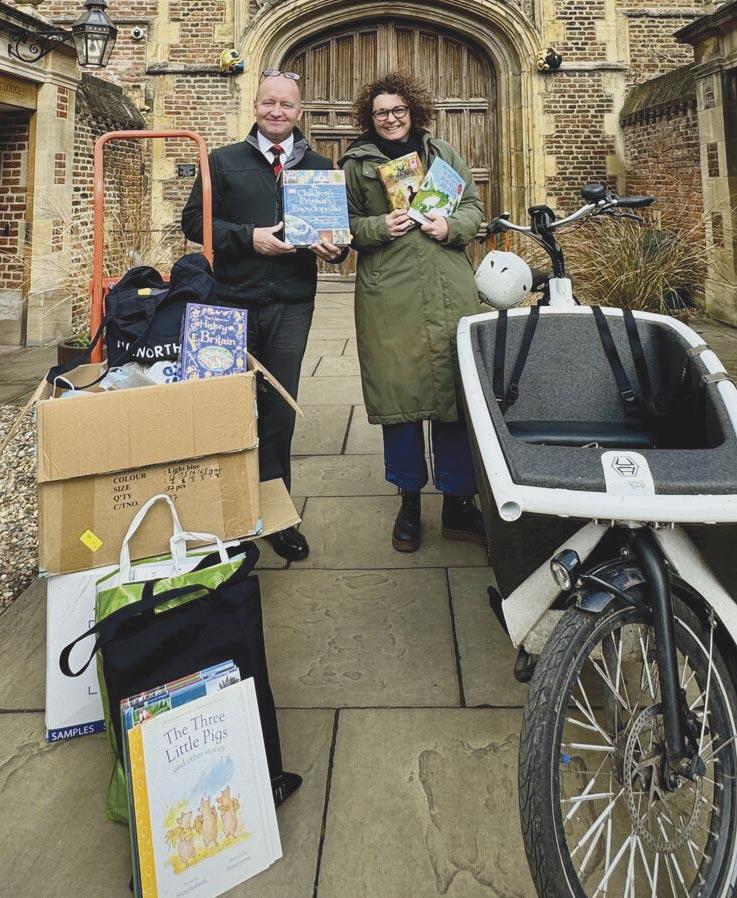
Charitable Donations Committee
In March 2025, the College community undertook a book drive that generated over 100 book donations to Abbey People’s Little Free Library project. The donated titles catered to both children and adults and were delivered to support a new Little Free Library on Ekin Road, with maintenance staff assisting in its setup and decoration.
Volunteering
There are plans to encourage College members to offer time or resources to these charities, helping to broaden the impact beyond formal partnerships. A new community engagement calendar will help ensure activities are well-publicised and promote steady, sustainable involvement throughout the year.
The Charitable Donations Committee oversees the College’s discretionary charitable giving. Its work focuses specifically on the allocation of charitable funds rather than on organising or delivering projects directly. This includes contributions to local causes, national charities, or international appeals that align with the College’s values and charitable objectives. The Committee helps ensure that the College’s limited charitable funds are distributed fairly, transparently and in accordance with its governance structures. In the last year, the Committee has supported a mixture of causes, most notably with financial donations to the Samaritans and to Cambridge Science Centre. n
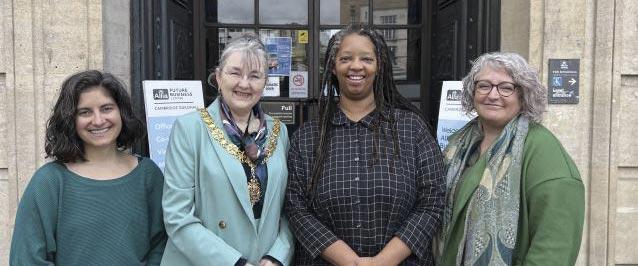
Head Porter Simon Durrant with Dr Catherine Galloway, who has set up a Free Little Library in the Abbey ward
From left: Nicky Shepard, CEO of Abbey People, Cllr Jenny Gawthrope Wood, Mayor of Cambridge, Sonita Alleyne OBE, Master of Jesus College, and Sarah Crick, CEO at The Red Hen Project
Societies
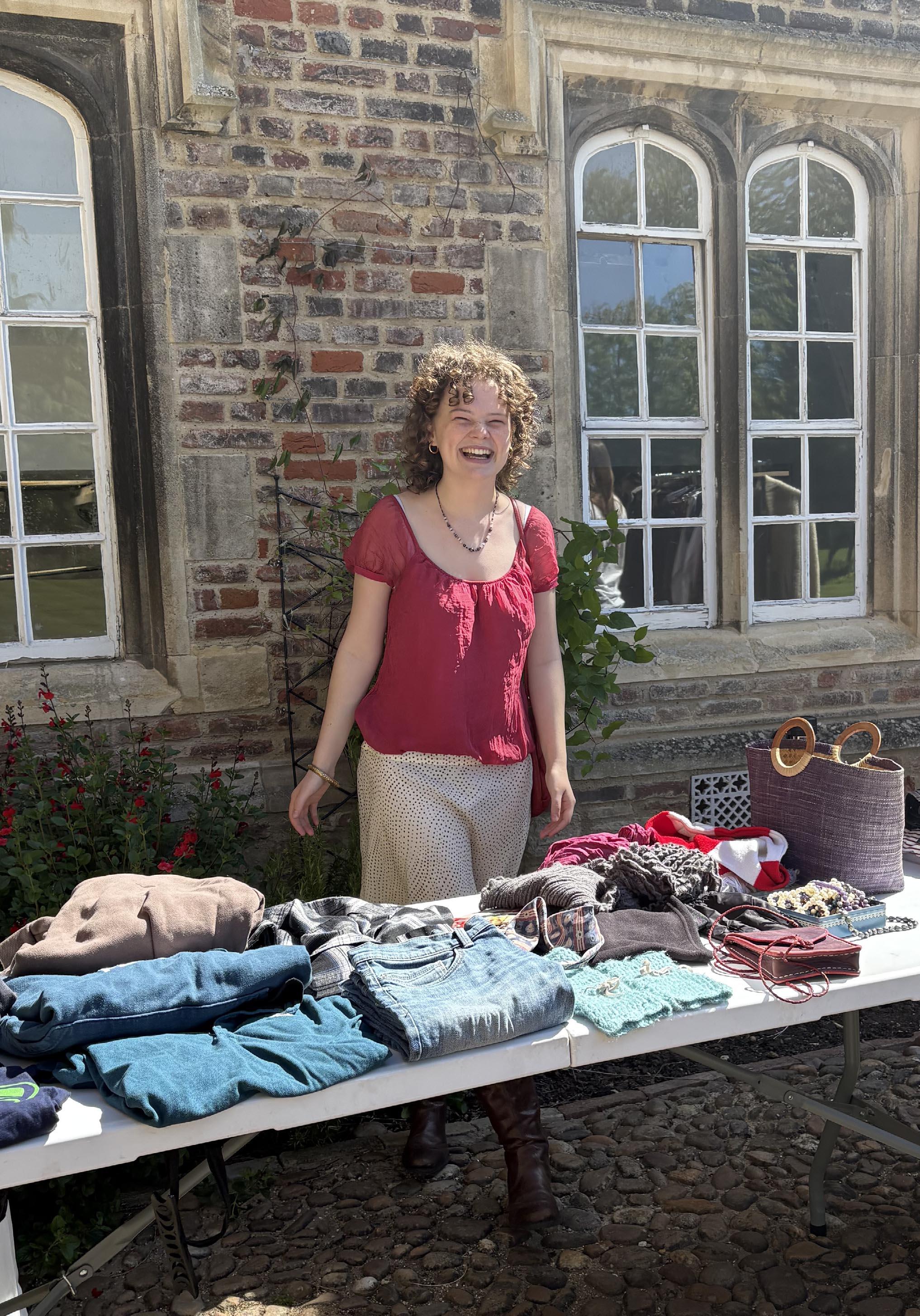
Societies
Student Union
The academic year began with an extended Freshers’ Week, allowing incoming students additional time to settle into College before the start of term. The week featured everything from club nights to Mario Kart and pool tournaments, offering a relaxed and welcoming introduction.
A major moment in Michaelmas was the passing of a new JCSU Constitution. The revised document introduced clearer procedures to encourage democratic engagement, improved the overall clarity of drafting and removed outdated provisions. One important change was the introduction of a new Class Act Officer role, intended to work alongside the Access Officer to provide additional support for current students.
Later in the term, Jesus hosted the annual Jesus–Jesus Varsity on home ground and secured a clean sweep of victories across all events. There were strong performances across College sport throughout the year, with teams securing Cuppers victories in basketball, swimming, men’s football and women’s netball, all the while reflecting high levels of commitment and teamwork across the student body.
Alongside formal competition, the JCSU held a Sports Day and BBQ in collaboration with Caius JCR, offering students the chance to enjoy friendly games in a relaxed setting. Organised by Welfare Officers Ben Luca and Ellie, the event featured classic races including a tug of war and egg-and-spoon race. With warm June weather, an enthusiastic turnout and a generous supply of hotdogs and brownies, the afternoon proved a highlight of term and one that it is hoped will become a regular fixture in the College calendar.
Student wellbeing and opportunities for social connection has remained a core focus throughout the year. Thursday Treats, the long-standing tradition of sharing donuts outside the Porters’ Lodge, continued to be well attended. In Easter Term, it was reimagined as ‘Popsicles with Pippy’, with Pippy the Welfare Dog joining students for a welcome break from their revision.
Our Ents Officers worked hard to deliver a varied calendar of events, including karaoke nights and themed Bops such as Board Games Night, St Patrick’s Day and Week of the Woman. We are also grateful to the JCMS for organising a full programme of live music, and to the JBar team for running the weekly pub quiz. Together, these efforts have helped revitalise JBar as a social hub within College.
Outside of events, the JCSU has explored new ways of strengthening the sense of community within College. Archive of the Week, introduced by Communications Officer, George, became a quiet but much-enjoyed feature of the weekly bulletin, highlighting lesser-known bits of College history and showcasing some of the spaces and stories that often go unnoticed. A particularly interesting example featured one week was the Roosters, a College debating society, that decided to celebrate its 200th anniversary 175 years early ‘just to get it out of the way’!
Sustainability and encouraging environmentally conscious habits continued to be a focus throughout the year. Green Officer, Rachel, organised a clothes swap in
First Court, with students dropping by throughout the afternoon to exchange items. She later collaborated with the MCR and College to coordinate the C-Sunday litter pick, with brunch vouchers offered to thank volunteers.
Looking ahead, a student-led bike maintenance society is due to launch next term. The idea emerged from a student’s suggestion, and will offer practical workshops on diagnosing common issues, making minor repairs and checking that bikes are road-safe. It is hoped that this will empower more students to cycle safely and confidently around Cambridge, while reducing reliance on costly external repair services.
The work of the JCSU would not be possible without the energy, ideas and involvement of the wider undergraduate community. We are especially grateful to those who attended events, volunteered their time, or helped shape new initiatives. Thanks are also due to the many staff and Fellows – especially those in Catering, Operations, Housing, Conferencing, Tutorial and the Porters’ Lodge – whose work makes so much of College life possible.
Anna Putland
Combination Room
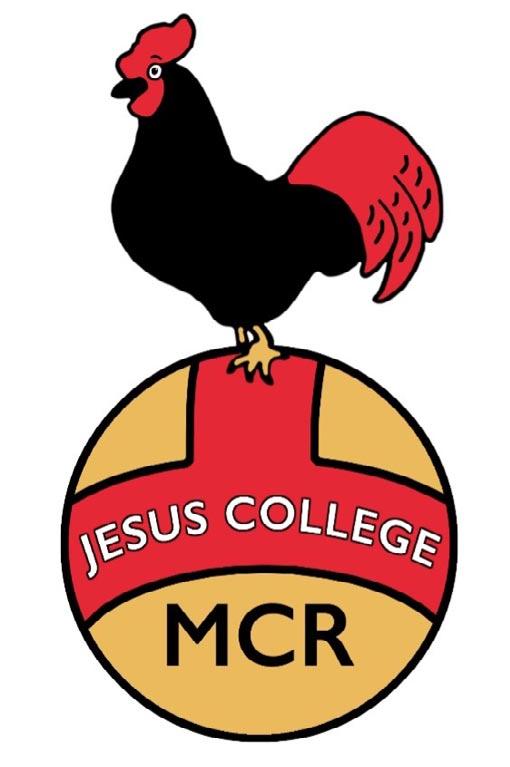
For years the MCR has merely been using the crest of College in our communications and on our website. Considering the unique identity of our community it was felt that it was time for this to change. Following the completion of a competition where MCR members were asked to submit their own designs – with all being amazing in their own right – the Committee managed to come to the decision to crown the winner of this wonderful depiction you see pictured left of a rooster perched on an orb by Zara Kesterton, current PhD student in History (2022). A blend of classical College imagery with an elegantly simplistic design excellently conveys both the modern outlook of the community and its connection to our historic surroundings. It will similarly last the test of time. This design was unveiled at a special Saturday Grad Hall event to rapturous applause and is now available for members to wear with pride on their stash orders.
A perennial highlight of Lent Term is the Graduate Conference, and this year was certainly no exception. It was an enthralling day of research, with topics ranging from custodial remand strategies to the current state of global biological risk. The attendance of many alumni bringing their insightful questions, continues to add unique perspectives to discussions and provided a wonderful opportunity for Jesuans new and old to share experiences.
When exams and deadlines start to grow near, ensuring the welfare of our community is of the utmost importance, and as always, our Welfare team has been working hard to ensure there are always events for the people to mark in their calendar where they know they can meet for a relaxed chat and take their mind off
Middle
academic life. In recognition that oftentimes a great way to beat the blues of having to knuckle-down to work, there have been some ‘Shut up and write’ events arranged where students can congregate in the MCR with some tea and biscuits and all work in the same space, providing a sense of solidarity and passive social interaction.
Thomas Pritchard
Art Club and John Hughes Art Festival
Meeting on Tuesday evenings in the Art Room, Art Club brings together a diverse community of creatives from across the College and the wider University. With two public exhibitions, several workshops and an arts festival, we’ve had an exciting year!
Michaelmas started with a busy fresher’s taster session and a workshop on experimental inks with CC Ling, an artist in residence with the Intellectual Forum (IF). A few weeks later we met Melissa Murray, a local sculptor who, with CC, gave us an insightful talk and studio tour. In the Tuesday sessions we experimented with a range of mediums, including clay, collage and paper lanterns. An amazing display of artwork was showcased in our end of term exhibition under the theme ‘Old and New’, which received over 50 submissions. We held a popular opening reception and opened it to the public over the weekend.
Weekly sessions continued in Lent, with highlights including tote bag decorating, collaborative painting and our first ever life drawing session, led by Martha Wright. This year, we took on the John Hughes Arts Festival (JHAF), which has been running annually in the College since 2015 to honour the memory of
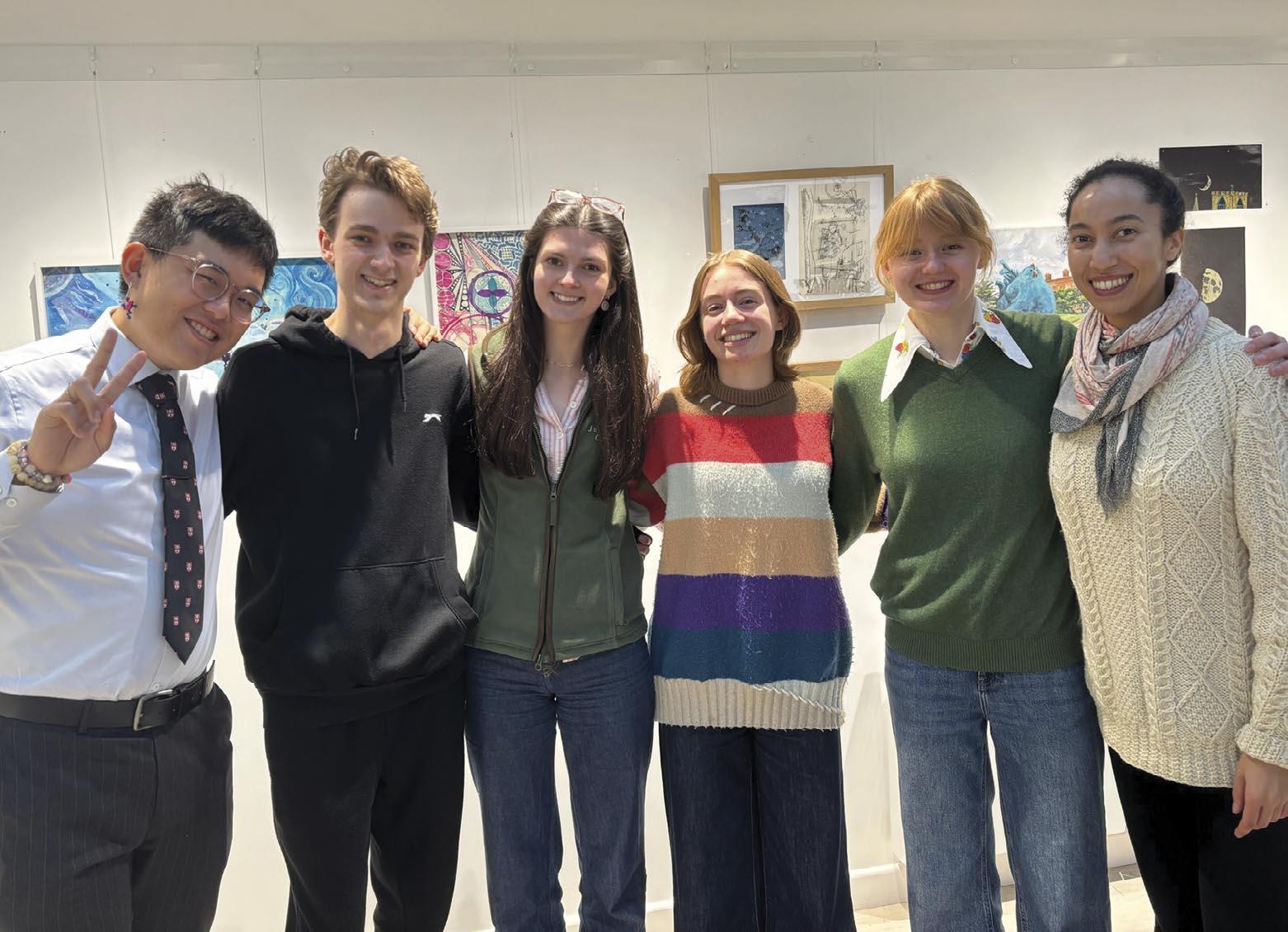
the Rev’d Dr John Hughes. Taking place in the last week of term, the festival included events such as drawing in the Chapel, an art themed formal and a pub quiz.
Laura Dennis gave us a tour of the Paolozzi Exhibition in West Court, and BRiGHTBLACK, a group in residence with the IF, delivered a workshop on AI in art. The main JHAF exhibition took place in the art room and brought together an inspiring collection of artworks from students, staff and fellows under the festival’s theme of ‘A Beautiful Life’. Jean Bacon led an exhibition in the Chapel focused on the carvings and artworks it had inspired, and we set up a College-wide collaborative painting in Jbar. In Easter Term we beat the exam stress with cyanotypes, linocut and rock painting. We also organised an outdoor watercolour painting session in the Master’s Garden, a second life drawing evening and, finally, a garden party to celebrate the end of the year.
A big thank you to the committee for this year: Martha Wright, Jean Bacon, Isobel Holt, Elspeth Mathau, Yinghao Pu, Holly Hodges, Matthew Gillow, Smiley Chan, Emma Tabernacle and Lyra Browning (incoming President).
Thank you also to CC Ling and Kabe Wilson for their support, and to everyone else who has been involved with the Art Club this year.
Sofia Monarchi
Christian Union
Jesus College Christian Union (JCCU) is a group of Christian students who meet regularly to make Jesus known in Jesus College and enjoy fellowship together. It forms part of the Cambridge Inter-Collegiate Christian Union (CICCU), founded in 1877.
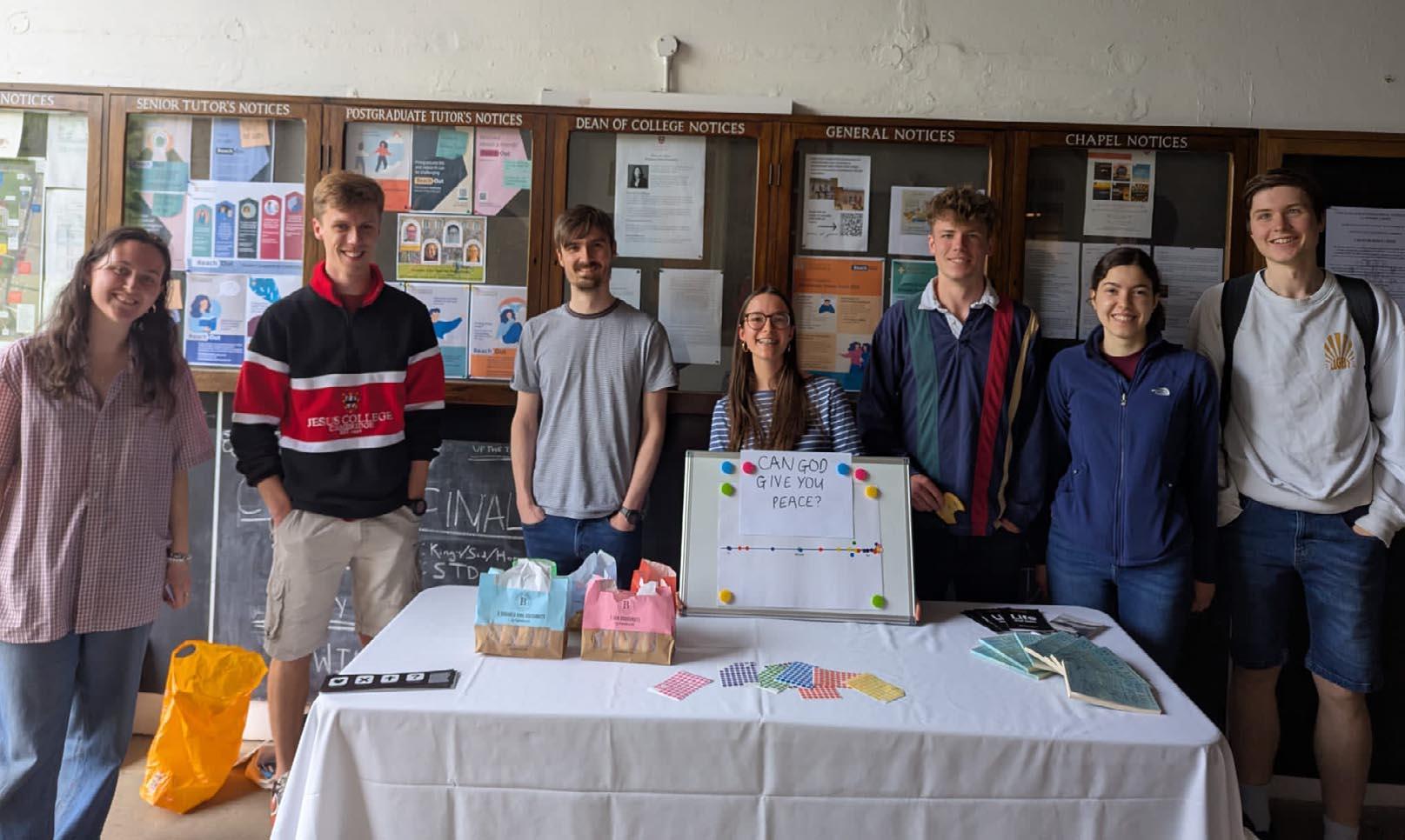
The previous JCCU representative attended the annual ‘Freshers’ Getaway’ organised by CICCU a few weeks before Michaelmas Term, where he welcomed some of the incoming Jesus freshers. The term opened with ‘Church Search Breakfasts’ each Sunday morning for three weeks, seeking to welcome freshers to Jesus College and represent the diversity of available churches, as well as accompany any Freshers to churches to visit for the first time.
We also held weekly meetings where we read through a series in the book of Psalms and prayed for each other and the College. JCCU also ran a ‘Text-A-Toastie’ event, giving the College community the chance to ask any questions they had about Christianity or Jesus, as well as an outreach stand outside the Porters’ Lodge (pictured) which sparked discussion about matters of faith with College members coming and going. CICCU ran two well-attended carol services at the end of term, to which members of JCCU were encouraged to go and to invite others.
In Lent Term, CICCU ran its annual Events Week, a week of talks and times for discussion specifically aimed at reaching students with the gospel of Jesus. This year’s theme was ‘Home’ and sought to tackle questions around how Jesus offers a better, safer and more lasting home. JCCU prayed together every other day during this week for the events, as well as running an encouraging outreach stand outside the porters’ lodge to invite people. We ran a further outreach stand at the end of term.
Changeover took place at the beginning of Easter Term, with two new representatives taking over. In our weekly meetings, we read through Colossians and continued supporting one another through the exam period. We also ran two outreach stands to encourage our College community through their exam stress and to accommodate faith-based discussions within College.
Many thanks to all you Jesuans who have supported JCCU with your time, energy, finances and prayer this year!
Rebekah Wilson and Naomi Thornton
The Coleridge Society
On 14 November 2024, in celebration of the publication of the first volume of his multi-volume anthropological study Flying Saucers, Dr Timothy Jenkins delivered a presentation in the Webb Library to an audience of some 80 attendees. He began by pointing out how many aspects of contemporary life get taken up in reports of sightings of flying saucers. He suggested a longstanding constant of the reports was to be found in the combination of low-brow features, found in popular beliefs and pulp magazines, with far more abstruse technologically based concerns, drawn initially from the military and the space industry. Flying saucer reports present a distillation of a full range of contemporary preoccupations.
On 7 May 2025, philosopher of science Dr Tom McClelland (HPS) led a round table comprising 30 participants to discuss AI and consciousness. The debate was wide-reaching and revealed deep differences in perspective. The first half of the session asked fundamental questions about AI. The second half explored the
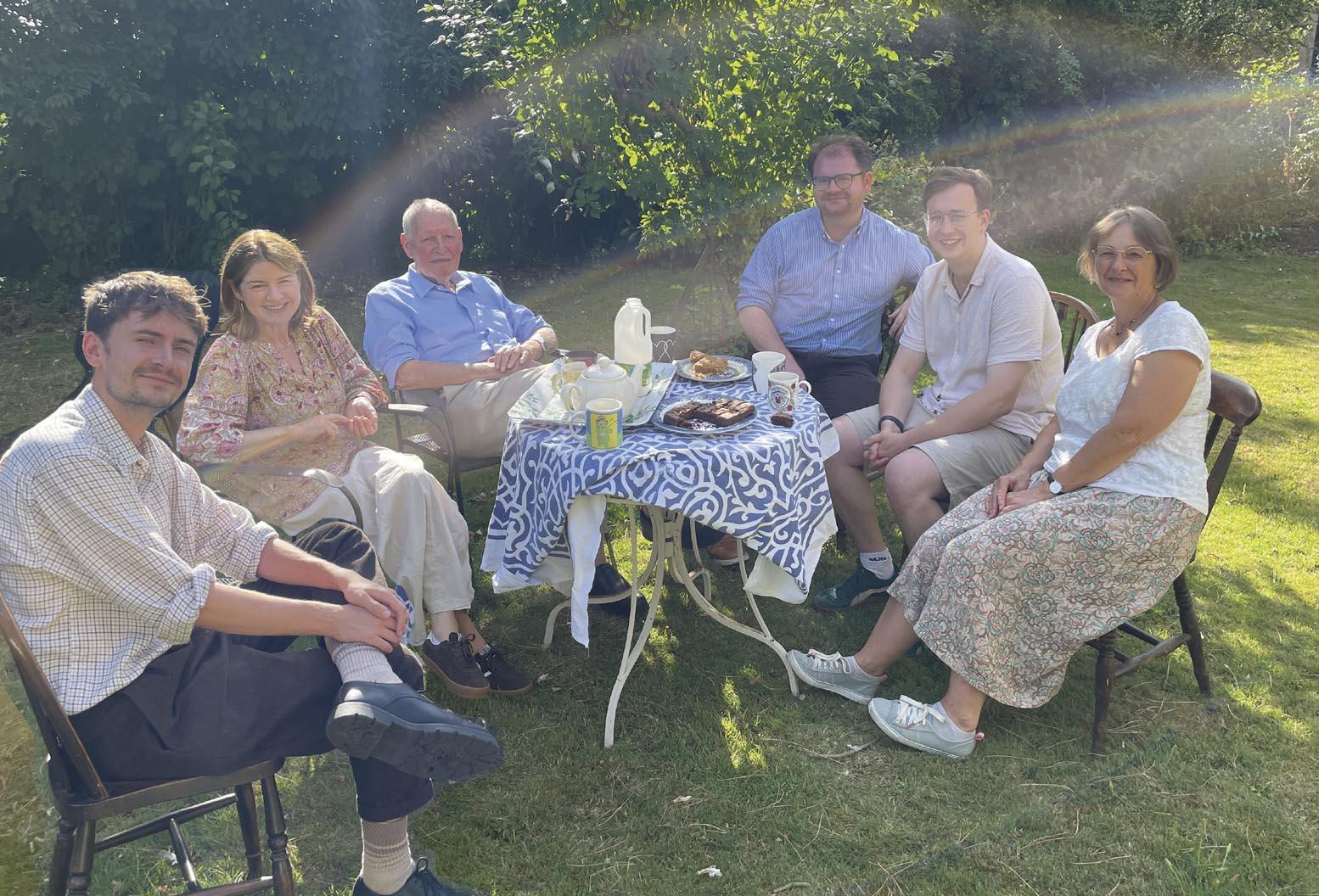
implications of artificial consciousness for several other pressing topics: artificial general intelligence, artificial creativity and the future of humanity.
On 10 July this year, we held a ‘reading party’ for post-docs at John Cornwell’s rural home in Northamptonshire (pictured above). Among the readings, Jonny McAllister reported on the influence of René Girard, the French-American literary philosopher on key figures in the US administration. Rob Lucas Scott read an essay on plasticity in the work of Catherine Malabou.
Jonathan McAllister
Drama Society
Created in 2022, the Jesus College Drama Society aims to spread enthusiasm about drama through the College community. This year our focus has been on encouraging students to indulge in Cambridge’s incredible student theatre scene. The current committee for 2025 includes Olivia Marshall, Delphi Harrison, Lauren Feldman and Theo Pyy-Sitzia.
In Michaelmas we went to see Sister Act at the ADC and hosted open mic nights in Jbar. This was followed by trips in Lent to see some student-written plays themed around International Women’s Day, and a trip with the Green Society to see Far Away by Caryl Churchill.
Our highlight of Lent Term was an open mic night we had the privilege of holding in the Chapel. The evening was black tie with the chapel decorated with a red carpet and mini-Oscar statuettes awarded to the performers! Alongside singing and group karaoke, we had performances on the grand piano; it was a lovely way to bring everyone together on the final day of Term.
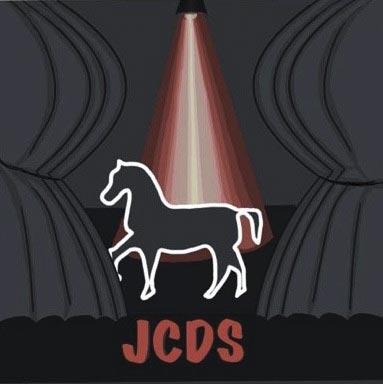
Coming up to the end of the year we have a May Week social to see Pride and Prejudice at the ADC Theatre in celebration of the end of exams!
Delphi Harrison
Economics Society
It was another great year for the Economics Society. A welcome event was held at a Jesus Lane house in Michaelmas for new students, as another great cohort arrived. We then hosted a successful economics annual dinner in Lent Term with two alumni as speakers: Fiona Campbell (1988) and Ruari McColl (2021). Fiona began her career producing current affairs and documentary films for the BBC all over Europe, Africa, as well as Afghanistan, Iraq, Kosovo and Cambodia. She also specialised in undercover crime investigations and is currently the Controller of Youth Audience BBC iPlayer and BBC Three. Ruari works for the Civil Service at the Foreign, Commonwealth and Development Office, where he is on the Diplomatic and Development Economics Fast Stream track. Both gave interesting talks with much learnt by the current students. The talks were followed by a dinner and quiz night organised by Arushi, Cai and Clayton, including economics-themed dingbats, anagrams and trivia. Despite dubious underhand methods by some, a team of current undergraduates came out on top.
The year was brought to a lovely ending with a garden party for both the postgraduate and undergraduate members. A huge thank you goes as always to Toke for his kindness and support to us all throughout the year, both academically and in other areas.
Cai La Trobe-Roberts
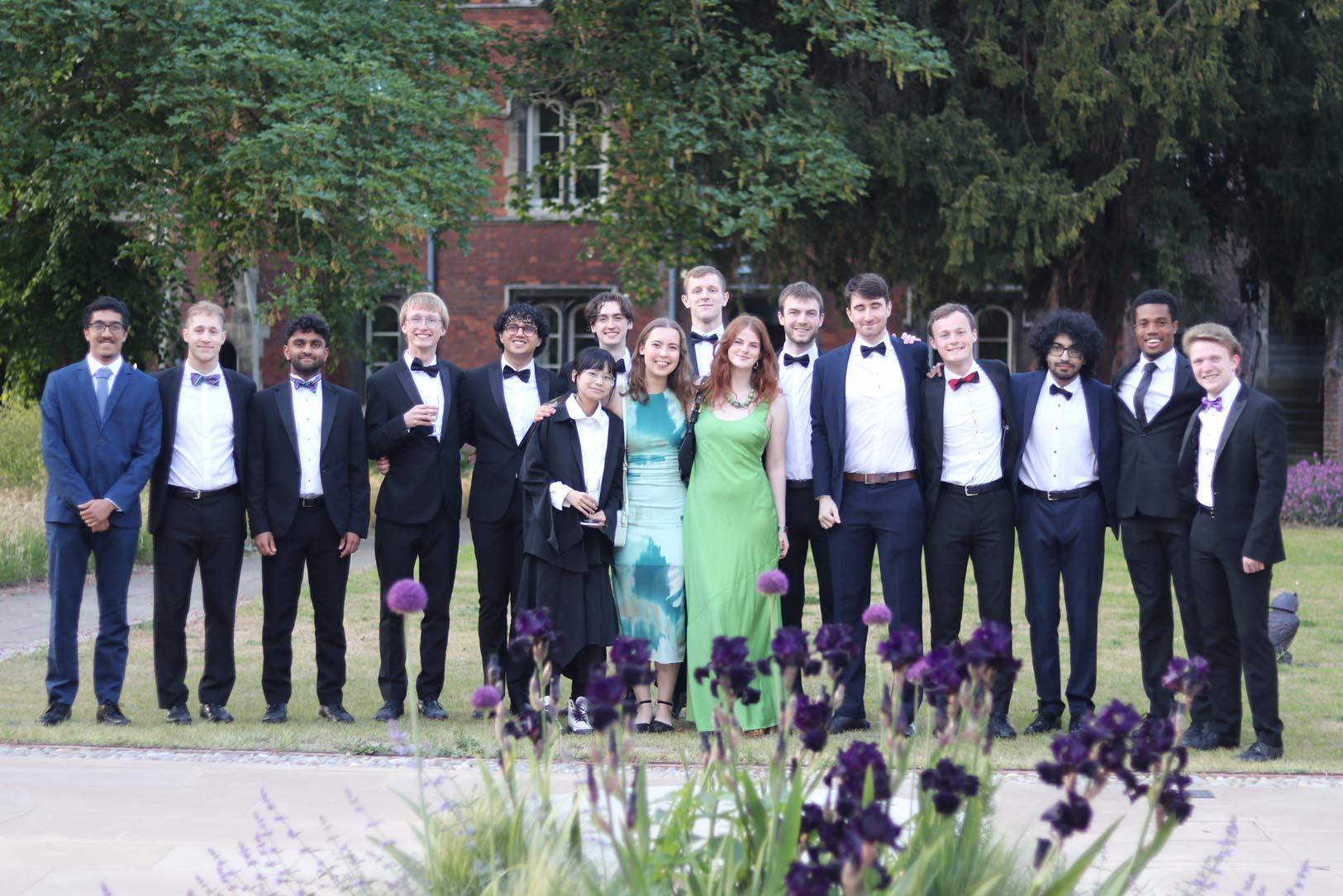
Engineering Society
The Jesus College Engineering Society (JCES) has had an exciting and rewarding year, defined by a strong sense of community and a shared enthusiasm for all things engineering. With a combination of longstanding events and new initiatives, this year offered something for everyone.
One of the most exciting additions to our calendar was the society’s first alumni networking event, held during Michaelmas Term. Alumni from a variety of sectors such as civil, mechanical and aerospace engineering, returned to Jesus to give short talks about their careers and offer informal advice to current students over food and drinks. The event sparked lively conversation and was a fantastic opportunity for students to explore the breadth of roles available after graduation. We look forward to growing this initiative in the future and providing more structured pathways for alumni and students to stay connected.
Our ever-popular Engineering x Medic Swap also made a return this year, once again blending two of the most enthusiastic cohorts in College for a memorable evening. The shared dinner brought these two hardworking cohorts close together as well as some time off to unwind and relax within their busy schedules.
The highlight of the year was undoubtedly the Annual Engineering Dinner. For the first time, we welcomed a mix of current students, supervisors, Fellows and both recent and long-graduated alumni. The Dining Hall was alive with conversation, as guests reflected on their time at Jesus and celebrated the enduring strength of our engineering community. It was a joyful evening that bridged generations and we hope this becomes a lasting tradition. With next year’s date in the diary, we are already looking forward to welcoming more alumni.
This year also marked another important milestone: for the second consecutive year, JCES was led by a female president. This ongoing shift towards greater representation within the society is both inspiring and necessary, and we are proud to be setting a positive example for future engineers at Jesus.
As we look ahead, our goals remain rooted in community, inclusivity and connection. We aim to continue expanding alumni engagement, introducing fresh events and ensuring the society remains a welcoming and dynamic space for all engineers –past, present and future.
Amelia Beddy
Film@Jesus
Amongst a host of screenings, short film competitions and other engagements with Cambridge’s vibrant film scene, the indisputable highlight of Film at Jesus’ year was the opportunity to feature acclaimed director Céline Sciamma for a series of workshops and a Q&A. Not only was it a once in a lifetime opportunity to hear genuine insights from a professional within the industry, but it was also inspiring to see how eager students were to engage with Sciamma’s work –questions asked during the interview and Q&A were all so insightful! A truly wonderful experience, and one which we hope will inspire future filmmakers to produce more thrilling work for our competitions to come.

See details of our film competition winners in the Creative Prizes section of this Annual Report.
Mabel van Zwanenberg Rouse
Graduate Conference
The 2025 Annual MCR Graduate Conference and Alumni Reunion took place on 1 March. The conference is a unique opportunity for postgraduate students to share their work with each other and with the wider College community, both through presentations and a poster session. For the audience it is a chance to sample some of the breadth of topics that students are working on, with this year’s conference including talks on linguistics, AI, spectroscopy, geology, mental health and many more subjects.

Congratulations to Amanda Stoffers for winning the best talk, with a talk titled ‘CERIDWEN: A Tool to Study Galaxies at Different Cosmic Times’ and to Teresa Etheredge for winning best poster with a poster titled ‘Exclusions to the right to bail: From police recommendations to custodial remand’. Congratulations as well to Nikita Jain and Daisy Cooper, runners-up in these categories respectively. Additionally, a keynote speech was given by Dr Lalitha Sundaram (Postdoctoral Associate at Jesus) and Dr Charlotte Hammer, both from the Cambridge Centre for the Study of Existential Risk. Their joint talk provided a sobering picture of the current and future global catastrophic and existential risks we could face from biological sources. Finally, an engaging and highly practical talk on protecting intellectual property was given by alumnus Dr Jonathan Wills, now a partner and patent attorney at Mewburn Ellis. Afterwards in the evening, we were graciously hosted for drinks in the Master’s Lodge before proceeding to a formal dinner in Upper Hall, giving us the opportunity to further discuss students’ research and reminisce on our experiences at Jesus College across the generations.
I would like to give an enormous thanks to Gracie Breen and Nikki Williams from the Development and Alumni Relations Office for their insight, planning and work on all areas of the conference. It was only through their considerable effort that I had the privilege of hosting this year’s MCR Graduate Conference.
Ben Roberts (MCR Academic Officer)
Green Society
The Jesus College Green Society is relatively new. Formed in early 2024, it has grown into a thriving society. We hold biweekly student talks which are insightful and eye-opening. Previous talks have discussed topics such as wildlife population control, medical plastic and eco-friendly methods of body disposition. Other events have included welfare plant sales and UV light walks on the nature trail. The Second Life Scheme – where unwanted utensils and decorations are collected and repurposed – has proved very successful.
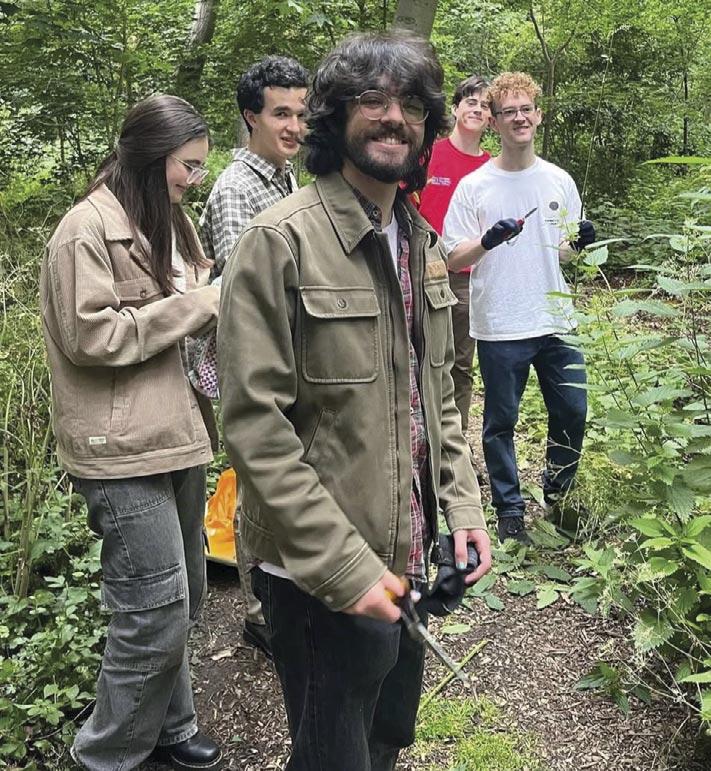
We are keen to collaborate with other societies, including the Art Club and more recently Clare Goes Green. The gardening team has also been instrumental to our society, helping to engage the student body with our beautiful grounds.
The future of our planet is of pressing concern; JCGS aims to give students the chance to have a positive effect on the environment and inspire others to do the same.
Edith Stewart
Jambassadors
The Jambassadors have been as busy as ever this year running all the various events with pride to continue making the College as accessible as possible, particularly for students typically underrepresented at Cambridge. This year we were delighted to welcome Carys Myers as the new Access and Outreach Officer for the College –she has been an invaluable figure in organising and running events alongside our team of ambassadors.
This year, we ran the North-East schools tour on a larger scale than before, reaching over 30 schools and 1800 students. The London schools tour, after stopping during COVID, returned this year with our ambassador team visiting lots of schools in our link boroughs of Brent, Ealing and Westminster.
In College, a wide variety of outreach events took place, including day visits and residentials for schools, which can provide invaluable experience for students to get to talk to our ambassadors and the admissions team about the Cambridge experience and admissions process.
Ambassadors are an essential part of the admissions process and are also able to demystify the College, to allow students to see what life looks like at Cambridge. As ever, we have enormous gratitude for those who give up their time to be ambassadors and offer their experience to future cohorts of applicants.
George Thomson

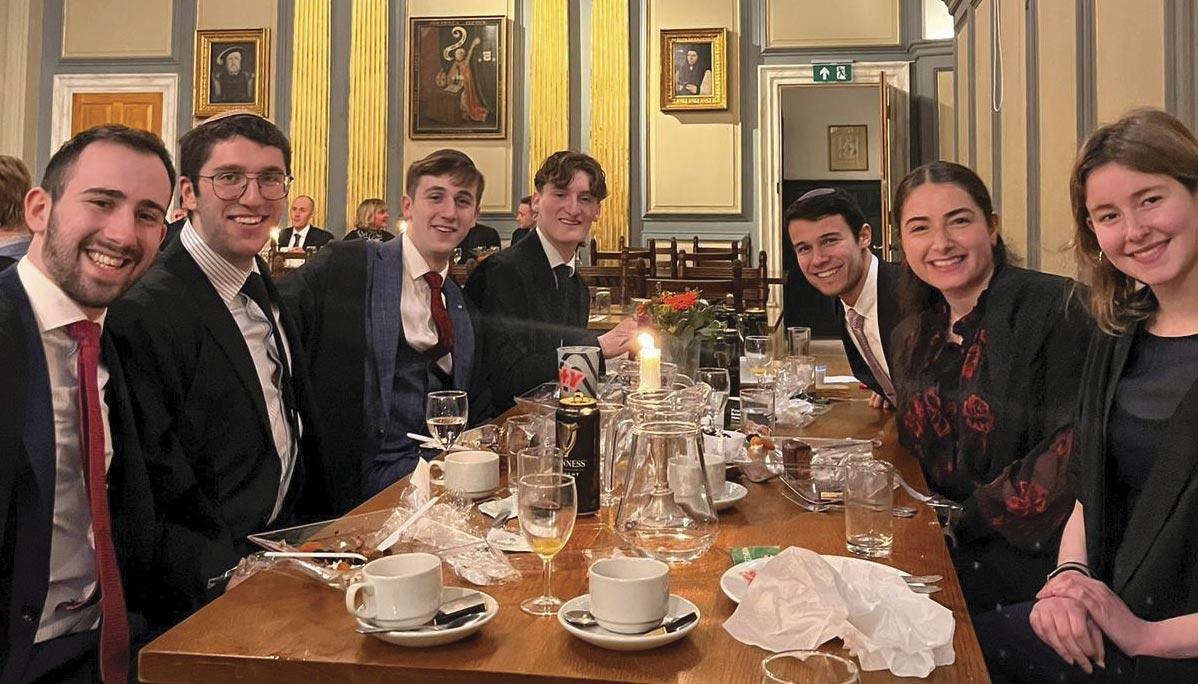
Jewish Society
This year, the Jesus College Jewish Society combined traditional celebrations with exciting new events! During Michaelmas, many of us attended the Jesus Interfaith Formal, enjoying Kosher food while engaging with members of other faiths. The dinner sparked interesting conversations, fostering a meaningful exchange of ideas.
Later in the term, we ran our famous annual Chanukah party. In addition to the usual food and dancing, this year we added dreidel decorating!
In Lent, we celebrated Tu B’Shvat, the New Year for Trees, with a party featuring delicious fruit and a chance to reflect on the wonders of the natural world. Another event that stood out particularly was our Shavuot celebration, held jointly with the Sidney Sussex Jewish Society. Falling in the middle of the Easter exam season, it offered a much-needed break and an opportunity to reflect on broader values during a time when academic focus feels all-consuming for many students.
Through a year marked by many challenges and joys for Jewish students in Cambridge, the Jesus College Jewish Society has made a great impact on its members. We hope – God willing – to build on this momentum in the year ahead!
Alexander Sasieni
Law Society
The Jesus College Law Society (JCLS) has continued to be an active society within the College community that welcomes both law and non-law students and allows them insight into, and the chance to build connections in, the legal industry. We’ve had a successful year and were delighted to have the opportunity to host events with
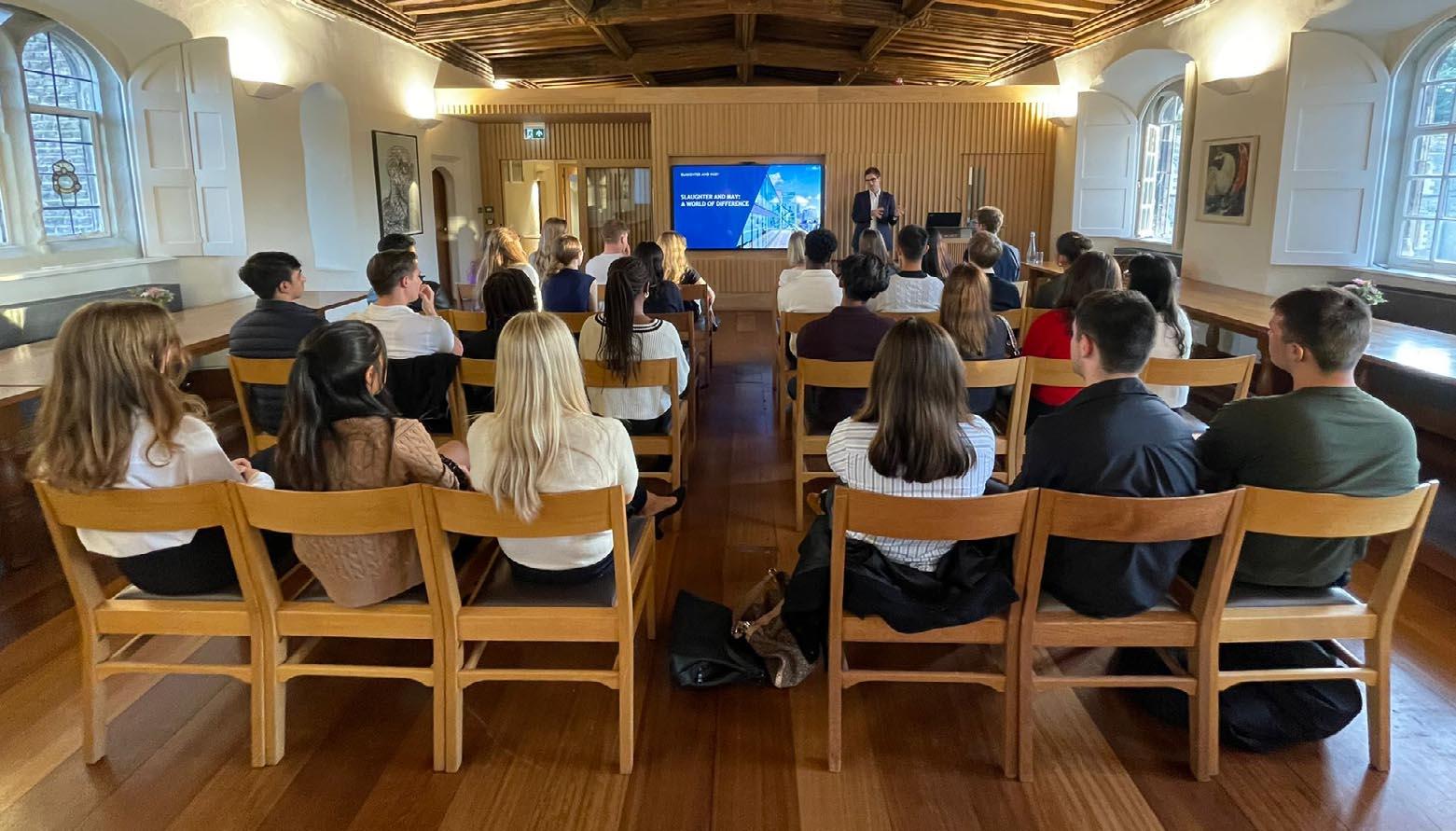
Slaughter and May (pictured above), Dechert LLP and Herbert Smith Freehills Kramer during Michaelmas. All events had a strong attendance and we’re very thankful for those from the firms that spoke to us.
In Lent, we organised a Bar careers panel with alumni in a range of different practice areas. We’d like to thank Jenny Wigley KC (1991), Richard Turney KC (2001), Nathan Rasiah KC (2002), and Catherine Dobson (2002) for giving up their time to take part and making it such an enjoyable event. The College Careers Team were also incredibly helpful in funding and assisting in organising the event.
We’re thankful for everyone that agrees to take part in JCLS events and, in particular, would like to thank Emma Woollcott (1998) and Mishcon de Reya LLP for hosting this year’s Glanville Williams Society Reception. As always, it was an enjoyable evening, with an opportunity for us to talk to past Jesuans in a range of different career areas.
Once again, we welcomed another new group of undergraduate students, and we hope they enjoyed participating in society events. We were pleased to run the introduction to mooting workshop with St Edmund’s College again this year with Isabella Buono, giving the first years an insight into mooting before they then took part in the annual Fresher’s Moot. As usual, the final took place on the evening of the Law Dinner, and we were extremely grateful to Michael Green KC (1983) for giving up his time to judge the final round. Mooting in College continues to be strong and we were delighted to have won the annual moot against Magdalene College as well. The society continues to thrive thanks to the time and resources provided by firms, the law Fellows and our alumni. We wish the committee next year the best of luck. It’s been a privilege to be part of the JCLS this year.
Meg Rutland
May Ball
Transforming the grounds of Jesus College into the largest event of May Week takes just five days, but the work begins almost a year before. Stages are built, carpets rolled out, design installations take shape and at sunset on 23 June, over 3,000 students, alumni, Fellows and their guests stepped into a world that existed only on paper a week earlier.
Ella Henderson headlined, supported by Sea Girls and a line-up of student and tribute acts performing across five stages. For those not dancing, there were dodgems, fire breathers, face painting, a Waltzer, and plenty more to explore. A new addition this year, Brew and Bass, offered a late-night indoor music venue to complement the main stages. With food and drink flowing all night and entertainment running into the early hours, guests had little reason to leave early, or hungry.
The event’s design embraced a sense of fun and summery celebration. Large-scale installations included a UV neon display in the Orchard and a light installation within a purpose-built pond in Cloister Court, alongside vibrant architectural projections in Chapel Court and First Court.
As ever, little ended up the way it did by accident. Every flower arrangement, ride, technical spec and staffing rota was designed and delivered by the 18-person Committee, with thousands of hours of planning behind the scenes. This year, however, also saw a deliberate focus on making the Ball more sustainable for those who run it. Committee workload was significantly reduced, processes were streamlined and greater care was taken to pace the work across the year. The changes are expected to encourage more members to stay for a second year, helping preserve the valuable institutional knowledge built up with each event.
The success of JMB25 is a testament to the talent, dedication and patience of everyone who brings it to life. Watching months of work materialise in just five days is exhilarating. I’m extremely thankful to the Committee, College staff, contractors and the countless others who come together to make it all happen.
Kian Cross
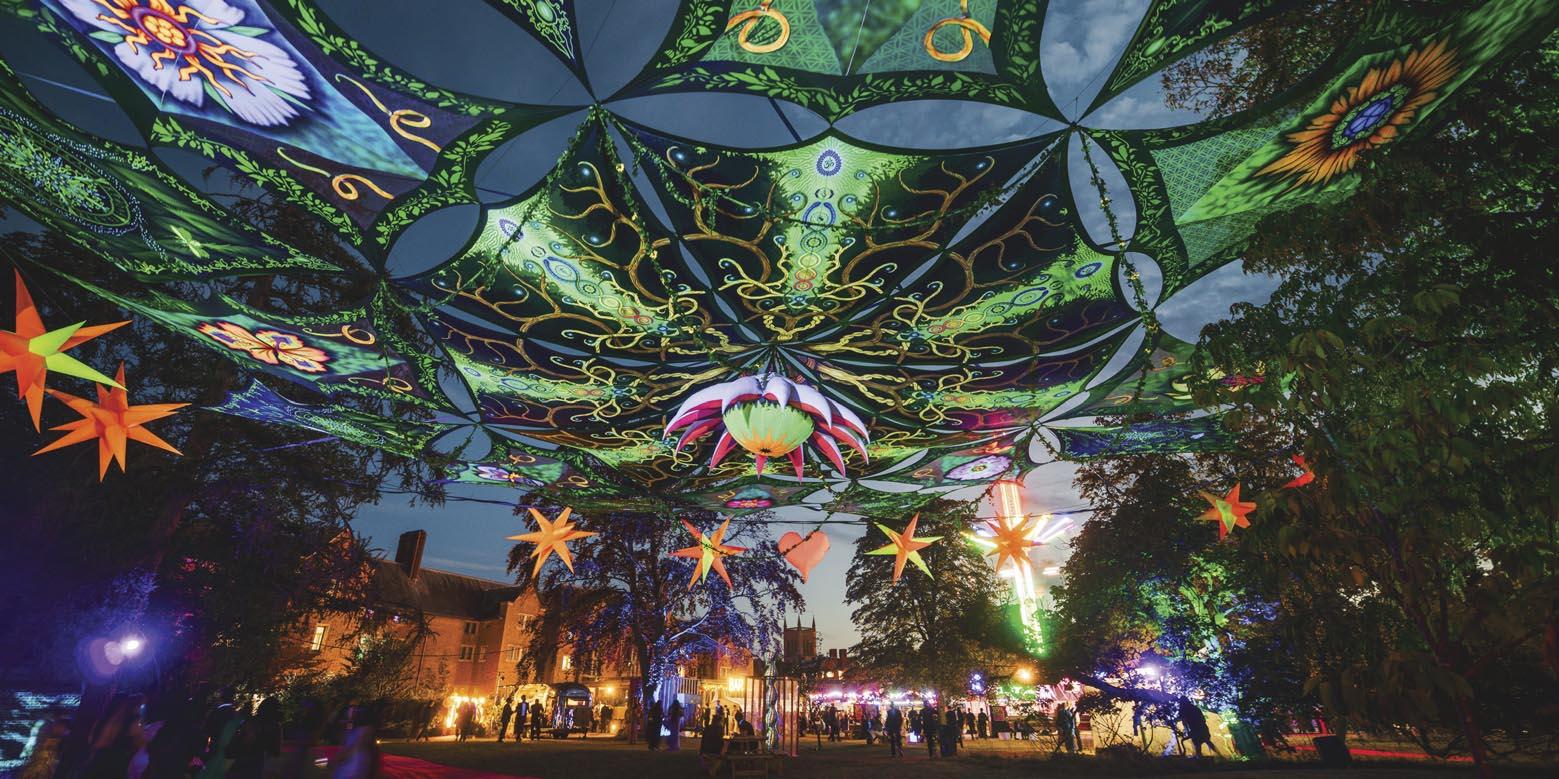
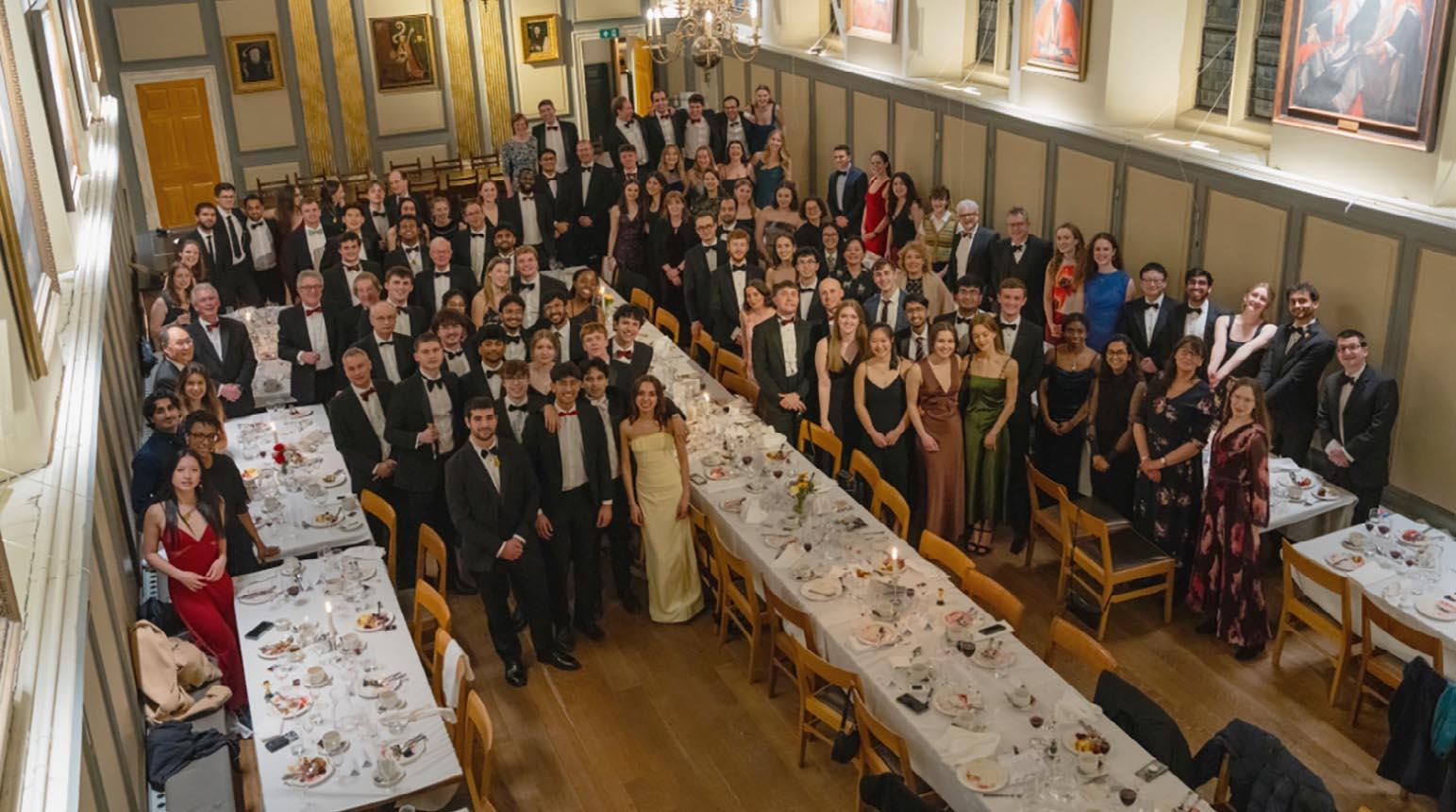
Medical and Veterinary Society
The Jesus College Medical and Veterinary Society has enjoyed another successful year supporting and bringing together the medical and veterinary community of the College.
In Michaelmas Term, we welcomed and integrated our new cohort of Freshers, through socials, ‘what I wish I knew’ talks and tours by our second year mentors. The release of JCMVS stash had all our members looking fabulous, and we enjoyed many events throughout the term. Alumni Sen Kath returned to run an incredibly interesting surgical tech suturing workshop, and we welcomed current F2 alumni back to share their varying experiences of graduate life, followed by a society formal. Finally, we finished out the term with the annual DoS mulled wine and mince pies event, before heading home for a well-deserved rest.
Lent Term was just as exciting, with Sen kindly returning to run his workshop again, and of course our annual MedVetSoc dinner. We were lucky to be joined by Christopher Green as our pre-dinner speaker, who gave an insightful talk on the veterinary industry and his experiences. We celebrated the annual MedVetSoc year in style by welcoming many of our alumni and it was a thoroughly enjoyable evening. As we look to Easter Term, events are planned to celebrate completion of exams and we look forward to bringing the community together to celebrate the end of the academic year.
We would like to congratulate all our students for their academic, sporting, social and other extra-curricular efforts this year, particularly our 6th years as they complete their time here. We look forward to welcoming them back as alumni in the near future and seeing all the fabulous things they achieve!
Sophie Casey and Abhi Sundaram

Multicultural Society
The Jesus College Multicultural Society celebrates cultural diversity in the College. This year, the multicultural society has served as a platform for cultural exchange. Our first event was a hugely successful take-out night, where we ordered food from a variety of cuisines for students to try. While people ate together, we displayed discussion cards with prompts like “Tell others about an idiom in your native language”. These opened the door for fascinating conversations about linguistics and tradition. Another exciting event we hosted was a quiz night, where we tested how culturally informed our Jesuans are (the answer is very). The night ended with a lively round of GeoGuessr – a geography game where players need to deduce where on the world map a place is by looking at images of it. Through organising more fun events that promote cultural understanding, we hope to continue to make inclusion a central feature of our College environment.
Samyukta Natarajan
Music Society
The Jesus College Music Society (JCMS) has truly thrived this academic year, with nineteen dedicated committee members overseeing a multitude of musical activities across College.
The JCMS Orchestra has performed in three successful concerts. The David Crighton Concert, which took place at the end of Lent Term, was particularly notable, with a wonderful performance of Haydn’s Trumpet Concerto with soloist Freddie Jemison (winner of The Crighton Concerto Competition and The David Crighton Prize) and the annual choral project (Finzi’s Lo, the full, final Sacrifice, conducted by Michael D’Avanzo). This year saw the inception of the termly JCMS Showcase,
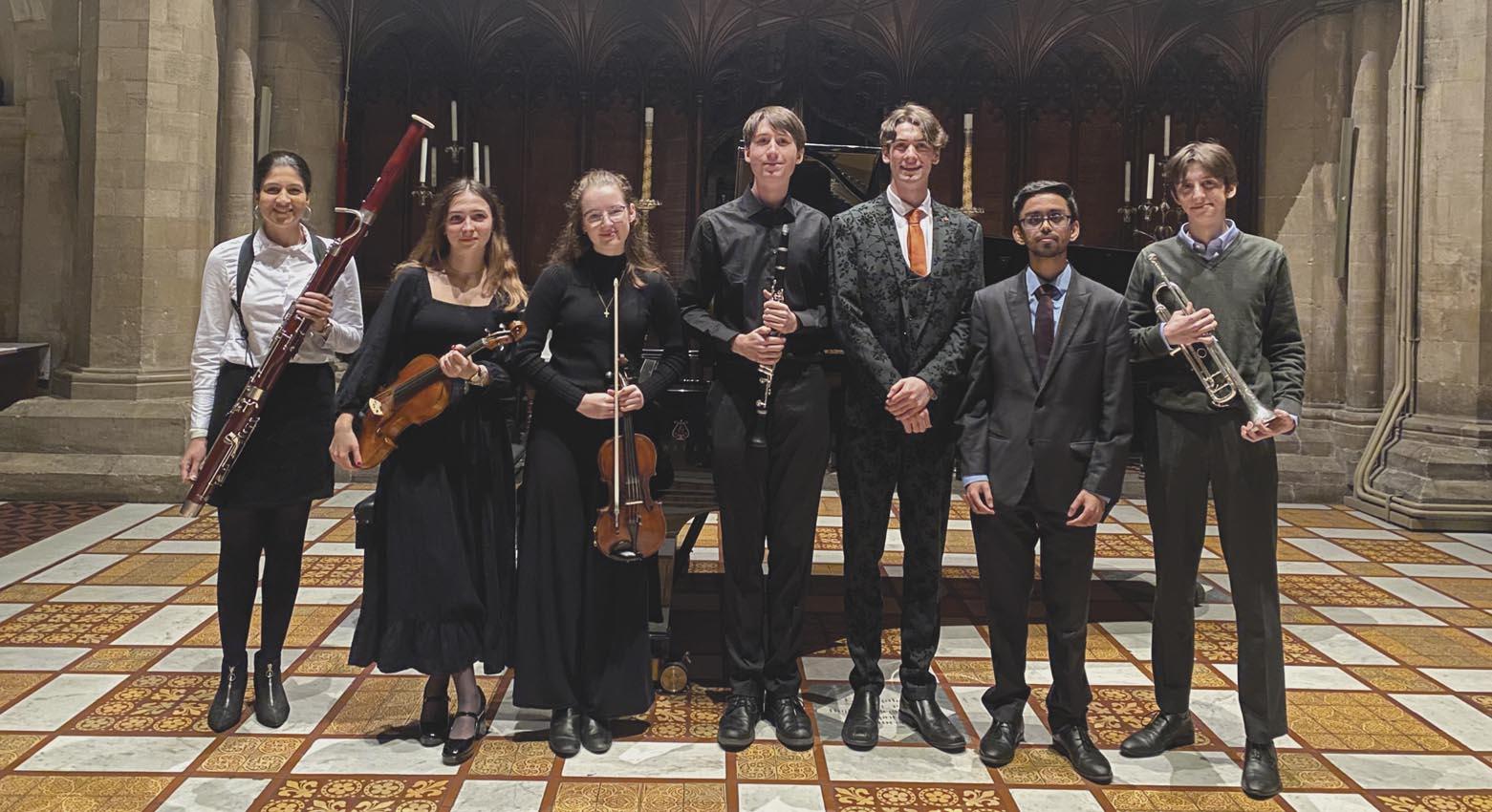
which provided a performance opportunity for our three non-orchestral ensembles: Jesus Guitar Ensemble, Jesus Jazz and Jesus Saxophone Ensemble.
This year’s recital series has been packed, so much so that we introduced a new Wednesday lunchtime slot to accompany our weekly Saturday evening slot. The Freshers’ Recital and Jesuans’ Recital were particularly enjoyable celebrations of college music-making.
JCMS has also organised a number of other events, including The Snowman, a termly Week 5 Blues and Chill, and a gigs series.
We are so grateful to our incredible committee for making this all happen and are delighted to be handing over to Jennifer Buss and Freddie Jemison for what we are sure will be another fantastic year of music in College.
Lizzie
Caird and Mika Curson
Natural Sciences Society
The Natural Sciences Society is open to all Jesus NatScis, aiming to bridge between year groups and within cohorts across the different module choices. This year, for the first time, we have also involved postgraduate students in some of our events. We hope to continue this into next year, connecting undergraduates and postgraduates.
Michaelmas started with a welcome event (with pizza!) for our incoming first years. We have had a great set of formal swaps this year, exchanging with Pembroke, St John’s (pictured overleaf) and Trinity Hall. Establishing links with other Colleges has been a big focus of the Society, and post-formal intercollege pool matches are always sure to unite our most competitive Jesuans! The highlight of our intercollege events was a College bar crawl with Christ’s, Catz and Newnham – we look forward to many more joint events next year.
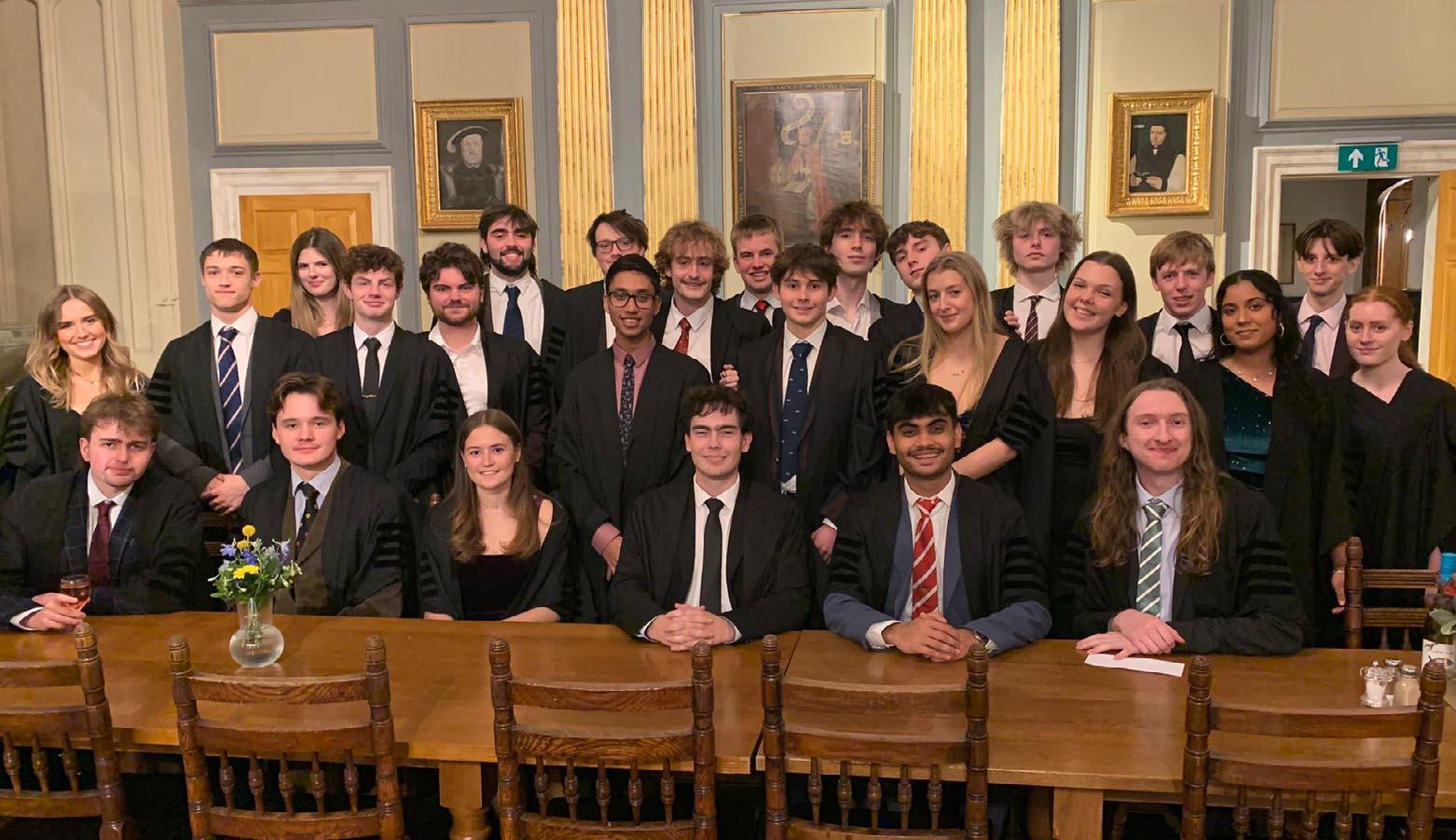
Pizza nights and film nights have also been a staple of the society over the past few years, providing a great way to relax and wind down, especially in the dreaded week five. Our pub trips are always much anticipated – occasionally they might even make it out of our group chats.
The Natural Sciences Society also established our first ever talk series this year, which was very exciting for us. We hosted two fantastic speakers. Alina Lelke discussed applying for and studying a PhD – generally and at Cambridge specifically – giving many undergraduates a helpful insight into postgrad courses and the application process. Luca Ruegg delivered a brilliant presentation on quantum physics, exploring subatomic particles. We are very grateful for their time and hoping to continue hosting subject talks into next year, aiming for a bi-termly series!
In Easter Term the focus of our events changed to support NatScis during exam revision – we ran weekly study sessions in the Jesus College Study Centre. This provided a chance to do some joint revision, have a change of scene and discuss problems with higher year groups. The snack selection was always extensive too to boost morale, with the option for takeaway snacks always available. Huge congratulations to everyone on making it through exam term – we plan to round off the year with our customary Jesus Green celebratory picnic!
It has been a busy year for the society, and as a committee we have been very pleased to see the society continue to gather momentum this year – we can expect exciting things in future! n
Elena Ruddy
Sports Clubs
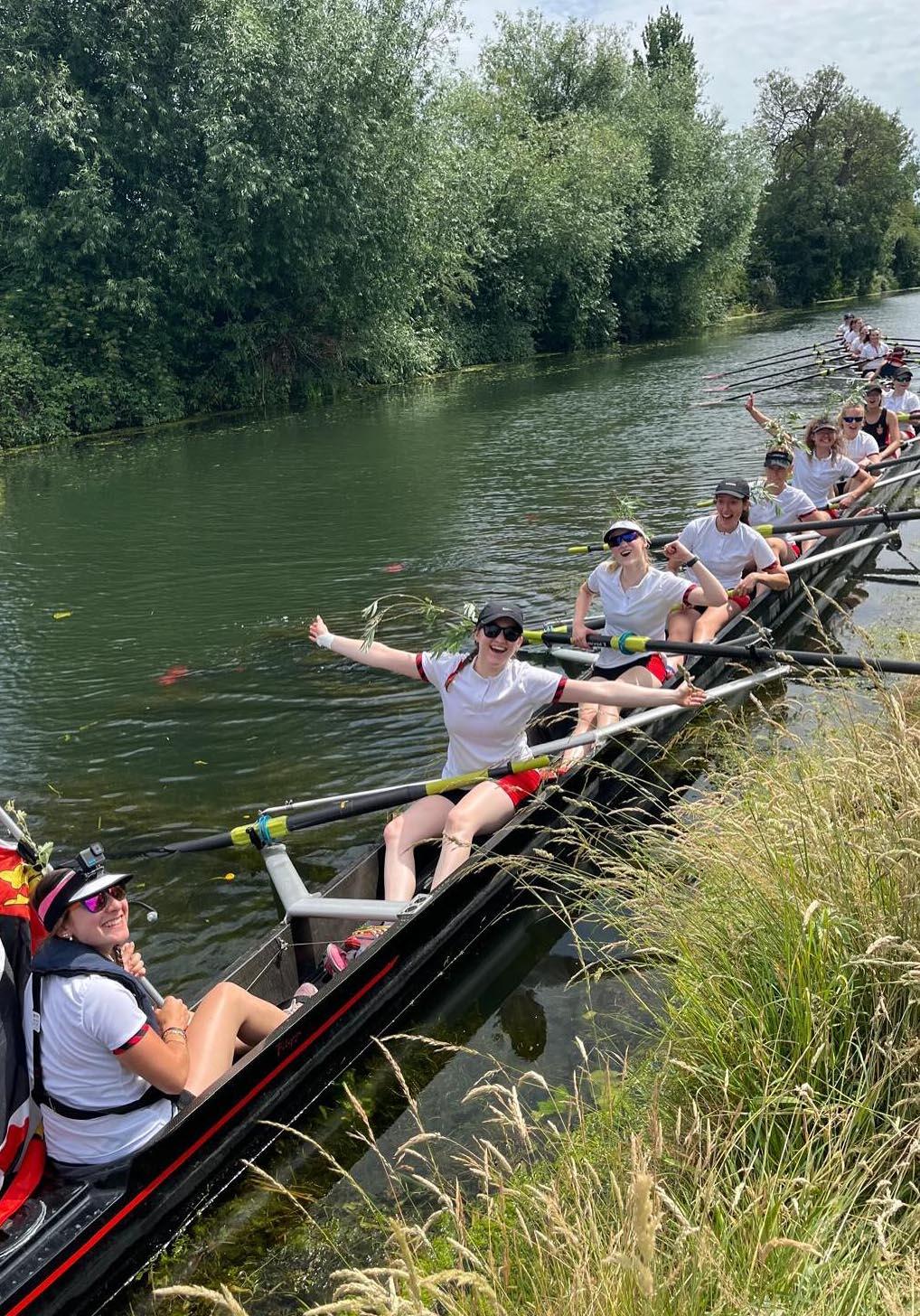
2024-2025 Reports
Athletics
Jesus College has maintained a strong presence this year in the world of athletics both nationally and internationally. This season enabled our athletes to showcase their hard work on three separate occasions with burgeoning talent establishing themselves this year.
A mere two years after the Achilles tour in 2023, selected athletes from Oxford and Cambridge competed against teams from Harvard/Yale and Penn/Cornell.
Ella Colbourn (400m, 800m), Oli Hector (110mH) and Thomas Dugre (3000m SC) formed the Jesus contingent, with Dugre taking the win at Penn/Cornell in an impressive time of 9:01.71.
Fast-forward a few weeks to BUCS and Reese Robinson joined both Hector and Dugre for a successful weekend in Manchester. Robinson comfortably qualified for the triple jump final and ended with a new personal best of 12.46 for 6th place. Hector managed to drop a time of 59.32 in the 400mH despite it not being his main event. Finally, Dugre came tantalisingly close to a medal position finishing 4th in the 3000m SC.
The scene was set for the annual Varsity Match at Wilberforce Road, Cambridge. Thirteen Jesuans represented the light blues in the Men’s and Women’s matches.
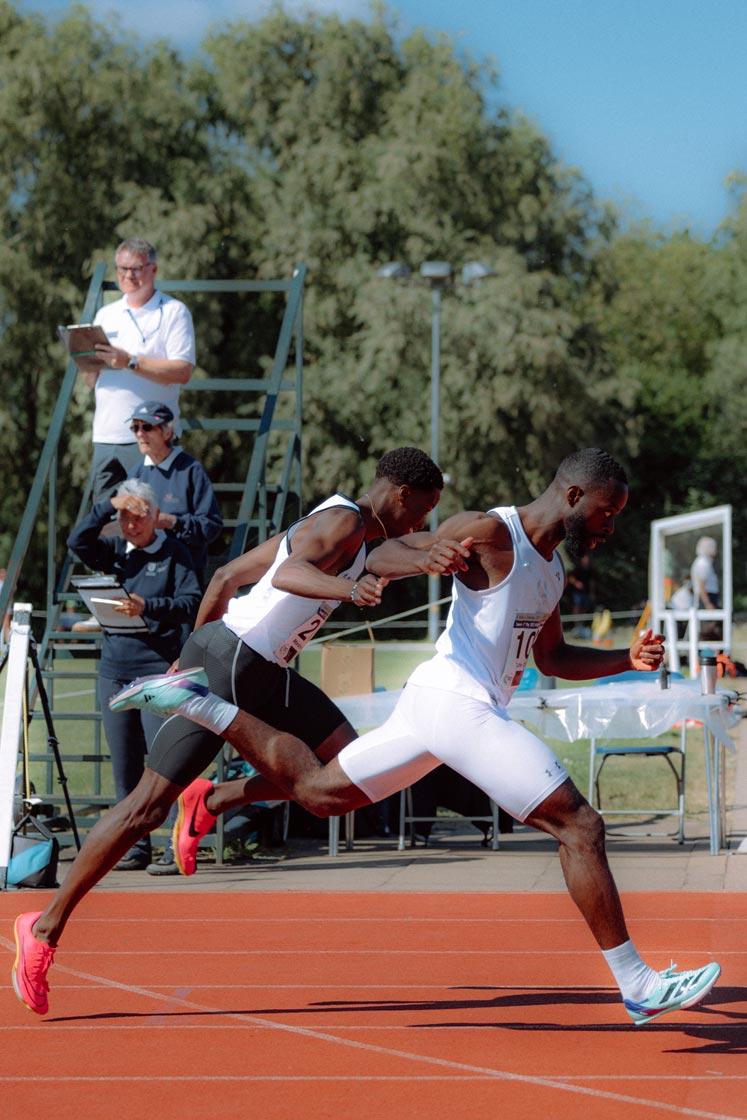
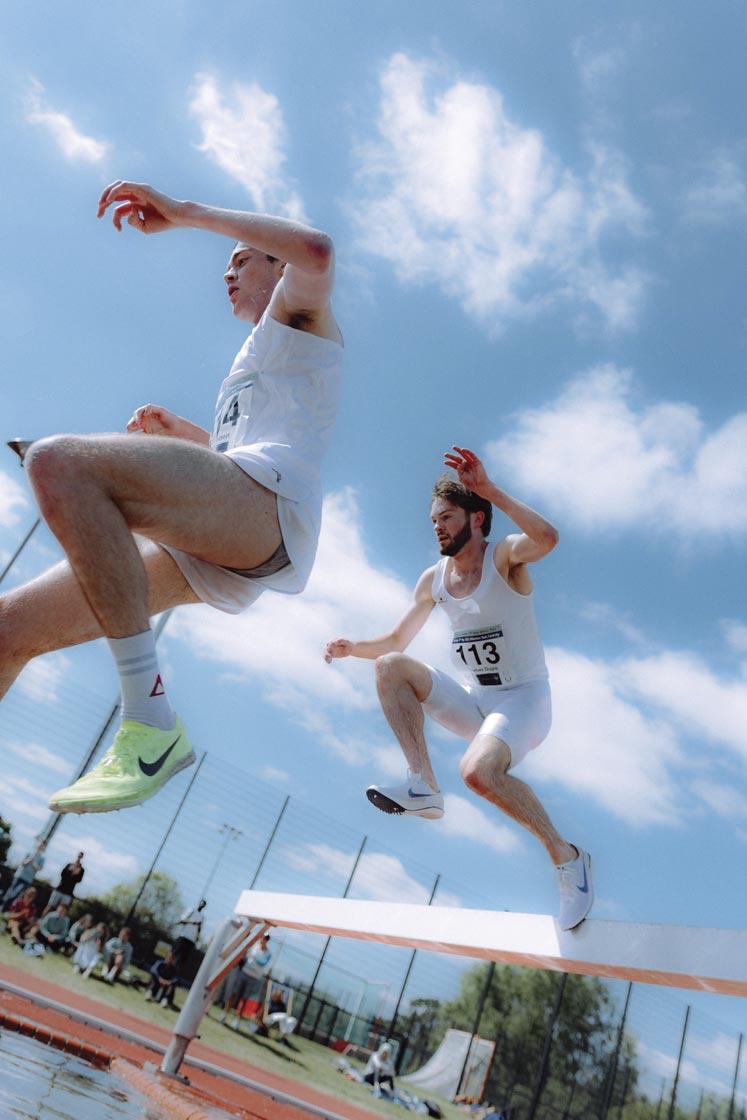
Chizute Ogbedeh on the right
Photos: Graham Smith Photography
Thomas Dugre on the right
Cambridge came out with an impressive victory over the dark blues, winning three out of four matches between the combined men’s and women’s teams.
On the men’s side, Chizute Ogbedeh completed the triple by winning the 100m, 200m and 4x100m relay with two new PBs of 10.72 and 21.84 respectively. Dugre secured a win of his own in the 3000m SC just narrowly missing the sub-9-minute mark with a time of 9:02.59, while Hector blazed through the finish line of the 200mH with a commanding victory in a time of 26.20. Ryan Santos threw an impressive 47.74 and 11.07 in the javelin and shot put respectively to comfortably bring home maximum points for the Alverstones. He was joined by fellow heavy thrower Gabe Lamb who also won both the discus and hammer throw with distances of 37.09 and 37.88 respectively.
The women’s matches were hotly contested with notable performances including Robinson with a dominant win in the triple jump who finished almost one metre ahead of the second-place athlete with a distance of 12.11, and Matilda Strevens winning the high jump for the Alligators with a 1.55 performance.
While we will be losing some Jesuan athletes next year, Jesus continues to attract talent year-on-year. We can only expect to see even greater representation in future varsity matches.
Men’s Blues: Oli Hector (110mH, 200mH, 4x100m relay), Thomas Dugre (3000m SC), Philip Odugbile (High Jump), Chizute Ogbedeh (100m, 200m, 4x100m relay).
Ladies’ Blues: Ella Colbourn (800m), Beth Rogers (800m, 1500m), Eleni Papafillippou (Long Jump), Reese Robinson (Triple Jump).
Men’s Seconds: Daniel Fazackerley (1500m), Ryan Santos (Javelin, Shot Put), Gabe Lamb (Discus, Hammer Throw), Henry Halford (Hammer Throw)
Ladies’ Seconds: Matilda Strevens (High Jump).
Chizute Ogbedeh * * *
Badminton
The past year has been another strong and eventful one for Jesus College Badminton Club. Our weekly social sessions continue to thrive, attracting a lively mix of both undergraduate and postgraduate students. These sessions have remained a welcoming and inclusive space, offering players of all abilities the chance to enjoy the sport, meet new people and relax in a friendly and supportive environment.
Our two College teams – the Women and Non-Binary Team and the Open Team –faced a challenging season, having earned promotions in the previous year to Division 1 and Division 3 respectively. The Women and Non-Binary Team, led by Aleksandra Szymczak, welcomed several new members, many of whom were playing competitive badminton for the first time. While the team demonstrated resilience and a commendable commitment throughout the season, they concluded the year with relegation from Division 1. Similarly, the Open Team, captained by Aakash Esa, saw enthusiastic participation, with many new players also joining the ranks. Despite strong efforts, the team were unable to maintain their place in Division 3 and will return to a lower division next season.
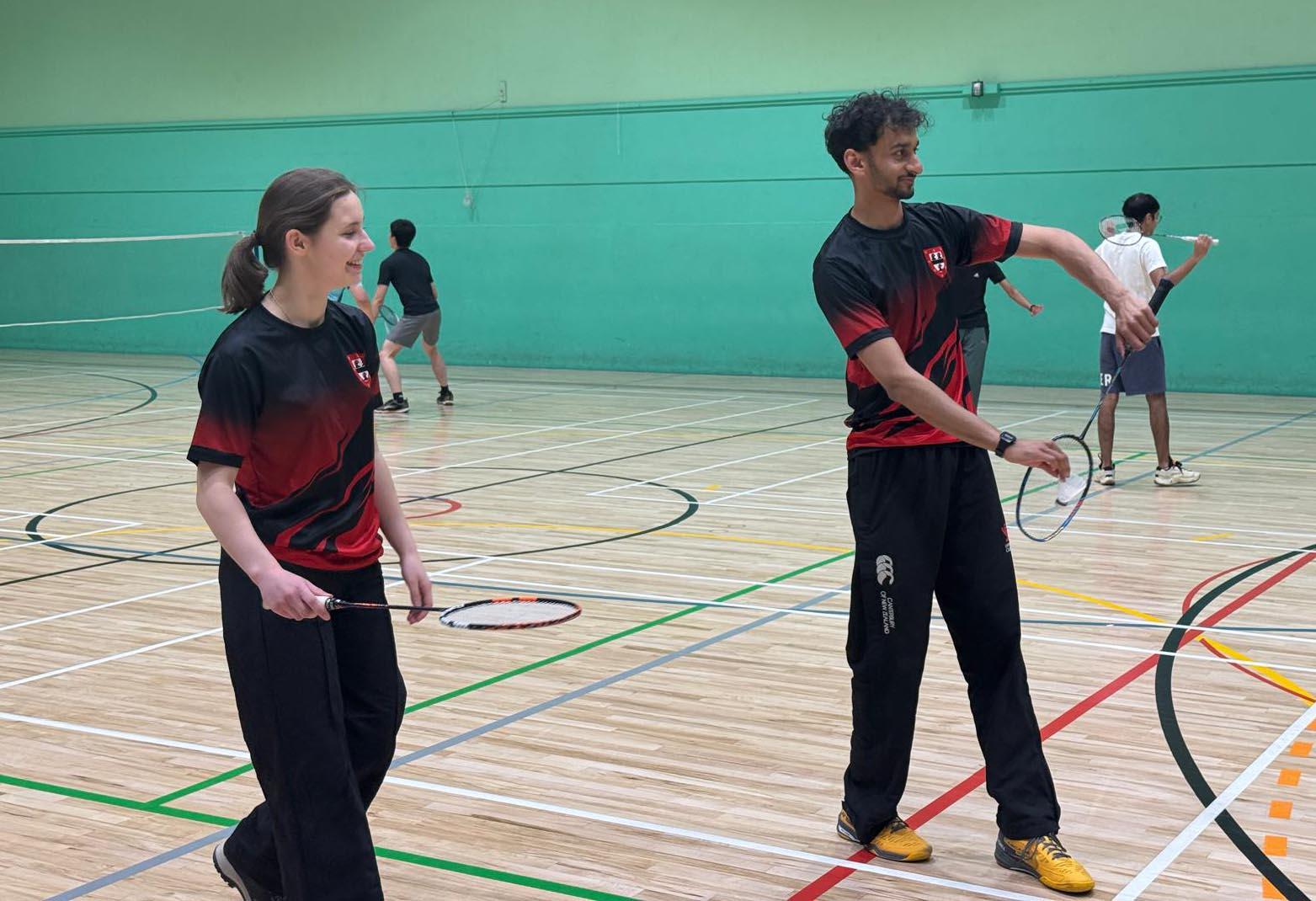
Inspired by the dedication of many members of the community, university team player and Cuppers captain Prabav Santhosh occasionally led training during the social sessions, offering more structured practice opportunities for those looking to improve their skills.
We also had the opportunity to host Jesus College Oxford’s Badminton Club for the annual Jesus-Jesus Varsity match. The day began with competitive doubles matches between the two colleges, where Jesus College Cambridge claimed victory in all encounters. To keep the spirit light and even the playing field, we followed up with mixed inter-university pairings and concluded with a fun and relaxed game of ‘around the world’. The day struck a perfect balance between friendly competition and genuine camaraderie, and we look forward to Oxford hopefully hosting the fixture next year.
A great highlight of the year was the standout performance of our mixed team in this year’s Cuppers tournament. Featuring several university-level players alongside our college-level players, the team demonstrated impressive cohesion and determination, earning a well-deserved second-place finish among the competing colleges – a result that certainly made the Jesus badminton community proud.
Overall, 2024-2025 has been a fulfilling and spirited year for Jesus Badminton. With a growing and enthusiastic community, we look forward to continuing this momentum and welcoming new faces in the year ahead.
Kathryn Welhenage
Basketball
This year marked a triumphant return to form for Jesus College Basketball Club, as we were crowned Cuppers champions for the second time in three years. Following a disappointing end to the previous season, significant changes were needed, and they paid off. An influx of five talented freshers breathed new life into the squad, and the team found its rhythm early in the regular season. We stormed through Michaelmas Term undefeated, earning promotion from Division 3 to Division 2.
Division 2 presented a tougher challenge, where we finished with two wins and two losses, ensuring we remain in the division next year. More importantly, this secured our qualification for Cuppers.
Entering the tournament as the 8th seed, the team was largely overlooked, but that only strengthened our resolve. The arrival of two basketball Blues, Yuu Kunisada and Jude Clerk, along with two rugby Blues, Charles Kantolinna and Ryan Santos, provided a formidable starting five capable of taking on any team. What set this group apart was the collective belief and buy-in from every player. As captain, it was inspiring to witness the team’s commitment to making a deep Cuppers run from the outset.
Our campaign began with a comfortable victory over 9th seeded Robinson. All eyes then turned to our quarter-final clash with top seeded Churchill. In a standout performance, we upset the favourites in emphatic style, securing another convincing win. The semi-final saw us face Lucy Cavendish, whose starting lineup consisted entirely of university players. Yet even they could not halt our momentum, as we powered through to the final.
In the championship game, we met our rivals Hellenic, who were eager for revenge after a narrow loss during the regular season. Backed by a large and passionate crowd, the team gave everything but entered the final quarter down by four points.

Cuppers champions
In a display of resilience and determination, we surged ahead in the closing minutes to claim a 45 to 41 victory, and restore Jesus College Basketball to Cuppers glory, a pivotal moment in the club’s history.
Looking ahead, with much of the squad returning next year, we aim not only to defend our title, but also to lay the foundations for a lasting dynasty. The ambition is to build Jesus College Basketball Club into more than just a team, but into a real club with sponsors, regular socials and a strong community to match our success on the court.
Matthew Olatunji
Boat Club
Michaelmas Term began with a new committee and an enthusiastic influx of over 120 sign-ups at the recruitment BBQ and Freshers’ Fairs. Early success followed at Rob Roy Small Boats Head and Rob Roy Autumn Head, setting a strong competitive tone. A memorable training day at Ely led to Isle of Ely Head, where W1 took first, while M1 and M2 secured second-place finishes. The same weekend saw our novices shine at Queens’ Ergs, with victories for NW1, NM1, and NM2 (2nd). Our novice crews gained further water time at Cantabs Winter Head, with NM1 winning their division and NW1 placing third. W1 took a solid third against strong Trinity Hall opposition, M1 came third fastest men’s college crew, and M2 missed the top spot by only 0.5s. Clare Novice Regatta provided additional race practice ahead of the Fairbairns Races. Fairbairns was a standout, with first-place finishes for W1 and NM1, close seconds for M1 and M2, and podium spots for W2 and NW1. NM2 and NM3 placed 5th, NW2 6th, and our M1 IVs took 5th and 8th. Our returning 2023 W1 headship crew also won the invitational category.
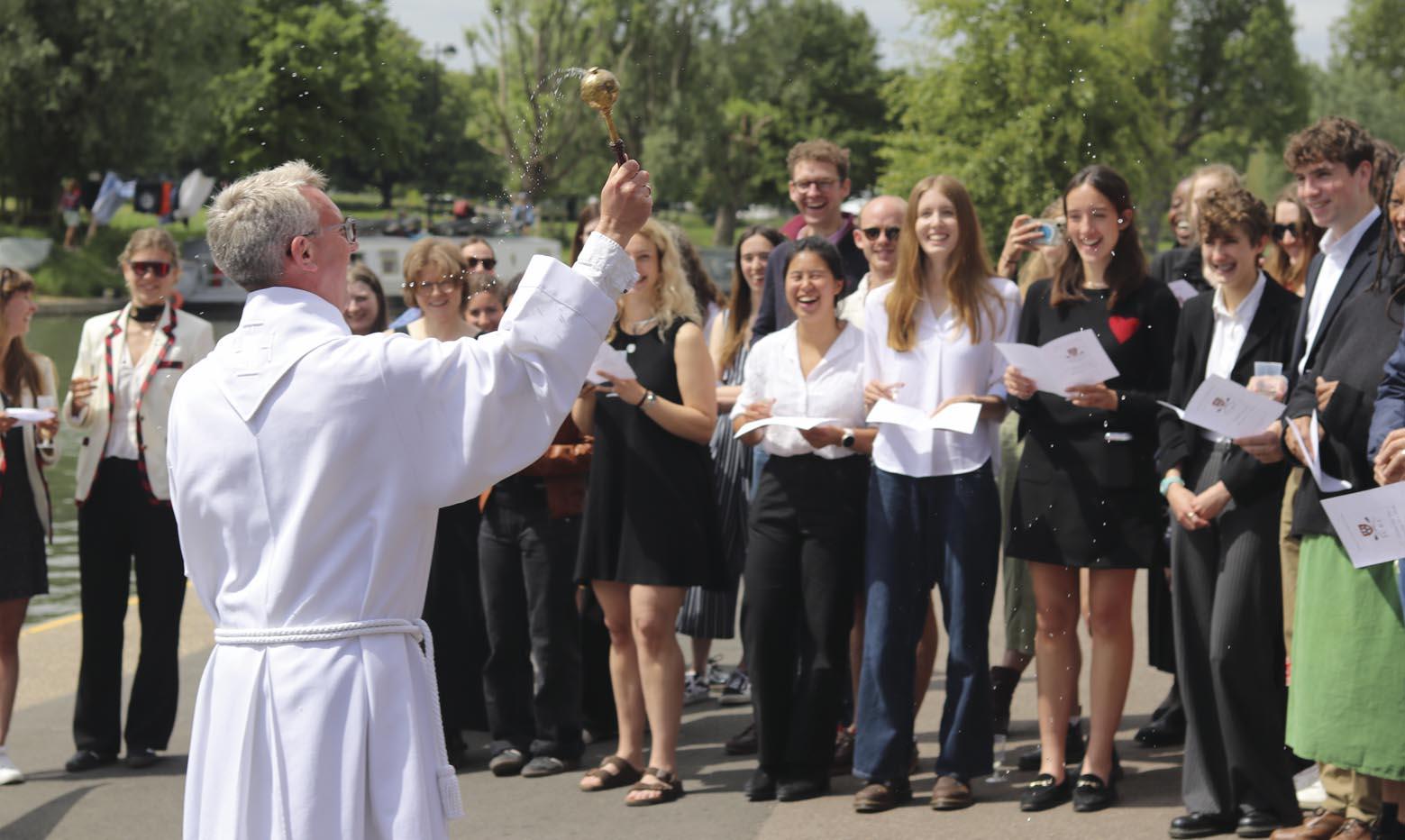
Dean of Chapel, the Rev’d Dr James Crockford “blessing the boat”
In Lent Term we returned to sunny Seville for a productive training camp with 32 rowers and coxes, supported generously by the JCBC Trust. Success continued at City Winter Head2Head, Bedford Head (wins for M1 and W1), Newnham Head and Pembroke Regatta, where M2 and W2 were victorious. Lent Bumps was equally triumphant: W1 retained headship for a third consecutive year, W2 moved up two places, and W3 achieved a revenge bump on Homerton. M2 had an exciting campaign, bumping Sidney M1 on the last day despite missing out on blades, M3 climbed three places, and M1 stayed level at 5th on the river. Five JCBC students represented CUBC, including Tash Morrice in the Blue Boat and Joe Travis in Goldie.
Easter training gave way to Small Boats Regatta, where Izzi Millar reached the final, and Joe Travis and Sean Hayes won the Magdalene Silver Pairs. W1 took Head of the Cam and Bedford Regatta, with M1 and W2 also reaching the final at Bedford Regatta. JCBC also purchased a new women’s eight, Sonita Alleyne OBE, honouring our Master and celebrating the club’s future. This term marked another successful Bumps campaign, with results spanning from Headship blades to spoons. The standout moment of the year, however, was W1 reclaiming Headship – securing double Headship for JCBC in 2025. With preparations already underway for the Club’s bicentenary in 2027, all crews are focused on consolidating their success and building on another exceptional year.
India Harding
Boat Club Trust
I have great pleasure in reporting another successful year for the JCBC. Many congratulations to India Harding, President; Amanda Stoffers, Women’s Captain; Daniel Wilkes, Men’s Captain; Lizzie Caird, Coxing Captain; Jonathan Conder (JC) Head Coach and Boathouse Manager; and Callum Bland, Assistant Coach and all who rowed or coached.
Many congratulations as well to our University rowers: Tash Morrice (Women’s Blue Boat), Joe Travis (Goldie), Sarah Sharp (cox, Women's Lightweights) and Grace Forward (Women's Lightweights). All won their respective races against Oxford and all returned to the JCBC for the Mays.
We wish all success for the coming year to the new leadership: Dom Swift, President; Izzie Fisher, Women’s Captain; Ellis Collins, Men’s Captain; and Elena Ruddy, Coxing Captain. We very much welcome the decision of the Club to create a new appointment, Alumni and Outreach Officer, and we congratulate Hannah Wimhurst on being elected to this role. The Club is absolutely right to recognise that rowing is part of a much bigger picture, and that the relationship between current rowers, past members and the wider community deserves greater attention within the Club. The Trustees look forward to working with Hannah — not only in light of the forthcoming JCBC bicentenary, but also with a view to strengthening these connections for the longer term.
The highlights of the year included the regaining by W1 of the Double Headship –Lents and Mays – both last held two years ago, with the Mays headship only lost on the last night last year – a great tribute to the hard work and determination of all involved; and the naming by the Master in May, amid a boat blessing by Dean of
Chapel and Trustee, James Crockford, and much ceremony, of the new eight for W1 ‘Sonita Alleyne OBE’, funded by the Trust. As will be seen from the Boat Club report, the Fairbairn Term brought a number of successes across the Women, the Men and the Novices, showing the Club in fine fettle: excellent attraction, integration and development of novices. Around 120 new students signed up to try rowing, laying a strong foundation for the rest of the year. The Lent Term saw not just W1 rowing over Head all four days but Jesus crews up +11 overall in the Lent Bumps: strength in depth. The Mays were more mixed, perhaps to be expected after the remarkable successes of the last two years, but W1 triumphed and W3 won their oars. Successes were had too in other events, both on and off the Cam, not least Sean Hayes and Joe Travis winning the Magdelene Silver Pairs.
The results this year continue to justify the decision by the Trustees to make it financially possible for the College to employ an Assistant Coach to concentrate on novices as part of the JCBC’s L2R (Learn to Row) programme. The benefits are seen both in numbers taking up rowing and in novices progressing to senior boats. Callum Bland is doing an excellent job as Assistant Coach, as is JC with the senior crews and overall.
Other than the purchase of new eights, of which the new W1 eight is the latest example, expenditure on the Assistant Coach is currently the biggest item of expenditure by the Trust, followed by the continuation of an earlier investment decision by the Trustees to fund up to half the cost of a training camp in January. This year the camp took to Seville 28 rowers, four coxes and four coaches, a total of 36, an increase of four from previous years, with crews rotating across two eights (men's and women's), a coxed four, two pairs (men’s and women’s) and four sculls (two men and two women). The camp – three training sessions each day, with one afternoon off to explore the city – proved hugely beneficial for all experience levels, with both novice and senior rowers making significant progress throughout the week. As with the Assistant Coach, the Trustees believe that the benefits of these

Members of the Boat Club with the Master and the new women’s eight, ’Sonita Alleyne OBE’
“investments” in the JCBC are validated by results on the river and the increased participation in rowing across the College. They do not detract from the Trust’s ability to continue to provide the Club with top-class equipment as we both fund purchases as needed in the short term and set aside each year funds for acquisition of eights, all in accordance with a medium/long term programme looking forward over future years. The Trust has a cautious total return approach, meaning that our spending comes from a blend of income and capital. Whilst we continue to be very careful with protecting capital, we have made our first decision this year to dip into the capital to top up the income to the Trust, so that we will draw down a sustainable 4% of the capital each year, being about 2.8% in yield and the balance in capital. With many years of surplus capital growth behind us there is an adequate cushion for the time being. Over the short term, our investments have trodden water, a decent result in such volatile markets. Our capital stood at £1.63m at end of June 2025, yielding over £47,300 per annum. CCLA continue to be our sole investment manager, with reviews every three years. They perform adequately but not spectacularly, providing steady increases at moderate risk.
Preparations to mark the 200th anniversary in 2027 of the foundation of the JCBC are gathering pace. Nick Tubbs writes separately about this in the Annual Report, and, if you would like to know more or to be involved, please contact Nick on jcbc.bicentenary@gmail.com. The Trust is providing a small amount of seed funding for some of the Bicentenary projects, to be recouped from sales which those projects will generate. These projects include the digital archiving of Percy Bullock’s archive, maintained by the College and which contains a lot of informative and interesting material.
We are very grateful to those alumni/ae and others who have, in increasing numbers, coached JCBC crews. Particular thanks in this regard to Martyn Rooney, Lene Northwood, Dan Cochrane, Stella Isaac, Jon Hutton and, in the gym, Maddy Foy, all of whom made major contributions, especially in the early part of the year. We continue to need more alumni/ae to help: if you can, please contact Jonathan Conder (JC) on boatman@jesus.cam.ac.uk, or Trustees Sheena Cassidy Hope on sheena.cassidyhope@mishcon.com or Matt Jones at mattjones@cantab.net
We always welcome donations to the Trust and encourage those who have not already done so to make a contribution to the JCBC either by individual gifts or by regular giving through joining the Friends of the JCBC. Further information about the Trust can be found on www.jcbc.jesus.cam.ac.uk/trust; about the Friends on www.jcbc.jesus.cam.ac.uk/sites/default/files/JCBCFriendsSO+GA; and, for younger supporters, our graduate donor scheme: www.jcbc.jesus.cam.ac.uk/sites/default/files/JCBCTrust_GraduateDonation.pdf
In any event, David Reid would be very pleased to hear from you on judgedreid@sky.com
The Trustees were sad to receive the resignation of Louise Couch as a Trustee on the occasion of her relocating with her family to pursue a new business opportunity and a different lifestyle, in Cornwall. Louise has been both a Trustee and Secretary of the Trust for many years and we thank her for her major contribution, in both administration and creative thinking. We wish Louise and her family all success and happiness. We are grateful to Jon Hutton for volunteering to pick up the Secretary role. Accordingly, the Trustees and their responsibilities now are:
Chair David Wootton dhwootton@gmail.com
Treasurer Danny White danny.c.white@hotmail.com
Investments Ewan Pearson e.pearson@gpb.eu
Secretary Jon Hutton jon_hutton@hotmail.co.uk
College Links
James Crockford j.crockford@jesus.cam.ac.uk
The Friends: Richard Tett richard.tett@freshfields.com
David Reid judgedreid@sky.com
Helen Boldon helenboldon@gmail.com
Women’s Club/ London Link
Sheena Cassidy Hope sheena.cassidyhope@mishcon.com Training/Coaching/
Quality of Rowing Matt Jones
mattjones@cantab.net Boat Club Strategy/ Boatman/Boathouse Jon Hutton jon_hutton@hotmail.co.uk
Finally, we wish the incoming JCBC leadership – again, Dom Swift, President; Izzie Fisher, Women’s Captain; Ellis Collins, Men’s Captain, Elena Ruddy, Coxing Captain; and Hannah Wimhurst, Alumni and Outreach Officer – all success, with our full support, as they take the JCBC forward towards our Bicentenary year.
David Wootton, Chair of Trustees
JCBC Bicentenary 2026/2027 – under one year to go!
JCBC will celebrate its 200-year anniversary throughout the 2026/2027 academic year. To mark this significant milestone, a group of alumni and members of the JCBC Trust are working with Jonathan Conder (JC), JCBC’s Head Coach and Boathouse Manager, and the College to develop a programme of events and activities to celebrate the Club’s past, inspire the present and ensure its future.
Everyone is most welcome – whether you were a multi-year university rower, rowed in only one novice crew for the experience, or are just interested in the Bicentenary programme and JCBC’s role in the fabric of College life. This will be a celebration of the Boat Club and the College, and a chance to meet up with friends. Plans cover three main themes:
• Events: A series of events are planned throughout the 2026/2027 academic year. Some will complement existing dates in the rowing calendar, including the Fairbairns (4 December 2026), the Saturday of May Bumps (12 June 2027) and Henley Royal Regatta (29 June – 4 July 2027). Other events in the programme are bespoke, such as a family day on 18 September 2027 which will culminate in a celebratory dinner. Please visit the Bicentenary’s web page on the College website, linked via the QR code on page 130, for the latest details.
• Celebrations: Working with the College Archivist, Rob Payne, an audio-visual exhibition exploring JCBC’s past, present and future will be displayed in College and a commemorative coffee table book is being produced. A new volume of JCBC’s ‘Red Book’ will be published to bring Club records up-to-date and discuss key themes in its rich 200-year history.
• Long-term strategy and development:
The Bicentenary provides the perfect opportunity to plan for JCBC’s future and support its newly adopted long-term strategy. We are working closely with College on some specific initiatives to capitalise on this unique opportunity to prepare JCBC and College for another century of success.
To find out more about the Bicentenary or hear more about JCBC more generally, please join the JCBC mailing list by completing the form accessible through the page linked from the QR code. Once joined, you will receive termly updates on the Club’s successes, and news of the Bicentenary and JCBC events.

If you would be interested in becoming a part of the Bicentenary Group, please email Nick Tubbs at jcbc.bicentenary@gmail.com
Nick Tubbs (2014)
Climbing
Climbing has surged in popularity over the last few years, both within the University and worldwide. The Jesus College Climbing Club continued to foster interest in this sport by organising events for new and seasoned climbers alike. The academic year kicked off with an introductory session at Kelsey Kerridge, which was attended by 45 students. We continued to run weekly meets throughout the year at the local climbing gyms, which were well-attended and enjoyed. More experienced climbers helped guide newer members, reinforcing a great sense of community. We also organised a movie night social with members of the St Edmund’s and Wolfson College climbing clubs, giving our members the chance to connect with other climbing enthusiasts.
Excitingly, Lovisa Jonsson designed some eye-catching club merchandise, with more to come! In addition, we started building up a gear inventory (including two ropes, 12 quickdraws and two belay devices). This allowed us to organise two well-attended indoor roped climbing trips in London. For the first time in club history, we organised an outdoor roped climbing trip to the Isle of Portland with eight attendees. Newer members were taught how to belay, lead climb and other essential skills for sport climbing. Outdoor climbing is a sport with high barriers to entry, requiring both experienced climbers and costly equipment (with outdoor climbing courses often charging more than £200 per session) so this valuable opportunity could only have been made possible with the generous financial support of the JCSU.
The club provided financial support for our members’ attendance to the club climbing sessions throughout the year, facilitating the participation of newer climbers and reducing barriers for College members. Many thanks to Jeremy Stafford, our treasurer, for dealing with the constant flow of receipts and reimbursements throughout the year.
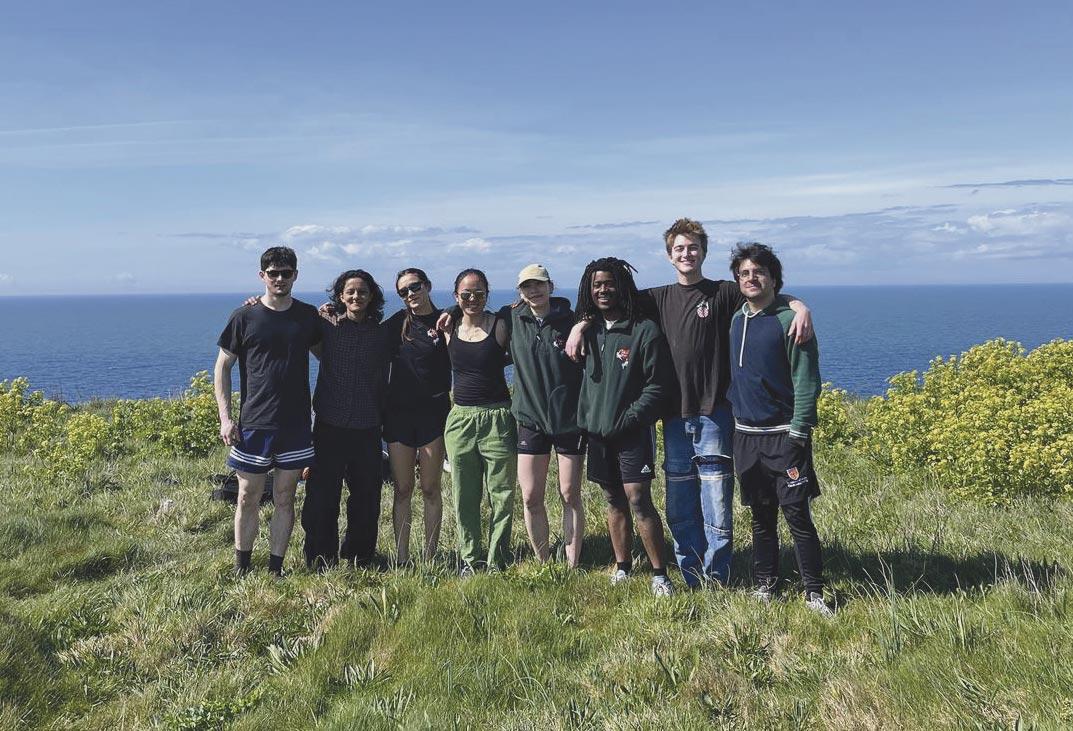
To cap off a successful year, the Jesus College Climbing Club remains committed to promoting this dynamic sport, and offering a social and supportive environment for members. We look forward to continuing to foster an inclusive environment for climbers of all levels.
Ines Lau Vasquez and Helen Yan
College Colours
Seven students received College Colours for their exceptional contributions and outstanding commitment to sport at Jesus. The winners were nominated by their peers and were recognised both for their sporting talents and their service to College teams and leagues. The Master presented the Colours at a special ceremony in Upper Hall. College Colours have been a long-standing tradition at Jesus but had lapsed for many years before being revived in 2016/2017 when the Jesus College Sports Committee was re-established. The committee, made up of all acting College first team captains (including mixed, men’s, women’s and the Boat Club) and the committee president, voted to select around three male and three female recipients each year. This year, Tim Andrew was elected the new president for his contributions to rugby at both College and University level. The recipients were:
Lara Branston: Recognised for her dedication as co-captain of the Women’s and Non-Binary Football Team and for her talent as a player. Lara also regularly played College netball and captained the women’s Amazons rowing crew during the term.

David Butlin: Represented the College in rugby at both the Cuppers and Plate championships, and also in tennis (as captain), rowing, football, mixed netball and basketball.
Henry Halford: Acknowledged for his dedication as co-captain of the College’s two mixed netball teams and for fostering a welcoming, inclusive environment. Henry also supported the women’s netball teams through coaching and refereeing every weekend.
India Harding: As JCBC President, led the club and its crews to victories in all major events, including Fairbairns and Lent Bumps. She was recognised for her organisational skills, sharp judgment and good humour.
Hamish MacGregor: Nominated for his significant contribution to College cricket as a longstanding member of the JCR, MCR and Long Vacation cricket teams over nearly nine years, achieving two Cuppers wins and several years of captaincy.
Alex Norcliffe: Competed in five water polo Cuppers tournaments for Jesus, helping the team to two victories, a second-place finish, and two third-place finishes. Alex also participated in swimming Cuppers and was described as an invaluable team member.
Matthew Olatunji: Achieved success in Cuppers and league competitions in rugby and basketball, played for the men’s football seconds and boxed in the University squad.
From left: Alexander Norcliffe, Henry Halford, Lara Branston, Tim Andrew, The Master Sonita Alleyne OBE, Sarah Sharp, India Harding, Matthew Olatunji and David Butlin
Cricket Club
The Jesus College Cricket Club had another successful season in 2025, with the most games played in a season in recent history! The sun and lack of rain have meant our home ground, the Close, played excellently, hosting several great matches during Easter Term. We were balloted into a ‘group of death’ for the annual Cuppers tournament, and after losing our first game to Downing, there was much trepidation about our chances in the tournament. The team rallied with some standout performances from Karan Salvi, Seb Hughes-Pinan and Hamish MacGregor, going three in a row against Girton, Fitzwilliam/Lucy Cavendish and St Edmund’s College. These wins combined with a strong net-run-rate got us through to the Cupper’s quarter-final against St Catherines. This was perhaps the most one-sided game of the season, with the spin attack of Seb Hughes-Pinan, Hamish MacGregor and Cameron Ryall taking three wickets each and easily chasing the total with Merwan Singh batting through the innings until a lusty blow from Tim Andrew to win.
This led to our biggest rivals in the semi-final: Trinity College. In 2024, Jesus beat Trinity in the finals by Duckworth-Lewis after rain began to fall, making this a grudge match for Trinity to prove themselves against the team who had pipped them the year before. It was not to be, with their top order faltering against Jesus’ spin attack and Pragvansh Bhatt’s accurate seam bowling. Chasing 138, Karan Salvi scored 69 off 35, taking down the overconfident bowlers and leading Jesus to the final. In the final, Jesus fell to a strong Robinson side, failing to get their two best players out and ending up runners-up. While disappointing, the team had gotten to know each other well and came off with a lot of smiles and as a team.
We also played two friendlies against the Jesters and the ‘Old Boys’ alumni team. Both were excellent matches, with the Jester’s game seeing Karan Salvi and Cameron Ryall chasing down 224 in a 8th wicket partnership worth 120. In the Old Boys game,
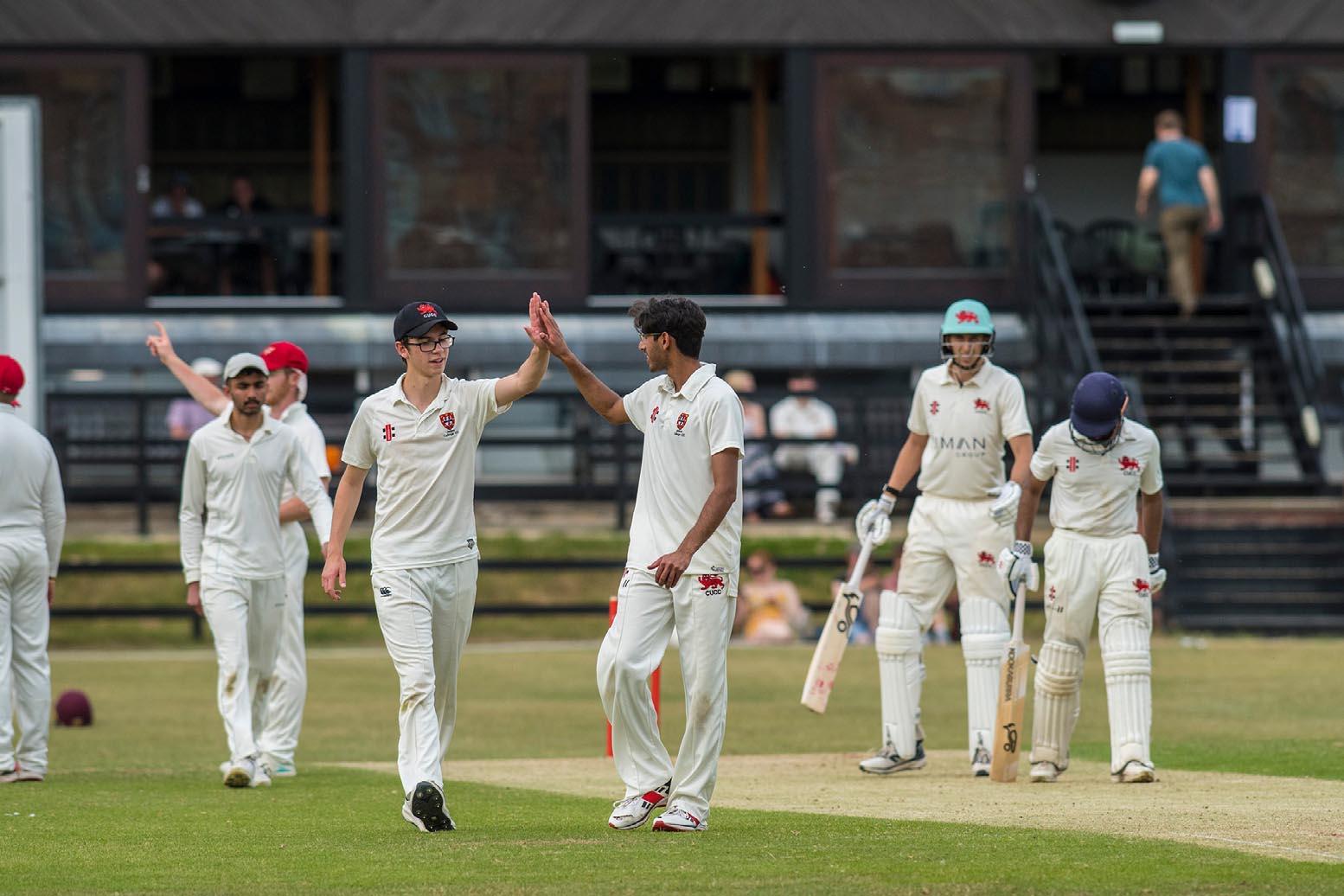
a one wicket loss after Sarah Atrill and Tom Pritchard took the Old Boys to the win made for an amazing final game for the season. After a lot of new players joining the squad, and a lot of old players leaving the team following this year, it has been an excellent year to play and captain the Jesus College CC.
Cameron Ryall
Football Club Men’s team
* * *
After narrowly avoiding relegation from the topflight last season the men’s first team looked to kick on and give a better account of themselves this year. With strong new additions all over the pitch there was an optimism amongst the squad that this was our year. The firsts got off to a strong start beating Homerton 2-1 in the league, with goals from both debutants, an outside the box screamer from Freddie Mcnay and last gasp winner from Novo Ukiri. The future looked bright. The firsts followed this up with a 3-1 win against Girton but had one eye on the first round of Cuppers against St John’s, who had knocked us out last season. The first round ended in a gruelling 3-3 draw at Jesus College after an impressive Nigel Danquah brace was cancelled out in the last minute by a St John’s goal. After a peruse of the constitution a replay was eventually agreed, which was also drawn 3-3 but this time went to penalties. An impressive save from Ben Sutcliffe and then a winning penalty by Dilan Shant saw us into the next round, and foreshadowed our strength in penalties, which would prove useful later on. The first’s unbeaten run in the league continued with slightly disappointing results of 1-1 and 4-4 draws against Downing and Sidney Sussex respectively. But also some resounding victories, such as 8-4, 7-0, and 6-1 against Darwin, Queens’ and St John’s. Unfortunately, a 3-1 defeat to Fitzwilliam, our only loss of the season, cemented us in second place in division 1. However, our cup run was flourishing after beating Gonville and Caius 7-0 in a replay and a win against Jesus Oxford in the annual Varsity game. With Cai La Trobe-Roberts scoring for fun (21 goals in cup and
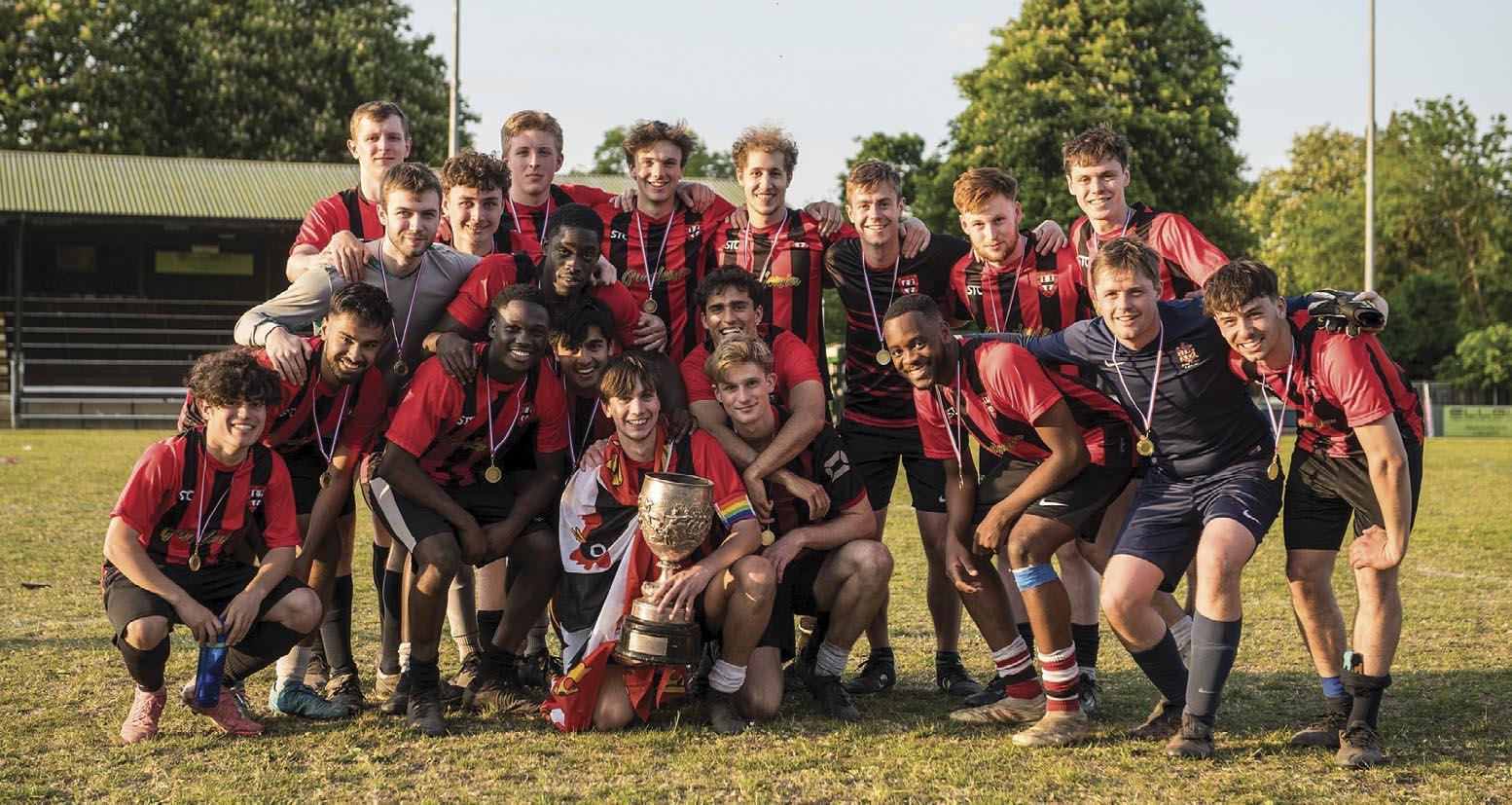
Photo by Dik Ng
league), and a strong defence led by the experienced former captain Boris Spasojevic and Ethan Phillipson, we felt unstoppable. After dispatching Trinity and Girton in the Quarter and Semi-finals we faced Trinity Hall in the final. Despite them being a division 2 side, they held us to a 0-0 draw on a shoddy Grange road pitch, and the game went straight to penalties. Here, experience showed its importance as two saves from our veteran goalkeeper, Hamish Macgregor, and winning penalty from club legend, Jamie Hogg, saw us lift Cuppers for the first time in over a decade.
A ‘supercuppers’ game against the winner of Oxford’s Cuppers (St Catherines) was organised which the firsts also won, completing a treble of sorts, and capping off a sensational season. Next season the firsts will look to retain their titles under the leadership of impressive newcomers Eli Mackenzie and Thomas Leggett.
The seconds also had a successful season in their own right under the stewardship of Rowan Lightfoot and Nhyira Boateng. An impressive six league wins in Division 4 saw them narrowly miss out on promotion, finishing third, beating Trinity 2’s 11-3, and Hughes Hall 9-1.
The thirds, led by Taylor Curry and Sean Dimmock achieved promotion from Division 6 to Division 5, finishing with four wins and only one loss. A record breaking 17-1 win against St John’s 3’s saw them comfortably top the division on goal difference (27) despite sharing the same points as second place finishers ARCSOC 1s.
All in all, Jesus College Men’s Football Club have had one of their most successful seasons in recent history, winning the majority of their games across all three teams, but also accommodating close to sixty students each week, sun, rain or shine. Long may it continue!
Isaac Ogunyemi
Women’s and non-binary team
The team has continued to thrive, carrying on the momentum from our emphatic Cuppers victory last year into the new season. Michaelmas saw the uptake of some amazing new talent, and the return of many of the team’s keystone players. The team
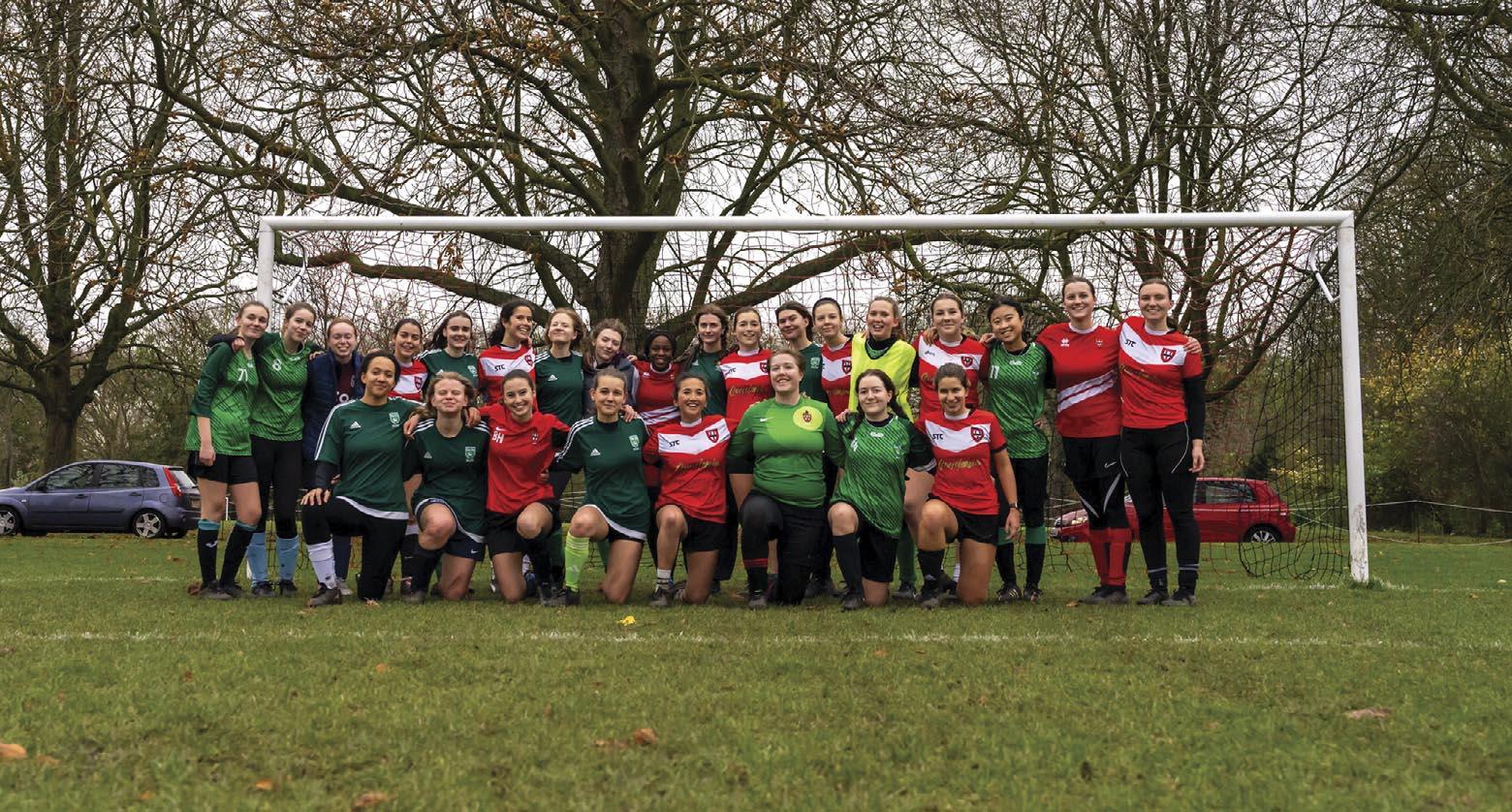
quickly gelled and got off to a great start in the league, settling into a comfortable winning streak. The annual Jesus vs Jesus Varsity matches saw one of our most convincing victories of the season, with Jesus Cambridge coming away with a huge 15-0 score.
Our Cuppers’ campaign started off just as strong, topping the league in group stages and pushing through to the semi-finals. Unfortunately, in one of our closest games of the season, we were knocked out by a mighty Newnham/Pembroke side. Nonetheless, team spirit has remained high as ever going into the end of the season.
We pride ourselves on being a tight-knit and supportive group. Our players flourish in this environment and improve with every match. Multiple people joined who have had little to no experience with football and they have seamlessly become part of our family.
It has been an honour to captain such an amazing team, and we can’t wait to see it continue to prosper next year! Thanks to everyone who has supported us!
Lara Branston and Edith Stewart
Hockey Club
Men’s Team
This season has been another success-filled year for JCHC. With some great additions to the team, Michaelmas Term saw our club achieve promotion to league 1! Despite some scuffles in a certain match leading to the ingenious use of a helmet-mounted GoPro by Quyll, we made it through the term undefeated. JCHC achieved yet another crushing victory against Jesus College Oxford in our annual Varsity Match, winning 5-0. However, we must commend the commitment of their goalkeeper, making a dramatic last-minute header to save the scoreline worsening further.
Moving into Lent, our campaign in the top league started off with a rare defeat against John’s 1s; from there we found our feet and went on to achieve a 16-1-3 win-draw-loss record for our league season. Highlights included the invention of an ‘Anders special’ – setting up a short corner routine in open play and finishing with a flick perfectly over the bar; and Jake Hawkes showing his JCHC heritage and what he thinks of John’s, wandering off to Granchester for a match at John’s pitches in town. We finished our league season in style – thrashing the team responsible for our Michaelmas spat, even after enjoying Jesus themed red (cherry) and black (blackberry) liqueur shots at half time.
Thankfully, John’s bragging rights did not last long: under the lights in a Saturday night match, we once again showed them what the best college hockey team looks like, winning 2-0 (not to mention John’s bottling their Cuppers campaign again –not sure what the trophies are for in their bar).
Our Cuppers campaign demonstrated how well JCHC gelled as a team this year –our weekly training sessions set up victories against Gonville and Caius in the round of 16, and a 2-1 triumph over the blues packed Robinson-Lucy Cavendish-Peterhouse-Corpus Christi team in the quarters. These training sessions on
more than one occasion lasted from 4pm-9pm, with our rock of a keeper and team asset Zack Fecher persisting with my inconsistent (but improving...) shots and shuffles into the dusk.
I could not refrain from mentioning an absolute wonder goal from Owen Dyson in the latter match, slotting in a casual reverse shot into the bottom (keeper’s) right corner to pull the game back to 1-1. Despite Wakefield’s finest Rob Tingle dancing the ball out from defence as always, our campaign eventually ended with a defeat against the strong King’s-Sidney-Homerton side in the semi-final, who went on to win the tournament this year.
I will end with a massive thank you to the old and new sponsors supporting JCHC this season and will mention a couple of main perks. Jack’s Gelato provided free weekly scoops to keep morale strong, while our new partnership with Hidden Rooms provided free weekly cocktails – removing our sobriety yet adding again to our team chemistry.
Signing off from a great two years as JCHC captain, I’m proud of how far our team has come, and how much the club has grown. JCHC is in more than safe hands for next season (if we forget about the wet end to our punting trip for Hawkes...), and we’ll soon have the Cuppers trophy back where it belongs. The commitment of our team this year has been immense, from just showing up to spraying our hair in College colours – two individuals involved in the latter (and I) will be graduating this year. Tory Conolly after four years at Jesus College, and Navin Vithana after his Master’s. With Northern grit, Tory can outskill any player in our hockey leagues, and Nav is the definition of liquid hockey.
Rob’s handmade JCHC (and JCHCHVCHCC) bracelets underline what it means to play for Jesus Hockey, and again I cannot express my pride enough for this incredible team – expect big things for 2025/26.
Jacob Harmison
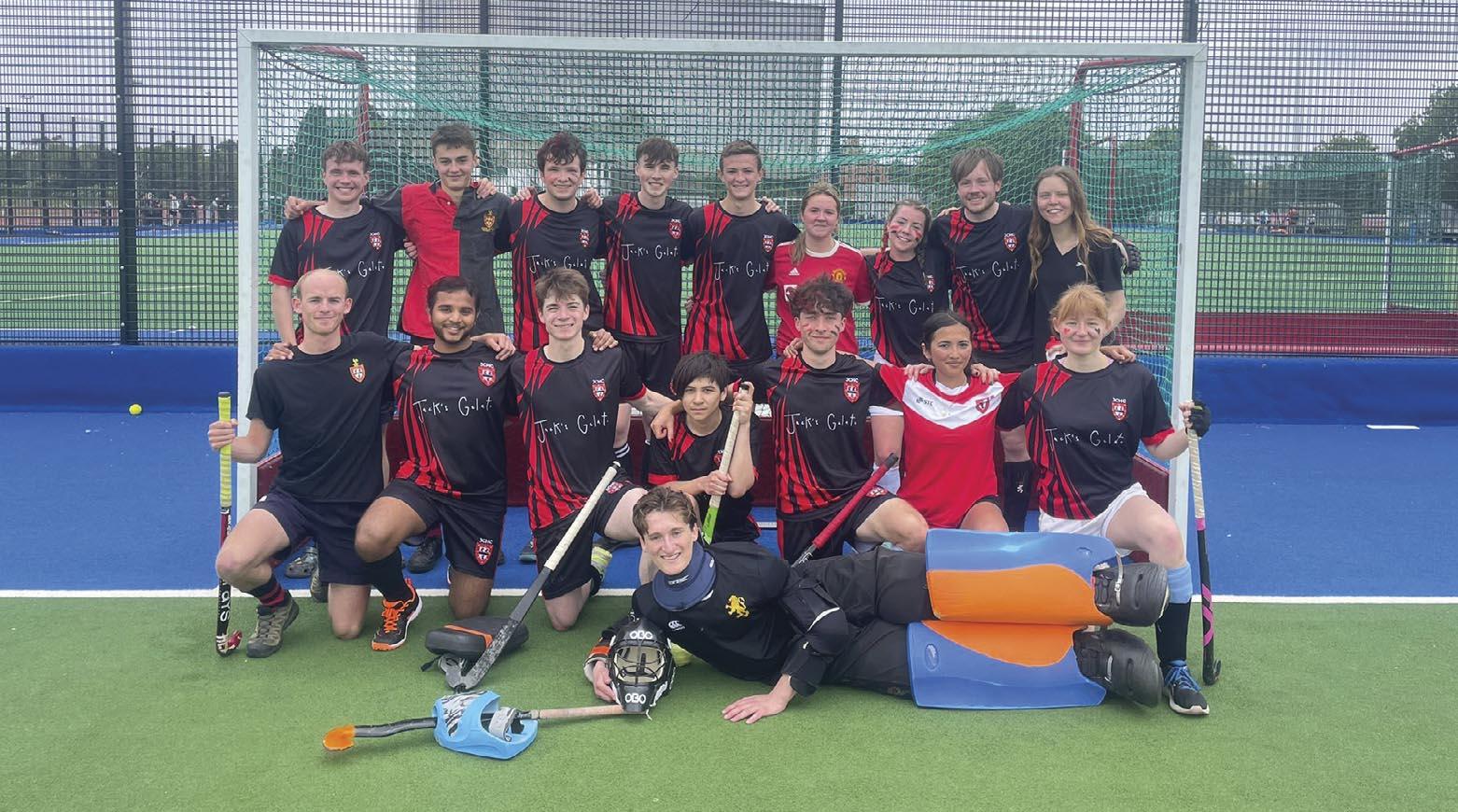
Cuppers semi-final vs King’s-Sidney-Homerton
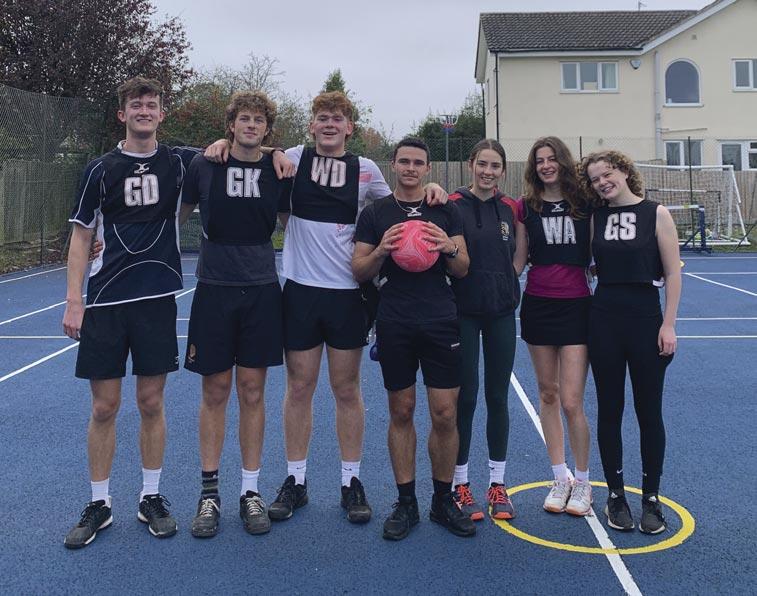
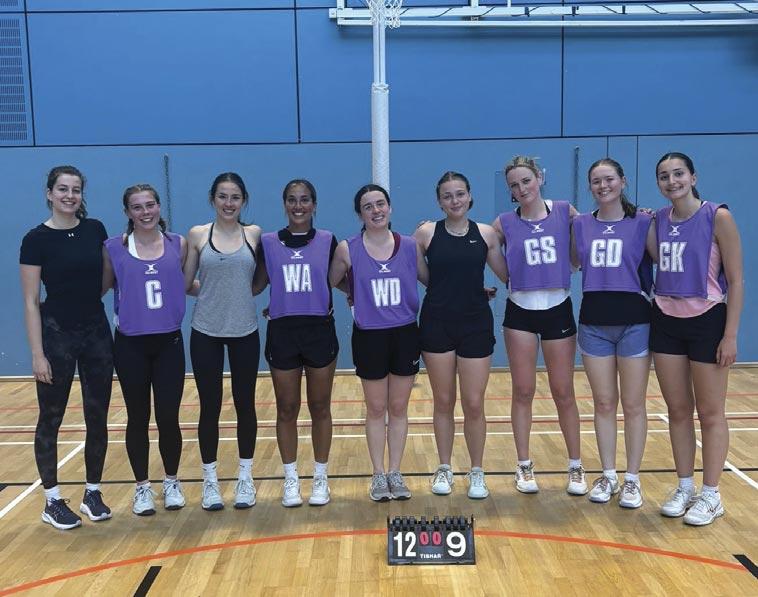
Netball Club
The 2024/25 season for Jesus College Netball Club has been one of much success and enjoyment. We have run three squads (one ladies and two mixed) under the leadership of captains Lydia Khan (ladies), Emma Pannett (mixed) and Henry Halford (mixed). All three teams competed strongly in the Michaelmas and Lent Term leagues, as well as in Cuppers. Every week, over 20 College members competed across our squads, ranging from first years to fourth years.
In the league, the ladies team faced strong competition in Division 1, playing an extremely high standard of netball. Alongside this, mixed 1s and 2s contended impressively in divisions 1 and 2 respectively, both retaining their positions in these leagues for the upcoming season.
A special highlight of this season has been the performances of all three teams in Cuppers. This year saw the first time in many seasons that both mixed teams qualified for the finals day, played in May. Despite not winning overall, many other colleges have commented on the impressive depth our club has to achieve two positions in the finals day. Additionally, the ladies team had great success. After qualifying for the finals day, the team brought their all to the court to achieve a Jesus College win!
Notably, our 12-9 win against St John’s in the final was an incredible match which displayed a brilliant team performance.
Eva Patrick, Rachel Goodrich Jones, Gabe Lamb and Charlotte Yarrow have been appointed as captains for the upcoming season, and we are excited for them to lead such a talented and enthusiastic squad of netballers.
Emma Pannett
Rugby Club
We were keen to carry forward the momentum from the previous year, off the back of the first ever Cuppers victory, despite a strong proportion of the team having now graduated. Unfortunately, even a strong recruitment drive during Michaelmas led to only two brave freshmen joining the ranks. Nonetheless, Brendan Burgess and Max Pitkin were two fantastic additions to the team, with Brendan’s unbelievable strength and speed combined with Max’s quick thinking proving too much for many defences during the Michaelmas league. With Magdalene joining the mighty
Quesus side, we put out consistently strong performances for the entire term, winning all but one match to finish second overall in the league, securing us a place in the second round of Cuppers. We built up a strong rapport and social connection with the lads from both Queens and Magdalene which we hope to carry into next year.
We sadly had to part ways during the Lent and Easter Terms, as we pursued our solo Cuppers campaign. The second round was against Robinson, and despite our squad being weakened by numerous injuries or unavailability we put in a dominant, albeit scrappy, performance for a 32-12 victory, with Tim Andrew pulling out his trademark try running the length of the pitch. Mention must be made of Yuu Kunisada and Levi Arvai, who stepped up to join the squad having played very little, both putting in strong performances.
The semi-final of Cuppers was against Johns. Unfortunately, the injury crisis within the squad had worsened, with six players out due to injury. Not only this, but we were also still missing two of our Blues men – with Ryan Santos deciding playing USA sevens was more important, and Dave Holroyd having a very important date to go to. The lads turned up and played with passion, but we suffered a 49-19 loss, despite newcomer Stephen Fajemilusi putting in a monster tackle in his first five minutes of rugby. Still with a chance to win silverware, we rallied for the plate final against Pirton/Churchill. Further injuries and looming exams meant we could only field a team of 14 men in a now Blueless squad against the 22 of Pirton. But 14 heroes walked onto the pitch, with all the newcomers stepping up massively, putting out a dominant performance winning 38-17. Incoming captain Conor Collins consistently won tackle of the week, demonstrating his commitment to this team, which hopefully translates to regaining the Cuppers title next year.

Photo by Dik Ng
At the University level, the team had four Blues this year: Tim Andrew, Dave Holroyd, Charles Kantolinna and Ryan Santos. We had a strong LX’S representation, with Samuel Brookes captaining the side, alongside David Butlin and Charlie Forgacz-Cooper. Owen Branthwaite again represented the 3rd XV. Tom Reid
Tennis Club
Firstly, we thank Max Silin (Tennis Captain 2023-24) for his solid efforts last year, providing a stable foundation for the Tennis Club to flourish this year. The Tennis Club has much to celebrate this year!
The year started with recruitment through the undergrad Sport Tasters and the postgraduate Tennis Social. We were the lucky first group allowed to test out all three newly resurfaced hard courts, with activities for beginners, intermediate and advanced players during these events. After Freshers Fair, we had a jaw-dropping 80 new sign-ups!
Following Team trials, our 1st team entered the Michaelmas Colleges League and our outstanding level of tennis promptly led to promotion from Division 5 to Division 3. Continued stellar performance saw us promoted to Division 2 after Lent Term. In Easter Cuppers, we advanced from the group stage to quarterfinals, where our ambitions were ultimately thwarted by Downing College, who are now finalists against Pembroke College. We heartily thank our enthusiastic team: Vova Chub (Captain), Matthew Ronayne, Max Silin, David Butlin, Aarnav Walia, Alexandra McGarry, Daiki Abe, Daiki Sugita, Emilio Dorai Raj, Jacob Harmison, José Izcue Gana, Lovisa Jonsson, Owen Branthwaite, Pragvansh Bhatt and Sergio Garcia Busto.
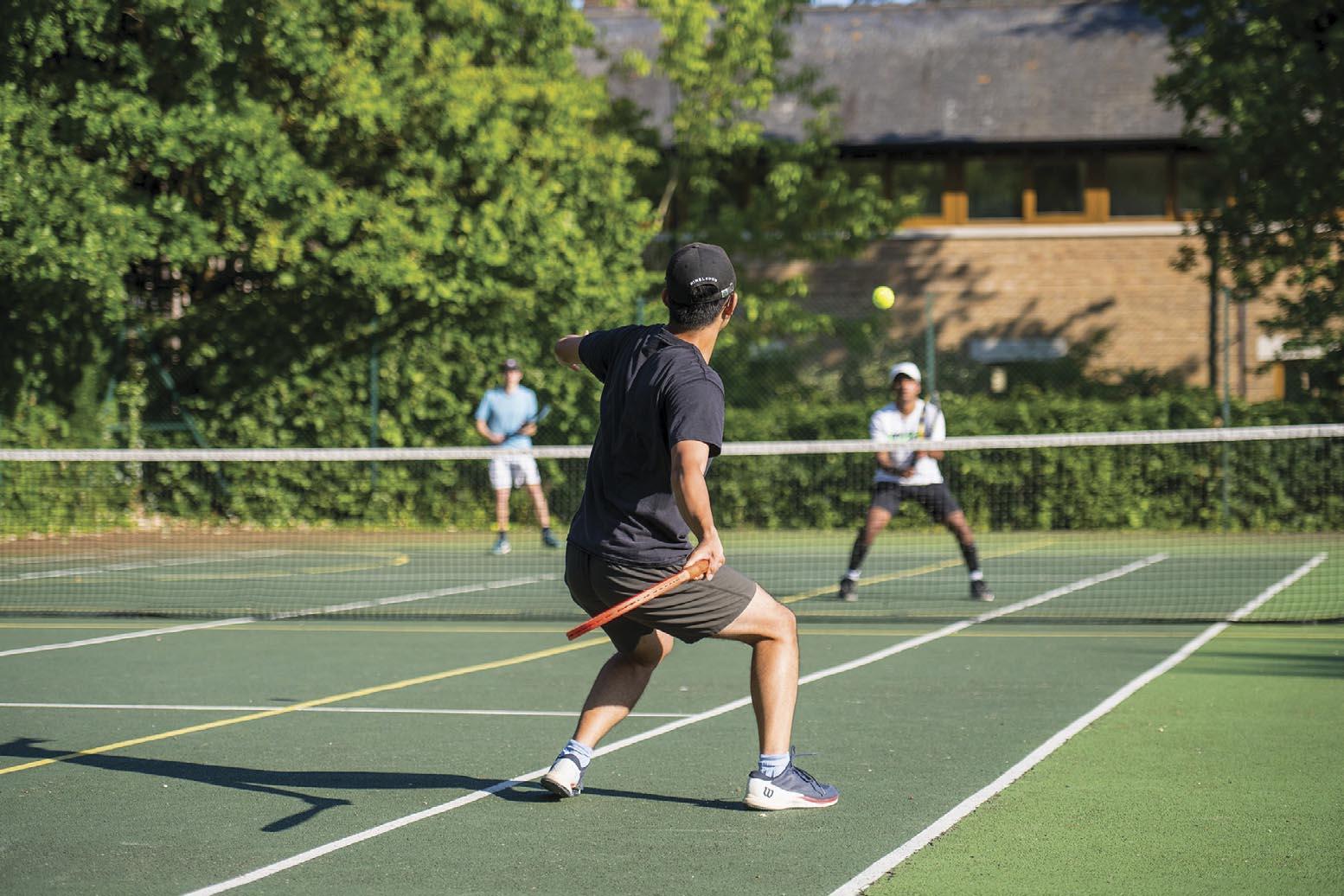
Photo by Dik Ng
Social tennis sessions ran every Sunday during term time from 1.30 pm. The first four weekends involved some beginners coaching; thereafter, all members had access to club equipment and guidance from advanced players. This campaign has seen the emergence of some absolute beginners becoming dedicated novices who came out weekly. College staff were also encouraged to join, with some positive responses. To celebrate the commitment of our social players, we held a Christmas Tennis Social, End of Lent Term Social and a Wimbledon-themed Easter Term Social (complete with strawberries and cream!)
We are immensely proud of our own Matthew Ronayne, who became the President of Cambridge University Lawn Tennis Club (CULTC) this year. In the interest of sustainability, we worked together to set up a recycling scheme for tennis balls at Fenner’s where anyone can now surrender dead balls. Additionally, to effectively market social tennis among Jesuans, Muzammal Mushtaq (Social Co-captain) set up our Instagram account.
Looking ahead, we’re exploring the introduction of coaching and continuing to work with the Domestic Bursar to raise the profile of tennis. After a phenomenal year, we’re excited to push for promotion to Division 1 – and perhaps even lift the Cuppers trophy next year!
Nicholas Sammy and Vova Chub
Ultimate Frisbee Club
This year has been an exciting and enjoyable one for Jesus Ultimate Frisbee. We began the academic year on a high, welcoming several enthusiastic new players from King’s College. Their energy and talent helped us get off to a flying start during a very promising Michaelmas season. Weekly training sessions were well-attended, and we built a strong team spirit that translated into excellent league performances and a growing presence in College Ultimate.
Unfortunately, our momentum hit a bump during Indoor Frisbee Cuppers. The transition to the indoor format proved more challenging than expected and, despite our best efforts, we finished second to last. While disappointing, the tournament offered valuable lessons and highlighted the areas we need to develop for next season. Lent Term saw a slight lull in activity, but highlights included victories against both St John’s and Trinity. These wins were a testament to the squad’s resilience and ability to bounce back from setbacks.
As the Easter Term arrived and academic pressures mounted, the removal of football goalposts turned the Jesus College pitch into an ideal space for relaxed, open-air frisbee sessions. These evening games provided a much-needed break from revision and reinforced the social heart of the club.
As exams came to an end, Summer Cuppers flew round the corner. After a season of steady growth and strong league performances, we were optimistic about converting our hard work into success on the big stage. However, with many University players rejoining their College teams, the competition at the tournament was extremely
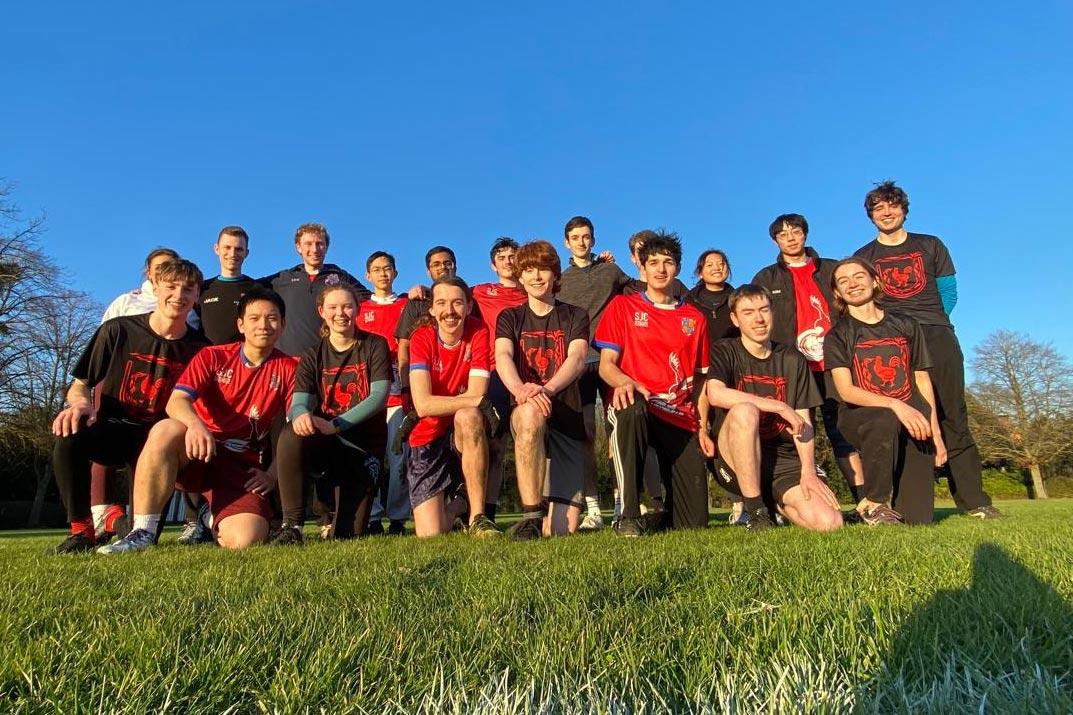
challenging and we won few matches. Nevertheless, the team should be very proud of the determination and endurance they showed!
With the academic year at a close, spirits are high, and we are excited about what the next year of frisbee will look like. For the first time we will have captains from both Jesus and King’s and so are hoping to attract many more frisbee fanatics!
Daniel Kennett-Brown n
Members’ News
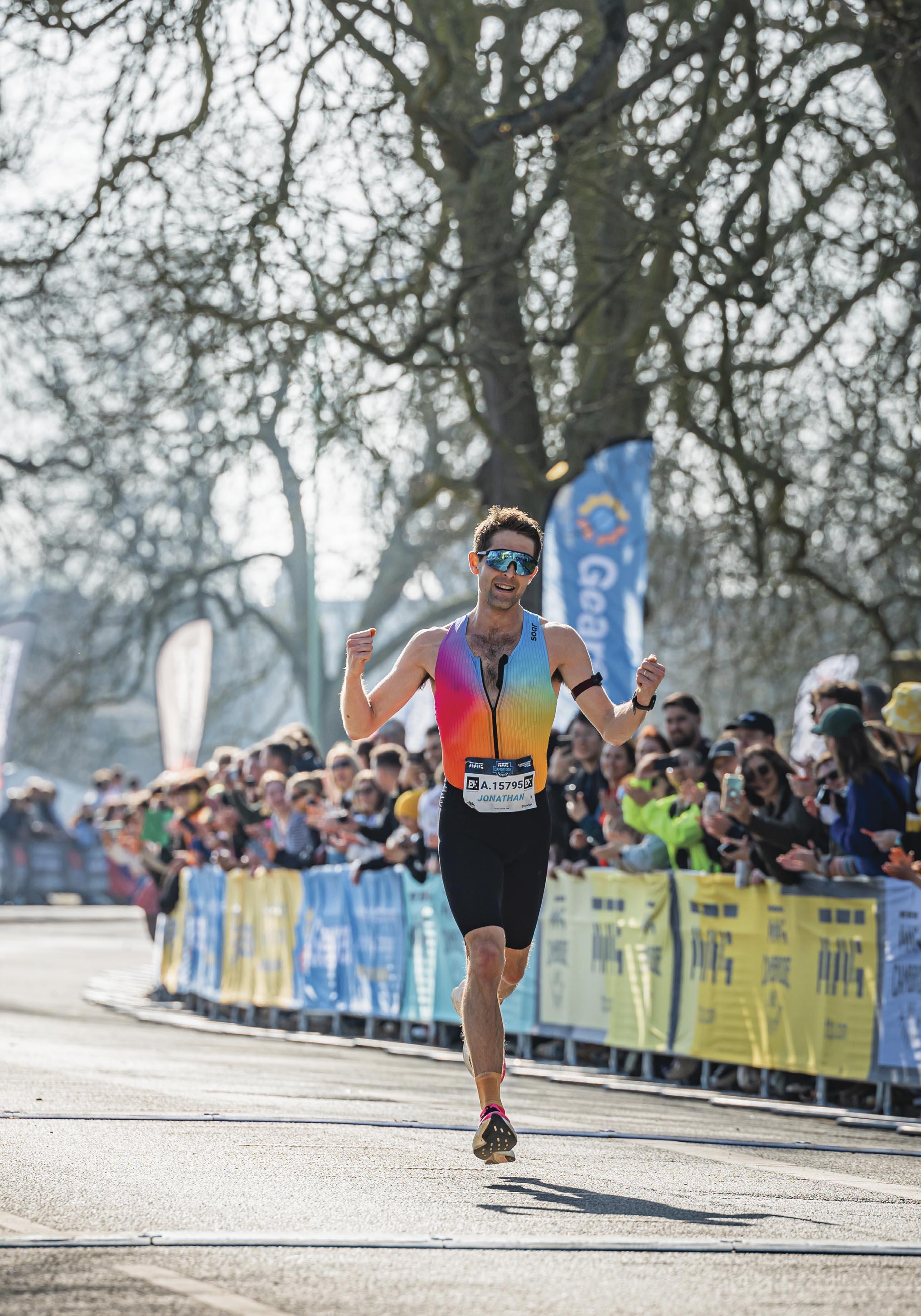
Photo courtesy of Clark Creative
Members’ News
People
Y K AFRIDI (1989) was appointed the Chief Justice of Pakistan. The post follows an illustrious career in academia and in legal practice: after taking his LLM at Jesus, Afridi has served on the Supreme Court of Pakistan, as Chief Justice of the Peshawar High Court and as a lecturer at Khyber Law College.
T M BARRY (1983) was awarded an OBE for parliamentary and public services in the New Year Honours List 2025. He is currently Deputy Director of Security at the House of Commons.
During the 2024 Alumni Festival, H BEVAN OBE (2011), D R H BOARD (1975) and N CHATRATH (1993) presented a panel discussion on the future of AI. Topics and questions ranged from cautious optimism in the ‘synthecene’, what young children ought to be taught about AI and the necessity for keeping alive the creative and cognitive ‘superpower’ that makes us human.
A G BRADBURY (2005) spent 18 months with her partner living in rainforests in Africa and South America with their three young children, studying how traditional child-rearing practises can set children up for better long-term health.
E C CURRY (2019) joined NIRAS as an Ornithologist where she works to research, mitigate and compensate for the effects of offshore wind farms on seabirds. She also founded E. C. Entomological Consulting where she works as a CIEEM-accredited freelance Entomological Consultant.
T A DARNTON (1986) has published a new picture book with Simon & Schuster, illustrated by Yasmeen Ismail, called My Sister is a Treasure. Taking terms of endearment literally, it's a humorous look at what happens when a new baby joins the family.
D DIAS (2010) was appointed a High Court Judge. He was assigned to the King’s Bench Division where he brings over 35 years’ experience as a barrister specialising in human rights, public law and crime. He also brings over ten years of judicial experience sitting as a criminal Recorder and three years’ experience as a Deputy High Court Judge.
N E DIMMOCK (1998) has concluded his two-and-a-half year assignment in Tokyo and returned with his wife, R J DIMMOCK (née Whitaker, 2002), and family to the UK. During this time, Nathan was proud to be recognised as a Distinguished Engineer at Morgan Stanley, joining a small group of technologists within the company recognised for their exceptional expertise and ability to solve complex technical challenges.
J ESCALANTE-PHILLIPS (2016), pictured left, won the 2025 Cambridge Half Marathon with a time of 01:06:12.
C J T FARRINGTON (2009), author of the acclaimed Olga Pushkin Mystery series, has published a new novel, The Maiden Faust. A retelling of the Faust legend set in an alternative, alchemy-infused vision of Cambridge in the 1840s, the book has been described by Louis de Bernières as ‘atmospheric, strange and addictive’.
T-L FLOHRER (2022), I C CASTELLA MCDONALD (2019) and I PARSLEY (2019) were awarded the prestigious Yenching Academy Scholarship. With an acceptance rate below 3%, they were selected from thousands of global applicants to join the 10th cohort, making them three of only 103 Scholars to receive this honour.
A Y L FORD (2020) has been awarded a PhD at Jesus for her thesis, Analysing the role of Protein Disulphide Isomerase in Plasmodium and targeting function to block transmission. Amelia is currently working as a postdoctoral researcher at the Walter and Eliza Hall Institute for Biomedical Sciences in Melbourne and would be pleased to hear from other Jesuans in Melbourne.
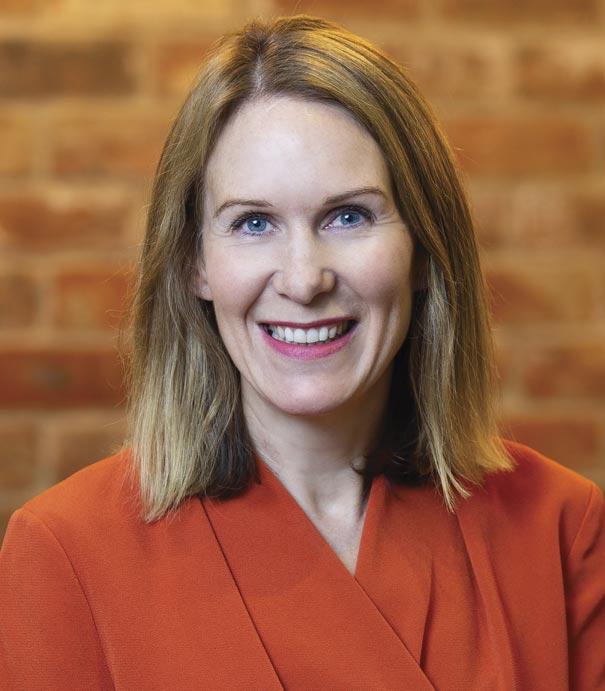

R A HANDCOCK (1998) (pictured left), was awarded an OBE for contributions to Financial Services and Investment in this year’s King’s Birthday Honours List. She also received the 2025 Banking and Finance Businesswoman of the year award. Ruth is CEO of Octopus Money, a money advice brand for everyone. She believes everyone should be able to get help with their money, regardless of how much they earn or are able to invest.
E K HARRISON (1985) is Deputy Director, European Social Survey, City St George’s, University of London.
M P HAYES (1976) (pictured left) was the recipient of our Volunteer of the Year Award for 2025. Established in 2024, the award seeks to recognise an alum whose outstanding efforts in volunteering have made a considerable impact on our College and alumni community. Mark has served on the JCCS Committee as Honorary Dinner Secretary since 2014 and been a key liaison between the alumni community and the College. He is currently the Minister at Thaxted United Reformed Church where he provides religious and pastoral care.
J KARIUKI (1989) was awarded Companion of the Order of St Michael and St George (CMG) for services to British Foreign Policy and National Security in the 2025 King’s Birthday Honours List. James is currently the UK Deputy Permanent Representative to the United Nations in New York.
D J KAUDERS (1964) has published a new book, Reinventing Democracy: Improving British political governance, which examines ideas of electoral reform in the UK while offering a new way forward – and even the draft of a potential new constitution.
E L KAVANAGH (2013) has been appointed Assistant Professor of Historical Musicology at University College Dublin.
T E KING (1993) is now Director of the Milner Centre for Evolution at the University of Bath.
E H N LAU (2021) completed her PhD at Jesus with a thesis entitled Characterising Performative Speech Modes via Analysis by Synthesis. She has since relocated to Scotland to begin a postdoctoral position at the University of Aberdeen, where she will be part of a large research project investigating the prosody of German and English negative questions.
S B LAVIE-DRIVER (2016) was appointed as a Junior Research Fellow at New College, Oxford.
A D J LETCHFORD (1992) (pictured right) was awarded a BEM for services to British foreign policy in the New Year Honours List 2025. Andrew has served in the Foreign, Commonwealth and Development Office (FCDO) and other government departments for over 25 years. After attachment to the Ministry of Defence helping establish the National Cyber Force, he returned to the FCDO in 2020 and was appointed head of profession for engineering where he now leads development of strategy.
A M LUCAS (née Matthews, 1999) was appointed Director of The Georgian Group in April 2025. The Georgian Group was founded in 1937 to protect and promote Georgian buildings. She completed a PhD at the Courtauld Institute in 2016 and has co-authored The Livery Halls of the City of London (2018). She was elected as a Fellow of the Society of Antiquaries in January 2025.
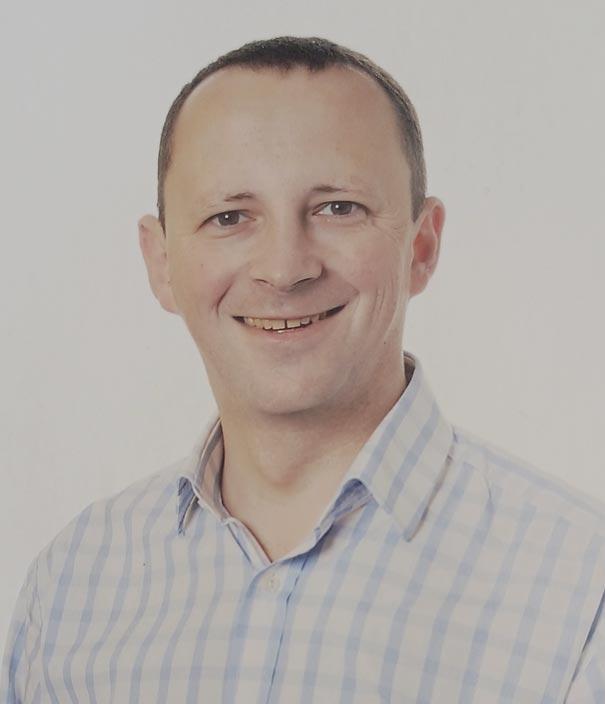
E J Y L MA (2000) is now Special Adviser to the Executive Director of the Croucher Foundation, assisting in strategic planning, implementation and evaluation of special projects to advance scientific and technological discoveries through international collaborations.
S J MAJUMDAR (1989) was elected a Fellow of the American Meteorological Society. Sharan Majumdar is a Professor of Atmospheric Sciences and is renowned for his hurricane research that enhances the AMS mission of benefiting society.
A J B MITCHELL (1975) was appointed a Knight Commander of the Order of St Michael and St George. The knighthood recognises a long and distinguished political career for Sir Andrew.
M C NESBITT (1976) became leader of the Ulster Unionist Party in the Northern Ireland Assembly for the second time in his political career; he has also been serving as Health Minister since May 2024.
W T ONORATO (1965) published the lead article in Edinburgh University’s ‘Journal of Global Energy Law and Sustainability’, volume 5, issue 2 (2024), pp103-132. Entitled Practical Approaches to the Apportionment of the Abundant Petroleum Resources of the Caspian Sea, the article represents Dr Onorato’s definitive statement of 30 years’ research on issues relating to the Caspian Sea.
C OUELLET-PLAMONDON (2008) is a DFG Mercator Fellow on the priority programme SPP 2436 Net Zero Concrete (Deutsche Forschungsgemeinschaft [DFG]) at TU Darmstadt, Germany.
D PREISKEL (1985) and his brother R PREISKEL (1988) co-founded in 2004 the specialist Telecoms, Media and Tech law firm Preiskel & Co LLP and this year Danny Preiskel won the European Telecoms, Media & Entertainment Lawyer Lexology Award. Preiskel & Co, based in the Inner Temple London, is currently offering two-week Internships/Vacation Schemes – please feel free to email recruitment@preiskel.com should you be interested.
L W G PUGH (1999) swam 60 miles as part of The Shark Swim in May 2025 around Martha’s Vineyard, Cape Cod, where scenes of the movie Jaws were filmed. Launched in the US, the Shark Swim organises events around the globe to encourage people to make peace with nature.
N H SAXTON (1988) was appointed King’s Counsel in January 2024.
M A SEELEY (1972) retired after ten years serving as the Bishop of St Edmundsbury and Ipswich.
S H SHAHEEN (2004) published his debut novel, Freebourne, with Roundfire Books. Booker-shortlisted author Trezza Azzopardi described it as: “A thinking reader’s thriller with such a shocking twist at the end that I was genuinely unprepared for it”. This year, he also founded a new global public relations firm, Carter Fleet.
S T SHERBORNE (1981), an artist blacksmith, was the winner of the prestigious South Yorkshire wide open art competition, The Cooper Prize, in 2023. In 2024, he held a solo sculpture show, Softening the blow: stories told with fire and steel, at the Cooper Gallery in Barnsley.
D M SICOTTE (2023), following her MPhil degree, worked for the Jesus College Development and Alumni Relations Office as a Database and Gift Administrator. She has now moved to New York City with her partner, A E MOORHOUSE (2023), who will be working on his PhD at Columbia University.
T J H SKEET (1978) became the Master of the Worshipful Company of International Bankers. One of the City Livery Companies, International Bankers contributes to charitable causes and connects people across the City.
D A SWINGLEHURST (1987) delivered her inaugural lecture – ‘On being a professional stranger: people, paradox and valuing the particular’ – as Professor of Primary Care at Queen Mary University of London in September 2024.
J P TANBURN (1974) was awarded an OBE for services to international development in the New Year Honours List 2025. His leadership in developing the DCED Standard for Results Measurement and authoring guiding principles for donors on stimulating service markets, known as the Blue Book, has been instrumental in shaping the field. Jim’s extensive career includes his tenure at the International Labour Organization (ILO) in Geneva, where he organised annual conferences on systemic approaches in private sector development.
D VAN TULLEKEN (2017) has contributed to a report which argues that unhealthy food habits cost the economy and the NHS £268 billion a year.
R W TURNEY (2001) was appointed King’s Counsel in January 2024. Richard specialises in planning, environmental and public law at Landmark Chambers.
L M VICKERS (2016) is approaching her second year as a Research Assistant at the University of Cambridge’s Centre for Geopolitics. Her research is centred on women’s representation and governance, as well as the Women, Peace and Security Agenda. Through the Centre’s Global Geopolitics Research Strand, Lisa organises high-level roundtables, workshops and public events on these subjects and beyond. She is open to collaborations and partnerships through this work.
H M A WEAVERS (2007) has been awarded the prestigious Women in Cell Biology Early Career Medal. Dr Weavers is Associate Professor in Cell and Developmental Biology at the University of Bristol.
J R WILSON (1983) was awarded an MBE for services to indoor climbing and community sport in the 2025 King’s Birthday Honours List. Jeremy is the founder and CEO of The Lakeland Climbing Centre (LCC) Ltd, and a Director of UKClimbing Ltd.
E C WOOLLCOTT (1998) hosted the annual Glanville Williams Society Reception in February 2025 at Mischon de Reya’s London office.
C F WRIGHT (1997) was elected to the 2025 Fellowship of the Academy of Medical Sciences Fellows in recognition of her remarkable contributions to advancing medical science, groundbreaking research discoveries and translating developments into benefits for patients and the wider public.
L WU (2011) hosted a networking event for the finance and investment industry in November 2024, in London, with more than 50 alumni and current students in attendance. Making up the panel discussion were H L D’ARJUZON (1996),
T A FRANKLIN (1990), D Y LIANG (2016) and J M H MURPHY (1991).
R A STOCKS (1993) co-chaired the event.
Births
Christie (née BELOTTI) and Tim CROWTER (both 2012) have a daughter, Lara.
Anush NEWMAN (2001) and his wife Mary-Kate have a daughter, Mila, a sister to Luke and Elysia.
Salman SHAHEEN (2004) and his wife Anna have a son, Edwin, a brother to Alexander.
Laura SIMSENSOHN (née GOULDING, 2004) and her husband Albert have a son, Edward.
Marriages and Civil Partnerships
Hannah Charlotte COPLEY (2019) married Richard Heatley on 31 August 2024 in the Chapel at Jesus College.
Mark DILLON (1981) married Kamala Newton on 13 July 2024 in a civil ceremony in the Plater Hall, Nottingham High School, followed by a blessing at All Saint’s Church, Nottingham.
Tallulah EYRES (2020) married Isaak Samuel Sutton on 10 May 2025 at Manchester Cathedral.
Jonathan HAROUNOFF (2013) married Stephanie POSNER (2012) on 25 August 2024 at Jesus College, Cambridge.
Tamanna JITHESH (2019) married Nojus Kasakaitis on 28 August 2024 in Rochford, Southend-on-Sea.
Bo-Shiun LAI (2013) married Yu-Jane Wu on 16 March 2024 at the Mandarin Oriental Hotel in Taipei, Taiwan.
Jonathan MCALLISTER (2018) married Elif Yumru on 7 April 2025 at Trinity Hall, Cambridge. Joshua CLAYTON (2019) was best man.
Isabelle RYAN (2020) married Yuma KITAHARA (2017) on 14 June 2025 at Gambledown Farm, Romsey.
Alex SILVER (2009) married Camilla Motteram on 17 August 2024 at Christ’s College, Cambridge.
Maisy SMYTH (2013) married Matthew Winney on 5 July 2025 at Welford Park, Berkshire.
Thomas STUCHFIELD (2012) married Georgia Crellin on 12 July 2025 in the Chapel at Jesus College.
May Yung TIET (2020) married Ben Simpson on 5 July 2024 in Market Harborough.
Sophie TOBIN (2015) married Matthew Wales on 21 December 2024 in the Chapel at Jesus College.
Lisa VICKERS (2016) married Christopher JONES (2015) on 9 November 2024 at Middletown, Connecticut, USA.
James WOODHOUSE (2016) married Katharine Mills on 14 September 2024 at All Saints Church, Hampreston, Dorset.
Rachel ZINK (2018) married Zachary Chapman on 6 September at Graham Chapel in St Louis, Missouri, USA. n
We always appreciate learning about the lives and achievements of our alumni community. If you have any news that you would like us to share in next year’s Annual Report – whether births, marriages, appointments, publications or anything else of note – please do contact us at development@jesus.cam.ac.uk n
Obituaries
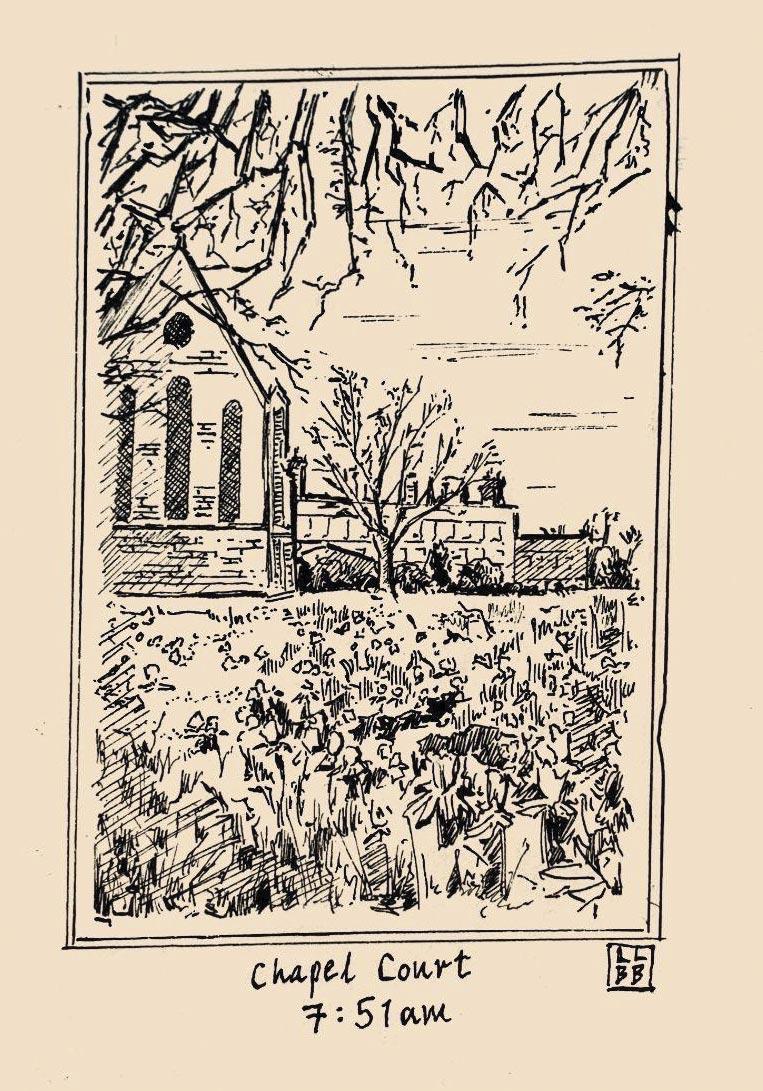
by Lyra Browning
Studies
Obituaries
Honorary Fellows
Professor Lord Andrew Colin Renfrew was born on 25 July 1937 and died on 24 November 2024. He served as the Master of Jesus College from 1986 to 1997. With his passing, we have lost an extraordinary person with wide-ranging knowledge, experiences, and insights.
“When an old man dies, a library burns to the ground” (African proverb)
Colin was special, and he has left deep marks and memories behind. He had a form of ‘presence’, academically as well as personally, that was palpable and distinct, and there is now an absence and a shift, as he is not here anymore. Something has gone. At the centre of this mourning is Lady Renfrew (his wife and fellow archaeologist), and their children and grandchildren, but his friends and colleagues also feel his departure from our circles.
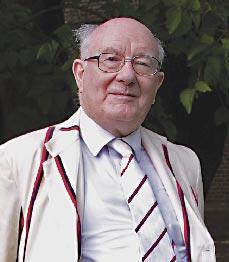
Colin lived a very full life; he created and was given extraordinary opportunities relating to important excavations, travels and excursions. He interacted with people from a wide spectrum of society, gaining positions that allowed him to enact real changes, and his abilities and achievements were widely recognised through honorary positions, awards and prizes. The latter range from his Life Peerage (1991) to the 2019 Field Discovery Award by the Shanghai Archaeology Forum of the Chinese Academy of Social Sciences. His engagement with the world was unusually wide and covered academia, the arts and politics, with his particular personal touch and quests affecting all these engagements. He was several times listed amongst the hundred most important public intellectuals in Britain.
Over the years, accounts of Colin’s academic contributions have appeared in archaeological historiographies, as well as in the volume on the history of Jesus College.1 Many obituaries have been written for him. The following will, therefore, provide just a brief outline of Colin’s many achievements and rather focus on the sides of him which we saw, when he was Master of the College – sides which many Fellows, staff and alumni still remember.
Colin was arguably the most renowned and influential archaeologist in the world during the last 50 years or so: a remarkable achievement. Apart from his many academic works, the textbook Archaeology: Theories, Methods and Practice, first published in 1991 with Paul Bahn as co-editor, became a must-have volume. It saw its ninth edition in 2024 with Elizabeth DeMarrais as an additional editor. This is the only worldwide archaeology textbook and almost any archaeology student would be familiar with it.
Colin studied archaeology in Cambridge (graduating in 1965 with a dissertation on ‘Neolithic and Bronze Age cultures of the Cyclades and their external relations’). He was appointed lecturer at the University of Sheffield that same year, and in 1972, he became Professor of Archaeology at the University of Southampton. Returning to Cambridge as the Disney Professor in Archaeology in 1981, he was instrumental in establishing the McDonald Institute for Archaeological Research (in 1990), and he was its first director.
Throughout that time, he produced important work, including one of the earliest solid arguments for the use of radiocarbon dating and establishing criteria for the identification of civilisation (criteria that are still discussed today); he also provided new arguments about the links between archaeological data and the Indo-European languages and he developed novel ideas about the mind, captured through the sub-discipline of cognitive archaeology. He was also deeply involved in arguments against the looting of archaeological sites and the illegal antiquities trade – a concern he took with him to the House of Lords.
Colin was also a field person. He did substantial work in Britain, especially in Orkney, where he excavated at Quanterness, but his interest in Aegean prehistory had remained from his student days, and over the years he returned for several excavations, culminating with his work on the island of Keros. He had first visited Keros as a young man and had been intrigued by the large amount of broken and fragmented figurines scattered over the island. He conducted many seasons of fieldwork there, with the last taking place in 2018, several years after his retirement. To his great satisfaction, the last volume on the excavation was published in 2024, meaning he had fulfilled his aims and not left the insights gained unpublished.
The hallmark of all his work is an analytically very precise mind, wide-ranging knowledge and articulated goals beyond the presentation of data. There were always strong intellectual reasons behind Colin’s work, which was characterised by a thirst for insight, for understanding the human condition (the ‘why’ question was always prominent). Colin explored available tools and influences freely. He was attuned to how science could be used to add new kinds of data and answer questions. He was, for example, one of the early advocates for the use of genetic data for archaeological studies. He was similarly open to the arts, and the different ways of seeing and writing that we encounter through paintings, sculptural installations, and poetry; he brought this perspective to the fore in his 2006 volume Figuring It Out: What Are We? Where Do We Come From?.
As an academic, Colin could be daunting, serious in his expectations about quality and properly thought-through ideas and arguments. His questions after presentations – taking the classic form of ‘That was very interesting, but I wonder whether …’ – were anticipated with excitement (and perhaps, sometimes with anxiety for the presenter) as his comments often pushed for deeper reflection or recommended seeing the issues from other angles. He was, however, also lively; he was one of the first on the dance floor at the annual archaeology conferences and he had a huge appreciation for wit.
The gregarious side of Colin and his wide-ranging interests found several outlets in Jesus College. The guestbook from the Master’s Lodge2 is a testament to some of this. The Lodge was a lively social hub during his and Jane’s time, a home for the family but also a place for entertaining College guests.
The guestbooks suggest that some kind of event took place weekly, at times even more often. Apart from events with Fellows and College Officers, the Lodge entertained guests at various Feasts as well as the Commemoration of Benefactors dinners and a wide range of other groups and individuals. There are entries for the Fairbairn Cup annual breakfasts (Jane shared with me fond memories of the enormous amount of food being eaten before the race), Teas for the choir boys, and visits from royalties, artists and various government bodies and individuals. These included visits from H.M. Queen Margrethe of Denmark, the 70th Birthday Party for Sir Eduardo Paolozzi, dinners for the Secretary of State for the
Environment (Michael Howard), for the Secretary of State for Education (Kenneth Clarke), for the Chancellor of the Exchequer and for the National Curriculum Art Working Group. There were dinners with Greek colleagues and dinners to celebrate events in both the Department of Archaeology and the McDonald Institute for Archaeological Research.
The students, collectively as well as individually, were also very important to Colin. At the Department of Archaeology, he would use the photo galleries produced at the beginning of the Michaelmas Term to memorise faces and names line by line. The College community was too large for the same strategy, but many students discovered to their surprise that he knew them by name! He and Jane often attended the College Bar in the late evening to be visible and available if the students wanted to chat. He was also very supportive of the various societies and clubs. It comes as no surprise that the Arts and Music Societies were thriving during his tenure and that he and Jane attended many events and talks, but Colin was also a tireless supporter of College sports, from cheering from the edge of the football pitch to cycling along the towpath by the Cam to support the Jesus boat. This enthusiasm was deeply appreciated by the students, and when Colin retired as Master, the Boat Club gifted him and Jane an inscribed blade in the College colours. He believed in the notion of the fully rounded person and saw sports and poetry as equally important for our students. As an illustration, when the Department of Archaeology took our undergraduate students on a field trip to Orkney, it seemed natural to Colin to read poetry to the students as we visited the megalithic structures – despite the light rain and approaching dark clouds. To him, the connections between these different elements were obvious and enriching, and he created unforgettable moments of dense atmospheric engagement with past materialities.
The arts also flourished in the College. Through Colin’s wide connections, we were privileged to hear talks from such exceptional artists as Mark Dion, Jeanne-Claude and Christo, Antony Gormley, Richard Long, Cornelia Parker and many more, and the Sculpture in the Close biannual exhibitions became an important, visually and intellectually challenging part of the College calendar (and for the national arts scene). The juxtaposition between the takes on the world by contemporary artists and the old fabric of the College was widely recognised as providing an extra dimension to these exhibitions.
Another example of how Colin often added a special personal touch to events was during the opera singer Jessye Norman’s stay in 1989 upon being made an Honorary Fellow of the College (and receiving an Honorary Doctorate in Music from the University of Cambridge). In the evening, Jessye Norman gave a most wonderful performance in the Chapel and for the next morning, Colin and Jane had arranged for the College mixed choir to sing madrigals outside her bedroom. Jane recollects how Jessye Norman was delighted as she sat on the stairs in her dressing gown listening to the students singing.
As not only a very serious and fully engaged thinker, but also a person who enjoyed dancing and singing and who wanted to create special moments for the staff and students in his care, Colin will long be remembered by many.
Marie Louise Stig Sørensen
1 Sørensen, M.L.S. 2007. An Archaeologist. In P. Glazebrook (ed.) Jesus: The Life of a Cambridge College: 154-55. Cambridge: Granta.
2 These will eventually be donated to the College Archives
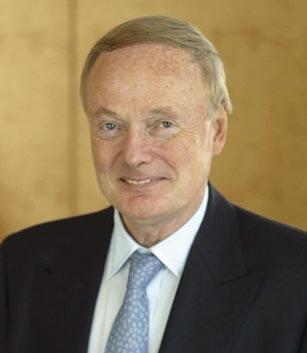
Lord Robin William Renwick of Clifton was born on 13 December 1937 and died on 4 November 2024, aged 86.
He matriculated at Jesus College in 1958, where he completed his undergraduate degree in History with first class honours. In 1963, he joined the Foreign Office to begin one of the longest and most illustrious diplomatic careers in recent British history. He was elected to an Honorary Fellowship at Jesus in 1992.
Among a slew of high-profile appointments, including a term as Ambassador to the United States (1991-1995), Robin played a central role in the negotiations to end apartheid when he was serving as Ambassador to South Africa. Widely admired by many of the most significant world leaders of his age, Robin formed close friendships with the likes of Nelson Mandela, George Bush Sr, Margaret Thatcher – who reportedly considered Robin her ‘favourite diplomat’ – and Bill Clinton.
Born in Clifton, York, Robin moved with his family to London when he was thirteen years old. He won a scholarship to St Paul’s School and later a scholarship to Jesus, but before taking up his place at Cambridge Robin first completed his national service as a motorcycle despatch rider in Malta and Libya. Following his studies at Jesus, he then spent a year at the Sorbonne in Paris, where he met his first wife, Anne-Collette Guidicelli. They were married in 1965 and had a son, John, and a daughter, Marie-France. Robin began his career with positions in Dakar, New Delhi and Paris. In 1978, he became head of the Foreign Office’s Rhodesia Department and was instrumental in the negotiations that followed the Rhodesian Civil War and led to the signing of the Lancaster House Agreement – which helped bring about the end of white minority rule in Rhodesia and establish the independent nation of Zimbabwe during the first year of Margaret Thatcher’s premiership.
It was largely his work in these negotiations – along with a book, Economic Sanctions (1981), whose sceptical position on the efficacy of international sanctions aligned with Thatcher’s own – that prompted the Prime Minister to appoint Robin as Ambassador to South Africa in 1987.
During his tenure, Robin campaigned for the release of prominent anti-apartheid activists, Nelson Mandela among them. Soon after Mandela’s release from prison, in 1990, he and Robin became friends and confidants, regularly meeting and working together on strategies for negotiating the end of apartheid.
It was with a deep understanding of the political power of personality – while embodying a singularly vigorous personality of his own – that Robin was able to make advances in international diplomacy and the overturning of injustice. ‘In July 1990’, as noted in an obituary for The Times, ‘Mandela met Thatcher in Downing Street. Renwick warned her that Mandela had waited 27 years to tell his story, and she should hear him out.
In the event Mandela spoke for 50 uninterrupted minutes. After three hours the journalists outside No 10 began chanting “Free Nelson Mandela!”’
Following his time in South Africa, Robin was appointed in 1991 as Ambassador to the United States, where he became good friends with the sitting President, George H W Bush.
An admirer of Bush, Robin later wrote the book A True Statesman: George H W Bush and the ‘Indispensable Nation’, which gives not only an account of Bush the man but also of the far-reaching implications, thirty years on from the Presidency, of his foreign policy and diplomatic ideals.
In the US, Robin regularly rubbed shoulders with a host of Washington elites, including James Baker, the secretary of state, and Katharine Graham, the publisher of The Washington Post, with whom he regularly played tennis. Through Graham, Robin met Ann Bracken, who would become his second wife. Together they had a son, Alexander.
Once retired from diplomatic service, Robin remained active in politics and business. He would serve as an adviser to Tony Blair on matters of foreign policy, as well as on the boards of various companies, including Robert Fleming & Co, Richemont and J.P. Morgan & Co. In 1997, he was granted a life peerage as Baron Renwick of Clifton. Previous honours had included a Companion of the Order of St Michael and St George (CMG) in 1980, from which he was promoted to Knight Commander in 1989.
Robin’s extensive experience and expertise translated well to the page, and in his later years he published more than half a dozen books, including A Journey with Margaret Thatcher (2013), Helen Suzman: Bright Star in a Dark Chamber (2013), The End of Apartheid: Diary of a Revolution (2015), Fighting with Allies: America and Britain in Peace and War (2016), How to Steal a Country: State Capture and Hopes for the Future in South Africa (2018) and Not Quite a Diplomat: A Memoir (2019).
‘I had a lot of good fortune in my career’, Robin wrote in Not Quite a Diplomat. ‘The most important lesson I learned was that nearly every crisis creates an opportunity – by forcing the participants to think the unthinkable about ways to try to resolve it.’ Despite his memoir’s title, he was considered to be a diplomat of unusual and illustrious quality. The historian Max Hastings, for instance, saw him as representing something of a bygone era, lamenting in 2018 that ‘the calibre of ambassadors has declined steeply from the days of Robin Renwick’.
He was, as the author Kalim Rajab wrote, simply ‘a different kind of diplomat’ –a distinguished statesman not defined merely by accomplishments and accolades but by a more intangible range of political and interpersonal acumen.
Robin leaves behind his wife Ann Bracken and their son Alexander, as well as his daughter Marie-France from his first marriage.
Fellows
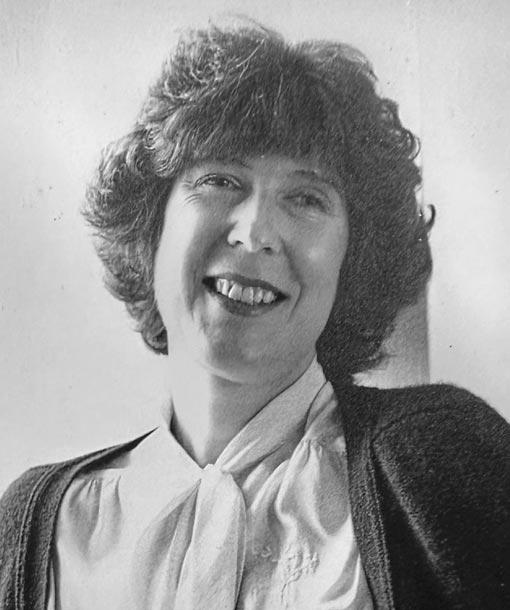
Susan Diana Iversen (née Kibble) was born on 28 February 1940 and died on 29 January 2025.
Born in Aylesbury, Buckinghamshire, Susan was educated at Wycombe High School. After completing a BA in Zoology at Girton College, Cambridge, she went on to obtain a PhD supervised by Larry Weiskrantz in the Department of Experimental Psychology, specialising in the neuropsychology of non-human primates. It was during her undergraduate years that she met Leslie Iversen, the well-known Pharmacologist, whom she married in 1961. After Susan and Leslie completed their PhDs at Cambridge, their academic careers remained interlinked when both were able to secure post-doctoral positions at the same US institutions: first at the National Institutes of Health in Bethesda, Maryland – where Susan worked with Mortimer Mishkin, an accomplished neuropsychologist – and later at Harvard University. Returning to Cambridge in 1966, Susan became a Fellow at Girton College.
She was elected a Fellow of Jesus in 1981 during her tenure as a Reader in the Department of Experimental Psychology. She remained a Fellow until 1993, at which point she left Cambridge for Oxford, where she was elected Professor and Head of the Department of Experimental Psychology, also taking up a Fellowship at Magdalen College.
During her many years at Cambridge, Susan’s research interests included brain neurotransmitters and pharmacological treatments of brain diseases. Along with Ian Creese and Peter Kelly, she found that different aspects of the behavioural effects of amphetamine in rats were mediated by different terminal domains of the midbrain dopamine systems. In a study that has been cited over 2000 times according to Google Scholar, Susan’s research team pioneered the investigation of dopamine-dependent functions of the nucleus accumbens. This work laid foundations for later research related to substance abuse, as well as applications to our understanding of ADHD, schizophrenia and Parkinson’s disease. Susan also carried out groundbreaking work on the behavioural effects of opioids such as morphine when infused into the region of the midbrain dopamine neurons. Later on, she also engaged in fruitful collaboration with colleagues at Lund University in Sweden, including Anders Bjorklund.
In addition to carrying out pioneering research contributions, Susan also trained and inspired many young scientists during her time at Cambridge and is remembered for her warm yet motivational mentorship style. One of them, Trevor Robbins, who first encountered Susan as an undergraduate supervisor, described her as “someone with sheer enthusiasm for the subject, transforming minds and igniting personal ambitions”. Another former PhD student, E. M. Joyce, describes Susan’s kindness and persistent support of her students’ ambitions and careers “which went beyond the acquisition of neuroscientific knowledge”.
In 1983, Susan left her department post in Cambridge to become Director of Behavioural Pharmacology at Merck, Sharpe and Dohme in Harlow, Essex. While at Merck, she was involved in work on cholinergic medications for Alzheimer’s disease, functional characterisation of the non-competitive NMDA receptor antagonist MK-801, as well as work investigating central mechanisms for food satiety.
After a decade at Merck, Susan became a Fellow of Magdalen College, Oxford, as well as Professor and Head of Department. This return to academia enabled her to pursue several research projects related to her original interests of human neuropsychology and cognitive neuroscience, especially related to human clinical disorders. In addition, she co-edited the influential Dopamine Handbook (2009), as well as an Introduction to Neuropsychopharmacology (2009) which expanded on two editions of the earlier textbook Behavioural Pharmacology (1975, 1988). In the final phases of her career, Susan became Pro-Vice Chancellor at Oxford for Research, and was elected to the Academy of Medical Sciences in 1999. She also received a CBE in the 2005 New Year Honours List.
Alongside her accomplishments as a researcher, Susan was an invaluable mentor and inspiration to younger generations of female scientists, many of whom tenuously balance career ambitions with familial pursuits. Dr Amy Arnsten writes that “she was the first woman I met who was both a brilliant scientist and a mother, and it was my firm hope that I would not have to sacrifice family to become a scientist”. As a testament to her multifaceted legacy, Magdalen College opened the Iversen Building, an 88,000 sq ft NIA lab-ready facility, at their Oxford Science Park Site. The first building to be named in honour of a woman at the Science Park, it was officially opened in 2022 by Oxford’s Vice-Chancellor, Irene Tracey, whose own career as a neuroscientist benefited from Susan’s support early on. According to Tracey, Susan “gave an example of how to be a female leader who didn’t compromise on excellence, but who also could be a very loving, warm, compassionate, kind person”.
Susan’s husband Leslie died in 2020. She leaves behind her children, Amy and Ben, as well as seven grandchildren.
George Michael Sheldrick (1960) was born on 17 November 1942 and died on 20 February 2025.
George was elected a Fellow of Jesus in 1966, following the completion of his doctoral degree in Chemistry. He had also been an undergraduate member of the College, coming up in 1960 to read Natural Sciences. While a Fellow at Jesus, George taught in the Faculty of Chemistry, serving as University Demonstrator between 1966 and 1971 and lecturer from 1971 to 1978, at which point he left Cambridge for the University of Göttingen, Germany. He remained there for the rest of his career, initially as Professor of Inorganic Chemistry and subsequently as Professor of Structural Chemistry. In 2011, he was named Niedersachsen (Emeritus) Professor, but even in retirement he continued to work closely with other scientists and institutions, all of whom benefited greatly from his field-defining work in Crystallography.

Born in Huddersfield, George was educated at Huddersfield New College on a State Scholarship, where he took six A Levels – an unusually high number at the time – and left with distinctions in Chemistry, Mathematics and Physics. During his time at school, George developed alongside his passion for science another lifelong interest: chess.
As an undergraduate, George continued to play seriously, even considering a career as a professional chess player before the attractions of chemistry won out.
Awarded a Major Scholarship to study at Jesus, George would achieve a First in Part I of the Natural Sciences Tripos and a First in Part II Chemistry. It was in Cambridge that he met Katherine Elizabeth Herford, whom he married in Jesus on 13 July 1968. The College, meanwhile, has also been home to wider members of George’s family: his younger brother, William Stephen Sheldrick (1963), read Natural Sciences three years after George; he graduated in 1966 and stayed at Cambridge to do a PhD in Inorganic Chemistry which he was awarded in 1970. His youngest brother, John (1967), also read Natural Sciences; his cousin, Andrew Sheldrick (1973), would later come up to read Law.
For his PhD, entitled ‘N.M.R. Studies of Inorganic Hydrides’, George worked under the supervision of Evelyn Ebsworth. When Professor Ebsworth left Cambridge for the University of Edinburgh in 1966, George, only then twenty-five years old, took over the supervision of Ebsworth’s doctoral students. Although a rather daunting and demanding responsibility for such a young academic, his willingness to take these students into his care was only consistent with the extraordinary commitment to academic support and mentoring that he demonstrated throughout his life and career. After this initial baptism of fire, he would go on to supervise more than a hundred PhD theses throughout his time at Cambridge and Göttingen.
His generosity and humility as a teacher and colleague are fondly remembered. In a piece for the journal Foundations and Advances, George’s colleagues Regine Herbst-Irmer and Isabel Usón remarked on his commitment to fairness and intellectual integrity. ‘An unusual trait of George’, they wrote, ‘is that he always pondered what people said, not who said it. Experience shows that humans are more ready to value what their friends, allies and referents state as being correct and search for reasons why their competition must be wrong! This lack of prejudice may explain why George’s research group was always most diverse: he gave everyone fair opportunities.’
‘In lectures, talks or conversations’, they go on to write, ‘George would explain complicated concepts making them come across as compellingly simple. His teaching would always prompt critical thinking, as when he faked a nuclear explosion producing a mushroom cloud in his chemistry lecture with experiments. This was the 80s and half of the audience started an impromptu demonstration against nuclear power before being absorbed in the debate of why this was impossible and the analysis of what experiment had really taken place.’ His dynamic – and yet wholly good-natured – classroom presence was legendary. Writing on his early days at Göttingen, Andrea Sella relates the particular methods by which George would share his work and discuss ideas: ‘In an age before computer visualisation, Sheldrick developed routines that would generate printouts of the electron density. The sheets would be laid on the huge table that sat in the centre of his office, with the peaks and troughs in the electron density built up using balls of clay. It was laborious but very informative. The table would later be used for afternoon coffee where Sheldrick would hold court, setting crystallographic puzzles for his students. If they in turn asked him a tricky question, he would sometimes go into a kind of trance – his students said “George is re-booting” – before coming back with some reference or piece of data which he had retrieved from what they said was his photographic memory.’
While his contributions to the field of Crystallography were prolific and wide-ranging, with more than 800 scientific papers to his name, George was best known for his pioneering in computing methods for data processing and analysis of mineral structures –most notably the SHELX software suite, which George developed in the late 1960s as something of a hobby alongside his teaching role. The programmes work to reveal the atomic structure of minerals by analysing the scattering patterns of X-rays once they have passed through crystals of molecules. The programmes, made free for academic use, are still widely used today by students and experts in the field, and in 2008 George published ‘A short history of SHELX’, an article outlining the evolution of the software. According to Nature, this is so far the fifth-most-cited scientific paper of the twenty-first century, with at least 70,000 individual citations. That year, thanks to George’s paper alone, the impact score of the journal Acta Crystallographica was elevated higher than that of even Nature and Science. All in all, George’s work with SHELX set the tone for contemporary crystallography; the importance of his work, which would fundamentally alter the ordinary routines of laboratories the world over, cannot be overstated.
As one of the most renowned and celebrated chemists of his generation – described by Andrea Sella as ‘the titan of crystal structure determination’, a singular figure who ‘created an ecosystem that has transformed the molecular sciences’ – George received a remarkable number of awards and recognitions during his career, including the Meldola Medal of the Royal Society of Chemistry (1970), the Royal Society of Chemistry Award for Structural Chemistry (1981), the Patterson Prize of the American Crystallographic Association (1993), the Carl-Hermann Medal of the Deutsche Gesellschaft für Kristallographie (1999), the Max Perutz Prize of the European Crystallographic Association (2004), the Gregori Aminoff Prize of the Royal Swedish Academy of Science and the Ewald Prize of the International Union of Crystallography (2011). He was named a Fellow of the Royal Society in 2001; he was also made an Honorary life member of the British Crystallographic Association in 2005 and a Fellow of the American Crystallographic Association in 2011. In 2024, the European Crystallographic Association introduced the Sheldrick Prize, ‘awarded to a non-tenured researcher having a clear affiliation with the ECA region for outstanding scientific contributions in the field of structural sciences’.
In addition to all these acknowledgments, George made a decidedly physical mark on the world: the rare mineral Sheldrickite was named in his honour, owing in part to the fact that determining the structure of this mineral was only made possible by the SHELX software and its ability to conduct analyses into twinned crystals.
Spending the bulk of his life and career in Germany, George not only did much to uphold the esteemed status of the University of Göttingen but also developed a deep affection for his adopted country. As noted by Regine Herbst-Irmer and Isabel Usón, ‘he and Katherine truly appreciated the qualities of the school system for raising their children; he also felt that German academia was more open and comfortably untied by class distinction. Not that George minded too much about nationality but when borders returned to Europe, George and Katherine acquired German citizenship, without becoming less British. Their environmental concern motivated the rebuilding of their house, after it burned down in 2008, meticulously designed for energy efficiency with geothermal heat and air recycling, long before climate change became a major topic of public debate.’
As a family man whose personal principles were no less exacting and admirable than his professional ones, George will be missed by the vast range of people who were lucky to know him and to learn from him.
George leaves behind his wife, Katherine, and their children, Abigail, Nicola, Peter and Alexander.
Photo reproduced with permission of the International Union of Crystallography and originally published as part of the obituary for George in Uson, I. & Herbst-Irmer, R. (2025) Acta Cryst. A81, pp167-174, https://doi.org/10.1107/S2053273325002931
Old Members
ALDERMAN, Geoffrey (1962) died on 28 December 2024 aged 81.
Geoff Alderman was born on 24 November 1943 in Kettering, Northamptonshire. Educated at Nottingham High School, he came up in 1962 to read Modern and Medieval Languages. He graduated BA 1965. He worked in Information Technology at Rolls-Royce, Derby. While he was at Jesus, he learnt bridge with his contemporaries and this was his main hobby throughout his life. He married Patricia Tompkins in 1972.
ALLERTON, Jeffrey Charles (1988) died on 1 September 2024 aged 54.
Jeffrey Allerton was born on 6 April 1970 in Manchester. Educated at Altrincham Grammar, he came up in 1988 to read Mathematics, He graduated BA 1991; MA 1995. He pursued a career as an accountant with Surrey firm Roger Sutton which in due course became Harmer Slater and was recently taken over by Shaw Gibson. He was a talented bridge player and was part of the team that won the 1994 European Junior Championships at Papendal in the Netherlands and the 1995 World Junior Championships in Bali. He continued to play bridge and had success at an international and national level, even after he became ill, he won the English Bridge Union’s 2022 Spring Foursomes. He married Frances Hinden, a fellow Cambridge mathematician and bridge player, in 1997.
BALKWILL, Jan Benjamin Charles (1960) died on 22 November 2024 aged 86. Jan Balkwill was born on 26 March 1938 in Stratford-Upon-Avon. He was educated at King’s School, Canterbury, and served in the Royal Navy during National Service, including time on Christmas Island during nuclear testing. He read Natural Sciences after matriculating in 1960, becoming Captain of Boats in his final year. He graduated BA 1963. After graduating he worked for British Ropes in Sunderland before joining the Rural Development Commission in Oxfordshire. At the RDC he thrived in a role helping rural businesses and was known for his warmth, humour and eccentric filing system. He was a popular colleague, often communicating through cartoons and verse, and brought his dog Amos to work, who nipped difficult visitors.
He met Dr Celia Teare in 1978, and they married five months later. After Celia’s tragic death in 2005 he remained a rock for their two children and poured his energy into restoring Letcombe Bassett church and researching his family history. In later years, he found renewed joy with Dagmar, whose presence brought light and companionship. He delighted in recent family milestones, especially walking his daughter down the aisle and bonding with his grandson, Teddy.
BARTLE, Ronald David (1949) died on 30 October 2024 aged 95.
Ronald Bartle was born on 14 April 1929 in London. Educated at St John's School, Leatherhead, following National Service with the Army, he came up in 1949. He read History and Law, graduating BA 1952; MA 1964. He was called to the Bar of England and Wales at Lincoln’s Inn. He was appointed a Stipendiary Magistrate at Bow Street and was concurrently a Deputy Circuit Judge. He was also a member of the Home Office Advisory Council on Drug Misuse and Court Procedure. In 1999 he retired as Deputy Chief Metropolitan Stipendiary Magistrate and in 2000 his memoir Bow Street Beak was published; amongst the most infamous to appear before him was General Augusto Pinochet. In 2006 he became Prime Warden of the Worshipful Company of Basketmakers. He married Barbara Williams in 1963 (marriage dissolved 1980). They had two children. He married Hisako Yagi in 1981 (d. 2005). He married Molly Cecilia Vaughan Davies in 2007.
BREEDS, Charles Raymond (1957) died on 6 June 2025 aged 95.
Charles Breeds was born on 17 June 1929 in Ashford, Kent. Leaving school at just 14, he started as an office boy, a role he held for two years before embarking on an apprenticeship with what would later become British Rail. His early career was shaped by a sense of duty, and after completing his apprenticeship, he served in the Royal Electrical and Mechanical Engineers during National Service and became a reservist subsequently. Returning to British Rail, his thirst for knowledge led him to undertake the Certificate of Advanced Study in Engineering at Jesus in 1957. Afterward, he briefly returned to British Rail before transitioning into a new chapter of his life as a lecturer at South Kent College. His entrepreneurial spirit was evident as well; he juggled several ventures, owning a garage, running a wholesale fish business, and even becoming a hotel proprietor. He was also very self-sufficient, he built a bungalow from scratch on a piece of land he bought in Kennington and grew vegetables and flowers, using his produce for cooking. Though he never married, he formed deep and lasting friendships over the years.
BROADBENT, Edmund John (1975) died on 31 October 2024 aged 68.
Edmund Broadbent, the son of Eric (1939) and older brother of William (1980) was born on 10 October 1956 in Gorinchem, Netherlands. Educated at Loretto School he came up in 1975 to read Law. He graduated BA 1978; LLB 1979; MA 1982. He was called to the Bar of England and Wales in 1980, at Gray’s Inn, joining what was then 3 Essex Court (now Twenty Essex) in 1981. He specialised in shipping and commodities cases, appearing
in some leading cases before the House of Lords and Court of Appeal. He retired early due to hypertrophic cardiomyopathy. Speaking on behalf of his former colleagues at Twenty Essex, current co-heads of chambers Philip Edey KC and Charles Kimmins KC said: “Edmund was an exceptional lawyer and a wise voice in Chambers. He was unfailingly kind, with a wonderful sense of humour, and nurtured many of us through pupillage, making us better barristers and people. He was a much-loved member of Chambers who continued to stay in close contact with many of us following his retirement.”
He married Patricia Lockwood in 1982; they had three children, Adam, Rachel and Rebecca.
CALKIN, Robert Rivière (1952) died on 5 December 2024 aged 90. Robert Calkin was born on 5 February 1934 in Hampstead, London. Educated at Canford School, he came up in 1952 to read Natural Sciences. He graduated BA 1955; MA 1960. He joined Yardley as a perfumery trainee and rose to become its chief perfumer. He also worked at Robertet and CPL before moving to teaching at Holzminden, Germany. He was very proud of many of his students who became leaders in the perfumery business. He was a keen violinist and supported young musicians through hosting charitable music concerts. In addition, he collaborated with David Austin in identifying and categorising the scents of his roses. His published work includes a jointly authored book: Perfumery, Practice and Principles (1994).
In retirement he spent his time with his partner and his Schnauzer terrier, playing his violin, and tending to his garden filled with roses.
CHANDLER, William John (1952) died on 2 March 2025 aged 92.
John Chandler was born on 31 May 1932 in Abergavenny. Educated at Welwyn Garden City Grammar School he came up in 1952 following National Service with the Army. He read Law, graduating BA 1955; MA 1959 and went on to qualify as a barrister. In 1956 he moved to Penang, Malaya, and joined Presgrave & Matthews, a firm of Advocates and Solicitors. Once settle, he was joined by childhood sweetheart, Margaret (Migs) Thomas and they married in September that year. He soon became a father, but ill health brought the young family back to the UK. He joined Howardsgate Holding Limited, which became part of Associated British Foods, FineFare, as Assistant Company Secretary before moving to International Publishing Corporation Limited as Group Secretary. He stayed with IPC, even after it became part of Reed International PLC, and rose to be Director of Strategic Planning. Over the years, as his job title suggests, the focus of his work moved from purely legal to long term strategic planning and this led him to become Chairman of the UK Long Range Planning Society and to his doctorate in Cybernetics at the University of Brunel. His published work includes: The Techniques of Scenario Planning (1982); The Science of History (1984); and Practical Business Planning (1987). In the late 1980s he set up a business consultancy. After retiring he carried out charity work for the Overseas Voluntary Services and the Crohn’s and Colitis Association; he also wrote his autobiography, One and One Make Five, and Then Some!
He was married to Migs for 62 years and has three children Karen, Michael and Lindsay, six grandchildren and one great granddaughter.
DARLING, Michael Leslie (1950) died on 17 April 2024 aged 93.
Michael Darling, the grandson of Archdeacon James George Reginald Darling (1880), nephew of Charles Brian Auchinleck Darling (1924) and cousin of Humphrey Nigel Darling (1964), was born on 25 June 1930 in Bermuda. Educated at Charterhouse he came up in 1950 to read Agriculture. He graduated BA 1953; MA 1972. After graduating he joined the family glass and china business in Bermuda, Bluck’s. He took an active part in island life serving as Commanding Officer (Colonel) of the Bermuda Regiment and president of the Bermuda National Trust, chairing the Defence Board, co-founding the Bermuda National Gallery, and leading the Elbow Beach Hotel's board. He was appointed OBE in 1974.
He married Holly Webb in 1956 and later Elaine Cooper in 1970, having five children.
DUNN, Richard Barclay (1950) died on 28 February 2025 aged 95.
Dick Dunn was born on 1 May 1930 in Edinburgh. Educated at Sedbergh School, he came up in 1950 to read Geography. He graduated BA 1953 and spent most of his career in transport management, working for Unilever and Robertson Foods.
He married Berris Mary Fiske in 1964; they had three children. He married Rosemary Erskine Simson in 2015, and they enjoyed retired life together at their home in Edinburgh.
DURRAN, William Hunter (1955) died on 12 July 2024 aged 87.
William Durran, the younger brother of John (1950), was born on 25 October 1936 in Hong Kong. Educated at Loretto School, he came up in 1955 to read Natural Sciences. His love of music brought him to a rehearsal for a Stravinsky production and there he met the future Mrs. Durran, then Janet Edmonds. He graduated BA 1958; MA 1965. In 1961, after a formative two years working in the Education Department of the United Steel Companies, Sheffield, he joined the staff at Wellington College, Berkshire, and was Head of Physics from 1962-1966. In 1967 he returned to Loretto as Head of Physics and then of Science – positions he held until his retirement in 1996.
He married Janet in 1961; they had three children, Katharine, Robert (1982) and James. They enjoyed their retirement together singing, travelling and being highly active in the lives of their five grandchildren.
EDWARDS, Gordon James (1961) died on 5 January 2025 aged 83.
Gordon Edwards was born on 25 August 1941 in Ipswich, Suffolk. Educated at Northgate Grammar School, Ipswich, he came up in 1961 to read Natural Sciences, graduating BA 1964. On graduating he undertook a doctorate at the University of Sussex. After graduating PhD, he undertook post-doctoral work in the USA, before eventually returning to the UK and taking up a job at the National Physical Laboratory. Whilst at the NPL, he and a team worked for ten years measuring precisely the speed of light. Beyond work he loved jazz and cycling. As a boy, he would embark on epic cycle rides such as from Ipswich to Lewes. He played washboard in pub bands and later took up drums,
practising avidly. Supporting his local amateur theatre club was also a passion, whether that was through designing sets or playing the drums. He enjoyed sharing his knowledge and taught an evening class on the history of jazz. He shared his love of music with Debbie Broderick, a music teacher and composer he met in his sixties. They married in 2006.
* * *
ELLIS, Timothy John (1965) died on 30 June 2025 aged 78. Tim Ellis, the nephew of Richard Edward Selby (1931), was born on 28 December 1946 in Hastings, East Sussex. Educated at the Prince of Wales School, Nairobi, he excelled at Rifle Shooting. He was selected to shoot for Kenya in International competitions and then aged 17, after celebrating the end of school by climbing Kilimanjaro, he found he had won a place to study History at Jesus. England was a shock to his system after the African climate and relaxed way of life – made vivid by his arrival in a busy, dirty Tilbury docks on a snowy cold day after a long sea voyage. He continued his love of Rifle Shooting throughout his time at Cambridge, attending many competitions at Bisley, winning the Chancellor's Cup for the highest score and gaining his half Blue. After graduating he found himself thrown into the world of early computing with a career starting at Ranks Hovis MacDougall, Van Den Berghs & Jurgens, then moving to Unilever. He excelled in his chosen career and after marrying and having two children, he joined African Petroleum and worked in Lagos for over 10 years. Returning to the UK in the mid 1980s, he became the IT Director of Bidwells Chartered Surveyors in Cambridge, introducing the advantages of computerisation to this professional practice as well as using his coding skills to create a bespoke land terrier system used by the firm for many years until proprietary software was available. He married for a second time and had a third child, whilst continuing to work for Bidwells until his retirement, but dedicated much of his spare time working to establish a physical base for the Hawks Club in Cambridge. Working alongside others, he raised funds to acquire and refurbish 18 Portugal Place. He then served as a dedicated and enthusiastic director of the Club. He also helped to establish the Hawks’ Charitable Trust.
FIREMAN, Maurice (1959) died on 23 March 2025 aged 85.
Maurice Fireman, the older brother of Bruce (1963), was born on 17 February 1940 in Worthing, Sussex. Educated at Kilburn Grammar School he came up in 1959 to read History and Law. Whilst at Cambridge he became President of the Jewish Society and at one of its meetings he met his future wife, Helene Pilchick. He graduated BA 1962; MA 1966. He went on to qualify as a solicitor and then to become a partner at successively, Brecher & Co, S J Berwin, and Walsh Lawson Fireman. He was proud to have acted for his local synagogue when it was rebuilt on a new site in Richmond, Surrey, in 1987.
He married Helene in 1962; they had three children, eight grandchildren and one recently arrived and adored great grandchild. * * *
GIRLING James Harvey (1952) died on 17 February 2024 aged 92.
Jimmy Girling was born on 4 January 1932 in Isleworth. Educated at Maidenhead School he came up 1952 to read Mechanical Sciences following his National Service. In his final year he switched to Economics and graduated BA 1955; MA 1971. On graduation he joined Metal Box Plc as a trainee. He remained with the business until 1962 before moving to Edward Arnold as a Production Manager. In the early 1970s he joined the Bible Society UK as a Production Consultant; his role took him to Kenya for a few years. By the 1980s he was working with Marshall, Morgan & Scott, before finally taking up the role as Ministry Support Director at Feba Radio, a Christian radio station. In retirement he was a lay reader.
He married Diane Mary Virginia Atkins; they had four children, nine grandchildren and three great grandchildren.
GREEN, Francis Robert (1951) died on 6 August 2024 aged 92.
Bob Green, the cousin of David Ling (1948), was born on 26 June 1932 in Loughborough. Educated at Loughborough Grammar School he came up in 1951. He read Part I Natural Sciences and studied for the Diploma in Agriculture for his third and fourth years. He graduated BA 1954; DipAgric 1955; MA 1958. After a year as a Trials Supervisor at Norfolk Agricultural Station, he undertook his doctorate at the University of Nottingham, whilst also lecturing for that university. From 1960 until his retirement in 1995 he ran his own farm. He took a keen interest in country life and held various positions with the National Farmers Union as well as being Chairman of the Loughborough Naturalists Club.
He married Barbara Mildred Allsebrook in 1957; they had two children.
HALL, Richard (1969) died on 2 August 2024 aged 73.
Richard Hall, the cousin of Richard Haythornthwaite (1948), was born on 21 September 1950 in Carlisle. Educated at St Bees School, Cumberland, he came up in 1969 to read History. He graduated BA 1972; MA 1976. He obtained an Archive Diploma from Aberystwyth University and undertook doctoral research on the financing of the Anglo-Scottish War 1335-1350. An archivist at Carlisle Record Office (1973-76) and Kendal Record Office (1978-2013), he was Honorary Secretary of the Cumberland and Westmorland Antiquarian and Archaeological Society (1983-2001) and became a Fellow and member of the Publication Committee. He was also a committee member of the Romney Society, a Trustee of Lake District Summer Music and patron of the Three Choirs Festival. He had an important role in developing Cumbria Lives, a dictionary of Cumbrian biography. In retirement he established the Richard Hall Charitable Trust to support young musicians in the foothills of their careers.
HAMBER, George (1954) died on 7 May 2024 aged 90. George Hamber was born on 10 May 1933 in Tallinn, Estonia. He was educated at King’s School, Canterbury. During his National Service, following a spiritual experience, he became a Christian and developed a desire to pursue a career in medicine. He came
up in 1954 to read Natural Sciences with a view to becoming a doctor. He graduated BA 1957; MA 1961; MB BChir 1961. After completing his medical training at St George’s Hospital, he began his pre-registration year as a house surgeon and house physician at the Mildmay Mission Hospital in Shoreditch, London. It was there that he met Grace Williams, a staff nurse in the Casualty Department. They became engaged and were married in August 1963. In 1964, he applied to the Rwanda Mission through the Church Missionary Society. This decision led to a period of intensive preparation: a course in tropical medicine in Liverpool, two terms at Missionary College, final FRCS exams in Edinburgh, and French language study in Lausanne, Switzerland. In June 1967, George and Grace began six years of service in Burundi. Their daughter Rachel was born three months before they sailed to Africa in 1967. Their ship was the last to enter the Suez Canal on the first day of the Six-Day War. Ruth and Valerie were born in Burundi in 1968 and 1973, respectively. Their son David was born in Eastbourne in 1976, after the family returned to England and George took up the post as a partner in a general medical practice in Eastbourne, East Sussex. After retiring at the age of 65, he pursued a Bachelor of Divinity degree through the University of London as an external student. He became fluent in ancient Hebrew and found great joy in studying the Psalms.
In 2007, George and Grace moved to York to be closer to two of their daughters and their families. This allowed him to spend treasured time with their ten grandchildren and two great-grandchildren.
HARRISON, Rex Carey Alfred (1962) died on 22 January 2025 aged 80. Carey Harrison was born on 19 February 1944 in London and was the son of the actors Rex Harrison and Lilli Palmer. Educated at Harrow School he came up in 1962 to read English where he became great friends with Eric Idle. He graduated BA 1965; MA 1999. After graduating he pursued a career as a novelist and playwright but also taught at a number of universities including Cornell University and Brooklyn College, City University of New York. He was a prolific writer, writing 16 novels and many more plays. His published work includes Twenty-Six Efforts at Pornography (1968); Lovers (1970); I Never Killed My German (1979) (which received the Giles Cooper Award); Freud, A Novel (1984); A Suffolk Trilogy (1990); From the Lion Rock, and the Sea Voyage Trilogy (1990); Richard’s Feet (1990) (which received the Encore Award from the UK Society of Authors); Cley (1991); Egon (1993); Justice (2013); and How to Push Through (2016). Beyond work he was a committed campaigner, undertaking risky African National Congress missions in apartheid South Africa and a prize-winning goat raiser. He married his third wife, Claire Lambe, in 1992. He had five children, one son, three daughters and a stepdaughter.
HAWKES, Henry William (1959) died on 15 September 2024 aged 84. Will Hawkes was born on 4 December 1939 in Henley-in-Arden. Educated at Uppingham School, he came up in 1959 to read Architecture. He graduated BA 1962; MA 1966. Following graduation, he joined Howell Killick Partridge and Amis and completed his training to be an architect. He then moved to the same practice as his father, also an architect, the Harry Bloomer Partnership. As his interest in conservation grew,
he and a colleague set up their own practice which eventually became Hawkes Edwards & Cave. His specialism made him an obvious appointee for various bodies including the Shakespeare Birthplace Trust, the Coventry Diocesan Advisory Committee, the Georgian Group and St George’s Chapel, Windsor. He also edited some diaries of the 18th century Warwickshire architect Sanderson Miller; they were published by the Dugdale Society in association with the Shakespeare Trust in 2005. He was subsequently made a fellow of the Society of Antiquaries and was appointed MBE in 2009 for services to conservation in Warwickshire.
He married Hester Elizabeth Gretton in 1966; they had three children.
HOOD, Christopher Michael (1957) died on 5 September 2024 aged 87. Chris Hood was born on 14 May 1937. Educated at Hutton Grammar School, Preston, he came up in 1957 to read Natural Sciences and Music. He graduated BA 1960 and joined Johnson Matthey in the same year. He remained with the business for his whole career, retiring in 2008. He played the church organ throughout his life and enjoyed performing music all over Europe.
He married Irene in 1966; they had two children.
HOOPER, Martin Leslie (1965) died on 14 July 2024 aged 77.
Martin Hooper was born on 1 March 1947 in Walsall and educated at Queen Mary’s Grammar School, Walsall. He started as an undergraduate at Jesus College in 1965 reading Natural Sciences. After graduating BA in 1968 he remained at College to undertake his doctorate in Molecular Biology. He graduated PhD 1971; MA 1972. He then received a Fellowship from the European Molecular Biology Organisation (EMBO) to do postdoctoral research at the CNRS Centre for Molecular Genetics in Gif-sur-Yvette, in the suburbs of Paris. The following year, he joined the University of Glasgow as a Postdoctoral Research Fellow and in 1980 moved to the University of Edinburgh as a Senior Lecturer in Experimental Pathology. He was heavily involved in the establishment and scientific direction of the Centre for Genome Research, set up by the University of Edinburgh. He also served as Assistant Director there on 25% secondment from 1989 to 1995 and briefly as Acting Director in 1995. He was promoted from Senior Lecturer to Reader in 1990 and to Professor in 1996. Also in 1996, he was co-recipient of the Margaret MacLellan award from Tenovus-Scotland, a charity which supports medical research. His work was recognised by election to the Fellowship of the Royal Society of Edinburgh, Fellowship of the Royal College of Physicians of Edinburgh (as a non-clinical Fellow), and Membership of the European Molecular Biology Organisation. He retired at Christmas 2007 and was given the status of Professor Emeritus. His scientific publications include several articles in Nature, along with the following books: Mammalian Cell Genetics (1985); and Embryonal Stem Cells (1993).
KENT, Robert Francis James (1982) died on 21 December 2024 aged 61. Rob Kent was born on 17 December 1963 in Leeds. Educated at St Michael’s College, Leeds, he came up in 1982. He had planned to read Mathematics but following a gap year working in Berlin he changed to Modern Languages after one term. He graduated BA 1986; MA 1989. After graduating he joined the Civil Service before moving to the law. He began his legal career at Freshfields in 1991 and qualified two years later into the tax department, where several colleagues were Jesuans (and some memorable work conferences were held at Jesus). He stayed at Freshfields for 20 years. During this time, he married Jane in 1993 and became a proud dad to daughters Olivia and Isobel (who later came to see his Fleet Street offices as their Saturday afternoon playground). He made partner in 2002 and moved to Stoke Newington – becoming a great fan of local favourites the EGE Turkish supermarket, Clissold Park and the Acol Bridge Club. He married for a second time in 2009, and the following year was delighted to welcome third daughter Maggie with his wife Kate.
He had always held onto a quiet “what if” when it came to the Maths degree he had begun and decided at the age of 48 that he wanted to find out. He moved back to Cambridge in 2012 and restarted the course, this time at St Edmund’s. Despite significant health issues, he graduated four years later (having appeared on Mastermind in 2015). He then returned to the law and was lucky enough to spend the final part of his legal career with Mills & Reeve. His office overlooked the Botanic Gardens, and he loved being part of the firm’s crew in the Town Bumps – continuing a much earlier foray into both rowing and coxing with the JCBC. His connections with Jesus were firmly rekindled over the last decade or so, and he held both his 50th and 60th birthday celebrations in college. He also enjoyed hearing from his niece and nephew, Felicity (2005), and Edward Hughes (2008), about their time at Jesus. He happily participated in many other aspects of Cambridge life too – from local pubs, restaurants and running around the park with Maggie to discovering Magog Down, the chalk pits, and Fleam Dyke during lockdown. Further afield, his beloved Yorkshire and hiking in the Lake District were firm favourites, as was the Norfolk coast. A few days before he died, Rob stayed at the Felbrigg Estate to celebrate his 61st birthday and made it to Cromer pier to watch with Kate and Olivia whilst Isobel and Maggie swam in a chilly December sea.
KINLOCH, Robert Francis (1956) died on 17 October 2024 aged 86.
Robin Kinloch was born on 23 October 1937 in London. Educated at Christ's Hospital, Horsham, he came up in 1956 to read Geography. He graduated BA 1959; MA 1963; PhD 1963. After completing his studies, he became a lecturer at the University of Malaya. In 1966, he joined the United Nations in Thailand as a Programme Officer in the Mekong Basin Project(s) of the UN Economic Commission for Asia and the Far-East (ECAFE). His work with the UN took him across Africa with his final post being as Deputy Special Representative of the Secretary-General, heading the Identification Commission for Western Sahara. He was keen to use the qualities he had honed with the UN of fairness, integrity and humanity to support his work as a volunteer mediator and whilst serving on the board of Margaretville Hospital, New York.
He married three times and had three children and four grand-children and was supported by his partner, Patricia Tomé, at the time of his death.
LINE, Barry Albra (1951) died on 6 May 2025 aged 93.
Barry Line was born on 6 March 1932 in Surbiton, Surrey. Educated at Tiffin School, Kingston, he came up in 1951 to read Mathematics. He graduated BA 1954; MA 1958. He went on to build a career with Shell, spending much of the early years posted abroad in Venezuela, Italy, South Africa and Australia. He later returned to the UK and concluded his professional life as head of UK Information Computing working out of Shell Mex House on the Strand, London.
He married twice and had three children and six grandchildren.
LOUGHRIDGE, James Michael (1958) died on 6 October 2024 aged 84.
Michael Loughridge was born on 12 February 1940 in Belfast. Educated at Harrow School he came up in 1958 to read Modern and Medieval Languages. He graduated BA 1961; MA 1965. He undertook his doctorate at the University of Birmingham, graduating PhD 1966. From Birmingham he went to teach in Lower Saxony prior to the start of his university teaching career at King’s College, London. He joined the University of St Andrews in 1967 and remained until early retirement in 2000. His dedication to teaching and sharing his love of language and literature with his students resulted in life-long friendships. He travelled widely and would take every opportunity to pursue his passion for hill-walking. On retirement from St Andrews, he started his new career in translation.
He was a devoted husband to his wife, Sylvia, whom he married in 1974, and their two children.
LOVELL, Mark (1955) died on 13 July 2025 aged 90.
Mark Lovell was born on 3 September 1934 in London. Educated at St Paul’s School, he completed two years of National Service in the Royal Navy, where he learned Russian, before coming up in 1955. He read Classics and Natural Sciences (Psychology), graduating BA in 1959. He played a lively part in college life, particularly in drama. His 1958 May Week production of Thesmophoriazusae, translated by Mark himself, was particularly well received, and he performed regularly in the annual Mystery Plays. Beyond College, he directed a production of Richard II at the ADC Theatre. After Cambridge, he pursued a long and successful career in marketing research, holding senior positions in London, Toronto and Montreal before founding his own firm in Canada. He accrued numerous industry accolades including Thompson prizes and leadership positions with the Qualitative Research Consultants Association. Kind and curious, with a quirky sense of humour, he always had a passion project on the go: from astronomy to mycology to marathon running to video games. He was the author of eight books on child development and his watercolour paintings are held in private collections on both sides of the Atlantic.
He married Susi Hock in 1975; they had one daughter, Rebecca. From his first marriage to Ann Scott Buccleuch, he had four children: Frank, Sara (d. 2017), Simon and Stephen.
MASSIAH, Amrela Celeste (2006) died on 3 August 2022 aged 62. Amrela Massiah was born on 2 January 1960 in Barbados. After schooling at Christ Church Girls Foundation, she embarked on her undergraduate degree at Codrington College, the University of the West Indies, and completed the degree at Heythrop College, University of London. Further studies followed, and she soon graduated with an MSc from the London School of Economics and a Postgraduate Certificate in Education. She was ordained a deacon in 2001 and in 2005 she began her ordination training to become a priest at Westcott House; to complement her training she undertook a Master of Philosophy at Jesus. Following graduating MPhil 2007 she was ordained a priest in 2008. She served her curacy in the Church of England and then ministered as Chaplain at St Paul’s Co-educational College, Hong Kong. She returned to Barbados and served placements at St Leonard, St Mary, St George Parish Church, and Christ Church Parish Church, before being assigned as Priest-in-Charge of St Martin, Assistant Priest at St Stephen, and subsequently, Priest-in-Charge of St Bartholomew.
MAXWELL, Robin Carlton (1954) died on 19 February 2025 aged 89. Robin Maxwell was born on 12 November 1935 in Hove, Sussex. Educated at Westcliff High School for Boys, he joined the Royal Navy in 1953 and was sponsored by the service when he came up in 1954 to read Mechanical Sciences. He graduated BA 1957; MA 1961. His naval career was spent largely working as a weapons engineer but latterly he was promoted to the rank of Captain, to head the Naval Personnel and Family Service. On retiring from the Navy, he took up a post with Hampshire Social Services working as a social worker at the local orthopaedic hospital. He also chaired Education Independent Appeal Panels for Hampshire County Council. He married Fiona Moira Cundy; they had four daughters.
MELLING, Thomas Geoffrey (1959) died on 14 January 2025 aged 86.
Geoff Melling was born on 9 November 1938 in Ulverston, Cumbria. After schooling at Barrow-in-Furness Grammar School for Boys, he joined the Royal Air Force for his National Service and, following an intensive course in Mandarin, was posted to Hong Kong. Subsequently, he came up to Jesus and read English, graduating BA 1962; MA 1966. He then embarked on a career in Further Education, which he championed through lecturing, inspection and management. In 1977, he became the first Director of the Further Education Unit, and, in 1984, he was appointed Director of the Staff College for senior FE staff at Coombe Lodge. Outside work, he loved walking in the Lake District, exploring historic sites and watching football (supporting Ipswich, through thick and thin).
He married Gwyneth Thomas in 1966; they had two children, Kate and Tom. Tragically both Gwyneth and Kate died young. He married Rosemary Lee in 1984 and the pair were delighted when Tom and his wife, Pam, had three children, Gwyneth, Xanthe and Tamsin.
MILLER, John Leslie (1965) died on 11 May 2025 aged 78.
John Miller was born on 5 July 1946 in Cambridge. Educated at the Perse School, Cambridge, he came up in 1965 to read History. He graduated BA 1968; PhD 1971; MA 1972. He was awarded a Research Fellowship by Gonville & Caius which gave him the opportunity to turn his doctoral thesis into his first book, Popery & Politics in England 1660-1688 (1973). During his student years he met his future wife, Carol Ingham. John and Carol moved to Blackheath in 1975, and he started his long career at Queen Mary University of London. He was predominantly a 17th century British historian, specialising in the reigns of Charles II, James II and the Glorious Revolution. He was a lecturer, teacher, internal and external examiner of vivas, and represented the department on Examination Boards. Latterly, he became Head of Department and was conferred his Chair in Modern History in 1989. During his career he published dozens of books, journal articles and reviews, his most popular publication being Early-Modern Britain 1450-1750 (2017) which he wrote after his retirement in 2012. He was professionally involved with the Huguenot Society where he organised academic conferences. He also had a long involvement with the Institute of Historical Research, University of London, as convenor of the seventeenth-century seminar series, and he was on the History of Parliament Trust Editorial Board from 1995 to 2008, latterly as Chair.
He and Carol had two children and two grandchildren.
MONEY, Richard Peter (1971) died on 12 December 2022, aged 70.
Richard Money was born on 28 November 1952 in Bexley, Kent. Educated at Chislehurst & Sidcup Grammar School for Boys, he came up in 1971 to read Medical Sciences. He graduated BA 1974; Medicine, MB BChir 1977. Following his qualification as a doctor, he worked for a time in general surgery. He joined a GP practice in Sidcup, Kent, in 1989, where he found great joy in his vocation and was well-respected as a caring clinician. Until his sudden death, he was also active on numerous medical committees.
He married Hannah Gray (whom he met at Cambridge) in January 1975; they had three children, Susannah, Rachel and Peter.
MORRELL, Peter Spence (1965) died on 26 February 2025 aged 78.
Peter Morrell was born on 18 March 1946 in Nottingham. Educated at Uppingham School, he came up in 1965 to read Economics. He graduated BA 1968; MA 1972. He stayed with economics throughout his career moving from Lazard Brothers in the City to the Association of European Airlines in Brussels, to working as an air traffic consultant at Alistair Tucker and independently, and finally to be a Director of Research and Professor at Cranfield University Management School. His published works included: Airline Finance (1997, 5th ed 2021); Moving Boxes by Air (2011, 2nd ed with T Klein 2019); and Airport Finance and Investment in the Global Economy (2017, with A Graham).
He married Philippa Cockburn in 1976. Sadly, the marriage failed but he found love again over the cello and double bass whilst playing in a Milton Keynes orchestra. He married Ruth Day in 2012. Together he and Ruth made a new life in Devon, where he enjoyed: adding new friends; bell ringing; and improving his French. He was also a director/trustee of the York Conservation Trust for over 50 years, a trust founded by his grandfather to conserve buildings in York.
NEIGER, John Steven (1958) died on 20 November 2024 aged 85. John Neiger was born on 6 August 1939 in London. Educated at Oundle School, he came up in 1958 to read Mechanical Sciences. Whilst at Jesus he made lifelong friends with four of his fellow Jesuan engineers. He graduated BA 1961; MA 1965. Before embarking on full time employment, he made an epic two-month overland trip to Israel in a nine-year-old Land Rover with re-tread tyres. He subsequently joined British Nylon Spinners remaining there for six years before moving to become the Chief Engineer at Qualitex Yarns. In 1972 he moved out of textiles to join Envair Ltd initially as Finance Director but later as Managing Director and Executive Chairman. He retired from Envair in 2004 but continued to work as a technical writer.
He married Carol Anne O'Neill; they had two children.
PARTRIDGE, Geoffrey Charles (1953) died on 20 January 2025 aged 92.
Geoffrey Partridge was born on 4 November 1932 in North London. Educated at Enfield Grammar School, he came up in 1953 to read Natural Sciences and Chemical Engineering. He graduated BA 1956; MA 1960. After graduating, he worked for the National Coal Board, for a synthetic rubber company, and a pharmaceutical company before he took the opportunity to upgrade the manufacturing process at the Ovaltine Factory in Kings Langley in Hertfordshire. In 1970, after designing a new factory for the company in Singapore, he took over its operation as General Manager. There followed food-manufacturing GM roles in the Philippines, Australia, Nigeria, and two stints in Switzerland. In the later role his responsibilities included advising on food and fire safety in the factories of the European Division of a major Swiss pharmaceutical and nutritional company.
He married Dinah May Livermore in 1955; they had a son and two daughters.
PERRY, Michael Christopher (1962) died on 22 January 2025 at the age of 81. Michael Perry, the older brother of Richard (1966) was born on 3 September 1943 in Wortham, Suffolk. Educated at the City of Norwich School, he came up in 1962 to read Natural Sciences. He graduated BA 1965; PhD 1968; MA 1969. He pursued a life in academia and was a lecturer at successively the Royal Free Hospital School of Medicine, Chelsea College, London, and King’s College, London. He was chair of Chichester Natural History Society, and recorded moths for the area.
He married Jean Isobel Howell in 1970; they had two children and three grandchildren.
SMALLEY, Stephen Stewart (1951) died on 19 May 2024 aged 93.
Stephen Smalley was born on 11 May 1931 in Wandsworth. Educated at Battersea Grammar School he came up in 1951 to read English and Theology. He graduated BA 1955; MA 1958. On graduating he spent a year at the Eden Theological Seminary, in St Louis, Missouri, before returning to Cambridge to study for the priesthood at Ridley Hall. He was ordained deacon in 1958. Two years later, he returned to Cambridge
and academia, becoming Chaplain, and latterly Dean, of Peterhouse. For the next decade he lectured in Nigeria before becoming Canon Precentor of Coventry Cathedral, and then Vice-Provost. In 1987, he was appointed Dean of Chester Cathedral. Whilst living in Cheshire, he was also a President of the Federation of Cathedral Old Choristers’ Associations, a member of the Governing Council of the University of Chester, Chairman of the Governors of the King’s School, and involved with the Blue Coat Foundation. He retired from Chester in 2001 and returned to scholarship. His published works include: John, Evangelist and Interpreter (2nd ed 1998); 1, 2, 3 John; Thunder and Love (1994); and The Revelation to John (2005, revised ed 2007).
He married Susan Jane Paterson in 1974; they had two children.
SPOONER, John Bradley (1956) died on 14 October 2024 aged 86.
John Spooner was born on 28 December 1937 in Harrow, Middlesex. Educated at Stowe School, he came up in 1956 to read Natural Sciences with a view to becoming a doctor. He was Captain of the Boats in the 1958-59 academic year and rowed in the boat which won the Fairbairn Cup in 1957 and came Head of the River in the 1958 May Races. He graduated BA 1959; MB BChir 1962; MA 1963. After qualifying as a doctor, he joined Sterling-Winthrop Group Ltd where he remained until 1991. He then became self-employed.
He married Hilary Mundy in 1962; they had three children and six grandchildren.
STREATFEILD, William Henry Champion (1955) died on 17 July 2024 aged 89.
Bill Streatfeild, the son of William (1920), was born on 25 September 1934 in what was then Bombay. Educated at Marlborough College, following National Service he came up in 1955 to read History. After graduating with a BA in 1958, he joined the Metal Box Company, working in food packaging as a dispatch foreman in the Strood factory.
By the 1980s he had a change of direction and joined Chusid Lander, Bernard Haldane & Kidson and from then until retirement worked as a training and coaching consultant. In retirement he narrated some books by his aunt, Noel Streatfeild, including Tennis Shoes.
He married Sarah Delahoy Jennings in 1974; they had two children and three grandchildren. In later life his partner was Maggie Dean.
TODD, Alan (1949) died on 9 January 2023 aged 93.
Alan Todd was born on 28 July 1929 in Stockton-on-Tees. Educated at Stockton School, he came up in 1949 following National Service in the Army. He read History for Part I and Economics for Part II. He played for the University Football first team but unfortunately missed out on a Football Blue due to a serious knee injury. He graduated BA 1953; MA 1957. He spent the majority of the 60s and 70s in South Africa as a financial controller most notably for Jim Slater of Slater Walker with a spell also as Managing Director of Thomson Holidays in the UK.
He married Margaret in 1954; they had two sons.
TYNDALL, Timothy Gardner (1947) died on 5 December 2024 aged 99.
Timothy Tyndall, the older brother of Nicholas (1949), was born on 24 April 1925 in Birmingham. After schooling at Marlborough College, he served as a conscientious objector during World War II with the Friends’ Ambulance Unit in China. On returning to England in 1947, he came up to read History and Theology. Whilst at College he met Ruth Turner, a medical student; they married in 1953 soon after he had been ordained as an Anglican priest. The couple moved to Nottinghamshire, where Ruth worked part-time as a GP, and he served in the diocese of Southwell, first as a curate in Warsop, then as a vicar in Newark. In 1960, he became vicar of St Martin’s in Nottingham, focusing on ecumenical outreach and community work. In 1975, he moved to the north-east to reorganise parishes in Sunderland and later served as chief secretary for the Church of England’s ordination selection committee until his retirement in 1990.
After Ruth’s death in 1998, he spent his later years in London, living in Chiswick and Wapping. He and Ruth had four children and four grandchildren.
VAUGHAN-WEST David Alfred (1961) died on 10 October 2024 aged 82.
David Vaughan-West was born on 2 May 1942 in High Wycombe, Buckinghamshire. Educated at Bromsgrove County High School he came up in 1961 to read Music. He graduated BA 1964 and MA 1968. In 1965 he took up the post of Director of Music at Thirsk Grammar School. Four years later he moved to Bradford & Ilkley College where he remained for 19 years whilst also working as a freelance horn player. After stepping away from full-time teaching he devoted himself to composing, examining and conducting. His published work includes Introit & Sonatina for Brass (1985); Duet for 2 Equal Instruments (1985); and Threnody for Solo Horn (1985). In retirement he enjoyed bird watching, attending concerts and much European train travel.
He married Jane Trethewey in 1965; they had two children.
WEAVER, John (2001) died on 24 August 2024 aged 79.
John Weaver was born on 14 May 1945 in Pontefract, West Yorkshire. He attended The King’s School, Pontefract, and went on to Trent Park College in London (now Middlesex University) to study music and to undertake the Teacher’s Certificate. He then pursued a career in primary education, and in 1972 became the youngest headteacher in Northamptonshire when he became head of Isham village school at age 27. During his career he worked across the county, from Woodford Halse in the south-west of Northamptonshire to Collyweston in the north-east of the county. Latterly he became the head of a school in Northampton, Great Billing C of E Lower School. In 2001 the school had been turned around by John and was described as ‘good’ having previously been described by Ofsted as having ‘serious weaknesses’. At the same time the educational landscape in Northamptonshire was changing as small schools like his were under threat. He therefore thought it would support him and his school if he undertook further study and came up in 2001. He graduated MEd 2003 and continued as the head of Great Billing C of E Lower School, overseeing its move to a new site, until his retirement in 2005. He had a keen interest in bellringing and steam trains and was an active member of St Andrew’s Church in Kettering. He married Brenda Pooley in 1968; they had two children.
WEIL Simon Anthony (1972) died on 8 August 2024 aged 70.
Simon Weil was born on 17 September 1953 in London. Educated at St Paul’s School, London, he came up in 1972 to read Natural Sciences. He graduated BA in 1975. After university, he tried a lot of things over the years but never settled on any of them. He mounted a River Thames photographic exhibition and researched several topics for books that were never written (e.g., Wagner and antisemitism; Kevin Ayers of the band Soft Machine). He was immensely knowledgeable with great enthusiasms (e.g., jazz and politics) as well as having a crazy sense of humour. He was kind and accepted people at face value without making instant negative judgements. He loved to give advice –some was good, some was bad – but all was well-meaning. Intelligent and energetic, too often he was brought low by anxieties that could not be comforted. He was well liked by his neighbours in Fulham where he lived for more than 30 years, and his sister says without him her family is going to seem smaller and a good deal more conventional.
WELLS, George Colin David (1956) died on 25 October 2024 aged 86.
Colin Wells was born on 26 February 1938 in Aldershot. Educated at Sir William Borlase Grammar School, he came up in 1956 to read Mechanical Sciences on a scholarship from the Royal Air Force. He graduated BA 1960; MA 1964. On graduating he joined the RAF, remaining with the service for nine years and then moving to the MOD for a further 30 years. The final years of his working life were spent employed as an Electrical Engineer for Marconi and later BAE Systems. After his retirement he dedicated much of his time to charitable work including The Woodland Trust, The Chiltern Society and Cogges Manor Farm.
He married Lis Chard in 1959; they had two children, Andrew (1979) and Richard.
WOODINGS, Robert Bertram (1960) died on 5 December 2024 aged 82.
Bob Woodings was born on 9 January 1942 in Nottingham and educated at Nottingham High School. He came up to read English in 1960. He graduated BA 1963; MA 1970. He began a doctorate on the novelist George Gissing, but this was interrupted by his appointment as a lecturer at the new University of East Anglia. Whilst at UEA he edited his book, Shelley (1968). Ten years working as a senior editor led to him being invited to set up a degree course in publishing at Oxford Polytechnic. Whilst there his second book, The Fontana Biographical Companion to Modern Thought (1983) (jointly with Bullock); was published. Following retirement from what had become Oxford Brookes University, he became a popular adult education lecturer. Moving to North Yorkshire saw him take up new research interests and the publication of his third book, jointly with his partner Jane Hatcher, Life in Georgian Richmond, North Yorkshire – A Diary & Its Secrets (2018). His cherished library of academic books was bequeathed to the Quincentenary Library. He married twice and had two daughters, Imogen and Amy.
YATES, Christopher Paul (1962) died on 21 January 2025 aged 82. Chris Yates was born on Christmas Day 1942 in Oswestry, Shropshire. He went to school at Eltham College and came up in 1962 to read History. He graduated BA 1965; MA 1969. After graduation he did a post-graduate teaching certificate in Hull, and then taught in Hymers College, Hull, and in Nottingham, living at his parents’ home, for several years before studying for a librarianship diploma at Loughborough. He worked first for the College of St Mark and St John, Chelsea, then the College of All Saints, Tottenham, which became part of the Middlesex Polytechnic, then the Royal National Institute for the Blind, and finally Westminster Kingsway College before retiring at the end of 2007. A keen actor, his love of drama began at Eltham College, and from there he performed with the Nottingham Theatre Club and London’s Tower Theatre, including touring to the Minack Theatre and Paris. His repertoire was versatile: serious, comic, period plays and contemporary ones, musicals, cabaret and pantomime, and he also loved classical music. He married Jessica Kemball-Cook in 1977; they had two children, and recently a granddaughter was born.
Notice of correction
BADDOO, Peter Jonathan (2015) died on 15 February 2023 not on 18 February 2023 as stated in our 2024 Annual Report.
Bequests
Nine of those commemorated here left a gift in their Will to support the College’s future. Their legacies will be put to work in their memory to provide a home and a community for today’s students and to deliver an exceptional education. We are sincerely grateful for the following bequests received during the year 2024-2025: Paul Roditi (1978); Hilda Halsey; Gabriel Bowman (1962); Richard Humphreys (1968); John Jefferis (1955); Michael Muller (1951); Eddy Double (1952); John Dearlove (1951); Roger Frankland (1962); Paul Tanner (1966); Bob Woodings (1960); Tony Delafield (1954). n
Awards, Results and Prizes

Photo by Tom Holland
Awards and results
The following lists present the results for the academic year 2024-2025.
University Prizes, Grants and Scholarships and External Awards
The Arthur Shercliff Tripos Prize Alexandru Momoiu (Engineering, Part IA)
Arthur Shercliff Design Project Prizes
Amelia Hubbard (All four students in team of national finalists Ana-Alexia Ilie in the Engineers Without Borders Annual Leo R James Design Challenge) Abbey O Jones
The Part IIA Project Prize (Engineering)
Hasan Al-Timimi
Best Student in Engineering Area: Electrical and Jonathan M Tindal Information Sciences Prize (Part IIA)
The Institute of Civil Engineers Baker Prize Jonathan M Tindal (Engineering Part IIA)
The Charles Lamb Prize (Engineering Part IIB)
Henry J Wall
The History and Politics Prize for best overall Shiven Limbachia Performance in Part II
The Istvan Holt Prize Award for best Shiven Limbachia undergraduate Dissertation in the field of political thought and intellectual history
Prize for highest overall mark in Part II Materials
Robert W Tombs
The Alkis Seraphim Prize for Part III Project/ Jacob J Harmison Dissertation (Natural Sciences, Part III Biochemistry)
The Examiners’ Prize for an outstanding Oisín O Feinneadha performance (Natural Sciences, Part III Chemistry)
Prize for most improved mark between Part II and Ruth M J Bradford Part III (Natural Sciences Part III Materials)
College Awards, Elections and Prizes
The Gurnee Hart Scholarship 2024-2025
Benjamin A Rhydderch studying for the MPhil degree in Political Thought and Intellectual History (from October 2024)
The Gurnee Hart Scholarship 2024-2025
Harril F Saunders studying for the MPhil in History and Philosophy of Science and Medicine (from October 2024)
The Gurnee Hart and Hogwood Scholarship 2024-2025
David C R Austen studying for the PhD degree in History (from October 2021)
The Hogwood Scholarship (AHRC Doctoral Training Programme studentship matched funding) 2024-2027
Megan R Boyle studying for the PhD degree in French (probationary from October 2024)
The Casserley Scholarship 2024-2025
Ruhaan D Shah studying for the MPhil in Political Thought and Intellectual History (from October 2024)
The Embiricos Trust Scholarship 2024-2025
Sara G Crozier studying for the PhD degree in Earth Sciences (from October 2022)
The Embiricos Trust Scholarship 2024-2025
Kian Cross studying for the PhD degree in Computer Science (from October 2023)
The Embiricos Trust Scholarship 2024-2025
Georgios Psaltakis studying for the PhD degree in Engineering (probationary from October 2024)
The John Killen Memorial Scholarship 2024-2025
Lucy E Halfacre studying for the MPhil degree in Classics (from October 2024)
The Brian and Janis Buckley Scholarship 2024-2025
Anniko Firman studying for the MPhil degree in Classics (from October 2024)
The Schröder Scholarship Lent 2024 – Michaelmas 2027
Alrik O J R Daldrup studying for the PhD degree in German (from January 2024)
The Valluri-Rao Scholarship (2024-2028)
Harin D Wijayathunga studying for the PhD degree in Physiology, Development and Neuroscience (probationary from October 2024)
The Kenneth Sutherland Scholarship (2024-2028)
Leyla Chery studying for the PhD degree in French (from October 2024)
Cambridge Zero/Marshall Foundation Scholarship 2024-2028
Phoebe Jackson studying for the PhD degree in Polar Studies (Science) (from October 2024)
Cambridge Zero/Marshall Foundation Scholarship 2024-2028
Jonas Scholz studying for the PhD degree in Engineering (probationary from January 2025)
Cambridge and Jesus College Masters Studentship 2024-2025
Elizabeth C Dearden-Williams studying for the MPhil degree in Ethics of Artificial Intelligence, Data and Algorithms (from October 2024)
Cambridge and Jesus College Masters Studentship 2024-2025
Nathan Brooks studying for the MPhil degree in English Studies (from October 2024)
Cambridge and Jesus College Masters Studentship 2024-2025
Bethany S Taylor studying for the MPhil degree in Education (Critical Approaches to Children’s Literature) (from October 2024)
Postgraduate Scholarship (Cambridge Trust UK Masters matched funding College contribution) 2024-2025
Kishen S Kudur Shastry studying for the PhD in Economics (from October 2021)
Postgraduate Scholarship (Cambridge Trust UK Masters matched funding College contribution) 2024-2025
Benjamin Rhodes studying for the PhD in Chemistry (from January 2022)
Postgraduate Scholarship (Cambridge Trust UK Masters matched funding College contribution) 2024-2025
Airat Kamaletdinov studying for the PhD in Applied Mathematics and Theoretical Physics (from October 2022)
Postgraduate Scholarship (Cambridge Trust UK Masters matched funding College contribution) 2024-2025
Cristian A Rivera Colon studying for the PhD in Politics and International Studies (from October 2022)
Postgraduate Scholarship (Cambridge Trust UK Masters matched funding College contribution) 2024-2025
Jonathan Steward studying for the PhD in Classics (from October 2023)
Ng Fund
Aditya Mishra, Anna Putland
Jesuan Welfare Awards
Kian Cross, Sofia Monarchi
University Instrumental Awards
Miriam Reveley (piano), Isaac Scheer (trombone – re-election)
Organ Scholarships
Michael D’Avanzo, Miriam Reveley
Lady Kay Scholarship
Nathan Brooks
Bernard Mortlock Fund
Scarlett P G Blacker, Edward H J McMillan
Zelie Timins Ordination Fund
Scarlett P G Blacker
Choral Scholarships
Clare L Aspray, Amelia Beddy, Jennifer Buss, Elizabeth J Caird, Tin Yeung Chan, Caitlin Cutts, Frederick Jemison, Charles Martin, Helen Soane, Jeremy Stafford
Rawlinson-Hadfield Graduate Choral Scholarships
Rajiv Guha, Jonathan Steward, Sebastian J Tyrrall
Instrumental Exhibitions
Elizabeth J Caird (violin), Charles A Day (piano), Rachel C Dennis (violin), Nikita Jain (bassoon), Frederick Jemison (trumpet), Maceo M M Joseph (flute), Ling Yan N Lee (erhu), Tianyu Liu (piano), Faith Mackenzie-Page (clarsach), Olga Mitala (piano), Miriam Reveley (piano), Elena Ruddy (harp), Dilan K Shant (guitar), Tommaso Vigliocco (clarinet)
Edward Daniel Clarke Travel Bursaries
Zara Z Liu
James Baddeley Poole Bursaries
Ben Luca Atassi Quinton, Elizabeth J Caird, Max Pitkin, Reese M Robinson
Hugh Owen Memorial Award
Anushree Chaudhuri
Marshall Foundation Bursaries
Yang Cao, Cheuk Yau Chan, Zhilin Chu, Tsz Hin Hui, Hannah Jeong, Han Li, Ruize Li, Mihaela Mitrovic, George Thomson
Davies Fund
Jack Peck, Elisabeth Rakozy, Phoebe A Schofield
Derek Taunt Grant
Elisabeth Rakozy
Sir Moses and Lady Finley Travel Bursaries
Jenna L Armstrong, Jan V Bienek, David J A Lawless, Harril F Saunders
Jesus College Cambridge Society Travel Bursaries
Vernon Allott, Lauryn M Anderson, Ani Nikabadze, Poppy M Barton, Gwen Beetham, Alice M Bennett, Ella Brigg, Ludovic Brown, Elizabeth J Caird, Kaixuan Chao, Scott Connerty, Daisy A B Cooper, Charlotte Cox, Charles A Day, Fabienne dos Santos Sousa, James M Edgerton, Delong Fan, Troy Fielder, Mason Frudd, Sergio Garcia Busto, Phoebe I Harding, Madeleine Harding, Jake P C Hawkes, Leo P Higgins, Sebastián Higueras Garcia, Katherine P Honan, Jose Izcue Gana, Eun Seo Jang, Dino Alexander Janssen, John Jessop, Heather R Jones, Raunak Khanduja, Adam Knirsch, Yuu Kunisada, Cai R La Trobe-Roberts, Anna Lane, Ines S Y Lau Vazquez, Adam Lengyel, Han Li, Olivia Marshall, Cameron McCulloch, Alexander J McDonald, Madeleine S L Mitchell, Rebecca B Morse, Julia E A Morton, Wei Mu, Krish Nanavati, Caitlin Norman, Deborah Omolegan-Obe, Callum Padfield, Eleni Papafilippou, Alice E G Paver, Wallace E Peaslee, Sarah Phillips, Ethan Phillipson, Nicholas Power, Anna Putland, Arham Qureshi, Oisharja Rahman, Amy G Raven, Lucy C Rehman, Zain E Robson, Maria Fernanda Rodriguez, Rosalie Roechert, Antoine B A Sander, Karan S Sangani, Prabav Santhosh Kumar, Julian J A Scheper, Thieme T Schmidt, Simone Schneider, Robert Seabourne, Anastasia Sigiscar, Jonathan Steward, Julia Stewart-Wood, Anna A Stoffers, Ben P Sutcliffe, Ansh Tandon, Emma A Tenzler, Charlotte Thomann, Lucy Thompson, Jonathan M Tindal, Helena Trenkic, Jacob L Tutt, Orlando Valman, Mia Walby, Jue Wang, Elena Wanvig Dot, Naomi M G Willis, Rachael C J Wilson, Marleen Wolke, Helen L Yan, Hayden Young, Wanqi Zhang
Jesus College Study Grants
Najifa Ahmed, Ben Luca Atassi Quinton, Ria E I Bacharach, Edward N Badege, Sunima Basnet, Alby Biju, Isobel R Boothroyd, Lara Branston, Ludovic Brown, Lyra L B Browning, Darcey G Chadwick, Chit Ning Chan, Suet Ching Chan, Eleanor Colbourn, Isobel Doherty, Lyra Flanagan, Iona S Hendleman, Maxwell Z Holden, Thomas Holland, Adrian Ifrim, Arzoo Iqbal, Leo R James, Heather R Jones, Raunak Khanduja, Yingshan Liang, Zara Z Liu, Eleni Malhan, Samuel Misan, Olga Mitala, Nick A Ntiruhungwa, Jesse Panda, Aimee L Paull, Lara Peralta, Imogen G Perkins, Edward J R Pulfer, Maxime V L Pyy-Sitzia, Naimah T Qureshi, Isabella R Rawson, Miriam Reveley, Raffaella Risi-Bindman, Gruffudd I Roberts, Karan Salvi, Prabav Santhosh Kumar, Lara E Savage, Louisa Shadlen, Krzysztof Stasiak, Neve Story, Freya Sutcliffe, Ben P Sutcliffe, Aleksandra Z Szymczak, Gabriela Tavares Bisinoto, Nikith Thummalapenta, Rundong Tian, Nikolaos Tsarouchas, Jay J Wardropper, Patrick G Whitman, Max Woodward, Rahma Zaid, Shuyan Zhang, Jagoda Zuk
Sir James Knott Bursaries
Lyra C Christie, Jennifer J Robinson, Eve Robson, Aleksandra Z Szymczak
Rustat Bursaries
David C R Austen, Simon J Billett, Peter S Blandford-Baker, Asher Porter, Miriam Reveley, Elijah D K Sheldrake, Edith R Stewart, Rebekah J Wilson, Martha Wright
Sir Robbie Jennings Fund
Ali Asif, Amelia Beddy, Matthew Bradley, Emily R D Bugden, Rebecca N Cain-Renshaw, Lanyu Chen, Aisha Delair, Amelia Gordon, Phoebe Halpern, Arzoo Iqbal, Heather R Jones, Rutuja L Kolhe, Ines S Y Lau Vazquez, Zara Z Liu, Eleni Papafilippou, Millie Preece, Lucy C Rehman, Nicholas R Rynard, Thieme T Schmidt, Naomi R Thornton, Mia Walby
Osborn Maths Study Grant
Conor Collins, Finley Gilder
Livermore Fund
Aimee L Paull
Tom Parkinson Travel Awards
Yusuf I Aziz, Miranda Fitzpatrick, Harry J Gunston, Lara Peralta
Ting-Hway Wong Awards
Pragvansh Bhatt, Daisy T A Corbett, Mika H Curson, Nigel Danquah-Kuma, Henry Halford, Nilly E Langerman, Emma Pannett
Jude Walton Travel Fund
Aurelia R M Attali, Avrohom Y H Babad, Ria E I Bacharach, Alby Biju, Tallulah J A Eyres, Charlie Forgacz-Cooper, Delphi Harrison, Arzoo Iqbal, Lisa M-H Jin, Heather R Jones, Muzammal Mushtaq, Boris Spasojevic, Krzysztof Stasiak
Kapuvári Fund
Olivia Marshall
Alan Pars Theatre Fund
Samuel Misan, Rebecca N Cain-Renshaw
Hadfield Creativity Awards
Emily R D Bugden, Elizabeth J Caird, Amina Chowdhury, Troy Fielder, Aimee Hallsworth, Cai R La Trobe-Roberts, Raffaella Risi-Bindman, Rachel B Rees, Yasemin Ulusoy
Douglas Timins Grants
Lara Branston, Libby M Bryant, Nadia A Chadirchi, Sara G Crozier, Thomas Dugre, Owen Dyson, Sebastian J Hughes-Pinan, Jessica L O Julius, Charles Kantolinna, Yuu Kunisada, Cai R La Trobe-Roberts, David J A Lawless, Michael K Li, Zara Z Liu, Alexandra H L McGarry, Madeleine S L Mitchell, Krish Nanavati, Chizute N Ogbedeh, Matthew Olatunji, Eleni Papfilippou, Aimee L Paull, Luke Piggott, Prabav Santhosh Kumar, Ryan R Santos, Uday Singh, Helen L Yan, Charlotte I Yarrow
2005 Sports Awards
Daiki Abe (MBA Tournament Tennis), Elena Ash (Football), Ria E I Bacharach (Rugby/Mountaineering), Thomas Bailey (Shooting), Georgia Baker (Netball), Mia G Barnes (Netball), Amelia Beddy (Choir Football), Alice M Bennett (Cricket), Pragvansh Bhatt (Handball/Cricket/Football/Tennis), Matthew Bradley (Archery), Lara Branston (Football), Owen Branthwaite (Rugby), Libby M Bryant (Rugby/Running), David Butlin (Rugby). Martin Capello Buisan (Water Polo), Sophie Casey (Netball/Hockey), Nadia A Chadirchi (Rugby),Volodymyr Chub (Tennis), Jude A N A Clerk (Basketball), Eleanor Colbourn (Athletics), Sara G Crozier
(Rugby), Fatima S Dambatta (Athletics), Toby O Davies (Ballroom Dancing), Emilio C Dorai Raj (Tennis), Fabienne dos Santos Sousa (Hillwalking), Isabella Dowden (Swimming), Matthew Dubery (Cross Country/Athletics), Thomas Dugre (Cross Country/Athletics), Owen Dyson (Hockey), Rémy El Youssef (Tennis/Badminton), Olivia Fitzpatrick (Netball), Charlie Forgacz-Cooper (Rugby), Mason Frudd (Volleyball/Football/Squash/Australian Football), Ella Glazier (Rugby), Lara R Glennie (Ballet), Harry Goldspink (Modern Pentathlon), Amelia Gordon (Cheerleading), Jacob J Harmison (Hockey/Tennis/Squash), Sebastian J Hughes-Pinan (Cricket), Georgia Humphreys (Lacrosse), Dino Alexander Janssen (Badminton), James S A Jennings (Swimming), Jessica L O Julius (Football), Charles Kantolinna (Rugby), Raunak Khanduja (Cricket), Yuu Kunisada (Basketball/Mixed Netball/Rugby), Cai R La Trobe-Roberts (Football), David J A Lawless (Baseball), Michael K Li (Badminton), Zara Z Liu (Fencing/Boxing), Zsolt G Marka (Shooting), Alexander J McDonald (Football), Isabel A Millar (Rugby), Krish Nanavati (Cricket/Squash), Chizute N Ogbedeh (Athletics), Matthew Olatunji (Basketball/Boxing/Rugby/Football), Levente Oravecz (Waterpolo/Swimming/Judo), Callum Padfield (Touch Rugby/Hockey), Jesse Panda (Climbing), Emma Pannett (Netball), Aimee L Paull (Gymnastics), Imogen G Perkins (Ultimate Frisbee), Ethan Phillipson (Football), Max Pitkin (Rugby/Mixed Netball), Nicholas Power (Hockey/Five-a-Side Football), Reese M Robinson (Athletics), Elizabeth H Rogers (Cross Country/Athletics), Matthew Ronayne (Tennis/Running), Luca Rüegg (Athletics), Rebecca Rylands (Modern Pentathlon), Prabav Santhosh Kumar (Badminton), Ryan R Santos (Rugby), Thieme T Schmidt (Running), Robert Seabourne (Judo), Emily C Simpson (Rugby), Uday Singh (Boxing), Boris Spasojevic (Football), Zachary Stears (Cross Country), Julia Stewart-Wood (Triathlon/Cross Country), Lucy Thompson (Netball), Robert Tingle (Hockey), Robert W Tombs (Lacrosse/Hockey), Faith Ubom (Rugby), Jue Wang (Table Tennis), Patrick G Whitman (Lacrosse), Helen L Yan (Badminton), Charlotte I Yarrow (Netball)
Exhibitions
Jake D Anders, Ben Luca Atassi Quinton, Louise J E Berthier, Pragvansh Bhatt, Beatrix Biagini, Arthur M Bourdin, Lyra L B Browning, Samuel N Connell, Joshua C Connolly, Anuraag Datta, Daniel J Fazackerley, Zack B Fecher, Finnbar H Foley, Lara R Glennie, Jake P C Hawkes, Gabriel J Higgins, Amelia Hubbard, Luka J Hunter, Leo R James, Adam Jeffrey, Rachel P G Jones, Benjamin A Joshua Yip, Haruto Koizumi, Thomas Leggett, James I Milburn, Julia E A Morton, Florence M Oeters, Aiya T Omed, Aimee L Paull, Thomas Rowe, Edward Spiers, Ian C Y Tan, Krishna Thayaparan, Eleanor I Thomas, Manka Vecsei, Tommaso Vigliocco, Steven Y Wang, Alfred P Webb, Charlotte R Wilson, Hannah Wimhurst.
Scholarships (awarded in Michaelmas 2024 and Lent 2025 for 2023-2024 results)
Daiki Abe, Tia A M Debenham, Fabienne dos Santos Sousa, Tarina Z Franklin, Maya W Groves, Binyomin T Klyne, James Legrand, Miraya G McCoy Palmer, Edmund Morrell, Elizabeth Murphy, Hope L M Nicholson, Ole Peter Osborg-Schmitz, Alexandria J Rakowska, Bhiramah Rammanohar, Rachel B Rees, Lydia I Roberts, Alastair L Smith, James H Steel, Ansh Tandon, Siqi Wang, Jay J Wardropper, Jonathan D Wilson, Charlotte G Wood, Chengyao Xiao, Zhilin Xu, Pan Zhang, Yunan Zhang
Scholarships
Hasan Al-Timimi, Noor Arif, Fas O W M J Ashworth Stobbs, Clare L Aspray, Ria E I Bacharach, Poppy M Barton, Leah M Bostock, Berengaria Bottrell, Lara Branston, Ella Brigg, Ludovic Brown, Libby M Bryant, Alicja Brzezowska, David Butlin, Tara I Buxton, Clayton A Bytyci, Elizabeth J Caird, Yang Cao, Sophie Casey, Nadiya A Chadirchi, Jolyon T L Chamberlain, James Cheetham, Eleanor Colbourn, Victoria E P Connolly, Thomas Cornwall, Caitlin Cutts, Michael D’Avanzo, Isabella Dowden, Jonathan Driver, James Edwicker, James Everett, Jago Foord, Grace Forward, Mykyta Fylypchuk, Henry J Gallagher, Matthew Gillow, Andrew Girgis, Benjamin Golden, Jacob J Harmison, Cara Hardwick, Anna M Herr, Jude S Hill, Maxwell Z Holden, Pok Shing Hui, Adrian Ifrim, Hannah Jeong, Emma C Johnson, Elen Jones, Jack Jones, Constance F M Jordan, Lydia Khan, Francis Kelly, Danny King, Theodore Larsen, Ines S Y Lau Vazquez, Kieran Leete, Adam Lengyel, Michael K Li, Ruize Li, Shiven Limbachia, Alexander J McDonald, Edward H J McMillan, Joshua G Metzger, Isabel A Millar, Samuel Misan, Aditya Mishra, Alexandru Momoiu, George E Murphy, Muzammal Mushtaq, Amy L Naden, Kirsh Nanavati, Samyukta Natarajan, Chloe Y T Neo, Beiya Ni, Tian Ern Nga, Christopher Nugent, Oisín O Feinneadha, Emma Pannett, Quyll Pavlakovic, Jack Peck, Lara Pennell, Lara Peralta, Callum Pretty, Yinghao Pu, Elisabeth Rakozy, Benjamin L Revie, Hannah Richardson, Annabel Richmond, Gruffudd I Roberts, Reese M Robinson, Samuel J Roughley, Alexander Sasieni, Robert Seabourne, Soham N Shah, Marcus Shaw, Maxim Silin, Amy P Siripoonya, Helen Soane, Jeremy Stafford, Zachary Stears, Abhinand Sundaram, Norine Y L Tan, Ansh Tandon, Charlotte Thomann, Jonathan M Tindal, Robert W Tombs, Mabel van Zwanenberg Rouse, Ruari Theakston, Rundong Tian, Asha Torczon, Devavrat Verma, Grace Wakeman, Henry J Wall, John A E Ward, Yuval Weiss, Patrick G Whitman, Shuyan Zhang, Jagoda Zuk
Prizes
Senior Keller
Keller
Benefactor’s (2004)
Sir Leslie Martin (Architecture)
Farrell (Greek Studies)
Brereton (Classics Part IA)
Carruthers (Computer Science)
Elizabeth J Caird
Henry J Wall
Clayton A Bytyci
Oisín O Feinneadha
Elen Jones
Sophie Casey
Arif Noor
Theodore Larsen
Samuel Misan
Alexandru Momoiu
Christopher Nugent
Jonathan M Tindal
Robert W Tombs
Lara Peralta
Ben Luca Atassi Quinton
Ben Luca Atassi Quinton
Part IA: Soham N Shah
Part IB: Jude S Hill
Part II: Isabel A Millar
Part III: Yuval Weiss
Malthus (Economics)
Clayton A Bytyci
Malthus (Human, Social and Political Sciences) Isabella Dowden
Evans (Engineering Part IA)
Engineers’ (Engineering Part IB)
Derek Taunt (Engineering Part IIA)
Samuel Taylor Coleridge (English)
Newling (History Part I)
Schiff (History Part II)
Glanville Williams (Law Part II)
Glanville Williams (LLM)
Bronowski (Mathematics Part IA)
Ware (Mathematics Part IB)
Alexandru Momoiu
James Everett
Jonathan M Tindall
Kieran Leete
Francis Kelly
Ella Brigg
Leah M Bostock
Norine Y L Tan
Daniel J Fazackerley
Matthew Gillow
Sir Harold Spencer Jones (Mathematics Part II) Helen Soane
R A Watchman (Mathematics Part III)
Livermore Prize (Hispanic Studies)
Eliot (MML Part II)
James Perrett (Medical Sciences Part IA)
Hadfield Anatomy (Medical Sciences Part IA)
Duckworth (Medical Sciences Parts IA and IB)
Stacpoole (Medical Sciences Neurobiology)
Hadfield Medical Sciences (Part II)
Waring (Final MB Part III)
Roberts (Pathology)
Wellings (Natural Sciences Part IA)
Longden (Natural Sciences Part IB)
Eric Cliffe (Biological Sciences Part II)
John Gulland (Natural Sciences Part II)
Sir Alan Cottrell (Natural Sciences)
Duncan McKie (Natural Sciences)
Sheldrick (Chemistry)
Corrie & Otter (Theology)
Valérie Tyssens (French Language Part I)
Educational Board Prize
G F Hart (History Part IA)
Gilbertson
Hamilton Prize (Social and Economic History)
Russell Vick (Law) – shared
Sir Peter Gadsden
David Crighton (Music)
Gray Reading Prizes
James Hadfield (for contributing most to medical and veterinary studies in the College)
Pre-clinical – shared
Adam Lengyel
Gruffudd I Roberts
Ludovic Brown
Jake D Anders
Adam Jeffrey
Hannah Richardson
Chloe Y T Neo
Cara Hardwick
Ansh Tandon
Hannah Richardson
Yinghao Pu
Ruize Li
Biology and Biomedicine Sciences: Grace Wakeman
Chemistry: Shuyan Zhang
Physics Part III: Anna M Herr
Physics Part III: Samuel J Roughley
Biology and Biomedicine Sciences
Part II: Grace Wakeman
Biochemistry Part III:
Jacob J Harmison
Part II: Shuyan Zhang
Part III: Oisín O Feinneadha
Zachary Stears
Charlotte Thomann
Grace Wakeman
Noor Arif
Oleksii Moskalevskyi
Scot Connerty
Leah M Bostock and Norine Y L Tan
Scott W Robinson (2023-2024)
Frederick Jemison
Chapel: Maxwell Z Holden
Hall: Martha Wright
Abhinand Sundaram and Sophie Casey
Clinical – shared
Margaret Mair Choral Prize
Libby M Bryant and Emma C Johnson
Caitlin Cutts
Wohl Prize (books, travel, study for History): Ethan Phillipson
Morgan Prize (English Essay)
Marcus Prawer (Dramatic criticism essay)
Edwin Stanley Roe (outstanding dissertation)
Sir Denys Page Award (travel to Greece)
Renfrew (for the most significant contribution
Mia Walby
Annabel K Kurtz
Kieran Leete
Berengaria Bottrell
Tara I Buxton
Lyra C Christie
Max Woodward
Elizabeth J Caird to the musical life of the College)
Thian (essay promoting practice of Veterinary Isabella R Rawson Medicine)
Waring Award for sporting achievement
College Prizes
Archaeology Part IIB
Architecture Part IA
Architecture Part IB
Freya Sutcliffe (2024)
Annabel Richmond
Gabriel J Higgins
Jagoda Zuk
Asian and Middle Eastern Studies Part IB Muzammal Mushtaq
Chemical Engineering and Biotechnology Part IA
Chemical Engineering Part IIB
Design Part IA
Economics Part I
Economics Part IIA
Education Part IIA
Engineering Part IIB
English Part IA
English Part IB
Geography Part IA
Geography Part IB
Geography Part II
History and Modern Languages Part IA
History and Modern Languages Part II
History and Politics Part II
Human, Social and Political Sciences Part I
Human, Social and Political Sciences Part IIA
Joshua C Connolly
David Butlin
Christopher Nugent
John A E Ward
Andrew Girgis
Samuel Misan
Henry J Wall
Rachel P G Jones
Thomas Cornwall
Finnbar H Foley
Lara Branston
Elizabeth J Caird
Lyra L B Browning
Jolyon T L Chamberlain
Shiven Limbachia
Aiya T Omed
Clare L Aspray (Social Anthropology and Religious Studies)
Law Part IA
Law Part IB
Master of Corporate Law (MCL)
Linguistics Part IIB
Management Studies Part II
Manufacturing Engineering Part IIB
Modern and Medieval Languages Part IB
Music Part IA
Music Part II
Natural Sciences Part IA: Biological
Natural Sciences Part IA: Physical
Ian C Y Tham
Hannah Jeong
Henry J Gallagher
Theodore Larsen
Sophie Casey
Amy L Naden
Maxwell Z Holden
Tommaso Vigliocco
Michael D’Avanzo
Florence Oeters
Pok Shing Hui
Natural Sciences Part IA: Physical Quyll Pavlakovic
Natural Sciences Part IA: Physical Rundong Tian
Natural Sciences Part II: Materials
Psychological and Behavioural Sciences Part IA
Robert W Tombs
Samyukta Natarajan
Bachelor of Theology for the Ministry: 2nd Exam Edward H J McMillan
Veterinary Sciences Part IA
Final Veterinary Examination Part I
Tripos results
Asha Torczon
Jack Jones
The table below compares the results achieved by Jesus College students in 2025 and 2024. This information was not collated in 2023 due to the Marking and Assessment boycott (MAB).
Number of Examinations taken 517 528
Number obtaining First Class (or stars) 148 127
Number obtaining Second Class (Upper) 257 260
Number obtaining Second Class (Lower) 43 55
Number obtaining Second Class (Undivided) 1 1
Number obtaining Third Class 11 14
This year the College had around 940 students (no two ways of counting them gives the same number). There were approximately 480 undergraduates in residence, 75 of whom came from other countries in Europe and overseas. There were around 150 in each of the first three years and around 35 in the fourth. There were around 460 students in the postgraduate community at 1 October 2024 (including clinical medics and vets) of whom 65 PhD students completed their courses during the 2024-2025 academic year.
PhDs
Reem Mundher Aziz Abbas, Bunting in Persia: A Post-War Poetics of Simultaneity
Jose Atondo Siu, Automated detection of cryptocurrency investment scams at scale
Boyan Bai, Energetics and mechanisms of substrate transport by the MATE transporter
PfMATE
Frederick Bertani, Improving evaporative light scattering detector performance using experiments and modelling
Eleanor Blake, Mechanisms governing transposable element expression in the Drosophila germ line
Joshua Blake, Estimating SARS-CoV-2 transmission in England from randomly sampled prevalence surveys
Beatrice Boggio-Robutti, Ethoxylated amine surfactants as model additives for engine friction reduction
Alexander Campbell, Exploring neuroimaging-specific deep learning biases: uncertainty, dynamic graphs, and communities
Alexander Collins, Light field microscopy for 3D imaging flow cytometry
Hannah Comfort, Investigating K-Ras inhibition by α-helical peptides
Damian Coveney, Multiphysics modelling of geometrically-complex flow metering devices
James Cummins, Gain-based computing for solving optimisation problems
Ignacio De Solminihac Sierralta, Chilean conservative thought 1866-1904
Dimitrios Deslis, Lakatos-style proving activity in primary school: a mixed-methods study to explore and support teachers’ mathematical knowledge and views
Luca Donini, Bose-Hubbard physics in the kagome and triangular optical lattices at negative absolute temperature
Roisin Donohoe, Childbirth beliefs and practices in England, c.1400-1580
Vincent Dutordoir, Probabilistic modelling in function space
James Edgerton, Studies on approaches for sequencing cytosine modifications and the identification of their protein readers
Mohsen Elabbadi, Spectroelectrochemical, separation and surface functionalisation studies of plasmonic nanoparticles
Benjamin Fisk, The evolution and development of nectar spurs
Amelia Ford, Analysing the role of protein disulphide isomerase in plasmodium and targeting function to block transmission
Anna Forringer-Beal, Making a victim: how white slavery discourse shapes the UK’s anti-trafficking strategy
Hallie Gaitsch, Towards a blood-based biomarker for remyelination: Glial cell death and associated byproducts in demyelinating disease
Sian Gooding, A personalised approach to lexical complexity
Judson Greene, Cosmic eschatology in the epistle to the Hebrews
Julia Greenland, Investigating immunosuppression as a disease modifying strategy in Parkinson’s disease
Bethan Hall, From dichotomy to trichotomy
Sabine Hallamasek, Assembly of life cycle inventories using physical models and supervised learning to support sustainable process development in the pharmaceutical industry
Frederick Hauke, Defining dignity: a German quest, 1770-1830
James Henderson, The novel phosphorylation site PLCγ2 Y1217 facilitates the TREM2 amyloid-β sensing pathway in microglia
Raphael Henkes, Contested memories: the role of victim rivalry in shaping heritage and memory at the concentration camps of Dachau and Ulm Oberer Kuhberg
Denise Henschel, New forms of kinship in contemporary literature and film from the German-speaking world
Elisapeththu Hoole, Women farmers and sustainable commercial agriculture in Jaffna, Sri Lanka: changing farm operation practices in dry-zone area affected by climate change
Edwin Jarratt Barnham, Genetic insights into the role of the NSPs in nutrient starvation signalling and arbuscular mycorrhizal colonisation
Friederike Jürcke, Across mountains and deserts: patterns of movement and interaction in fourth and third millennium BC south-east Iran
Emma Kals, New approaches to understanding the interactions between Plasmodium falciparum merozoites and human erythrocytes during invasion
Pavlina Kapsali, Re-making collectives: a study of changes in the living environments of mainland Greece, 2500-2100 BCE
Marino Krstulovic, Charting the hippocampal cognitive map: Investigating the emergence of grid cell and place cell firing patterns in novel and familiar environments
Shoni Lavie-Driver, Language in Roman Caesarea Maritima
Steven Morad, Deep memory models and efficient reinforcement learning under partial observability
Liam Nagle-Cocco, Jahn-Teller distortions in layered nickel oxides
Sophie Niang, Breaking the republic in half? Black worldmaking practices in contemporary France
Ioannis Papastaikoudis, Hypergraph distributed optimization and decentralized control with applications in economic networks and graphical games
Justine Provino, The self-destructive book and the library: Agrippa (a book of the dead) (1992-)
Anna-Marie Pípalová, Historical scholarship, politics and identity in Bohemia, c.1650-1690
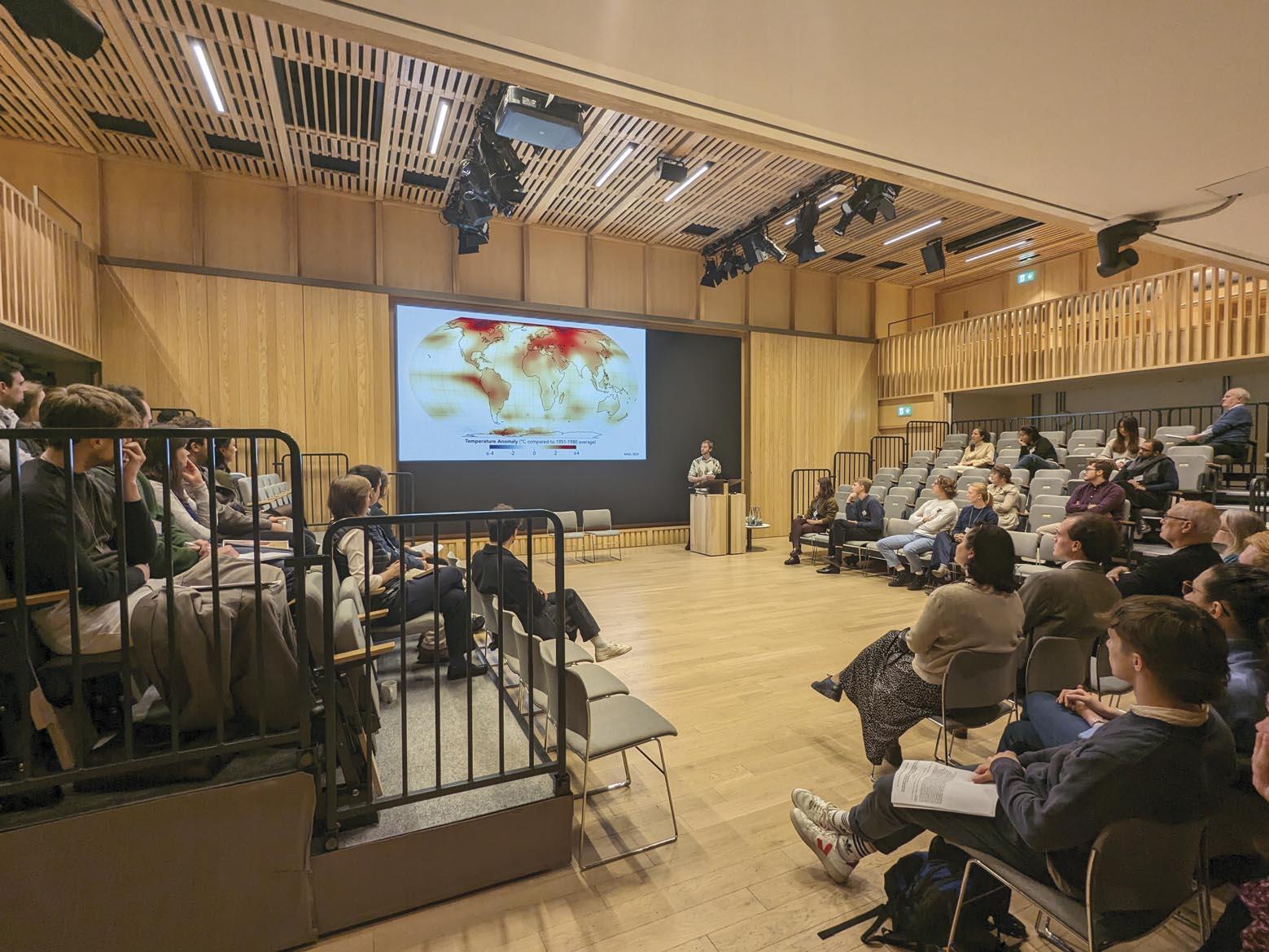
Tellef Raabe, The Norwegian newspaper industry in the digital age
Luis Alberto Ramirez Garcia, Opening the ‘black box’ of regional industrial-innovation systems: Navigating the intermediate innovation capability requirements from regional knowledge creation into industrial value capture
Lara-Sophie Rieder, Biochemical and biophysical studies of the UPR kinase PERK and its interactors in health and disease
Jake Rinaldi, Contemporary China-North Korea bilateral security relations: establishing the role of power and ideas in foreign policy decision-making
Arthur Rothier Bautzer, The state and the transformation of British and American commercial banking, 1945-2008
Benjamin Schreiber, A deep learning approach to automated coeliac disease diagnosis
Soo Teck See, Ultrafast charge and energy transfer dynamics in organic-transition metal dichalcogenides heterostructures
Akash Sengupta, Probabilistic methods for monocular 3D human reconstruction
Alicia Smith, The pathophysiological mechanisms underlying metamemory disruptions
Hong Ye Tan, Designing provably convergent algorithms from the geometry of data
May Yung Tiet, Exploring neurodegeneration in ataxia-telangiectasia
Venkat Vadlamani, Novel modulators of CD39 and CD73
Laura Van Marrewijk, Contributions of type 2 IP3 receptors to intercellular adhesions and invasion of glioblastoma cells
Maria Vedechkina, The nature, structure, and neural signature of early life adversity
Carl-Magnus Von Behr, Knowledge sharing among NHS estates and facilities management teams: insights across managerial levels and organisational contexts
Jin Wang, Fantasy multiverse world-building: affect and affinity in Diana Wynne Jones
Brian Whelan, The influence of layering and time-dependent injection rates on gravity-driven flows in porous media
Joe Williams, Internationalism and anglophone literatures, 1900-1950
Rhys Williams, Sidewall effects in compression corner shock-wave/boundary-layer interactions
Creative prizes
Our creative prizes encourage and celebrate all creative arts across the College. The Master hosts an annual prize giving garden party for students, Fellows and staff who have contributed to this community throughout the year.
Creative writing
This year’s short story competition attracted a record 30 entries. Judges Emily Winslow and Menna van Praag awarded 11 prizes, selecting winners through a blind judging process. Awards went to two undergraduates, five postgraduates, one postgraduate partner and three staff members. The judges praised the range and quality of stories on the theme of fantasy, which featured spells, ghosts, magical objects, portals, demons, alternate worlds, helpful ravens and more.
Winners: Molly Becker, Evie Burrows, Sarah Burton, Katie Catulle, Amenie Groves, Annika Goddard, Hosanna Greene, Lisa Rowe, Jack Stebbing, Navin Vithana and Ella Zhu.
To mark the club’s fifth anniversary, a podcast has been launched featuring 17 winning stories from past competitions. Available on Spotify, Apple Podcasts and other platforms, it showcases the College’s writing talent – written, performed and produced by Jesuans.
Artwork by Sofia Monarchi
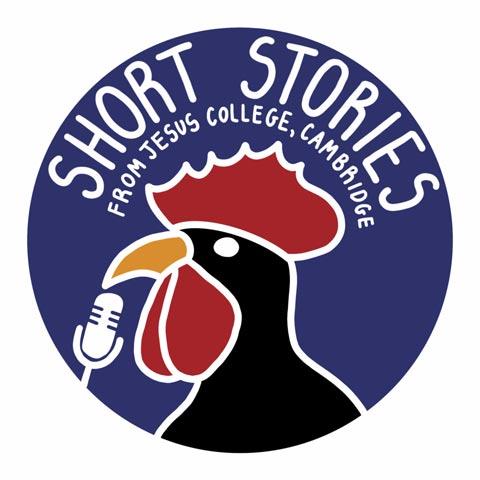
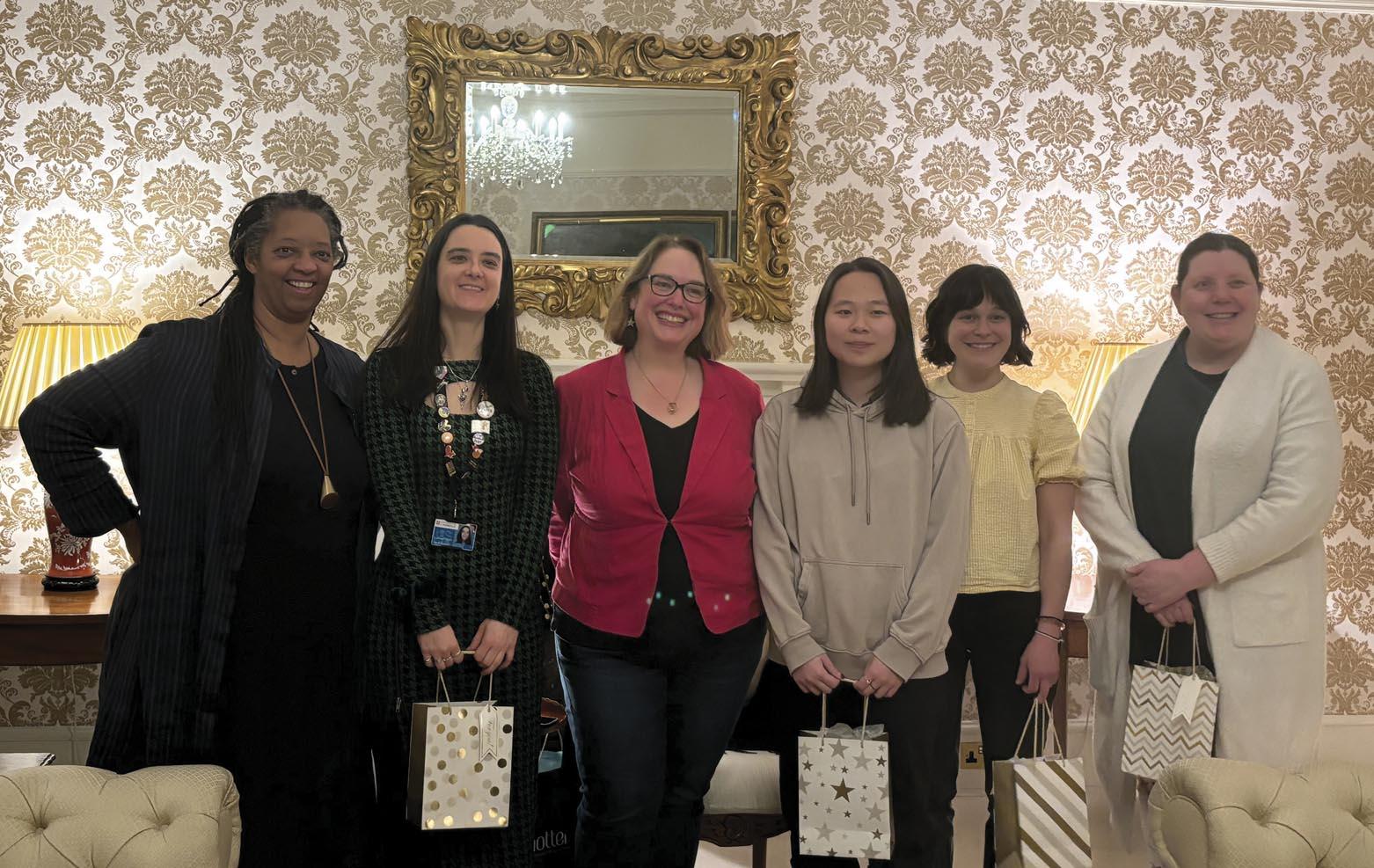
From left to right: Sonita Alleyne OBE, Sarah Burton, Emily Winslow Stark, Ella Zhu, Hosanna Greene and Lisa Rowe
Film
The winner of the last short film competition was Michail Gurevich with Strangers and Kirsty McLachlan came first in the screenplay category with One Day a Songbird Will Sit by Your Window.
Hadfield Creativity Prize
First awarded in 2022-2023, the Hadfield Creativity Prize supports Jesus students in bringing ambitious creative projects to life (see our Max Hadfield interview on page 28 of the latest Jesuan magazine). The 2025 recipients were Cai La Trobe-Roberts, Emily Bugden, Lizzie Caird, Troy Fielder and Raffaella Risi Bindman. The funding supported an artists’ residency on a yacht sailing the Scottish isles; print editions of two student-run publications; a poster project intersecting sport and art for the University Football Club; and the submission of an oil painting to a charitable exhibition.
Photography
The annual photography competition chose the theme of Light and was judged by a panel including Professor Bruce Ponder and Stephen Ancell, the College’s resident AV expert and cinematographer. The winner was Head Porter Simon Durrant whose winning photograph (pictured below left) showed our most famous window in an original and extraordinary light, illuminating the saints and church dignitaries that include Bishop Alcock and St Radegund. Second place in the competition was an image of First Court, taken by Elias Forneris (pictured below right).


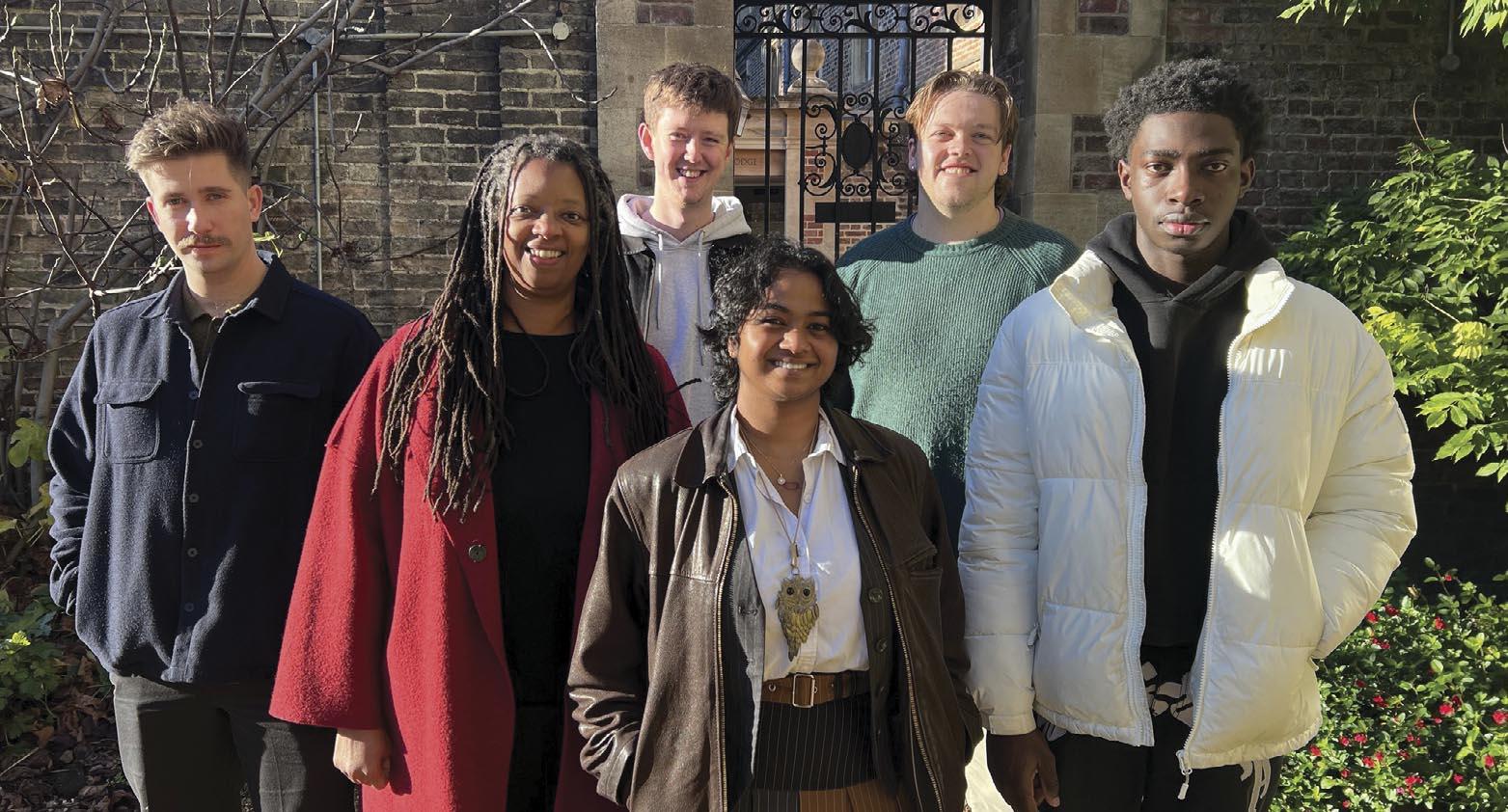
Songwriting
Our Hook, Line and Lyric songwriting contest is supported by the Centre for Music Performance, whose mission it is to support music performance at all levels, in all genres, and for students of all subjects, placing musical engagement at the heart of the higher education experience that makes Cambridge unique. This year’s winners are Arya Kalavath (2023) of Sidney Sussex for Fallin’, Finlay Gerrand (2021) of Gonville & Caius, representing his band The Ilfords, for Snake Groove, and Akorede Shonubi (2023) of Lucy Cavendish for Can I Touch Your Hair. An honourable mention goes to Ariella Gordon (2019) of Jesus College for the CTRL+ALT+DECEIT musical medley.
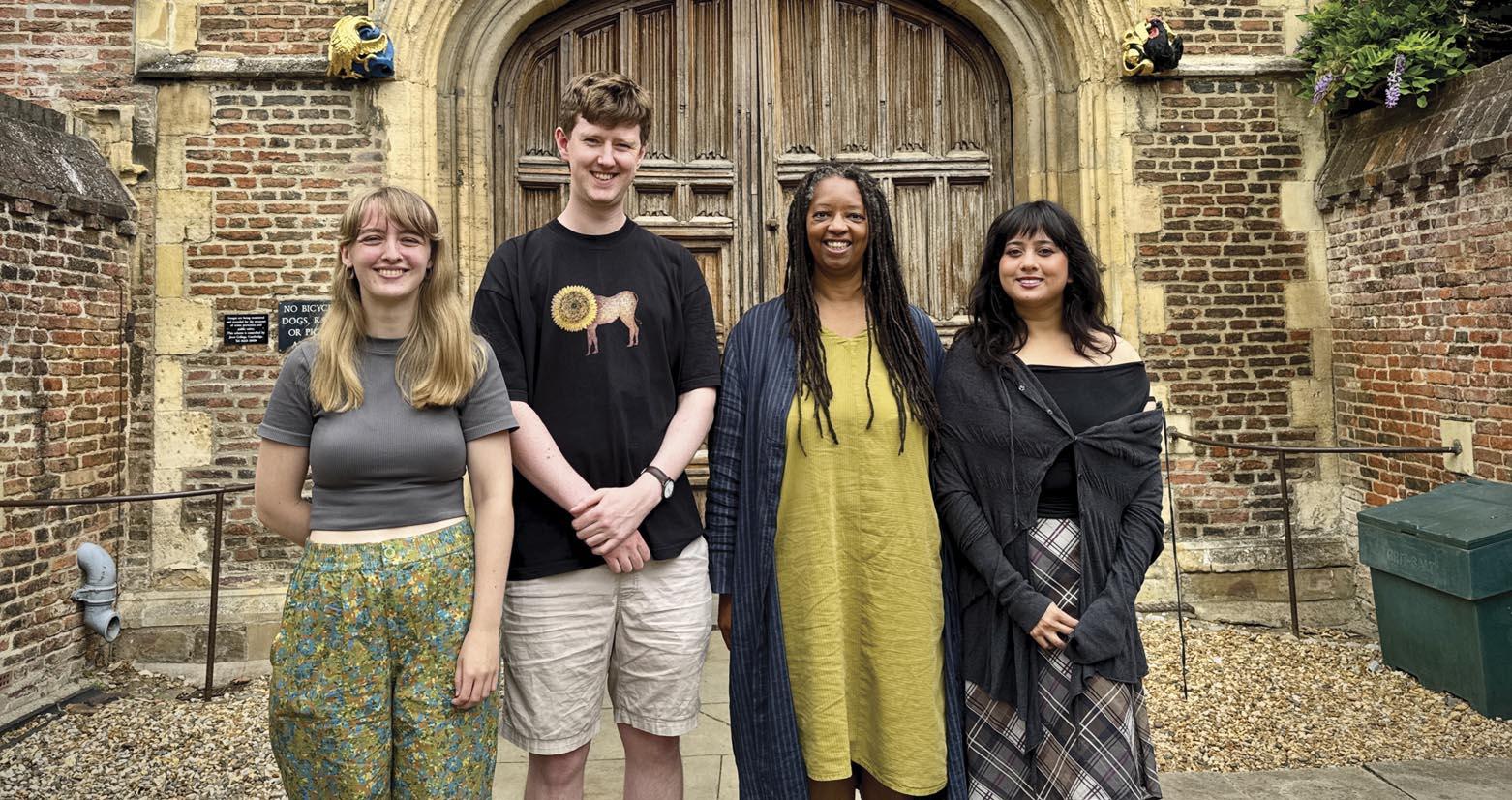
From left to right: Dave Nagaj of The Ilfords, Sonita Alleyne, Master of Jesus College, Finlay Gerrand of The Ilfords, Arya Kalavath, Alex Hall of the Centre for Music Performance, Akorede Shonubi
From left to right: Kirsty McLachlan, Finlay Gerrand, The Master, Sonita Alleyne OBE and Tasnim Chowdhury. Photo credit: Simon Durrant
The Stack
The Stack at Jesus College is a student-led, design-build pavilion created by student Martha Minton (MA Architecture) installed in the grounds and entirely constructed from reclaimed or surplus materials sourced from the College’s Maintenance Department. As a full-scale (1:1) experimental structure, it serves a dual purpose: functioning as a pavilion and testing innovative architectural research. The project explores pavilion typologies in World Expositions and investigates the potential of repurposing abandoned exposition sites through earthenware interventions. Notably, its benches are crafted from reclaimed ceramic chimney pots – a design nod to Sevillian clay traditions – reflecting the project’s broader aim to reimagine exhibition architecture and craft traditions in a sustainable context.
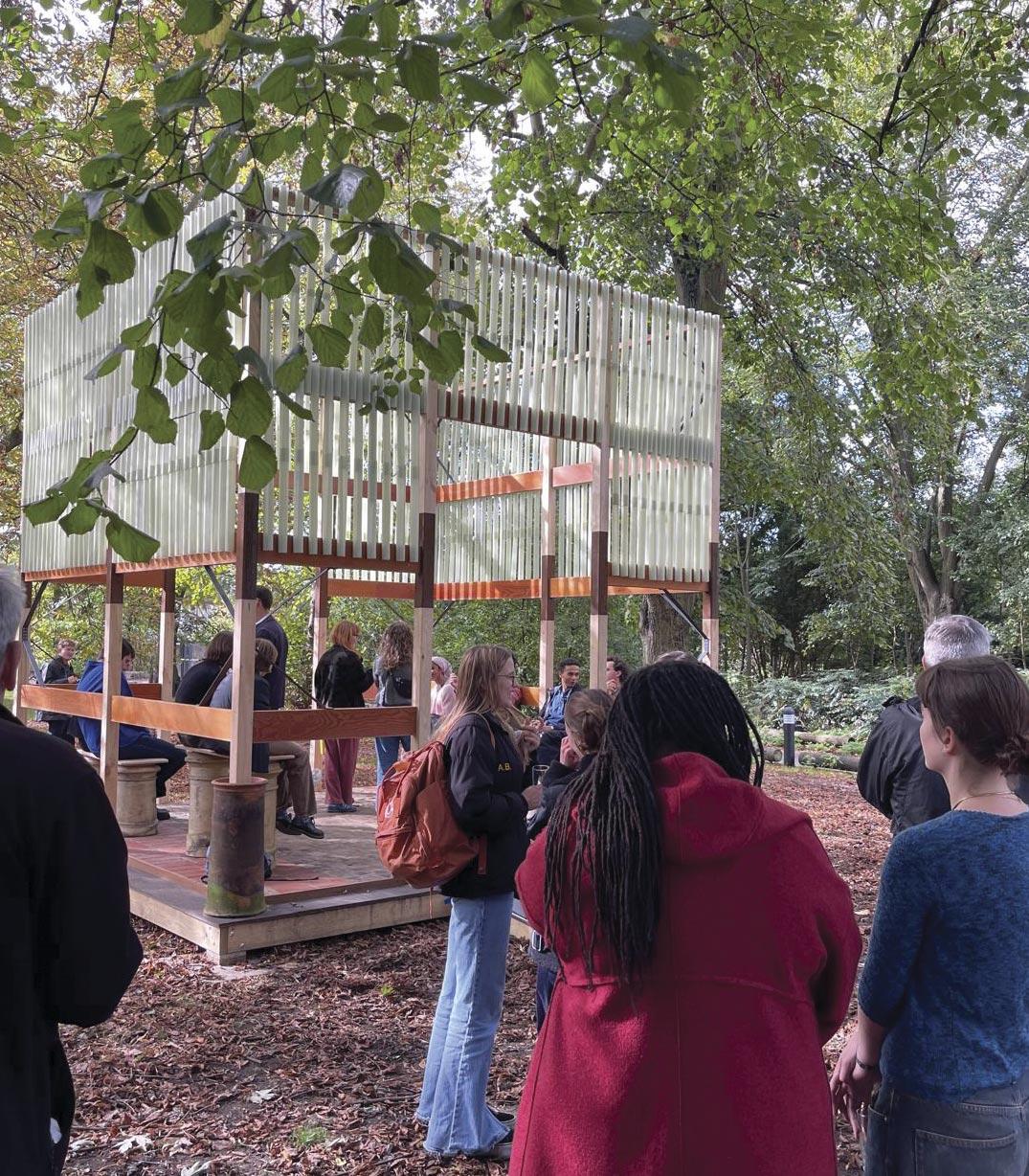
The Stack. Photo by Martha Minton
Travel writing
The Tom Parkinson Writing Bursary was launched in memory of Jesuan and talented travel writer Tom Parkinson (1997). It offers grants of up to £2,500 for young alumni to help develop their writing while exploring the world. Applications for the next round of funding are open until 19 February 2026.
Winners in the academic year 2024-2025 were:
Isaac Castella McDonald (2019, English Literature)
Jonah Lego (2022, African Studies MPhil)
Sophie Beckingham (2019, History of Art)
Read an article about their travels on the College website. n
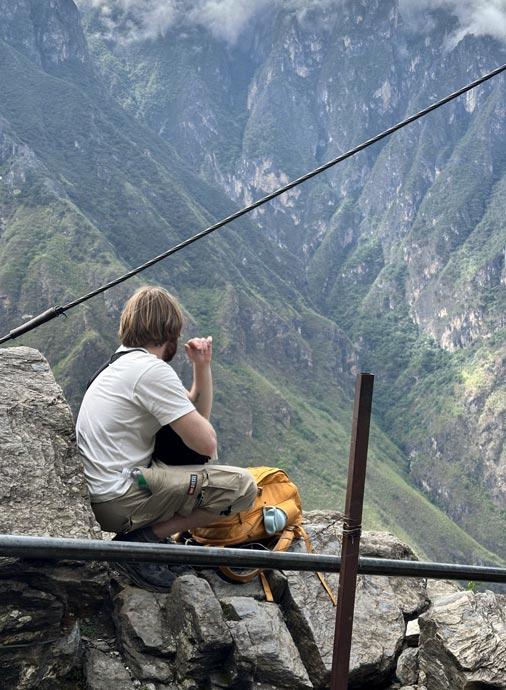
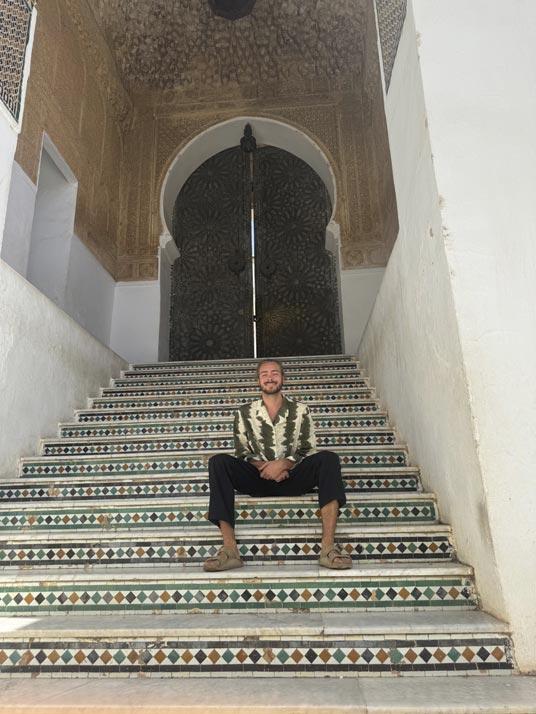
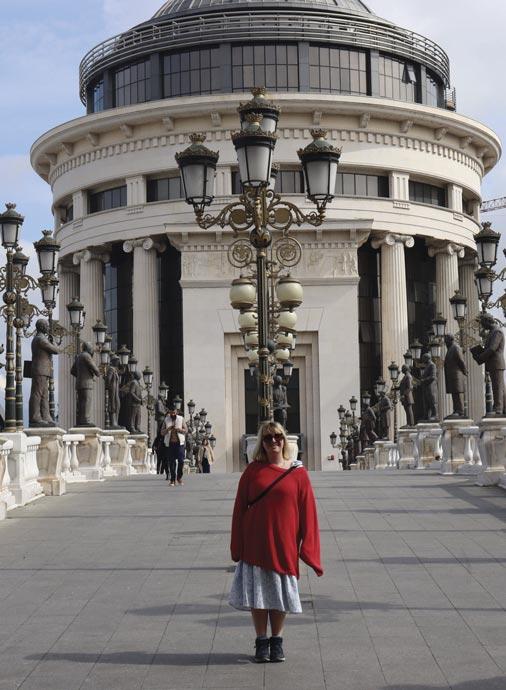
From left to right, Isaac Castella McDonald, Jonah Lego and Sophie Beckingham
JCCS
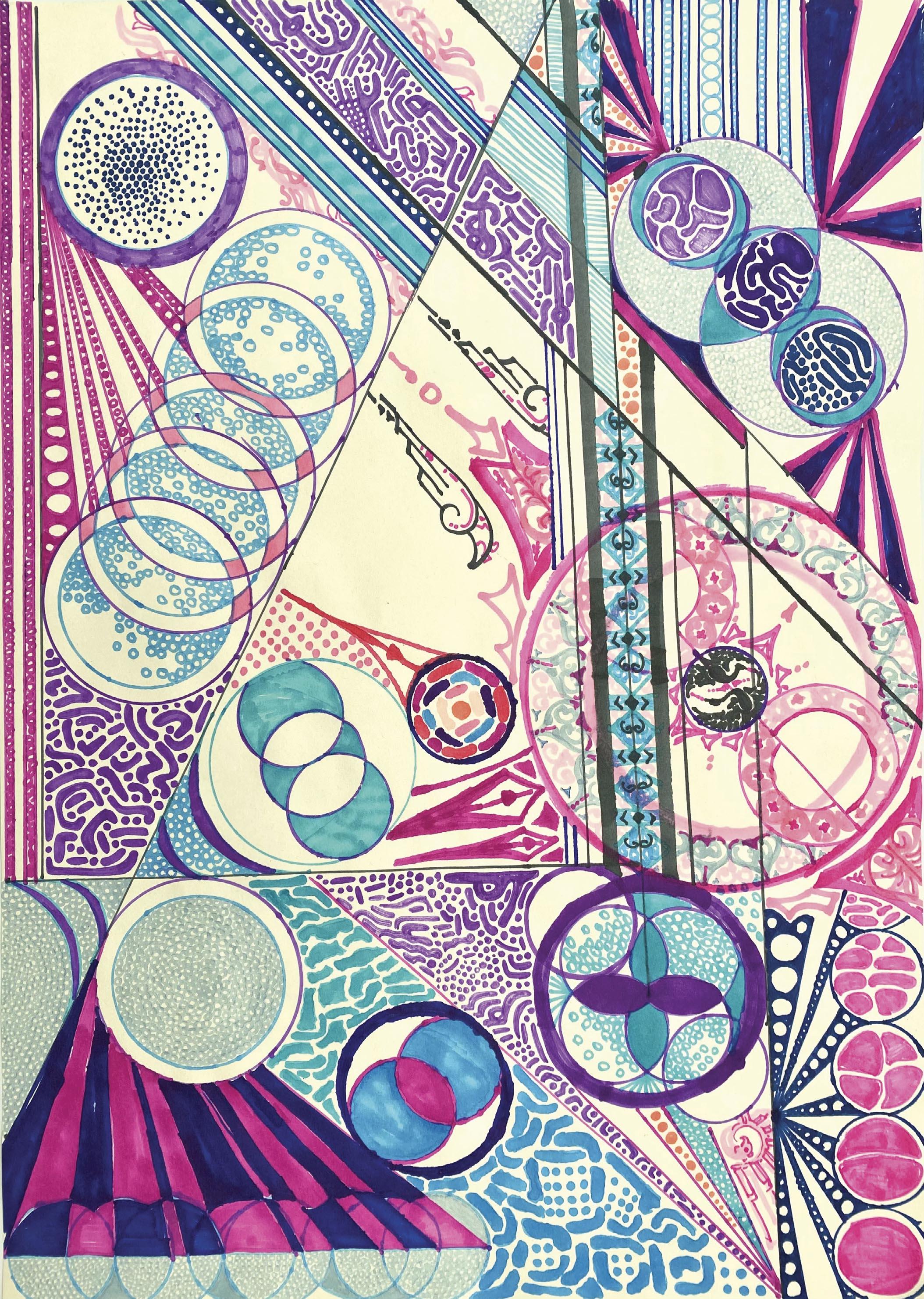
Tree Snakes, collaborative piece by members of the Art Club
Jesus College Cambridge Society
Committee as of 1 October 2025
President and Chair
Ms S ALLEYNE, OBE (Sonita)
Trustees First elected
1980 G R W SEARS (Guy) 2018
1982 E S MORRISS (Susanna) 2018
1987 O HIWAIZI (Omaid) 2022
Officers
1977 J P HALSEY (John) 2019 (Hon. Secretary)
1988 M C BIENFAIT (Mary) 2018 (Hon. Treasurer)
1976 M P HAYES (Mark) 2014 (Hon. Dinner Secretary)
Director of Development & Alumni Relations
E WILLIAMS (Emily) 2018
College Council representative
1998 S R L STACPOOLE (Sybil) 2016
Year representatives
2012 V D HERRENSCHMIDT (Victoria) 2022-2026
1987 C J LEWIS (Clive) 2022-2026
1971 J G MORGAN (Guy) 2022-2026
1970 E J R BOSTON (Eric) 2023-2027
2014 J D BUSHROD (Jasmynne) 2023-2027
1972 G R F HUDSON (Geoff) 2023-2027
1973 R J NORTHERN (Richard) 2023-2027
1999 F A R BARRATT (Felicity) 2024-2028
2002 V A MOORE (Verity) 2024-2028
1993 A F TOOLE (Alex) 2024-2028
1992 D M YATES (Derek) 2024-2028
1995 P M A LANE (Phill) 2025-2029
1999 J B MURRAY (Jim) 2025-2029
1974 J Y RANDALL (John) 2025-2029
2023 Y ULUSOY (Yasemin) 2025-2029
Annual General Meeting 2025
The Annual General Meeting of the Jesus College Cambridge Society took place on Saturday 20 September in the Prioress’s Room, Jesus College, at 6.30pm. The Master was in the chair and welcomed everyone to the meeting.
Apologies for absence
Apologies had been received from Felicity Barratt, Jasmynne Bushrod, Victoria Herrenschmidt, Theo Huckle, Christopher Kirker, Verity Moore and Guy Sears.
Minutes of 2024 AGM
The meeting accepted the minutes with no amendments.
Matters arising not otherwise covered in agenda
The Master noted the long and distinguished service of retiring JCCS Trustee, Christopher Kirker.
Secretary’s report
John Halsey (Honorary Secretary) reported. The Executive Committee has been at full strength during the year, with the Master as President and Chair, two College Council representatives, three trustees, three officers and four sets of four dovetailing year representatives. The committee included nine women, and matriculation years of committee members ranged from 1969 to 2015. For the coming year, not to pre-empt agenda item 10, matriculation years of committee members are due to span 1970–2023, including ten women.
Today marks the retirement of CI Kirker (1969). Massive thanks are due to Christopher Kirker for his long and distinguished service to JCCS. The Committee has appointed Omaid Hiwaizi to take Christopher’s place, working as a trustee alongside Guy Sears and Susanna Morriss.
The committee met twice online during the year, on 15 January and 7 April, in addition to a short meeting immediately before the AGM.
The objectives of the JCCS are to build social connections between Jesuans of every generation, and between Jesuans and the College. In line with this, since last year’s Annual Dinner, events held included an Autumn Reception at the Oxford & Cambridge Club, Pall Mall; an architectural walking tour and Spring Dinner at The Lighterman, King’s Cross; a Summer Buffet in College; and pub drinks in Oxford, arranged by committee member Verity Moore.
The Committee continues to develop plans for events, looking to offer a range of locations, a range of price points, discounts for recent graduates, and including informal as well as formal events, as we seek to attract as many different people as possible. If there are any Jesuans who would be interested to help arrange a local event, for example somewhere near where you live, whether or not you are a member of the committee, please do be in touch with the Secretary or another committee member.
In 2024, as shown in the accounts, JCCS donations were £3,000 to JCSU, £2,000 to JCSU Travel Bursaries and £2,000 to a Hardship Fund administered by the Tutorial Office. Every year, JCCS receives thanks from individual students and from student groups which have benefited from the donations, and this year is no exception.
Proposed change to JCCS Constitution
A change to the JCCS Constitution (1997) was proposed, for the College’s Director of Development and Alumni Relations to be an ex officio member of the Executive Committee. The proposal was carried.
Treasurer’s report and annual accounts to 31 December 2024
Mary Bienfait (Honorary Treasurer) presented the signed JCCS 2024 accounts which had been approved by the Executive Committee on 7 April. The surplus from three events was just under £700, and the overall surplus for the year was just over £2,500. Year-end cash balance reflects closure of Aberdeen Property Trust, awaiting suitable investment opportunity. The year-end market value of the Society’s investments was £82,130.
Election of Honorary Officers for 2025/26
All three Honorary Officers were willing to serve for a further year. John Halsey (Secretary), proposed by David Wootton, seconded by Adrian Greenwood; Mary Bienfait (Treasurer), proposed by Clive Lewis, seconded by Omaid Hiwaizi; and Mark Hayes (Dinner Secretary), proposed by Derek Yates, seconded by Guy Morgan. All three were elected unopposed.
Appointment of Independent Examiner for 2024
Mary Bienfait (Treasurer) proposed Hamilton Faber to be re-appointed Independent Examiner. Carried unanimously.
Election of new members of the Executive Committee
The Master thanked Theo Huckle, Reginald Seawright, Mark Smith and Paul Twiss, who were standing down from the Committee following completion of their four-year term of office. The Committee had nominated the following to serve until the AGM in 2029: Phill Lane (1995), Jim Murray (1999), John Randall (1974) and Yasemin Ulusoy (2023). All four were elected unanimously.
Review of 2024/25 events and future plans
Mark Hayes (Honorary Dinner Secretary) reported. The Spring Dinner had been moved away from the Oxford & Cambridge Club, as numbers had been falling there, and was held most successfully at The Lighterman, King’s Cross. The Summer Buffet in College and the Oxford Pub drinks had also been successful. The Autumn Reception at the Oxford & Cambridge Club continues to go from strength to strength and invitations to the 2025 Reception would go out very soon. The Guest of Honour at this year’s Dinner is the geneticist Turi King (1993). Numbers were down, possibly because the Annual Dinner did not fall on the same weekend as the University Alumni Festival.
The next Spring Dinner will be in College on Saturday 11 April 2026. This will include a talk on the wine cellars and a wine tasting. The following Spring Dinner will be in Freemasons’ Hall on 3 April 2027. The Annual Dinner 2026 will be on Saturday 19 September with Tilly Franklin (1990) as Guest of Honour. In 2027, the Annual Dinner will move to July, on the day of the Donors’ Garden Party, in order to avoid a clash with the JCBC bicentenary celebrations taking place in September 2027.
Date of next AGM
The 2026 AGM will be held at 6.30pm on Saturday 19 September 2026, immediately before the Annual Dinner.
Any other business
The Master reported that the lease of Wesley House had been handed back to the College, providing much needed opportunities to expand postgraduate accommodation amongst other facilities.
The meeting closed at 6.50pm. n
COLLEGE PAPERBACKS
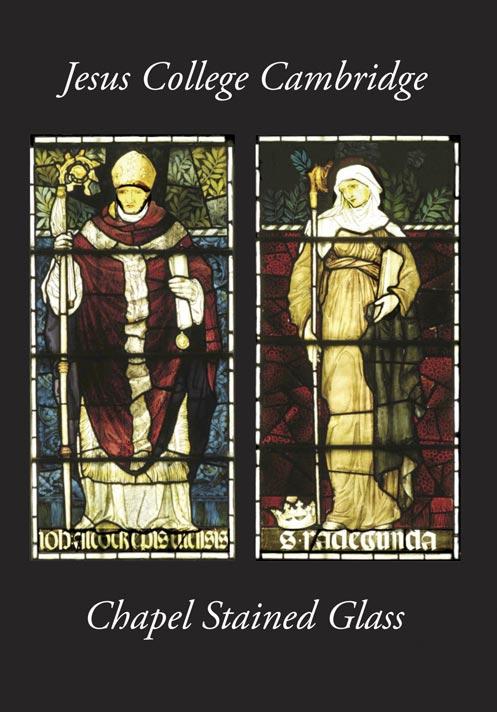
CHAPEL STAINED GLASS
by Jean Bacon, Emeritus Fellow
This pictorial guide shows all the windows created by the workshop of William Morris, from designs by Morris, Edward Burne-Jones and Ford Madox Brown. The guide includes the subjects illustrated in the windows as well as some of the original design drawings. A selection of glass in the Chancel, designed by A. W. N. Pugin, is also featured.
HISTORY AND PERSONALITIES
by Peter Glazebrook, Emeritus Fellow
This concise and well-illustrated booklet provides an accessible overview of over five centuries of the history of the College. An ideal gift for those who want to know something, but not too much, about the College and some of its significant events and more notable members.
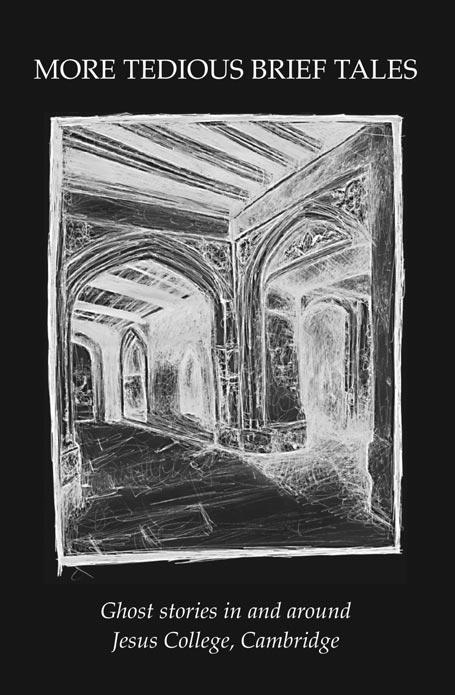
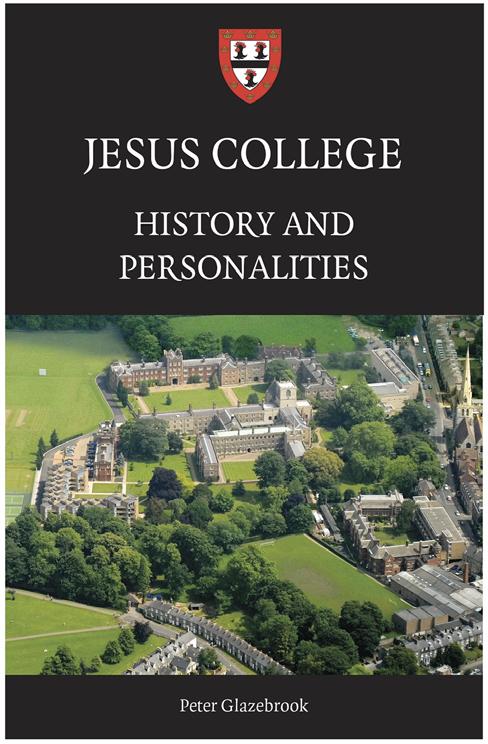
MORE TEDIOUS BRIEF TALES
Written and illustrated by students, Fellows and staff of Jesus College.
A collection of ten ghost stories drawn from the College’s atmospheric setting. The stories bring to life the mystery and imagination contained in its historic grounds.
www.jesus.cam.ac.uk/alumni/gift-shop

We offer a wide range of gifts and souvenirs, perfect for commemorating your connection with Jesus College. From cufflinks, silk ties and bow ties to silver pins, coasters, tote bags, paperweights and tea towels, embossed Moleskin notebooks, snuggly teddy bears, wall hangings and umbrellas, prints and books and the College flag, as well as CD recordings of the College Choirs. You can also purchase any of these items by contacting us or by dropping into the Porters’ Lodge when you next visit College.
Please contact the Development and Alumni Relations Office at development@jesus.cam.ac.uk or +44 (0) 1223 339301 for information on overseas posting or bulk orders

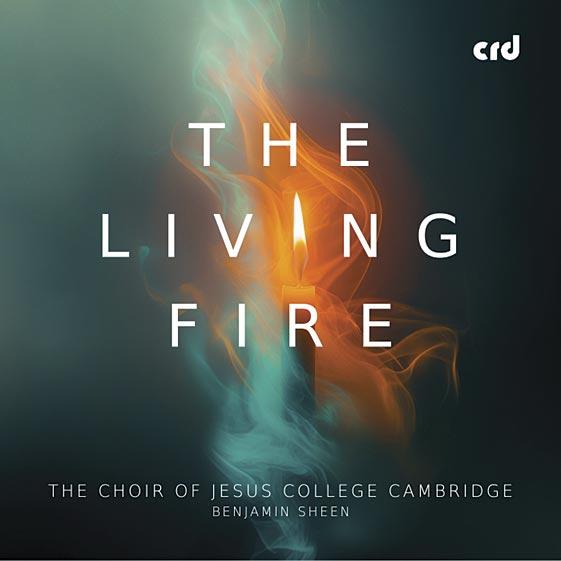
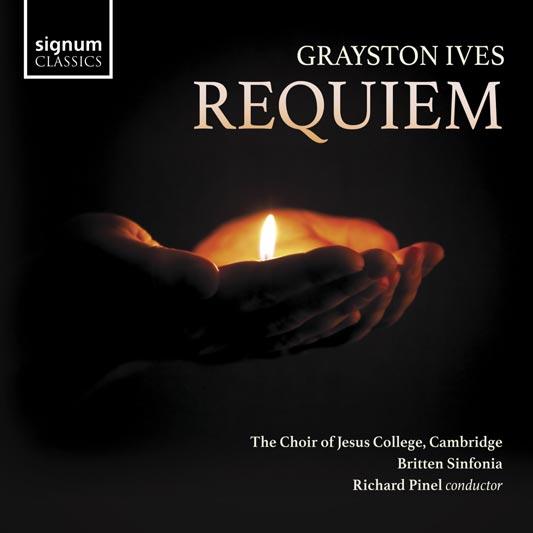
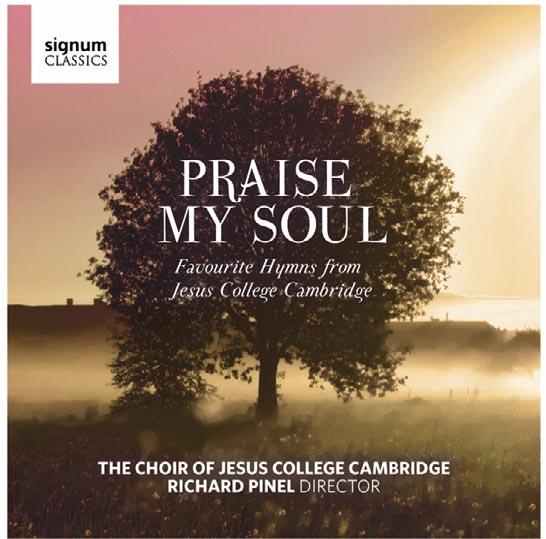
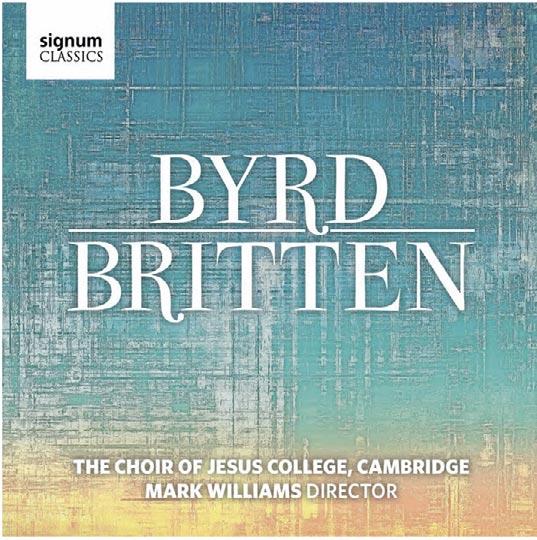
No praise could be too high for the choristers The Independent The Choir of Jesus College Cambridge sings beautifully Classic FM A
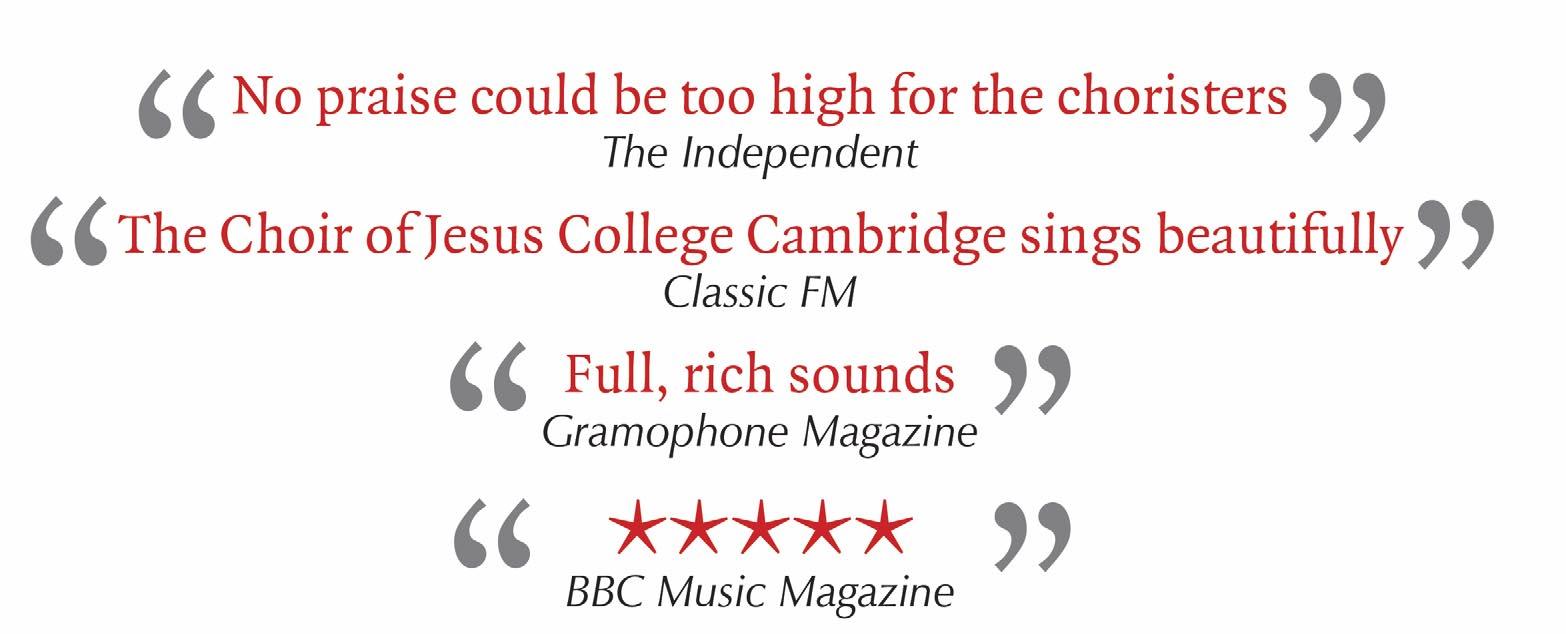
Available from Jesus College Porters’ Lodge, online at https://www.jesus.cam.ac.uk/chapel-and-choir/choir-shop or from Amazon, iTunes and major retailers
THREE GIFT IDEAS TO SUPPORT THE VISUAL ARTS AT JESUS COLLEGE
The Jesus College Works of Art Committee is proud to offer:
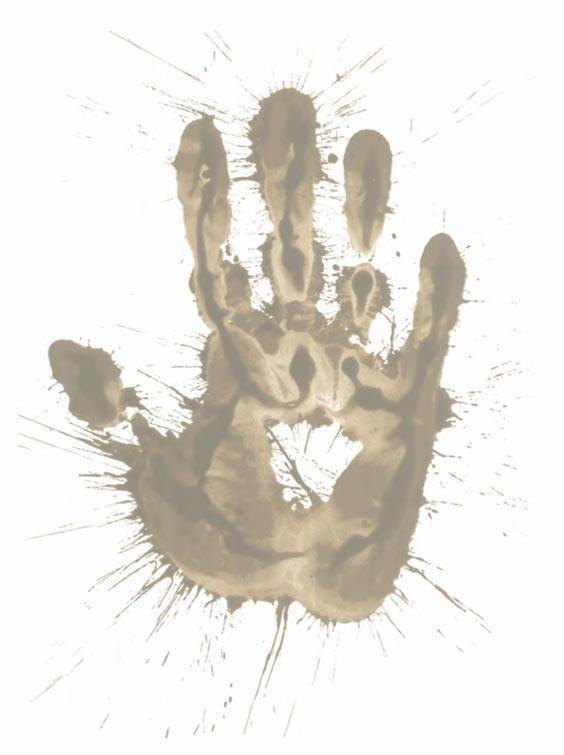
“Art for Tomorrow”
A portfolio of 10 original prints specially curated for Jesus College, with works by world-famous artists including Cornelia Parker RA, Jake and Dinos Chapman, Humphrey Ocean RA and Alison Wilding RA.
A special price for College members of £3600 inc. VAT for the full portfolio.
A limited number of individual prints are also available for sale separately – please contact Nikki Williams in the Development and Alumni Relations Office for further details.
A limited-edition silk square scarf
Designed by Stephen Chambers RA and printed by the Armani silk printers, Maver of Como, featuring the cockerel emblazoned with the College motto and complete with presentation box.
£325 inc. VAT
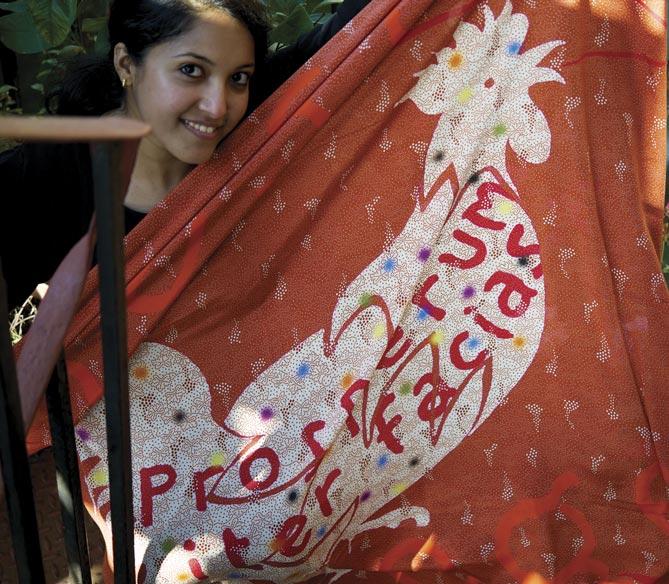
For further information, or to purchase the portfolio or the scarf, please contact the Development and Alumni Relations Office, Jesus College Tel: +44 (0)1223 339301 or E-mail: development@jesus.cam.ac.uk

Thirty Years of Contemporary Art: Jesus College, Cambridge 1988-2018
by Jean Bacon and Jim Roseblade
This is a richly illustrated photographic memoir of three decades of Sculpture in the Close biennials at Jesus College and the development of the permanent sculpture collection.
Available from Jesus College Porters’ Lodge, online at www.jesus.cam.ac.uk/chapel-and-choir/choir-shop or from Amazon, iTunes and major retailers
£12 plus postage and packing - available at the online shop: https://www.jesus.cam.ac.uk/alumni/gift-shop

The painting was commissioned in 2010 by the then Jesus Cricket Captain who decided to have some prints made and signed by the artist.
All proceeds from this project have been used to set up a fund which has purchased full wicket covers. Further funds raised will be used to acquire additional club equipment and machinery.
If you wish to purchase one of these signed prints, limited to 200, please send a cheque for £137 (£125 per unframed print + £12 p&p) made payable to ‘D. Allan re Jesus Cricket’ along with your postage address to Duncan Allan, Bugsell Park, Bugsell Lane, Robertsbridge, East Sussex TN32 5EN.
About Jocelyn Galsworthy
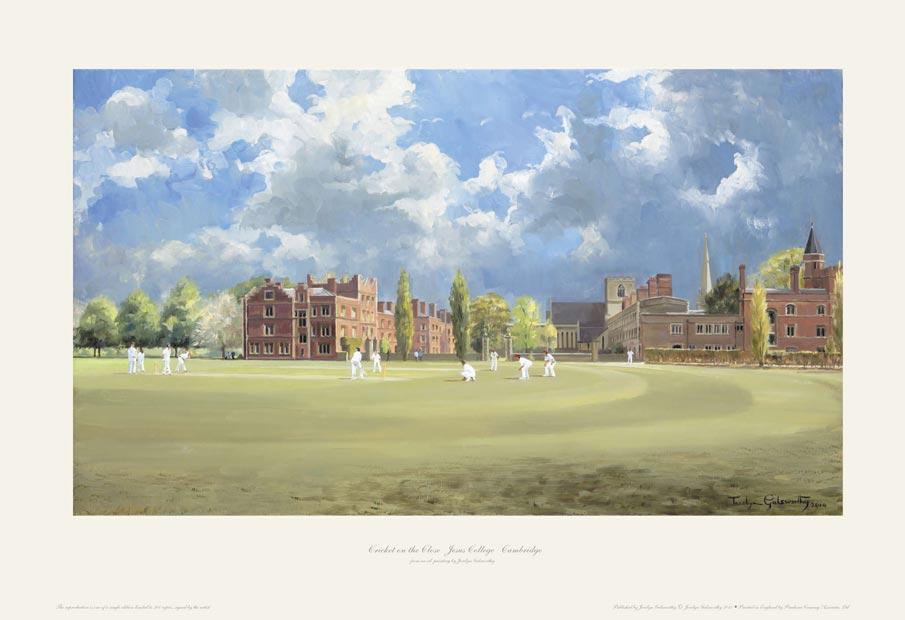
Jocelyn Galsworthy has been painting professionally for fifty years and is particularly well known for her portraiture and her highly acclaimed paintings of English and International cricket scenes. She has gained an enviable reputation as an outstanding cricketing artist and has travelled the world painting Test Matches as well as county, village, school and club grounds. The woman in the white hat, sitting on the boundary, recording matches for posterity, has now become a part of the cricket scene.
CARDS AND PRINTS by NAOMI DAVIES
Well known Cambridge artist Naomi Davies (née Williams, 1987) has created various pen and watercolour paintings of the College which are available as limited edition prints, tea towels, coasters and greetings cards.
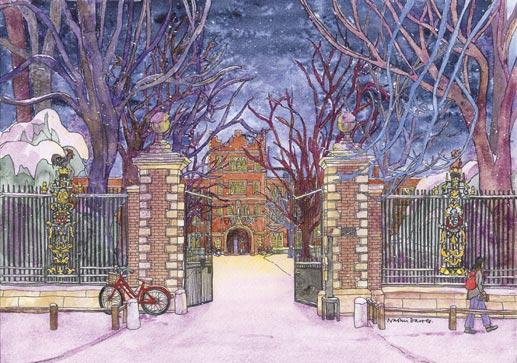

www.naomidaviesart.co.uk
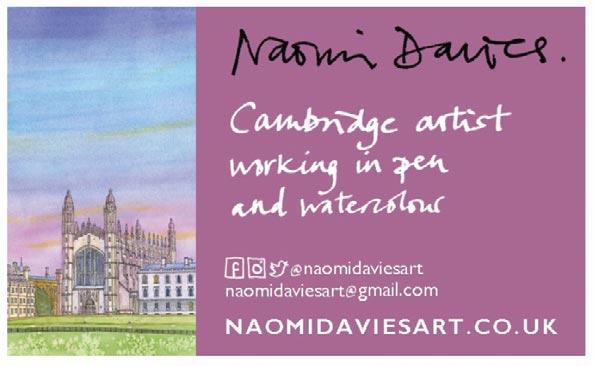


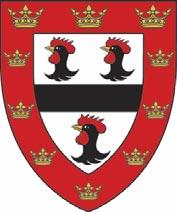
Data Protection Statement
How we use your personal information
This statement explains how Jesus College (“we” and “our”) handles and uses data we collect about alumni (“you” and “your”). In broad terms, we use your data to manage the ongoing relationship between the College and you as part of our lifelong community of scholars, including keeping in touch with you, keeping up to date on your achievements, and engaging with you on how you can continue to contribute to College life and otherwise support the College.
We will retain your data indefinitely or until you request us to do otherwise. When changes are made to this statement, we will publish the updated version to our website and notify you by other communications channels as we deem appropriate or necessary.
The controller for your personal data is Jesus College, Cambridge CB5 8BL. The person responsible for data protection at the time of issue, and the person who is responsible for monitoring compliance with relevant legislation in relation to the protection of personal data, is the Bursar, Dr Richard Anthony (bursar@jesus.cam.ac.uk).
The legal basis for processing your personal data is that it is necessary for the purposes of our legitimate interests, where we have concluded that our interests do not impact inappropriately on your fundamental rights and freedoms, except where elsewhere in this statement we have indicated otherwise. You may ask us to explain our rationale at any time.
How your data is used by the College
We collect and process your personal data, as specified below, for a number of purposes, including:
A. maintaining a formal record of your academic progress and achievements at the College and the University of Cambridge and elsewhere;
B. retaining a formal record of your career or other life achievements in order to promote and improve the reputation of the College and help you to network with other College members effectively;
C. engaging you in College and University events that we believe will be of interest to you, including alumni and open events, volunteering opportunities, and other ways you can contribute to the life of the College;
D. providing you with information about College life and the development of the College, including major initiatives and programmes relating to either the academic endeavour or the provision of services and facilities to members and the wider public;
E. encouraging you to make a financial contribution to the College and/or the University, and processing any such contributions;
F. assessing the likelihood that you will, now or in the future, make a financial contribution (gift) to the College;
G. promoting third party services we believe will be of interest to you:
Further details are provided in the Annex. If you have concerns or queries about any of these purposes, or how we communicate with you, please contact us at the address given above.
Communications
If you are a new contact for our Development and Alumni Relations Office, we will ask you at the outset how you would like to receive news and other communications from us. If you are already receiving such communications, you may change your preferences or ask us to stop sending you news and other communications completely by contacting the Development and Alumni Relations Office (development@jesus.cam.ac.uk). You may request changes at any time.
How we share your personal data
We believe that most alumni understand in detail the complex and many interactions of the College with the University of Cambridge. Personal data of our members is shared with the University routinely throughout any course of study, and it is our strong preference to continue such collaborative working thereafter. The University and its partners (including the College) have a data sharing agreement to govern the sharing of personal data of alumni and other supporters. This is necessary because they are distinct legal entities.
The agreement outlines that, depending on constraints set by you, and which you may change at any time, the University and College may share any of the above categories of personal data with the University, and can be viewed in full (https://www.alumni.cam.ac.uk/data-protection). Any transmission of data to or from the University is managed through agreed processes which comply with UK data protection legislation.
For clarity, the College has a separate database from the University, but has access to the University’s database: additionally, we maintain other electronic and paper records.
The University has its own data protection statement and procedures – see: https://www.alumni.cam.ac.uk/data-protection
Additionally, we share data on a considered and confidential basis, where appropriate, with:
• Cambridge in America (the University’s affiliate alumni office in the US);
• selected companies who provide College-branded or College-endorsed products and services, as outlined above;
• volunteer partners closely related to us (e.g. College trustees, development board members, alumni group representatives); and
• contractors providing services to you on our behalf or services to us (our “data processors”), as outlined above.
We also facilitate communication between individual alumni (of the College or the University), but in doing so we do not release personal contact details without prior permission.
Any transfers of your data overseas or to international organisations, as set out above, are protected either by an adequacy decision by the European Commission or by standard data protection clauses adopted by the European Commission (which are available from our Data Protection Officer) or, before 25 May 2018, by a self-assessment of adequacy.
Your rights
You have the right: to ask us for access to, rectification or erasure of your data; to restrict processing (pending correction or deletion); to object to communications or direct marketing; and to ask for the transfer of your data electronically to a third party (data portability). Some of these rights are not automatic, and we reserve the right to discuss with you why we might not comply with a request from you to exercise them.
Where you opt out of all future communications or exercise your right to erasure, we will continue to maintain a core set of personal data (name, subject(s), matriculation and graduation details, unique University identification number and date of birth) to ensure we do not contact you inadvertently in future, while still maintaining our record of your academic achievements. We may also need to retain some financial records about you for statutory purposes (e.g. Gift Aid, anti-fraud and accounting matters).
You retain the right at all times to lodge a complaint about our management of your personal data with the Information Commissioner’s Office at https://ico.org.uk/concerns/
Annex
We collect and process your personal data, as specified below, for a number of purposes, including:
A. Maintaining a formal record of your academic progress and achievements of the College and the University of Cambridge and elsewhere:
We retain personal data (provided by you or by the University of Cambridge, or created by us), including:
i) your current name and any previous names you have had;
ii) unique personal identifiers (e.g. student number, CRSID, date of birth, photograph);
iii) your current and previous contact details;
iv) your application details, our assessment of your application and the details of any offer(s) of study we have made;
v) records of your academic provision from the College (including supervisions, College examinations and other academic support);
vi) matriculation and graduation details and records of your academic qualifications (including those prior to becoming a member of the College);
vii) other details of your academic progress or achievement (e.g. College or University awards or prizes).
B. Retaining a formal record of your academic, career or other life achievements in order to promote and improve the reputation of the College and help you to network with other College members effectively:
We retain personal data (provided by you), including:
i) details of your achievements since you completed your course(s) of study;
ii) membership of College and external clubs and societies (including alumni groups);
iii) your previous and current employment status (including retirement), including job title, sector, income and work contact details, dates of employment.
When you provide this information, we will assume (unless you notify us otherwise) that we can promote these achievements in our public literature, and can use this information for other purposes outlined in this statement. We may supplement information from other public sources that we consider to be reliable (e.g. your public social media profile(s), King’s Honours List, Companies House, high profile news reports or articles) and may check their accuracy with you from time to time.
C. Engaging you in College and University events that we believe will be of interest to you, including alumni and open events, volunteering opportunities, and other ways you can contribute to the life of the College: We retain personal data (provided by you or by the University of Cambridge, or created by us), including:
i) known relationships with other members (past or present) of the University of Cambridge or any of the Colleges;
ii) your previous attendance at College or University events;
iii) information about your areas of personal interest;
iv) personal data relating to your attendance at events and your personal preferences (e.g. dietary or accommodation requirements or requests); v) records of any communications (verbal or written) we have had with you, including the purpose and outcome of those communications.
When you provide this information, we will assume (unless you notify us otherwise) that we can use this information for other purposes outlined in this statement. We may supplement information from other public sources that we consider to be reliable (e.g. your public social media profile(s), University publications, high profile news reports or articles) and may check their accuracy with you from time to time.
D. Providing you with information about the development of the College, including major initiatives and programmes relating to either the academic endeavour or the provision of services and facilities to members and the wider public:
We retain personal data (provided by you or by the University of Cambridge, or created by us), including:
i) any communication preferences confirmed by you; ii) ways in which you have supported the College.
By providing us with email addresses and telephone numbers, we have taken this to be consent to use those channels to contact you for this and other purposes outlined in this statement, unless you have expressed your preferred communication channels. When you provide this information, we will assume (unless you notify us otherwise) that we can use this information for other purposes outlined in this statement.
E. Encouraging you to make a financial contribution to the College and/or the University, and processing any such contributions:
The College’s income consists of gifts and benefactions, income derived from prudent investment of any endowment and student fees. We value any financial contribution from our members and, accordingly, retain personal data (provided by you or by the University of Cambridge, or created by us), including:
i) the purposes and amounts of any donations or other support previously provided to the University or the College by you; ii) the method(s) of payments used and related payment references; iii) your bank details (for processing direct debit or other financial transactions);
iv) your tax status and Gift Aid declaration.
Some of this financial information needs to be retained for statutory purposes for a number of years (e.g. Gift Aid, anti-fraud and accounting matters). When you provide this information, we will assume (unless you notify us otherwise) that we can use this information for other purposes outlined in this statement.
F. Assessing the likelihood that you will, now or in the future, make a financial contribution (gift) to the College:
The College undertakes research to determine your capacity to provide financial support.
This results in us creating and using personal data including:
i) your estimated income or asset worth (where this is not provided by you);
ii) your potential capacity to make a gift, including our internal classification of you as a major gift prospect which is determined by a combination of your giving history, your attendance at College and University events, and your other interactions with the College since you graduated, including any positive or negative indications from you about your capacity or willingness to give to the College;
iii) gifts you have made to other charitable organisations.
Our research includes incorporating information from public sources that we consider to be reliable (e.g. your public social media profile(s), King’s Honours List, Companies House, high profile news reports or articles). In using these sources, we have considered the potential intrusion of your privacy. In most cases, our assessment above aims to exclude you from unwelcome or inappropriate approaches so as not to compromise your ongoing relationship with us.
G. Promoting third party services we believe will be of interest to you:
We retain personal data (provided by you), including: i) any preferences to be excluded from such services.
We do not sell your personal data under any circumstances. If you have concerns or queries about any of these purposes, or how we communicate with you, please contact us: https://www.jesus.cam.ac.uk/college/aboutus/data-protection

Jesus College Records Update
Name: ..............................................................................................
Matriculation year: ............................................................................
(new) Address: .................................................................................. ......................................................................................................... ......................................................................................................... .........................................................................................................
(new) Telephone no: ..........................................................................
(new) Mobile no: ...............................................................................
(new) E-mail address: ......................................................................... News: ..............................................................................................
Please return to:
The Development and Alumni Relations Office Jesus College Cambridge CB5 8BL e-mail: development@jesus.cam.ac.uk
Impress your guests at Jesus College
We are not just a college, we also offer some fantastic and versatile meeting rooms, accommodation and acres of outside space. By booking an event with us, you’ll help us to maintain our historic estate, while ensuring an exceptional experience for your colleagues, family or friends.
In a nutshell . . .
• Versatile range of modern and historic meeting spaces
• Up-to-date, efficient and user-friendly audio visual equipment
• Over 250 en suite bedrooms available all year round including apartments and rental houses
• Historic city centre location with excellent public transport links
• Exquisite and vast catering offerings using local, seasonal and sustainable ingredients
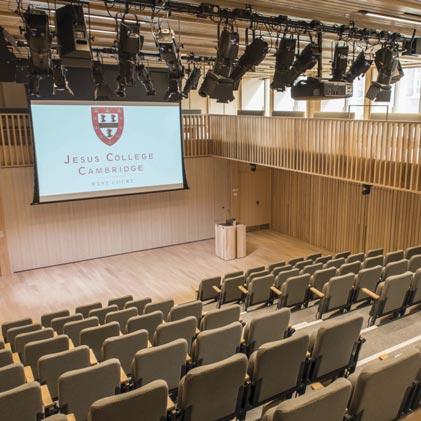
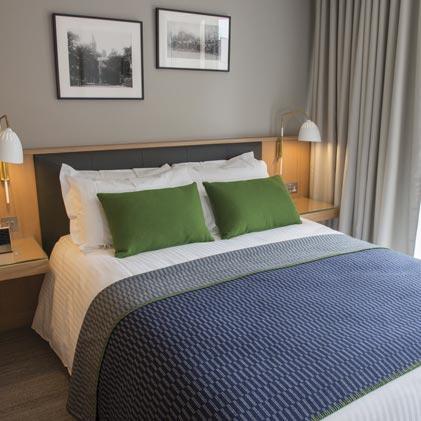
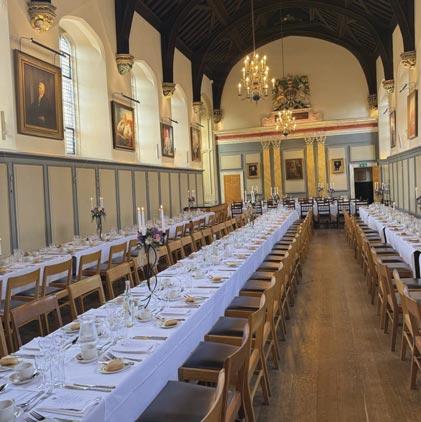
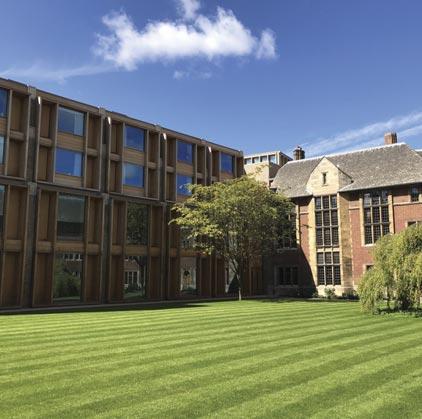
• Acres of tranquil grounds including sports fields and a nature trail. Perfect for summer gatherings and larger bookings
• Enhanced experiences on offer and include tours of the Chapel, the Archives, the buildings and grounds.
As part of our valued alumni community, you’re entitled to a discount on your booking. Our team delivers an outstanding service, from event planning to ensuring everything runs smoothly on the day. That’s one reason that many of our clients make repeat bookings, including the Judge Business School, AstraZeneca and Microsoft Research.
“We were delighted to find that using the West Court facilities minimised queuing times and maximised delegates’ time spent in conversation and networking. The staff at the venue and the team at Jesus College were professional, organised and a pleasure to work with.”
Jesus College Conferences and Events
www.jesus.cam.ac.uk | 01223 760524 | conference@jesus.cam.ac.uk
View Jesus College in 360: https://www.takealookinside.co.uk/jesus-college/index.html

